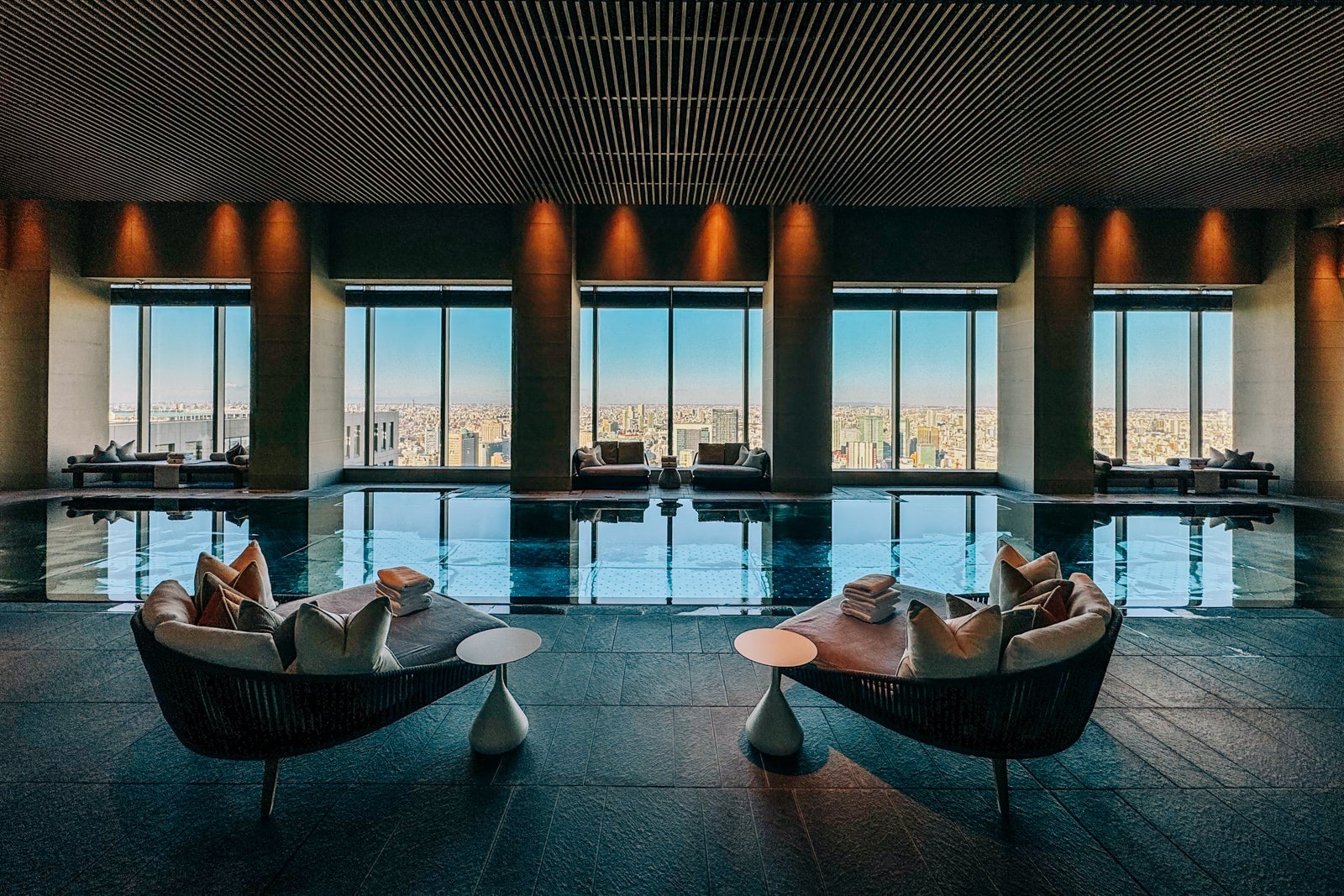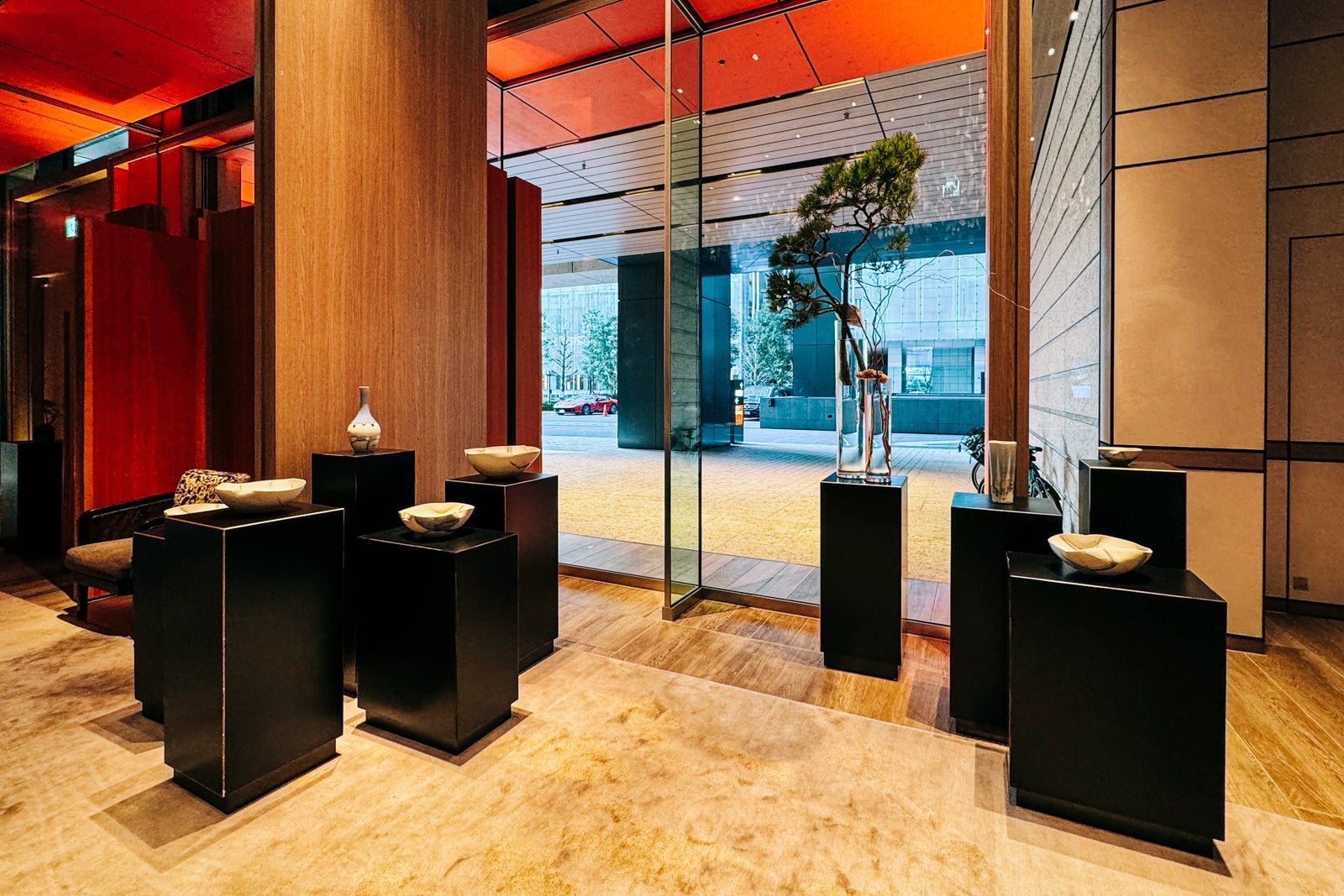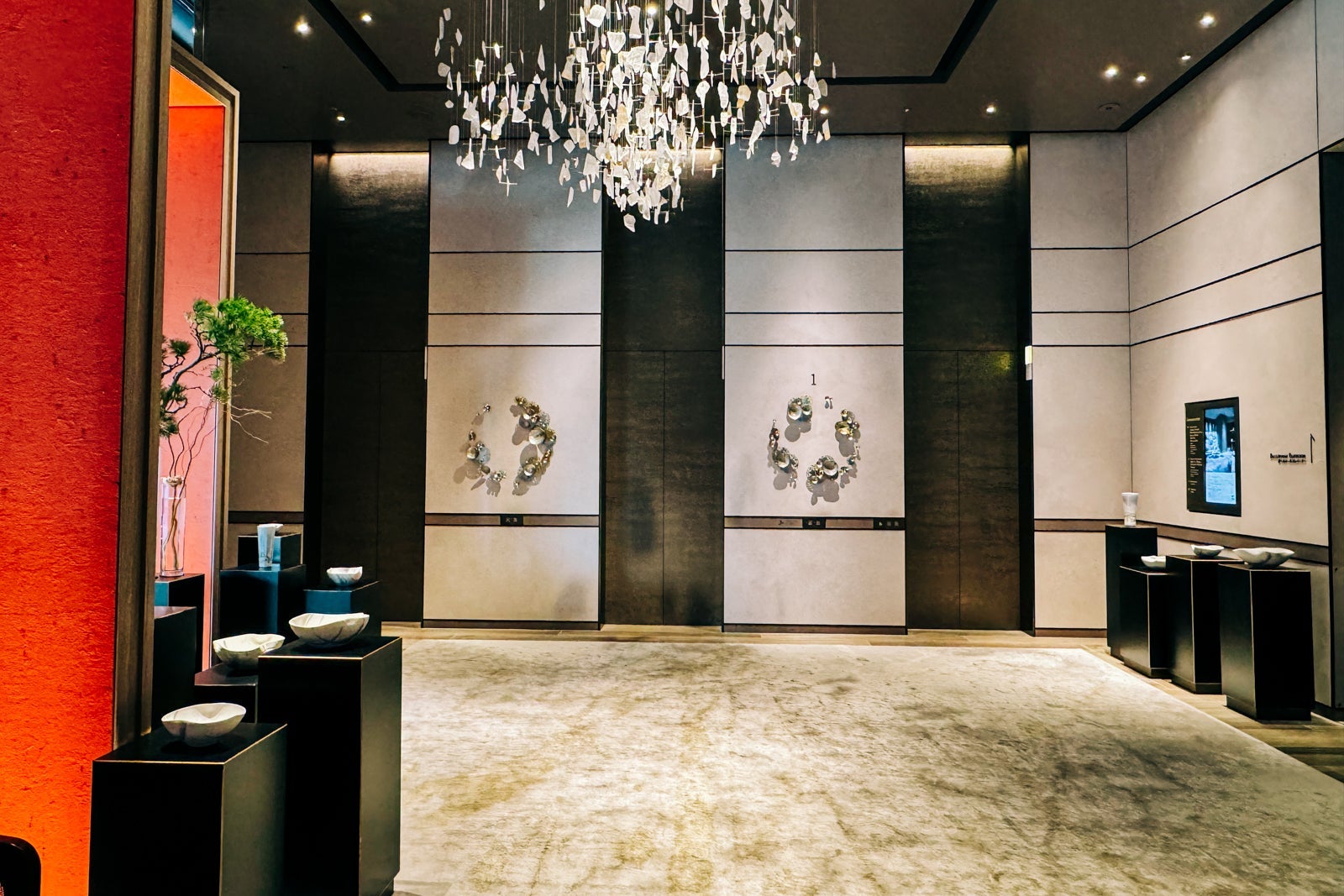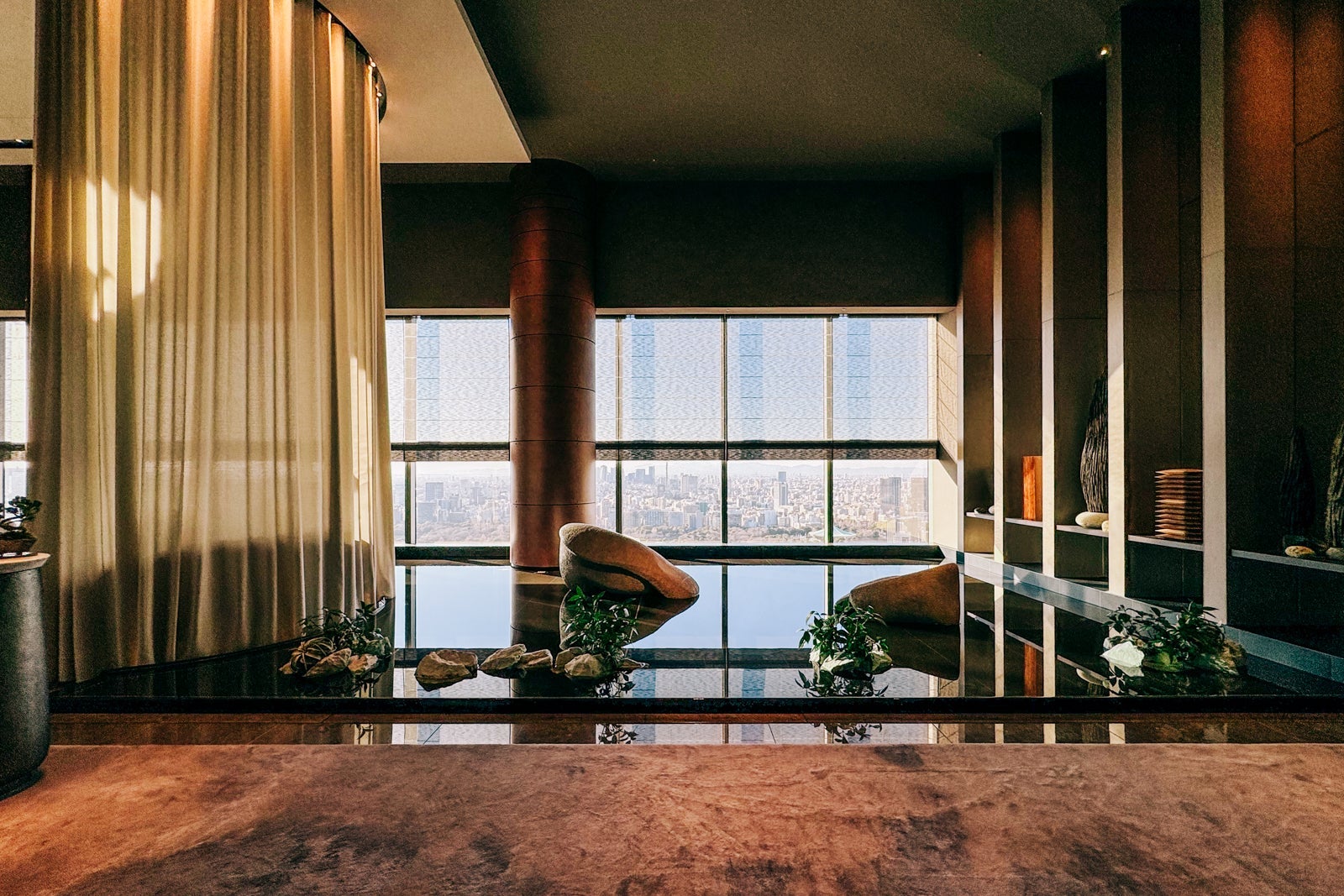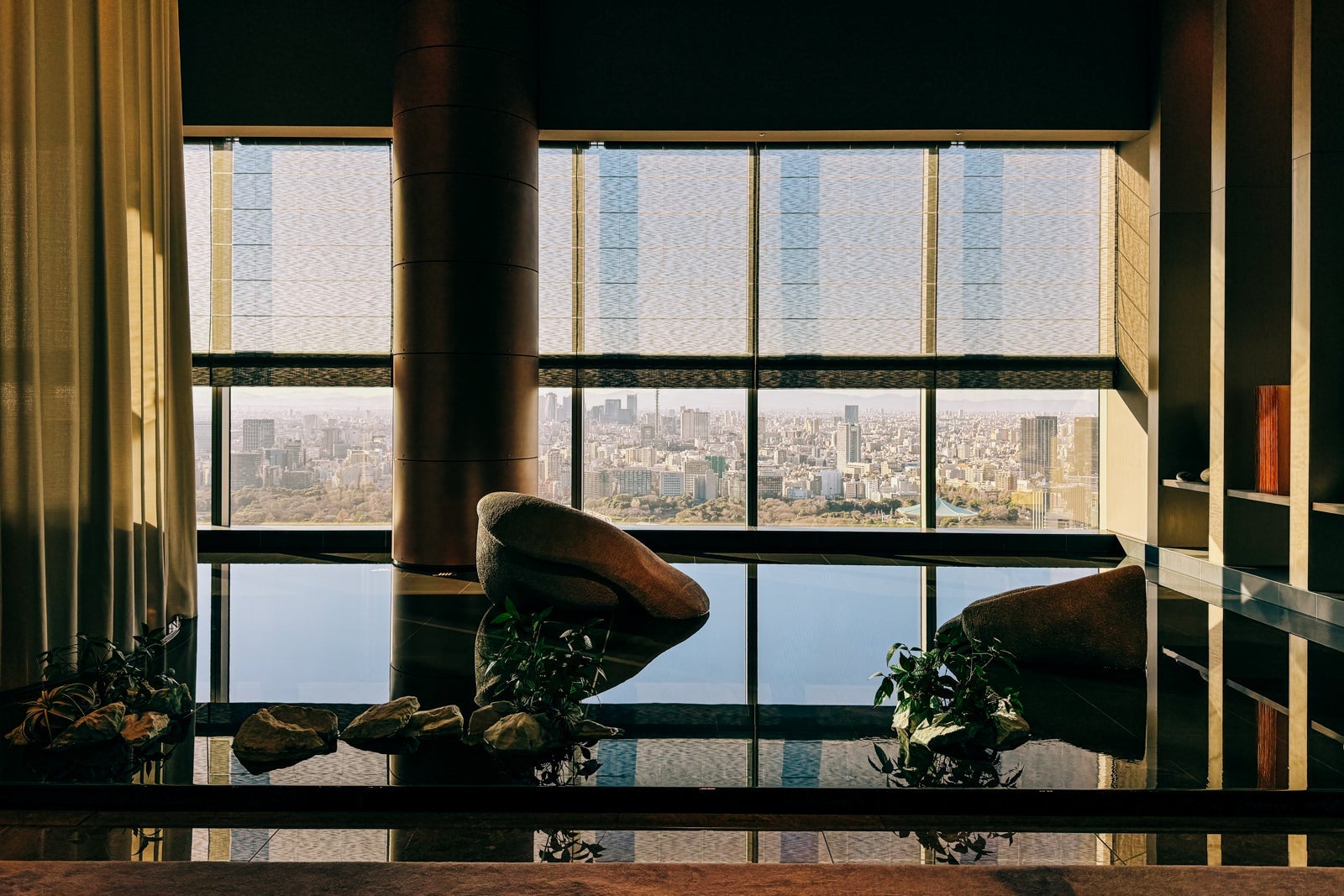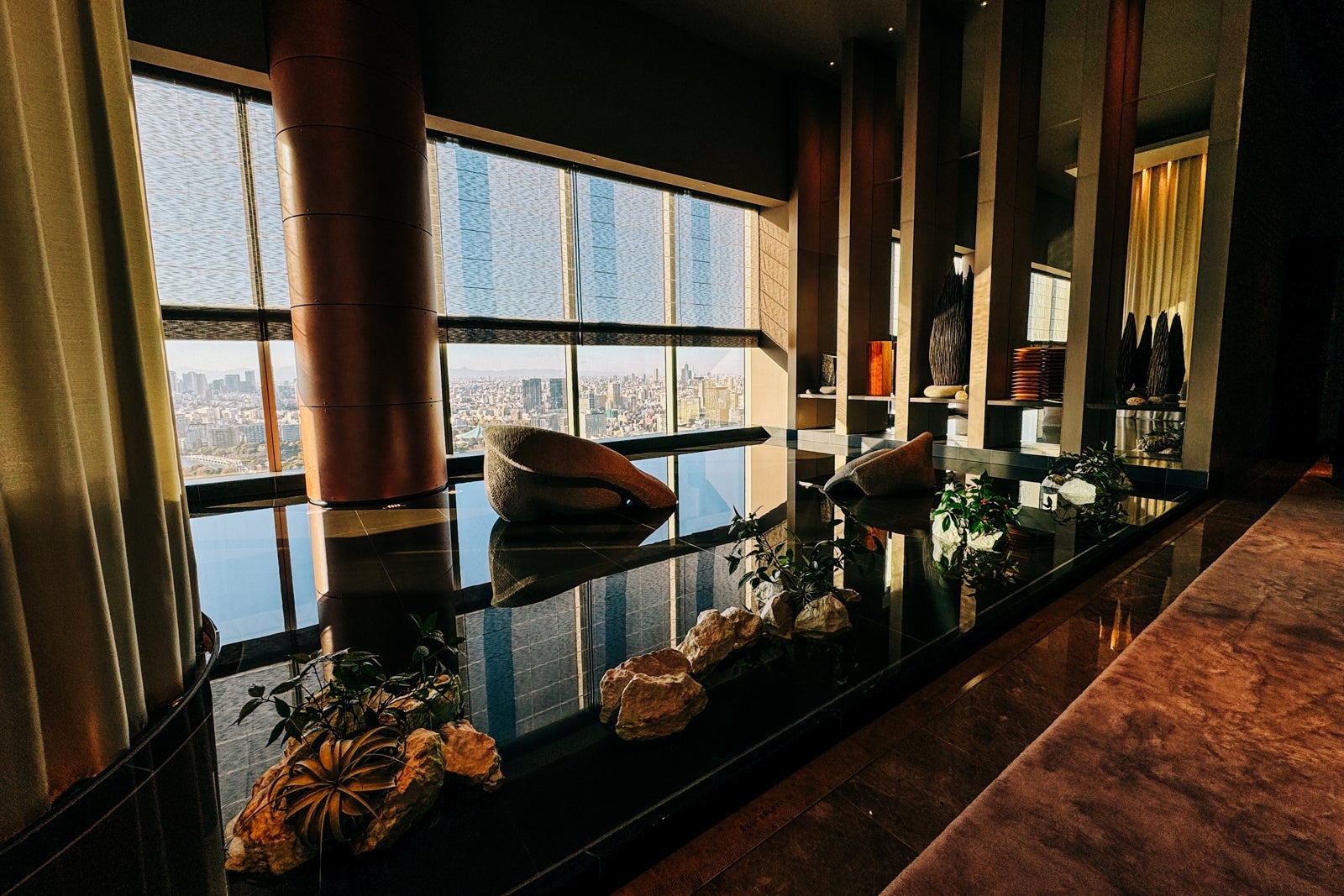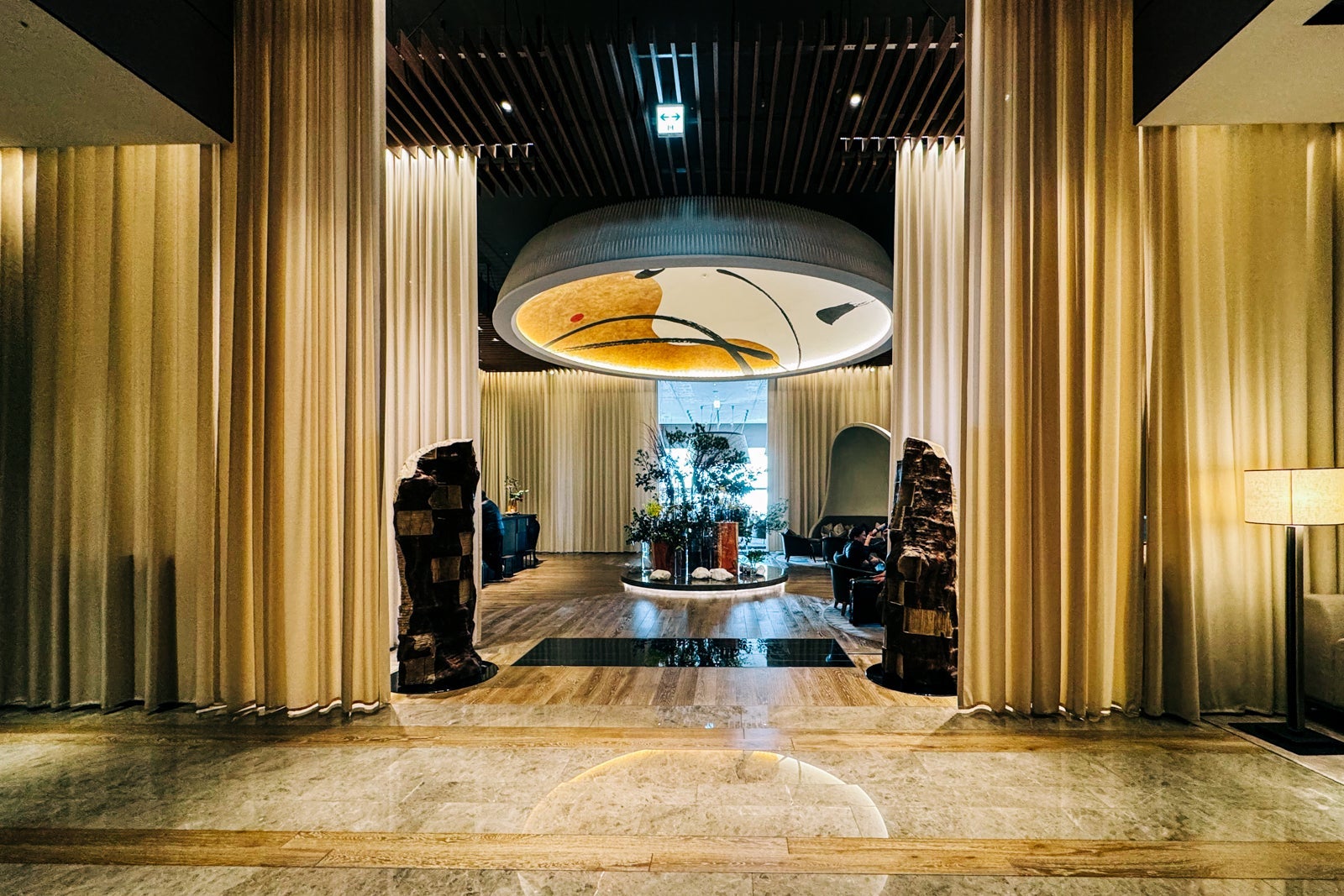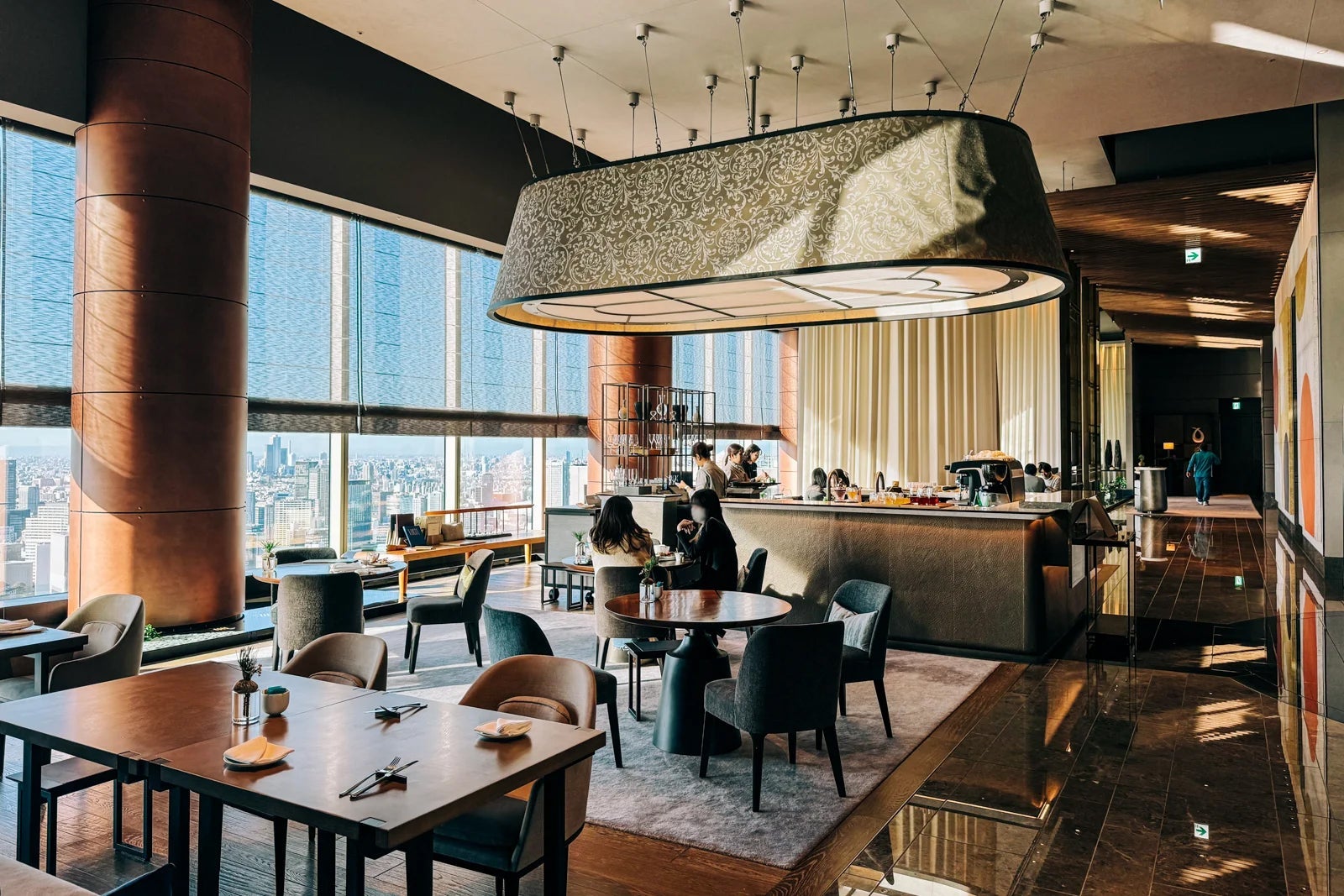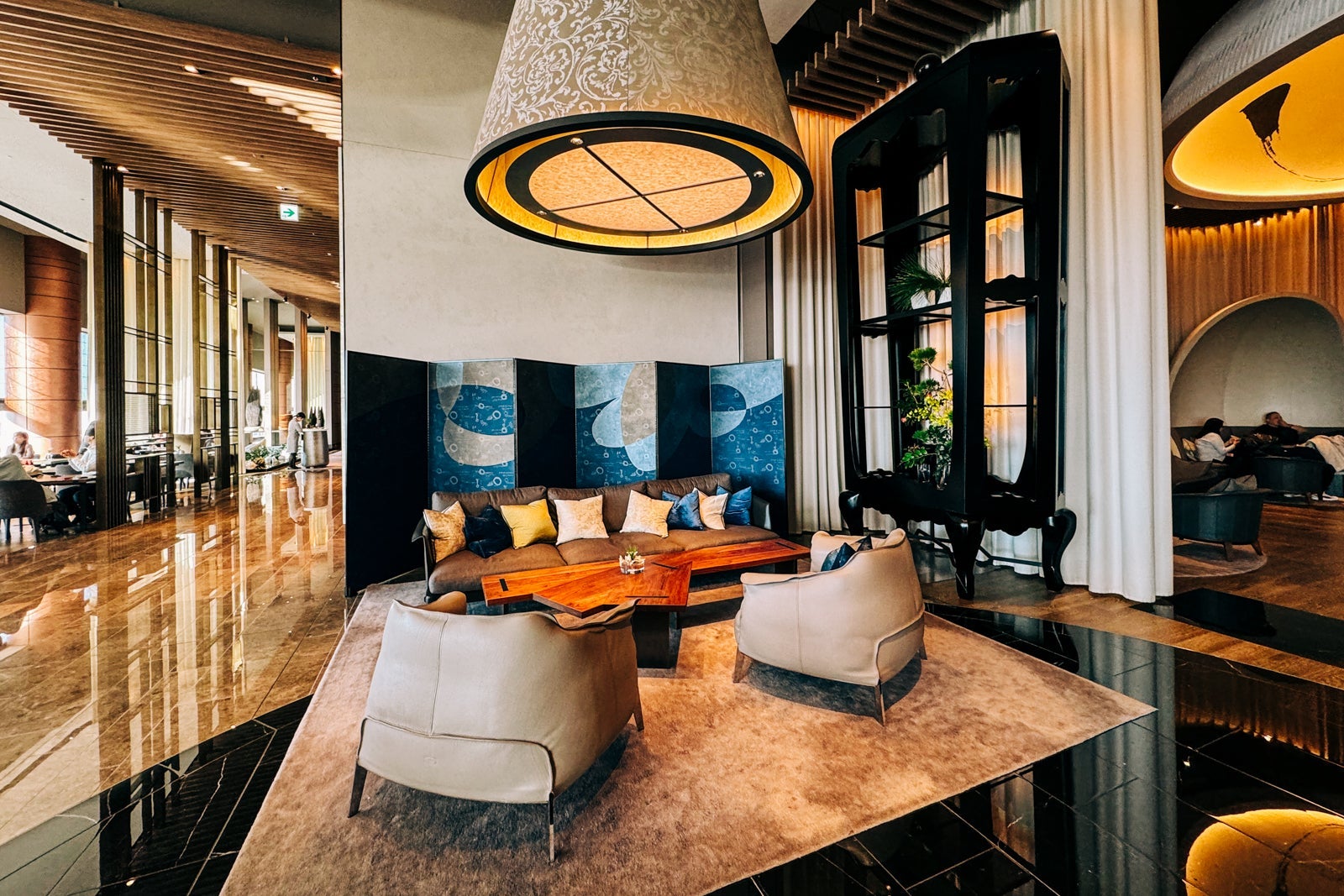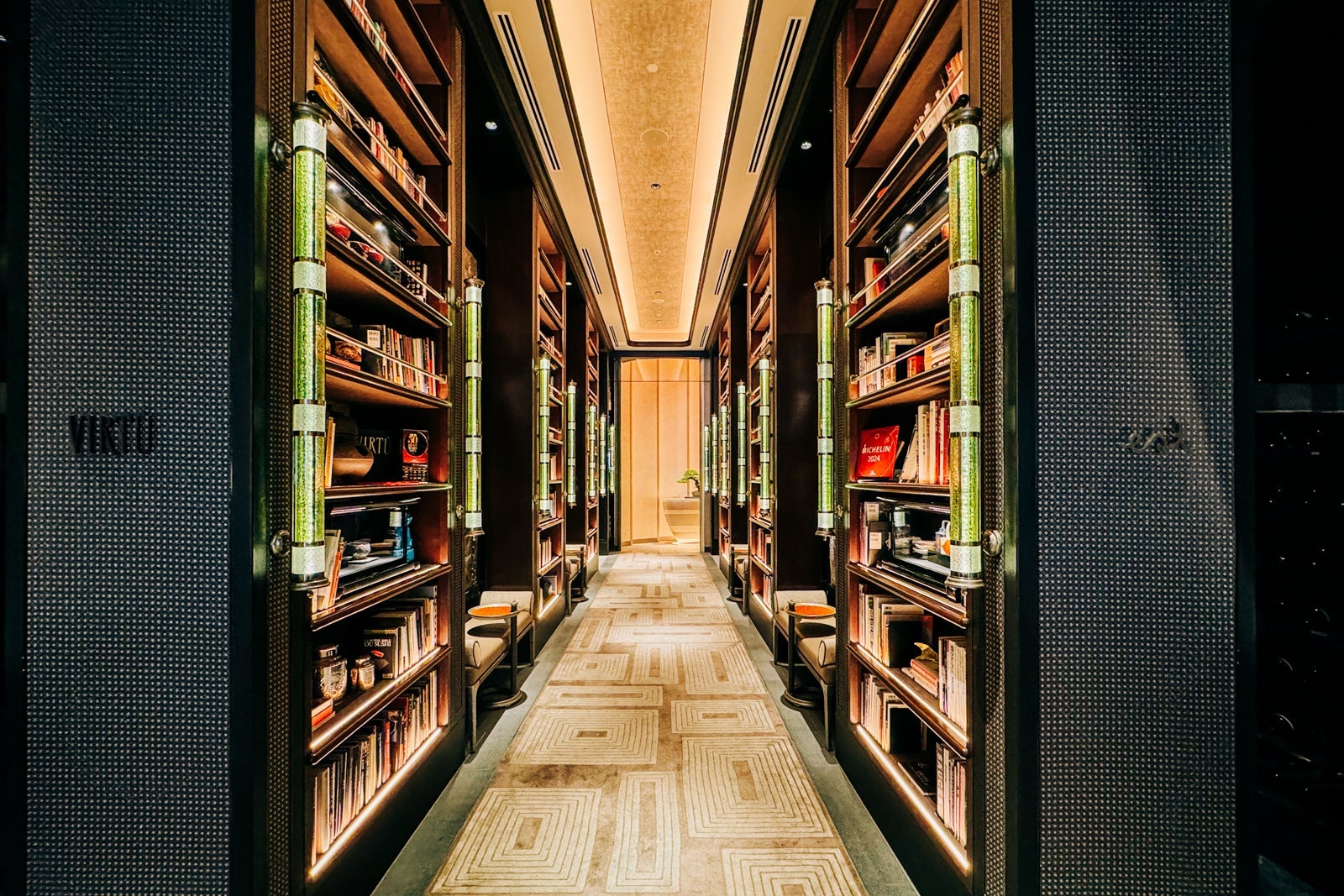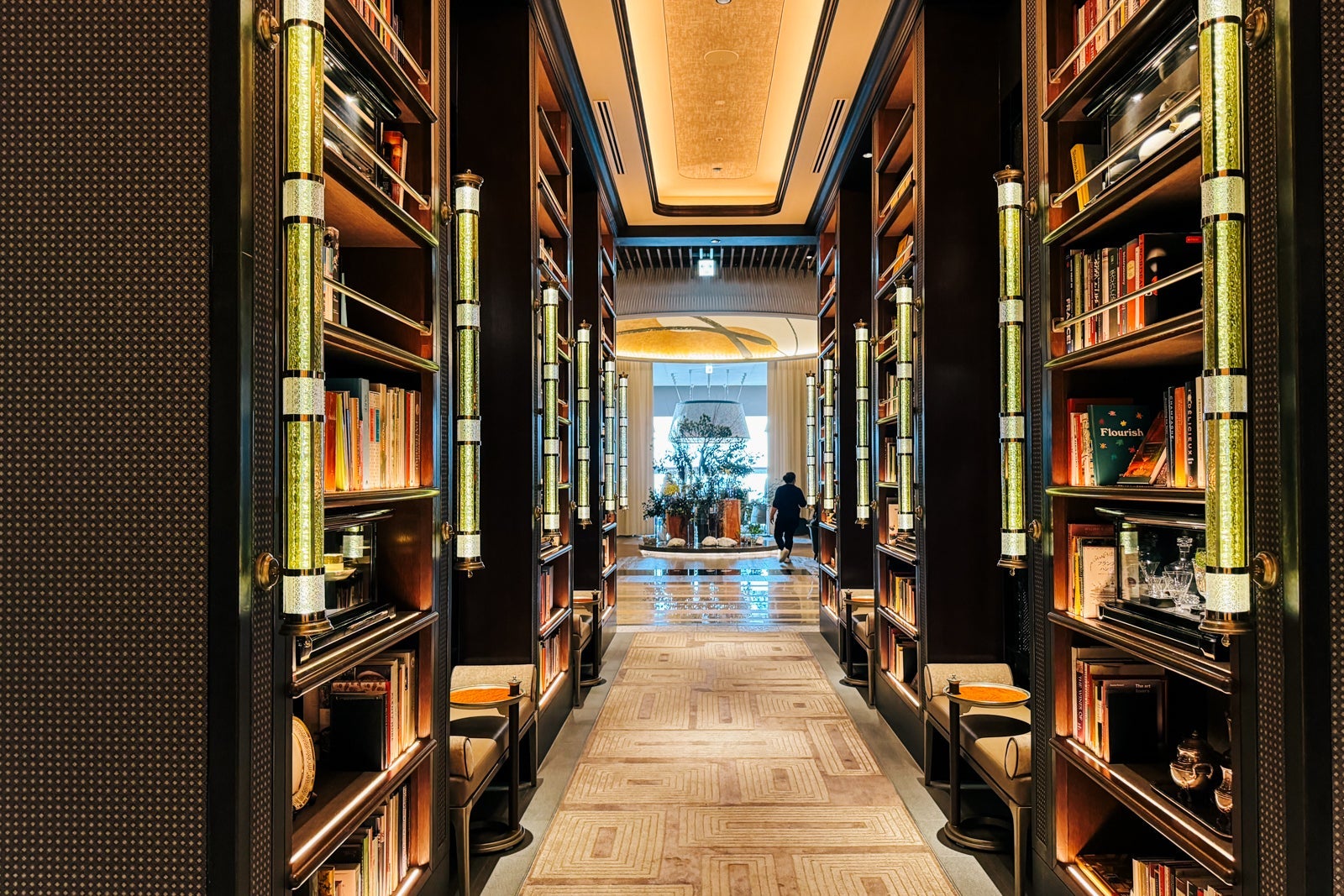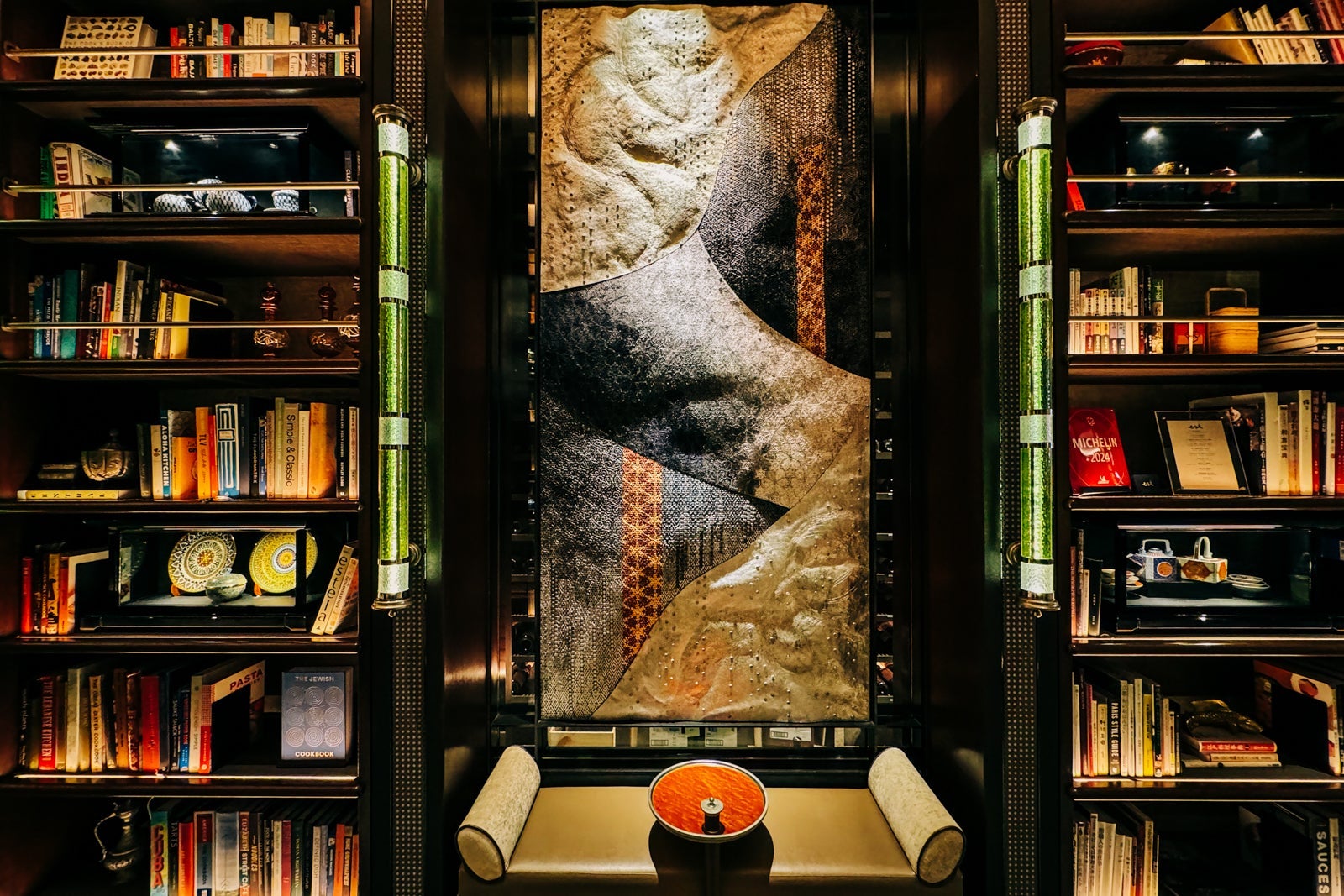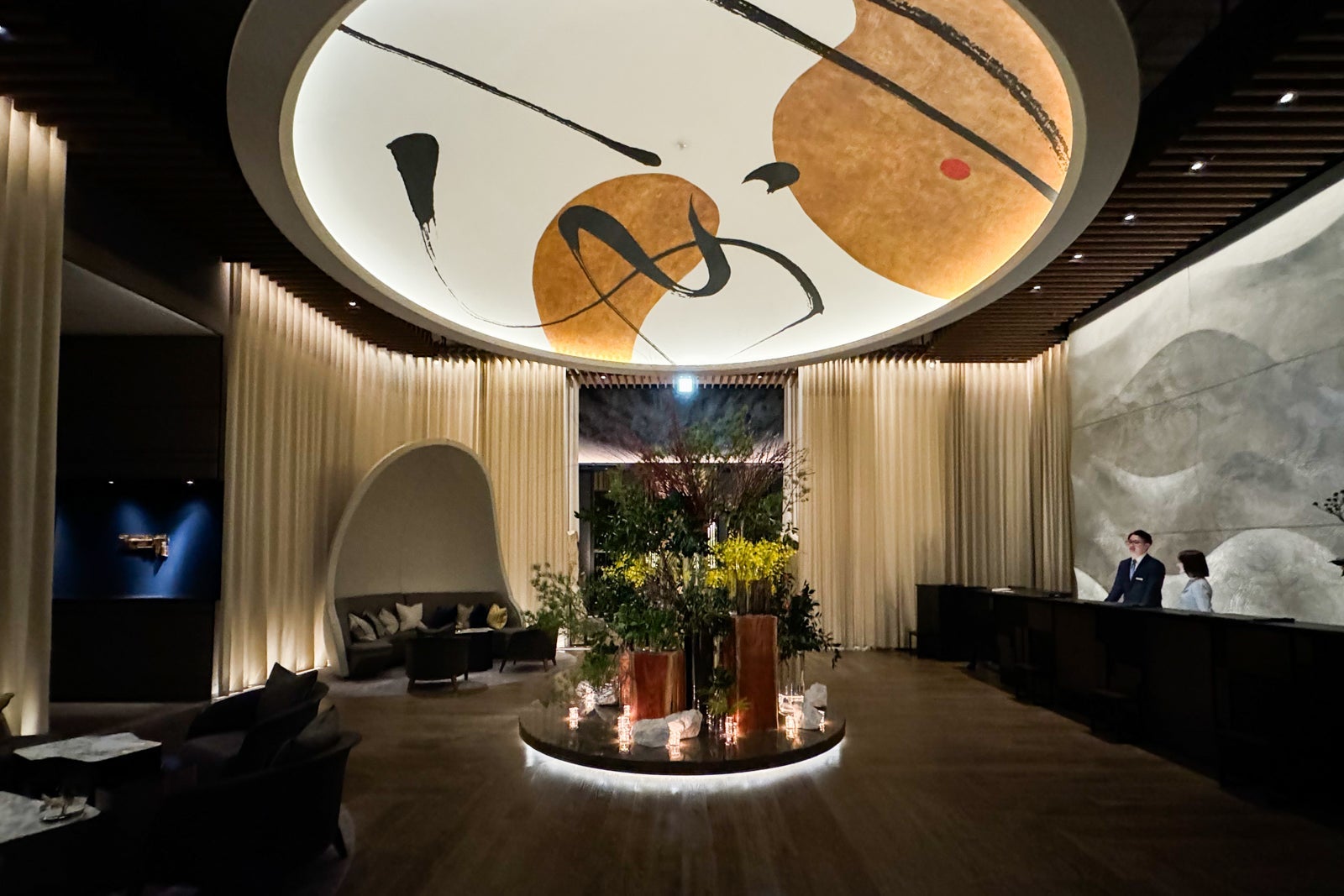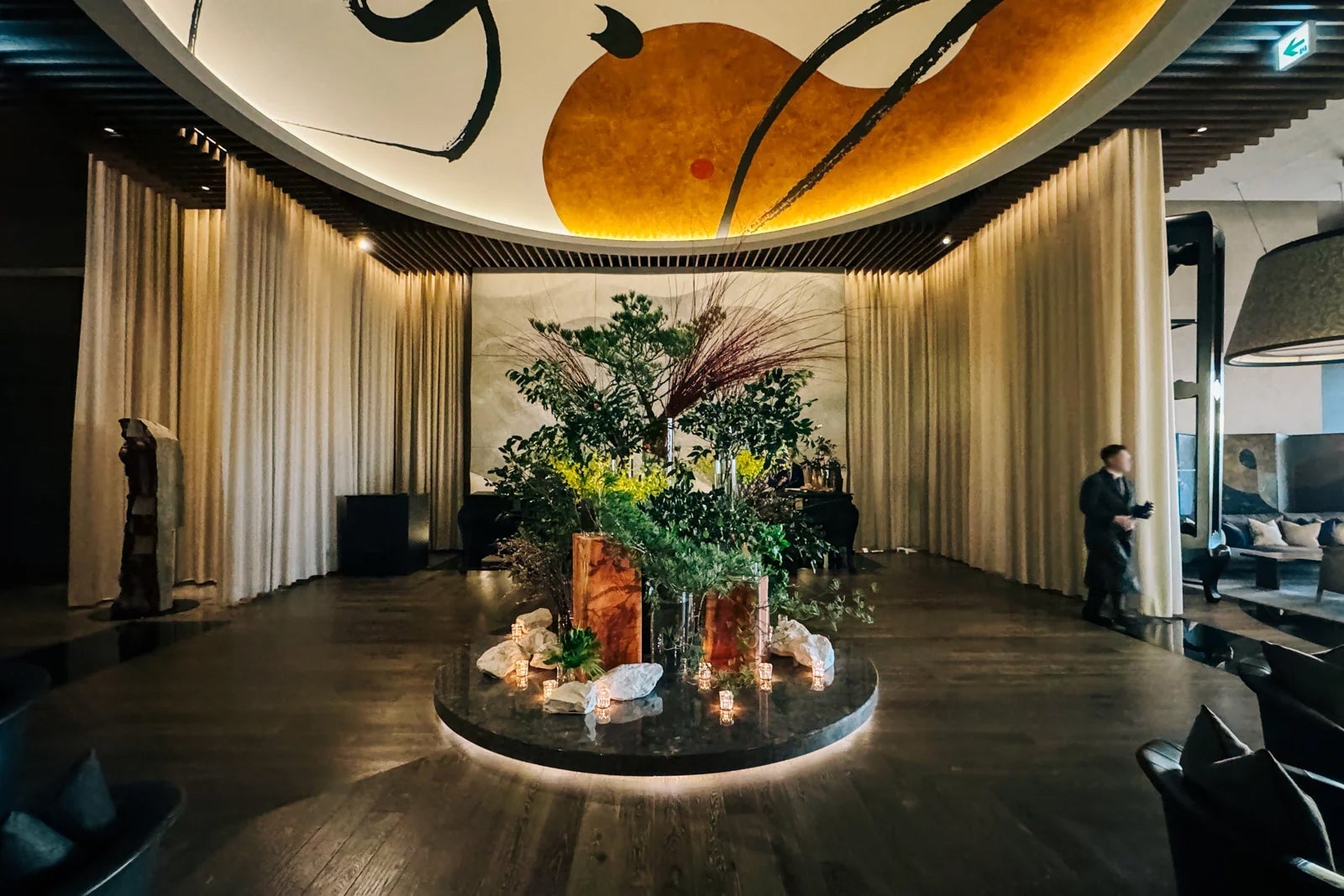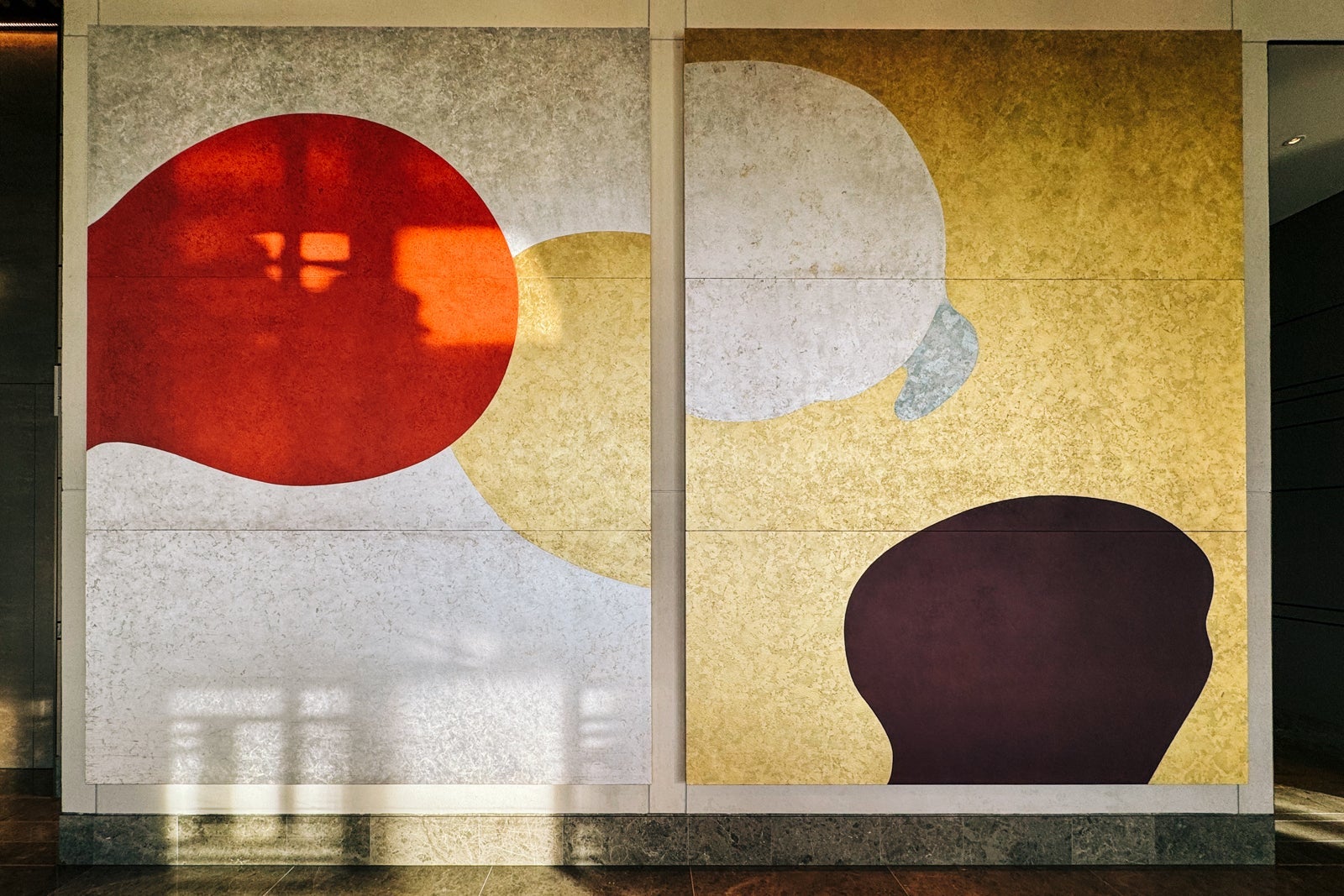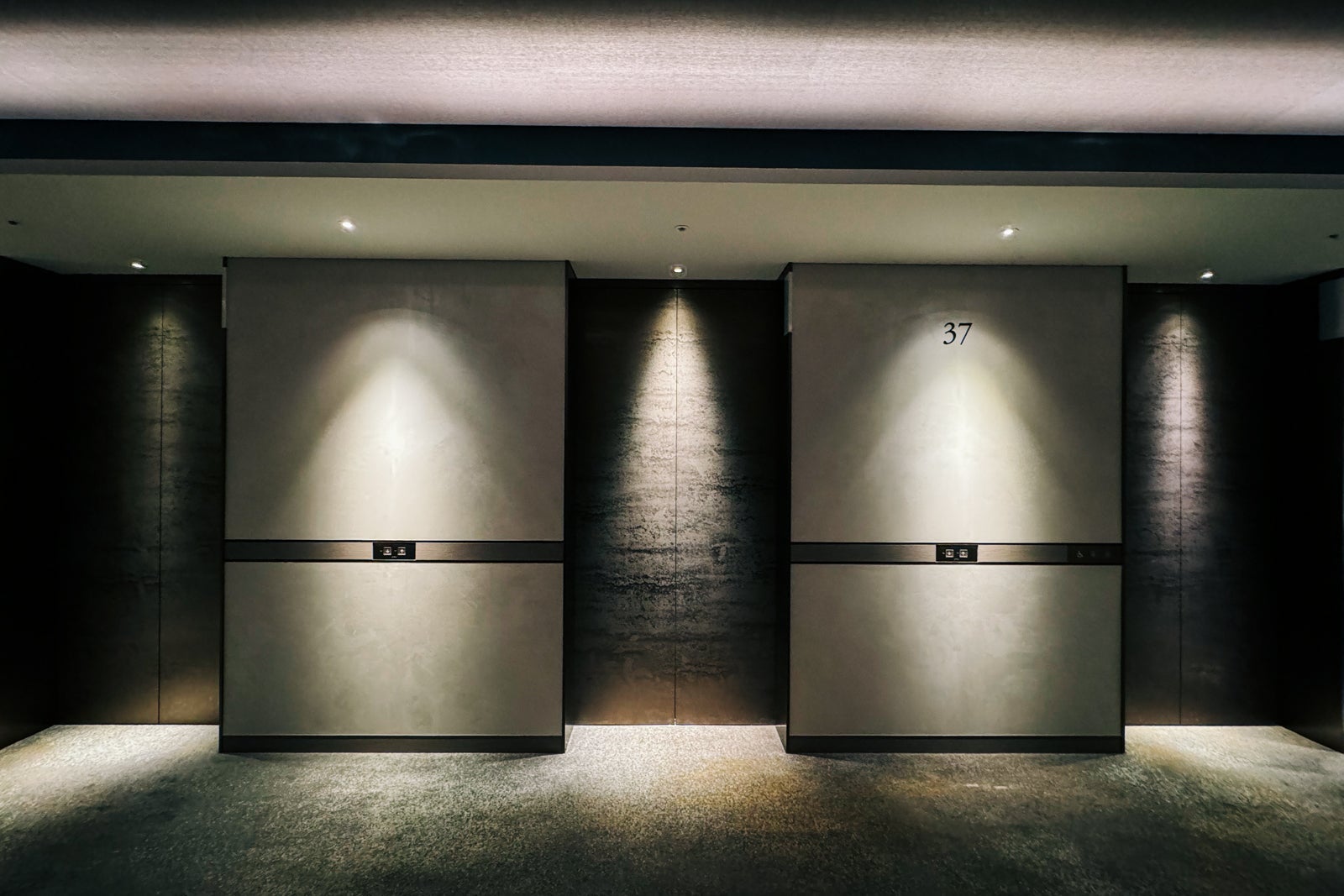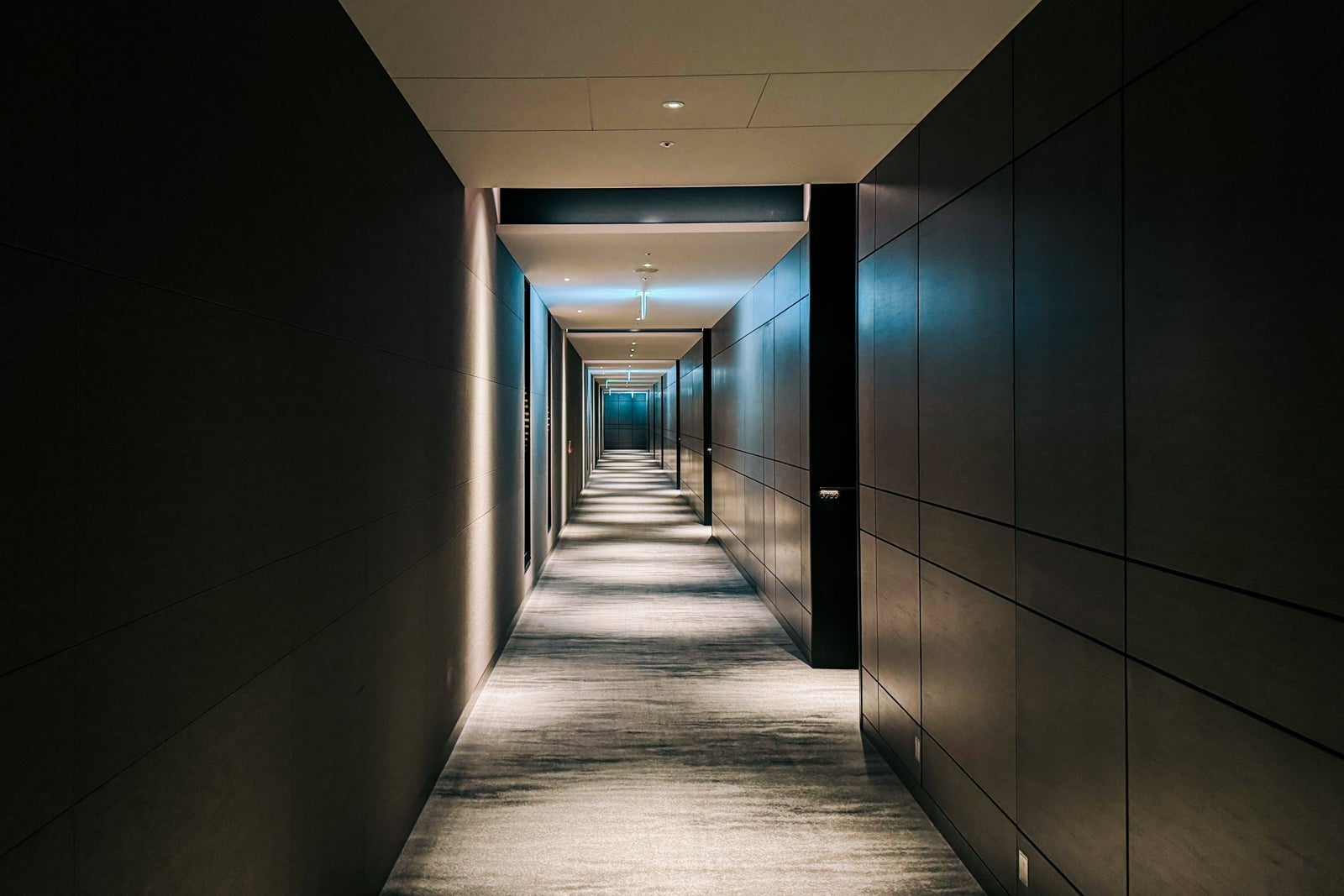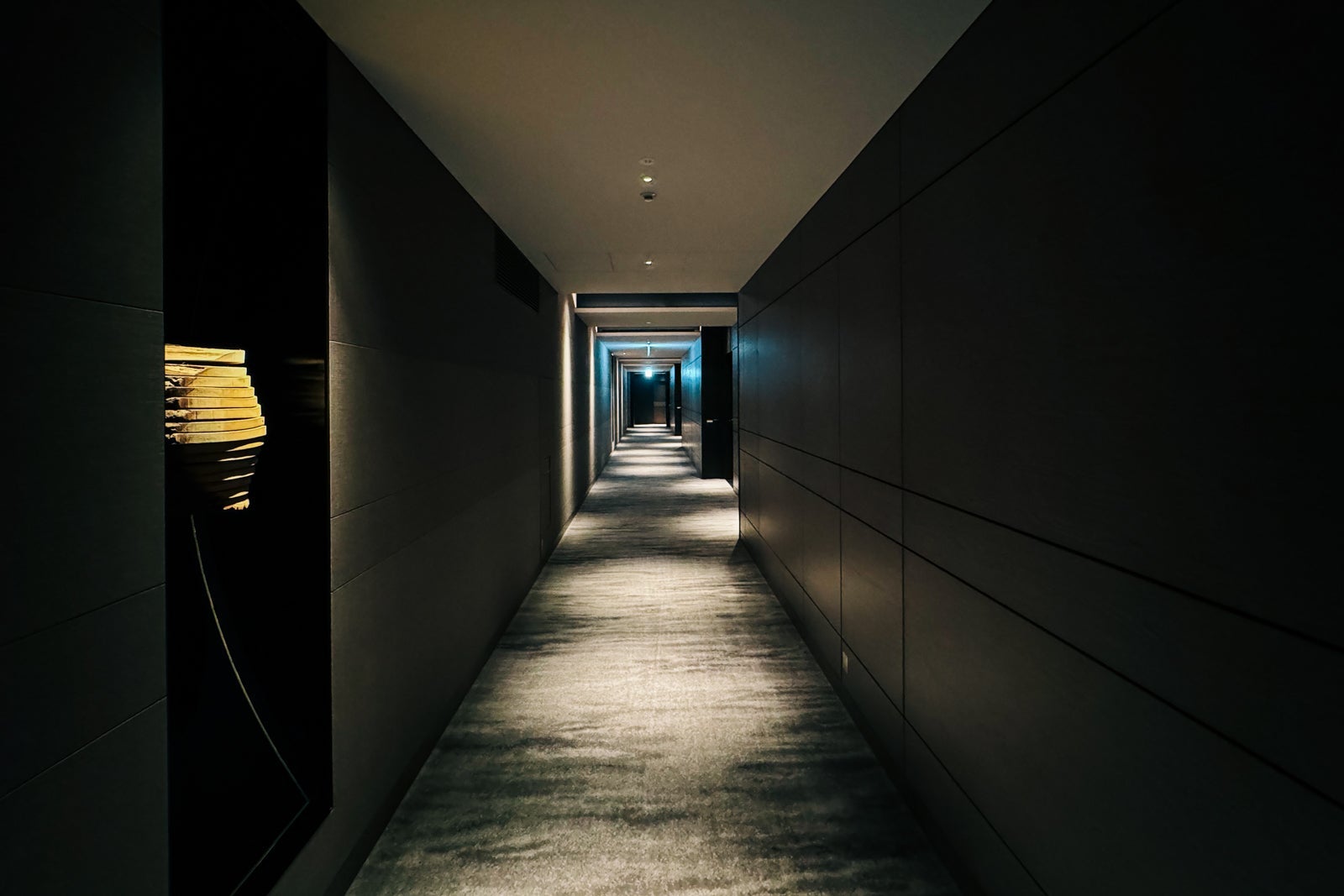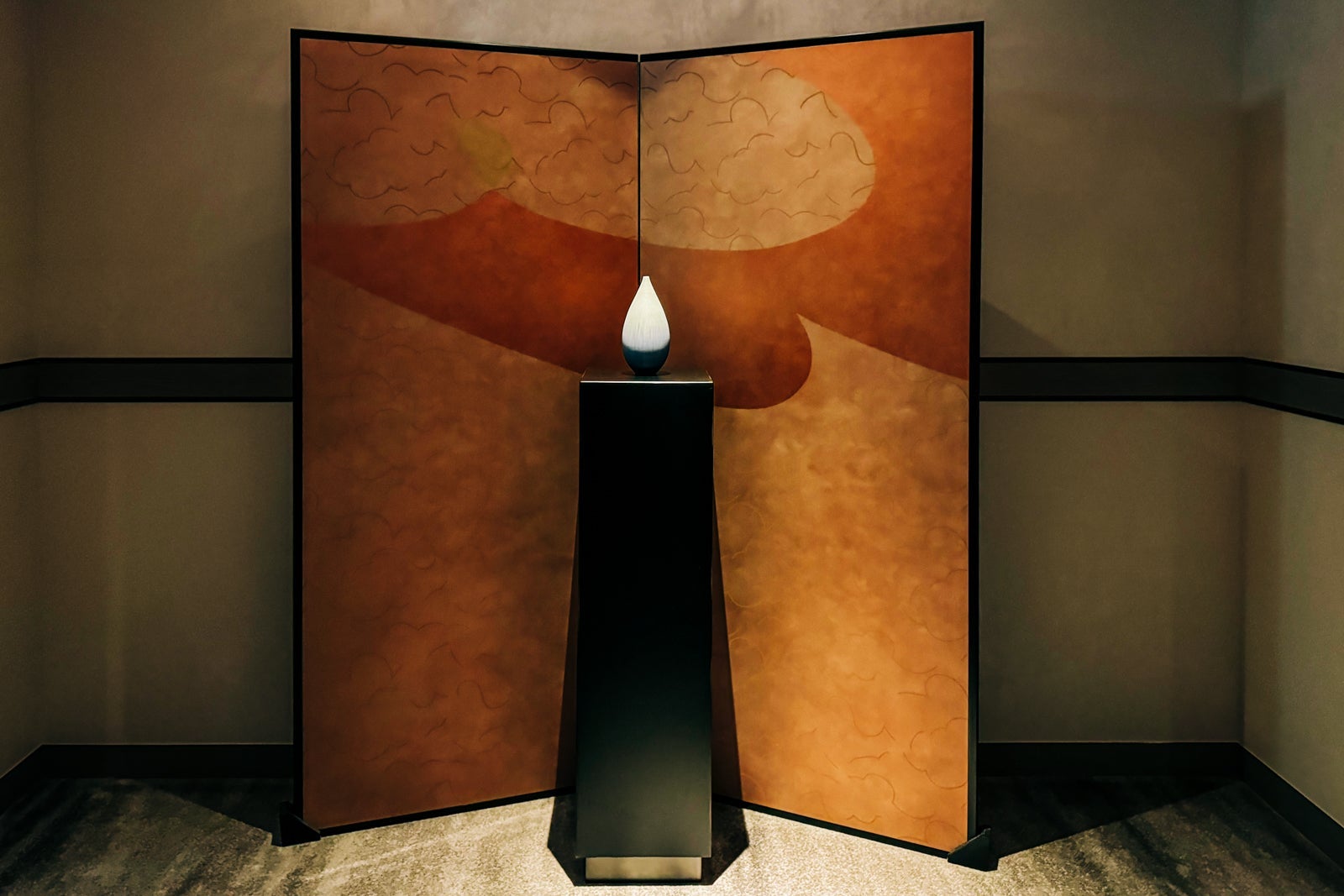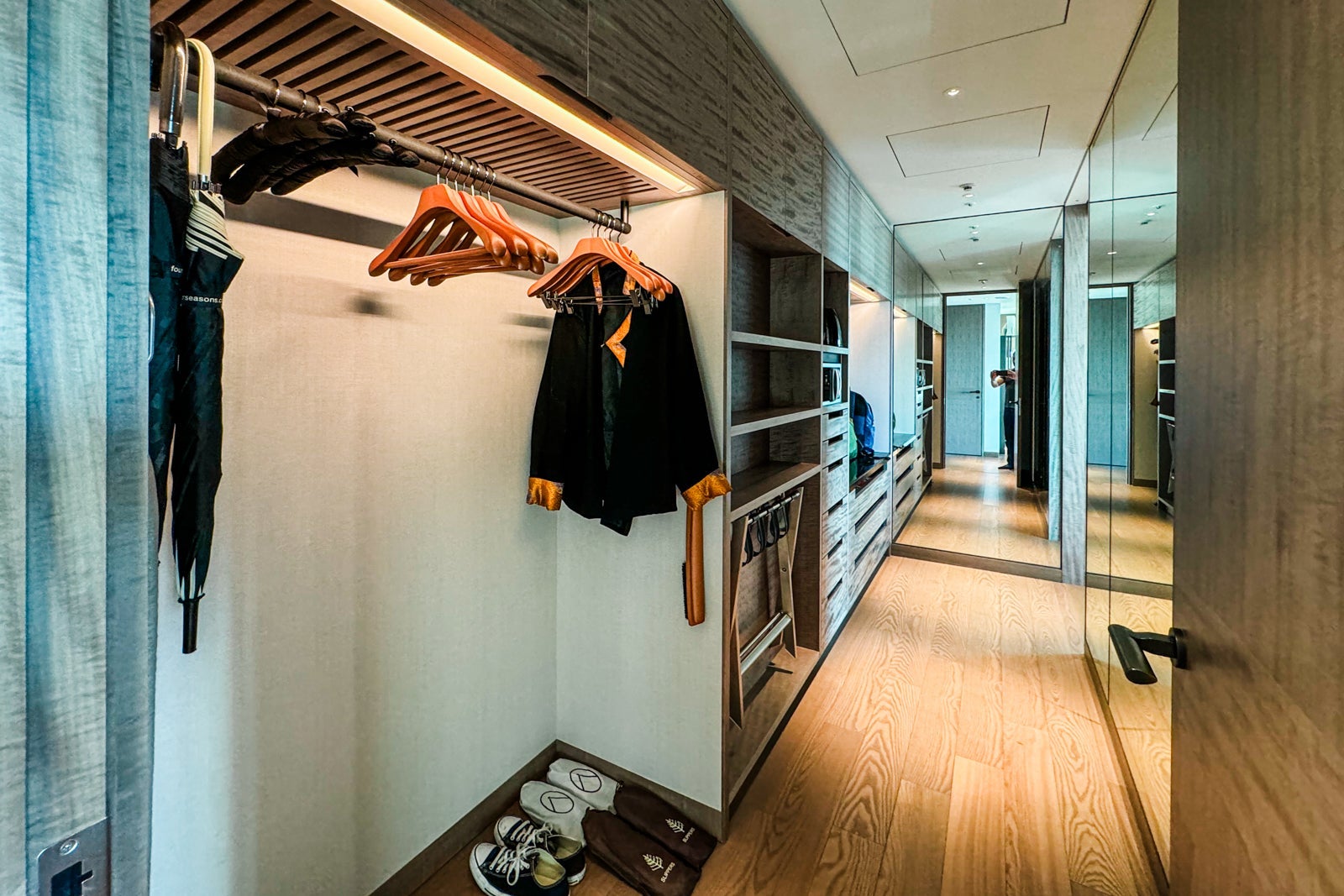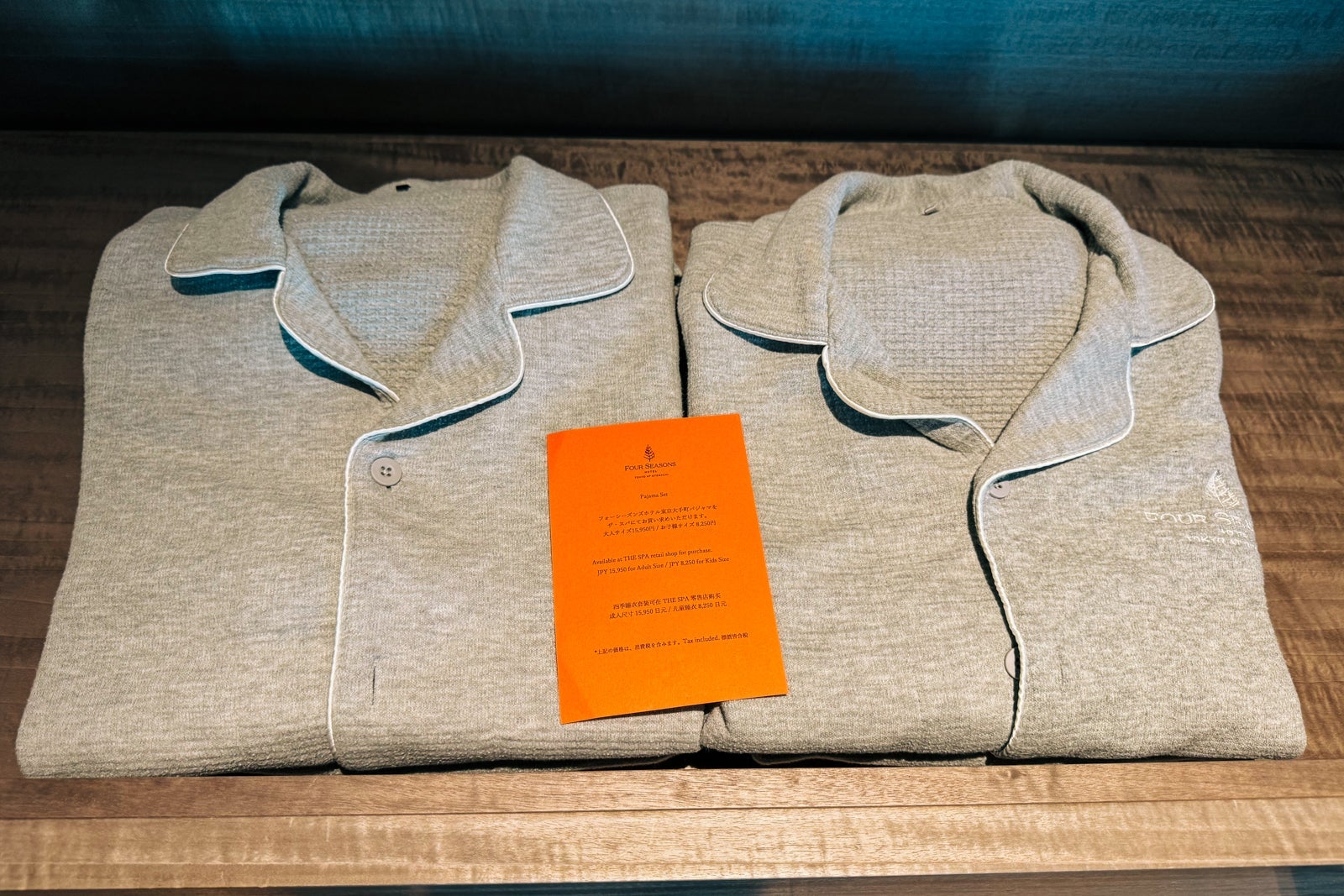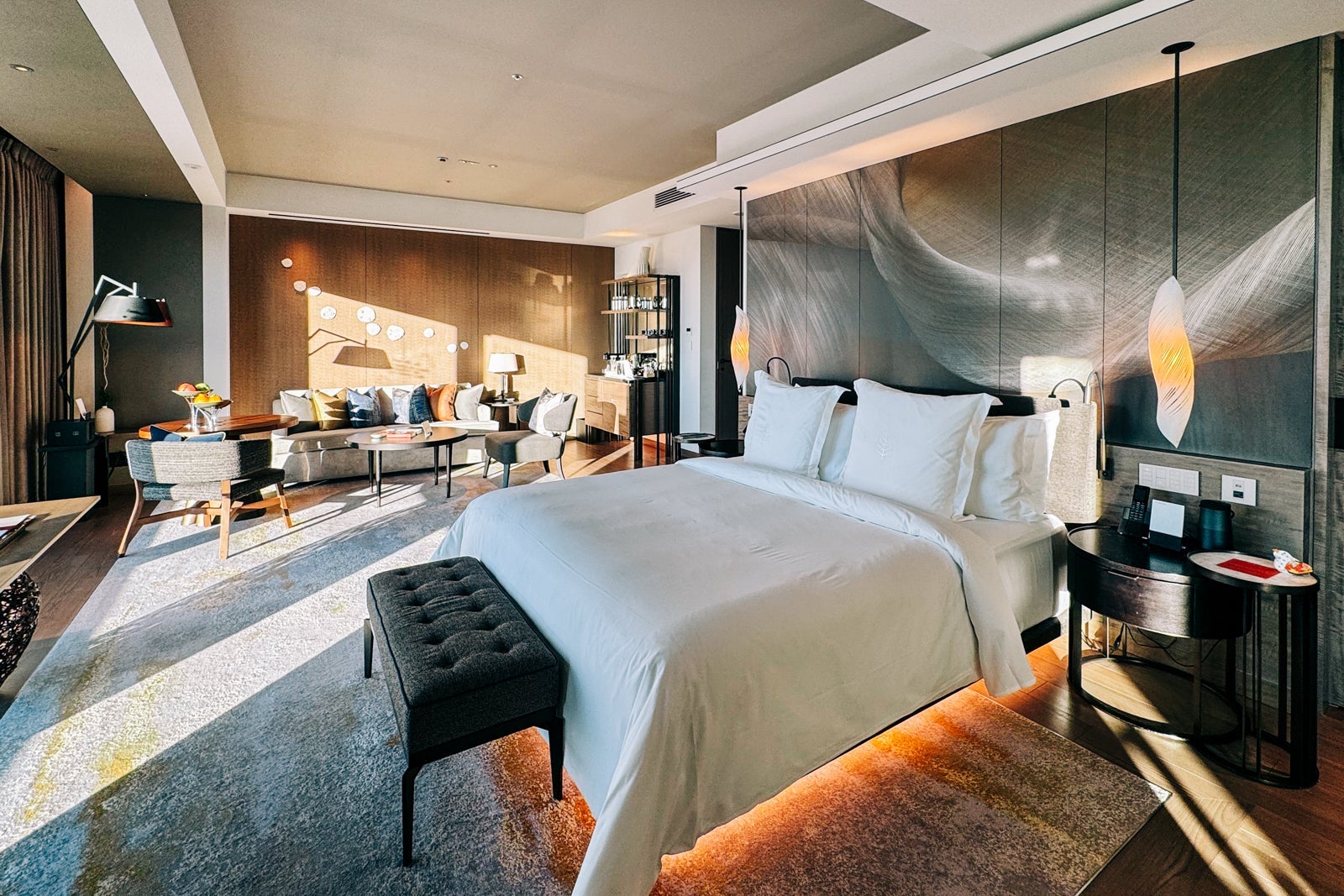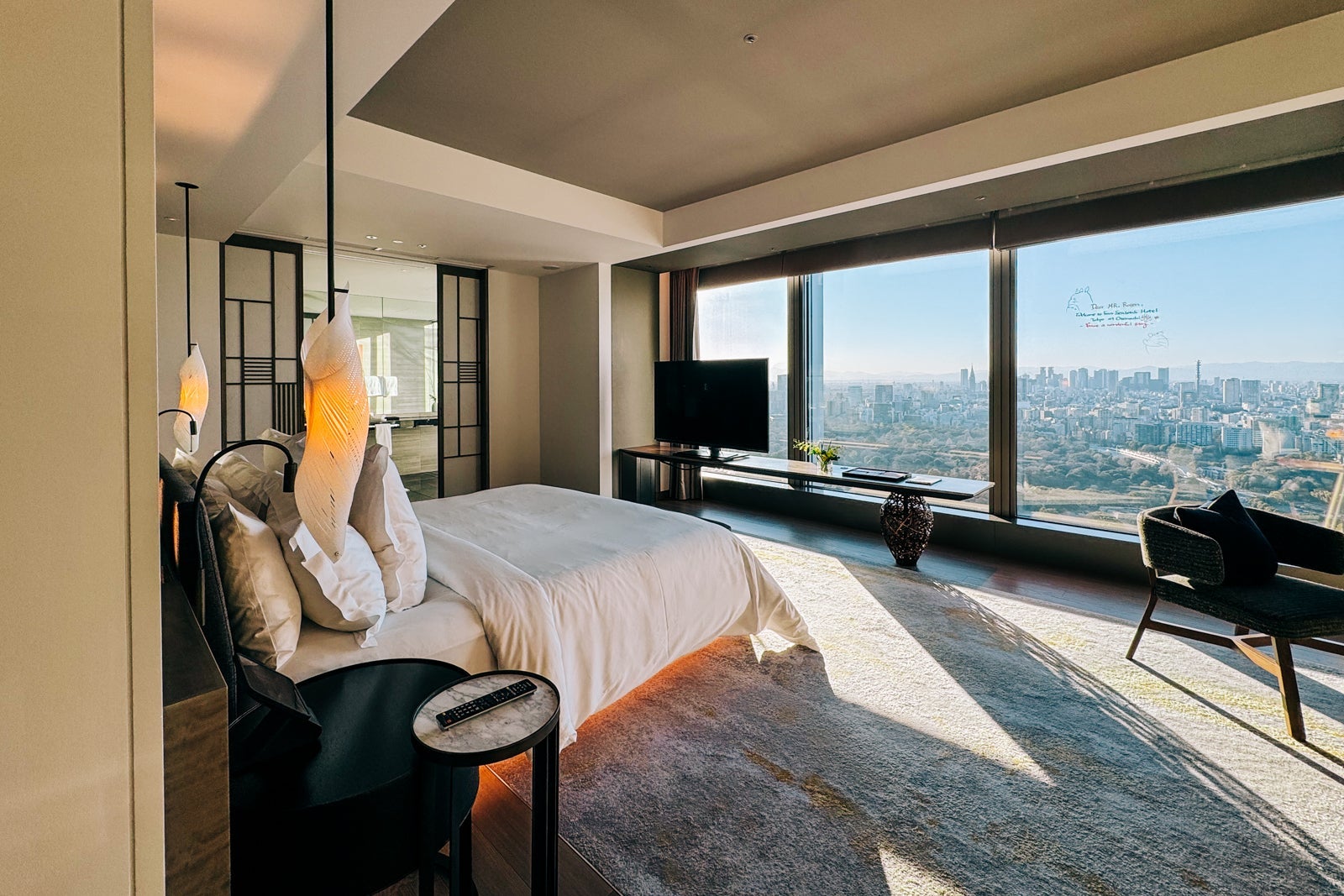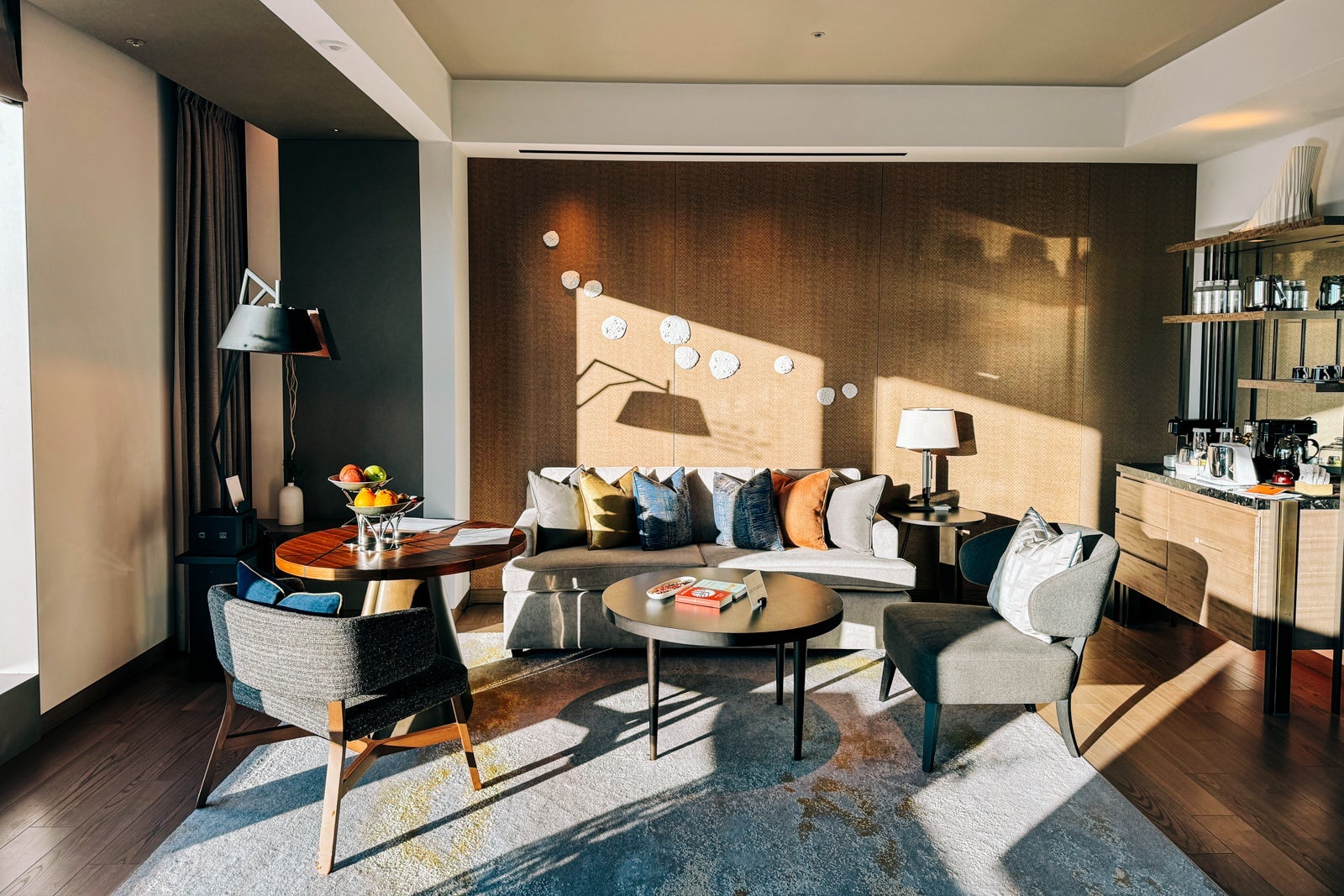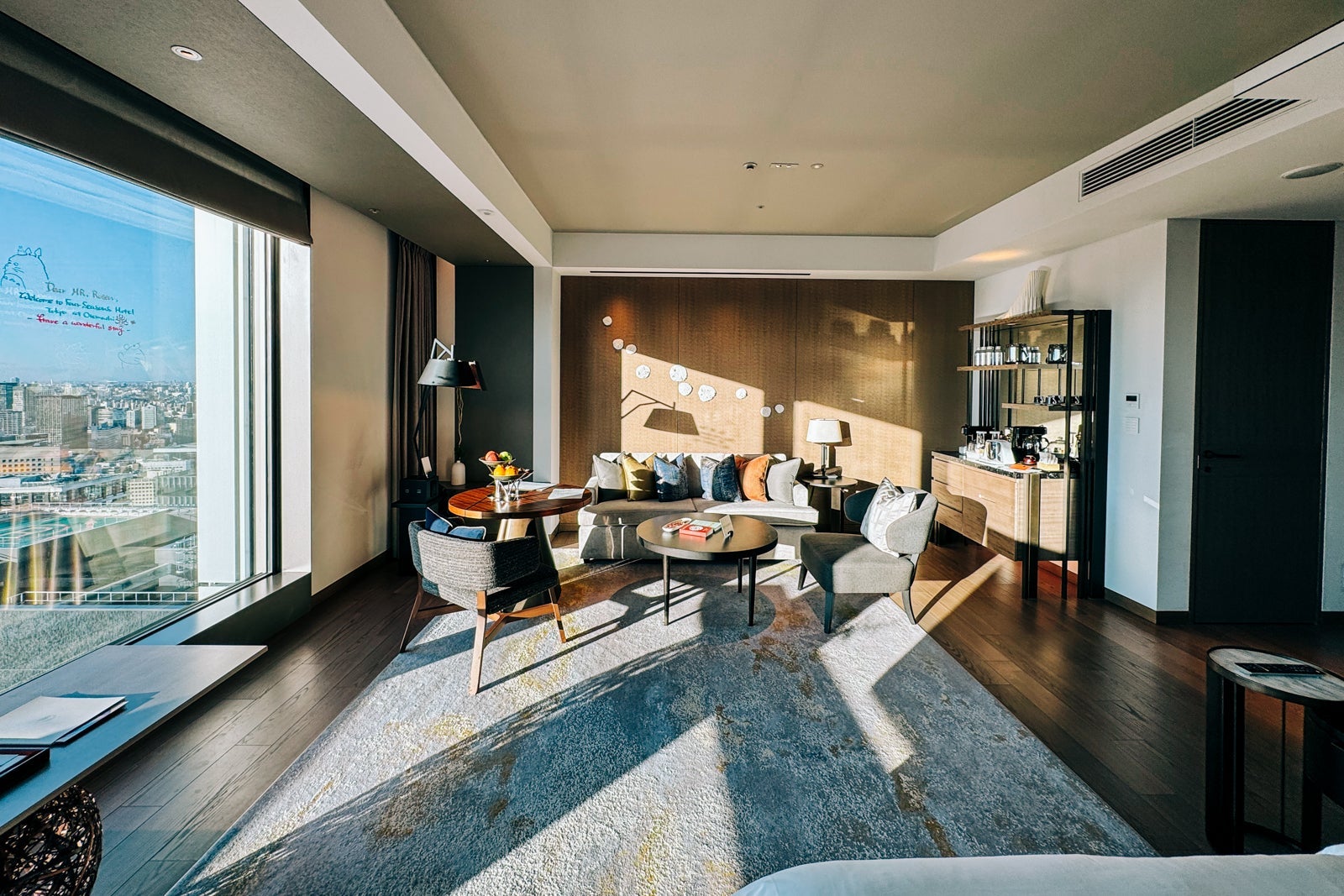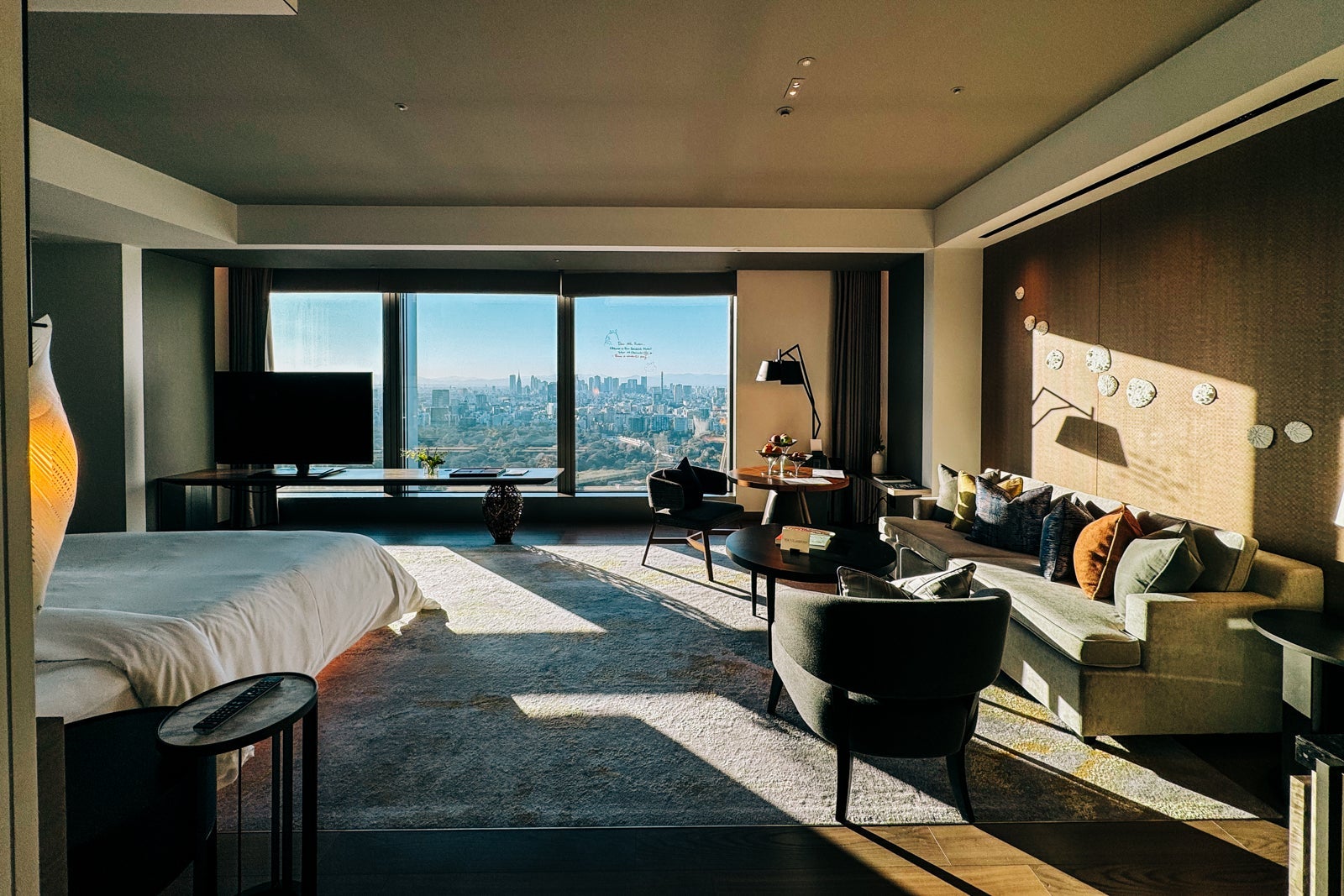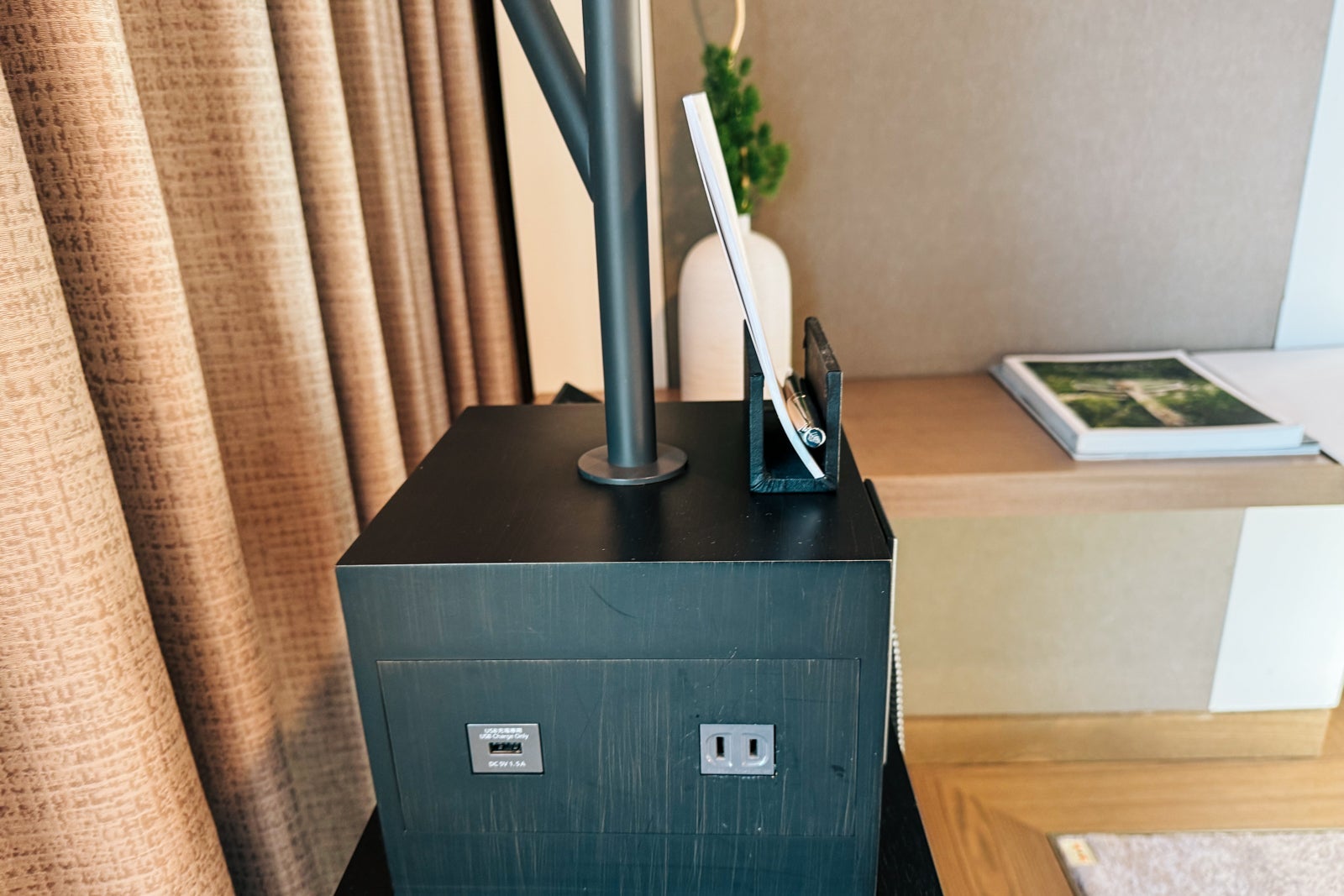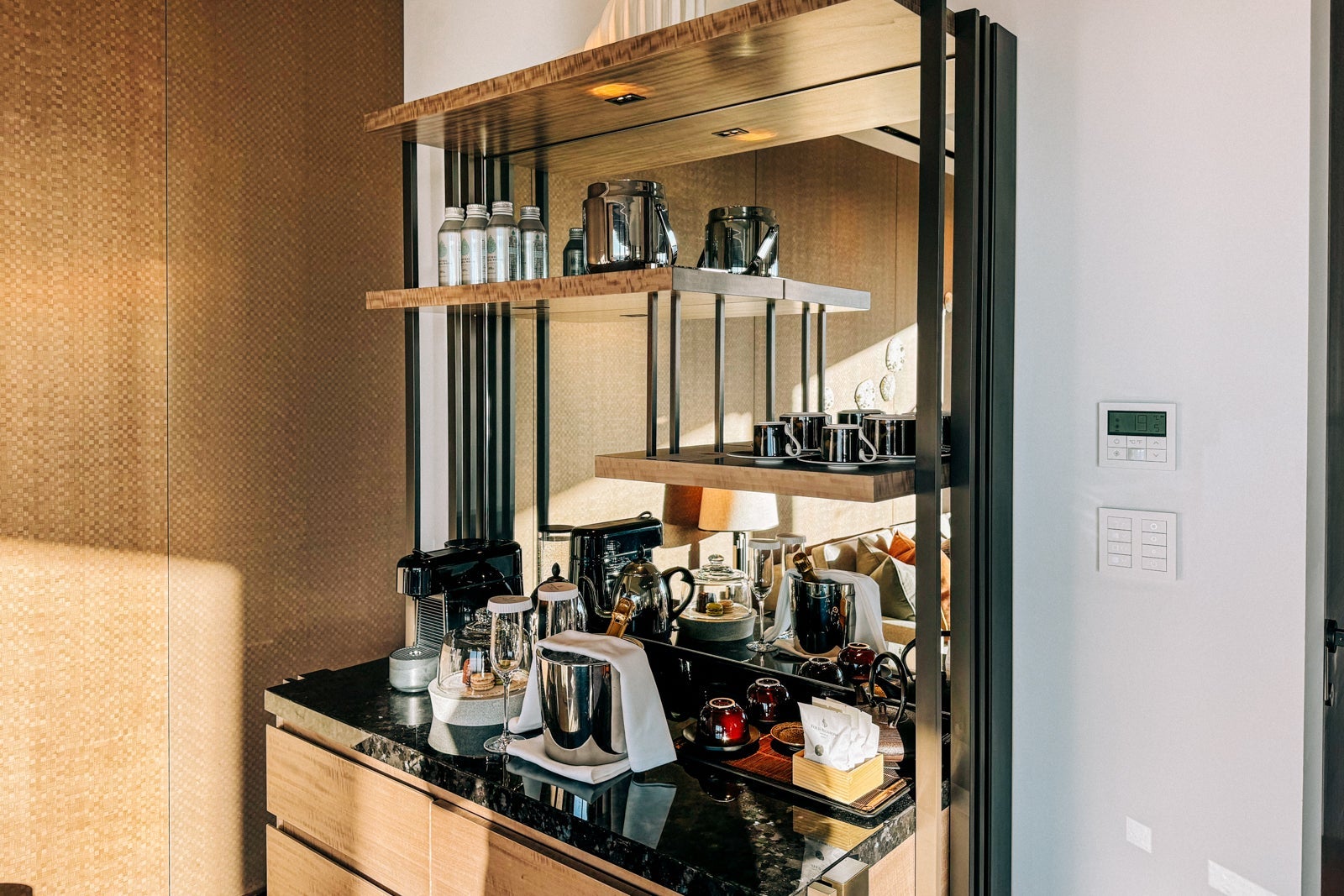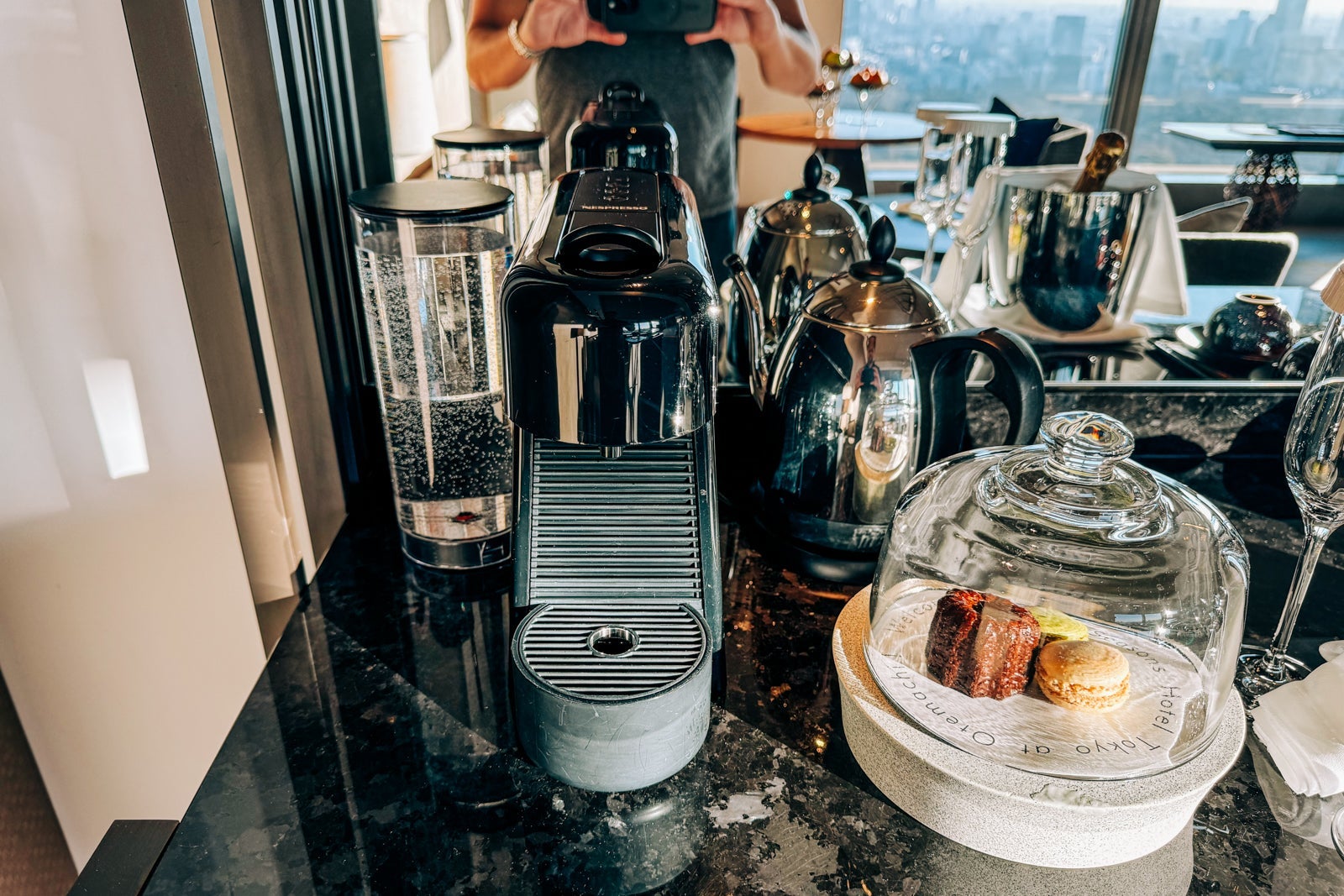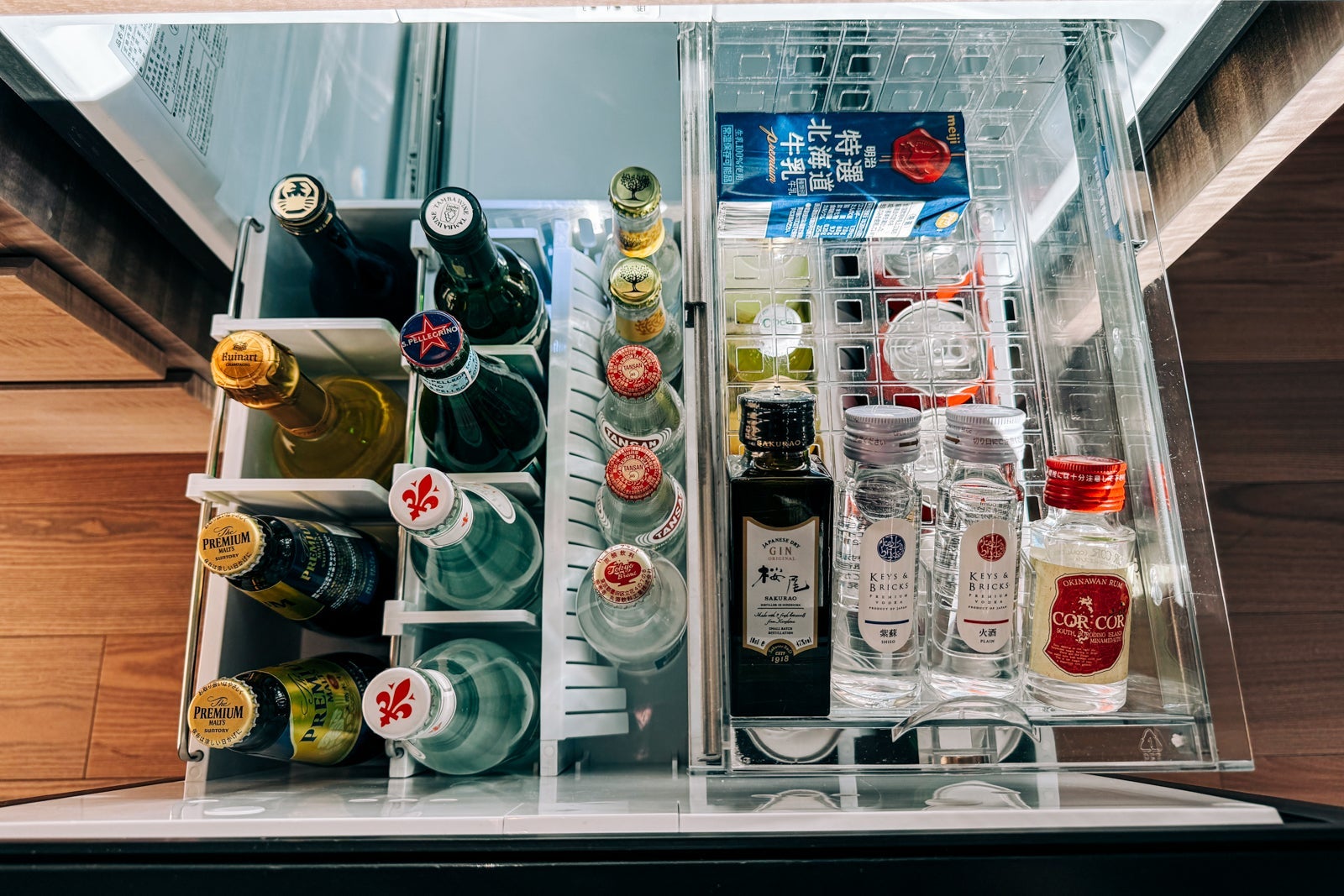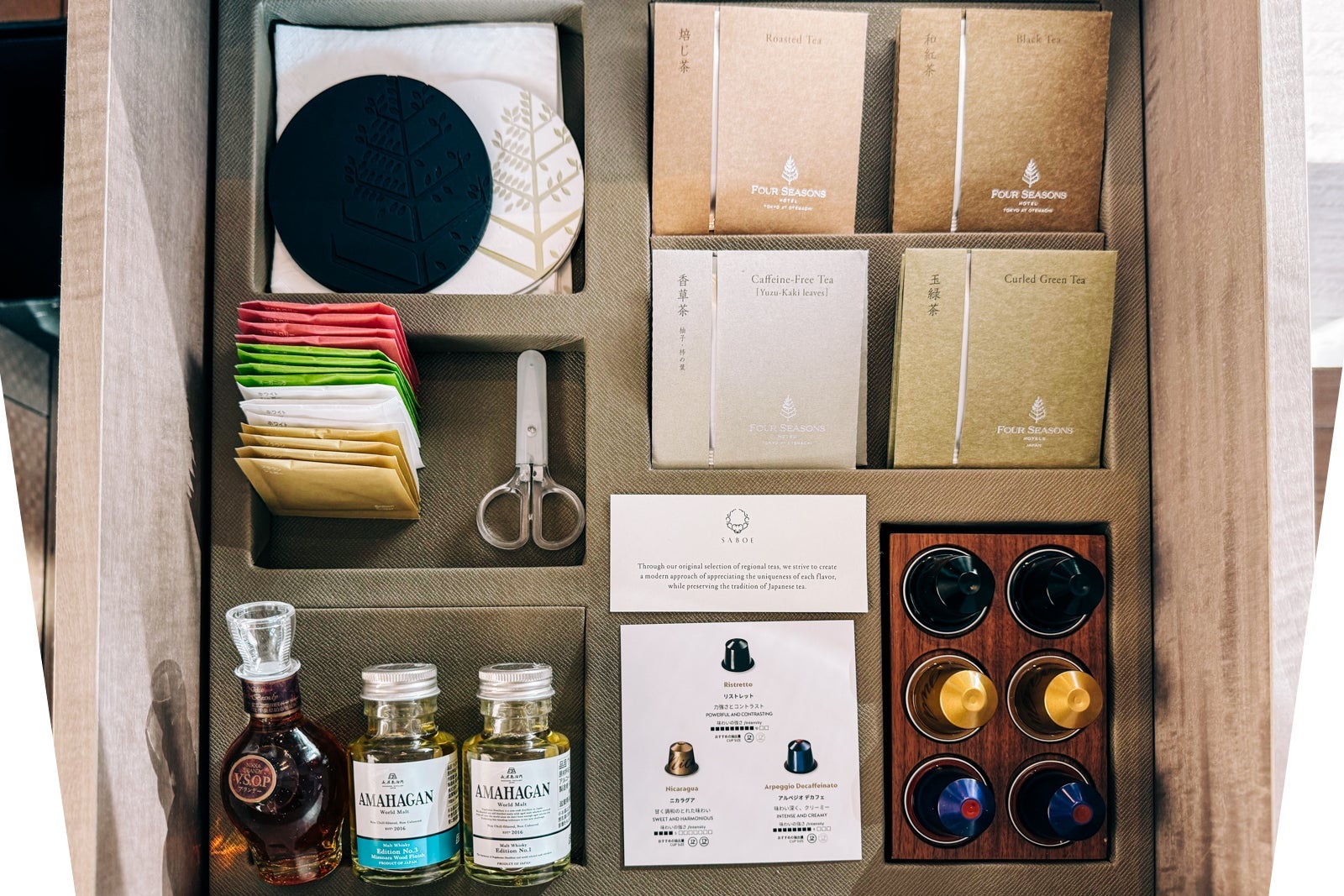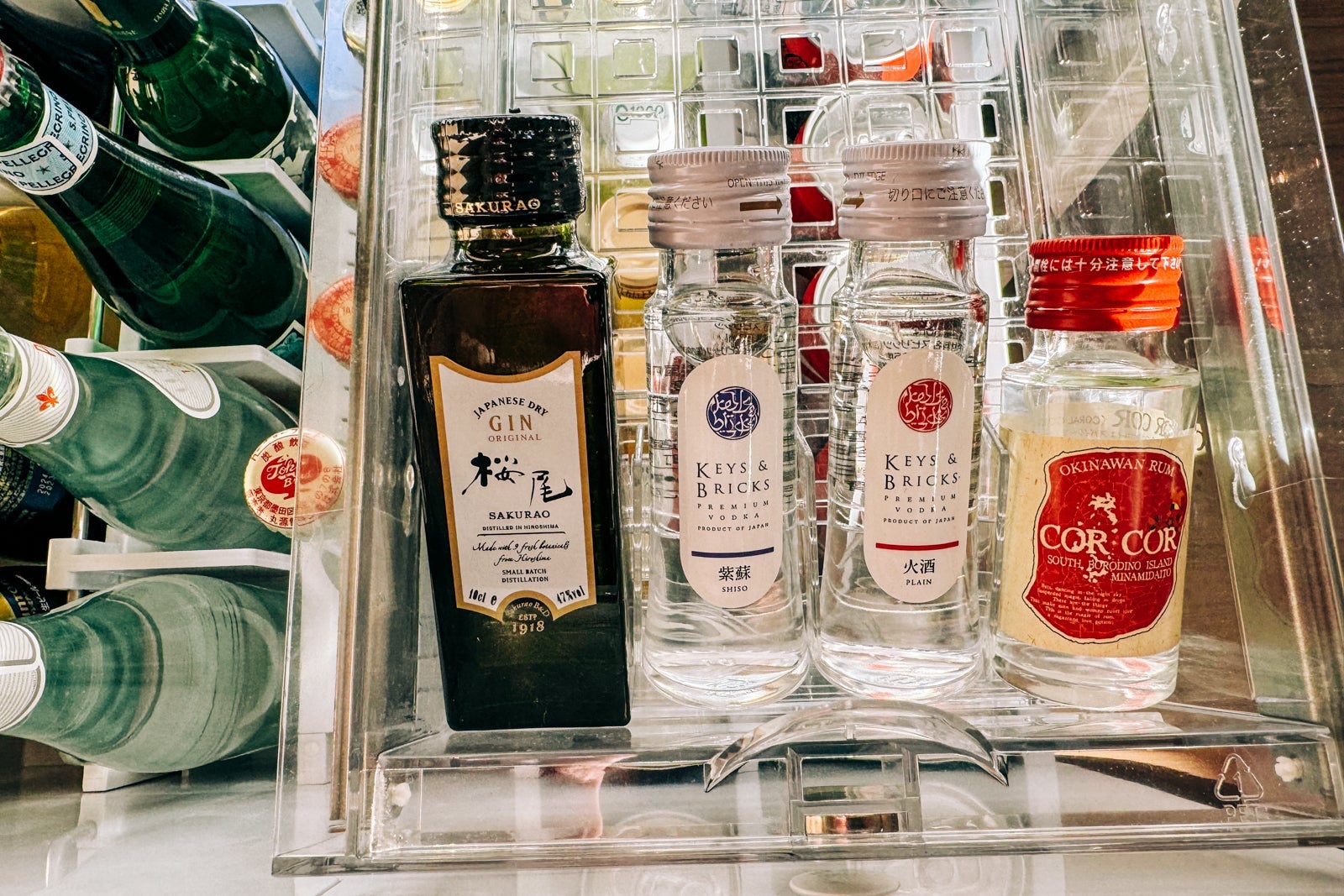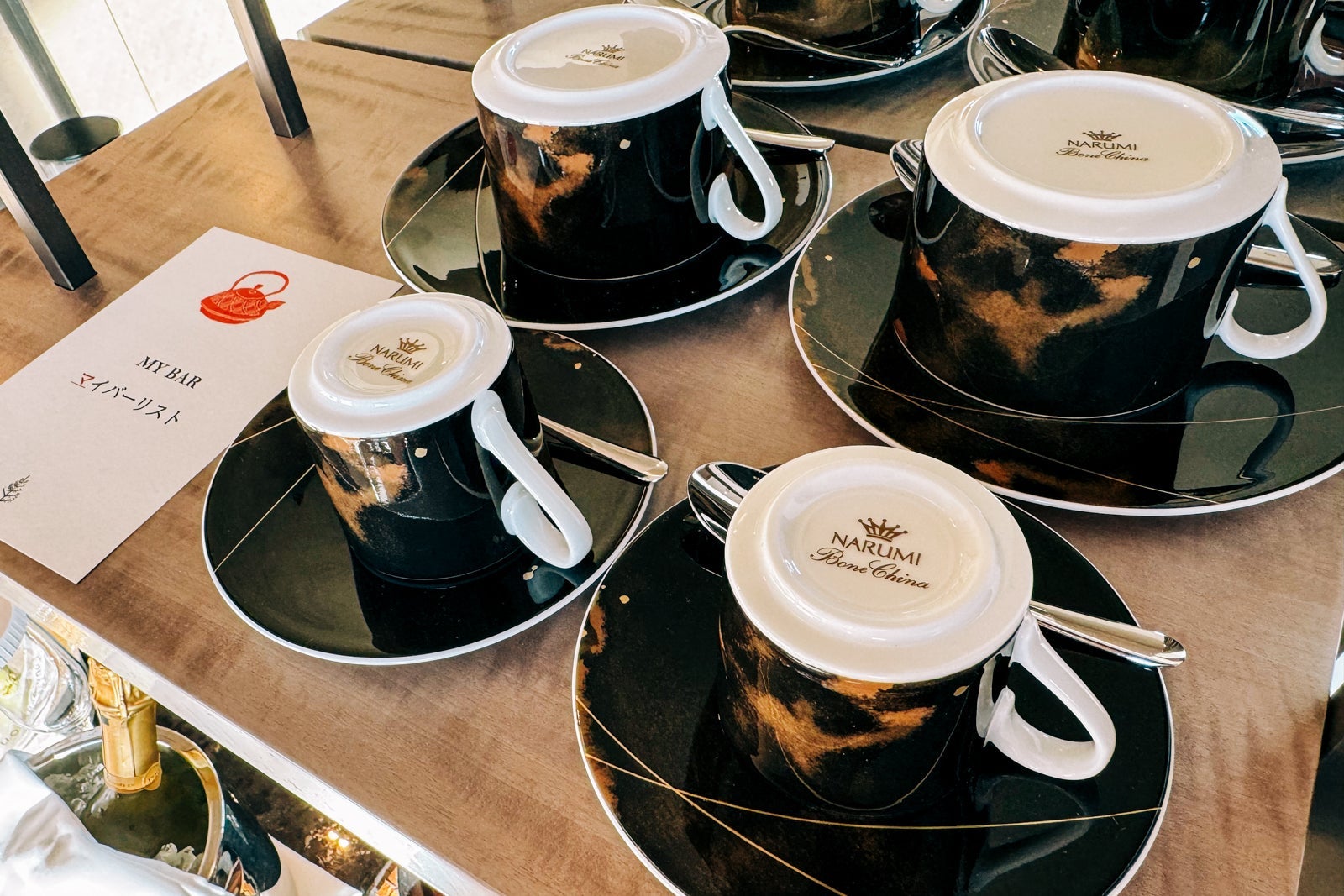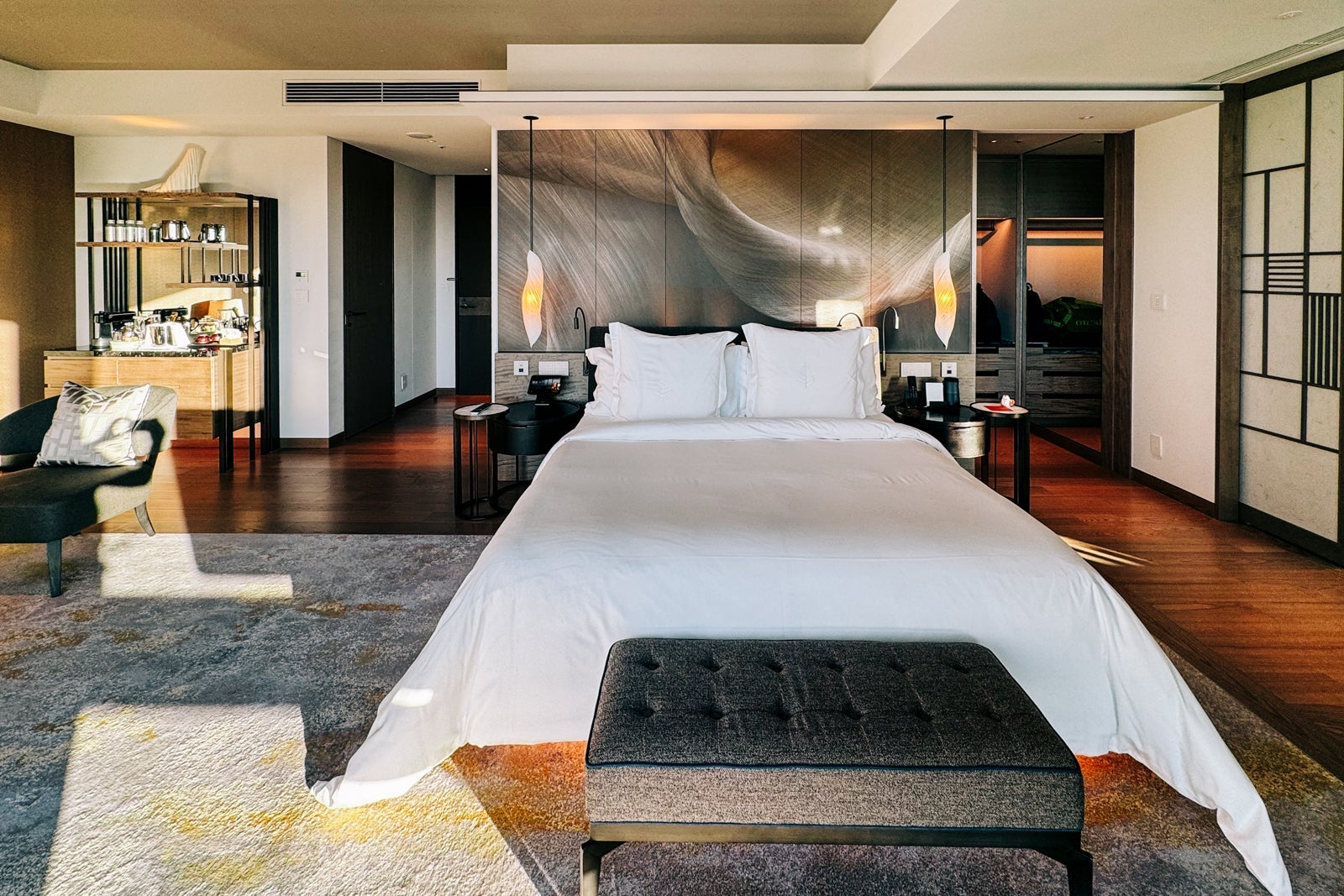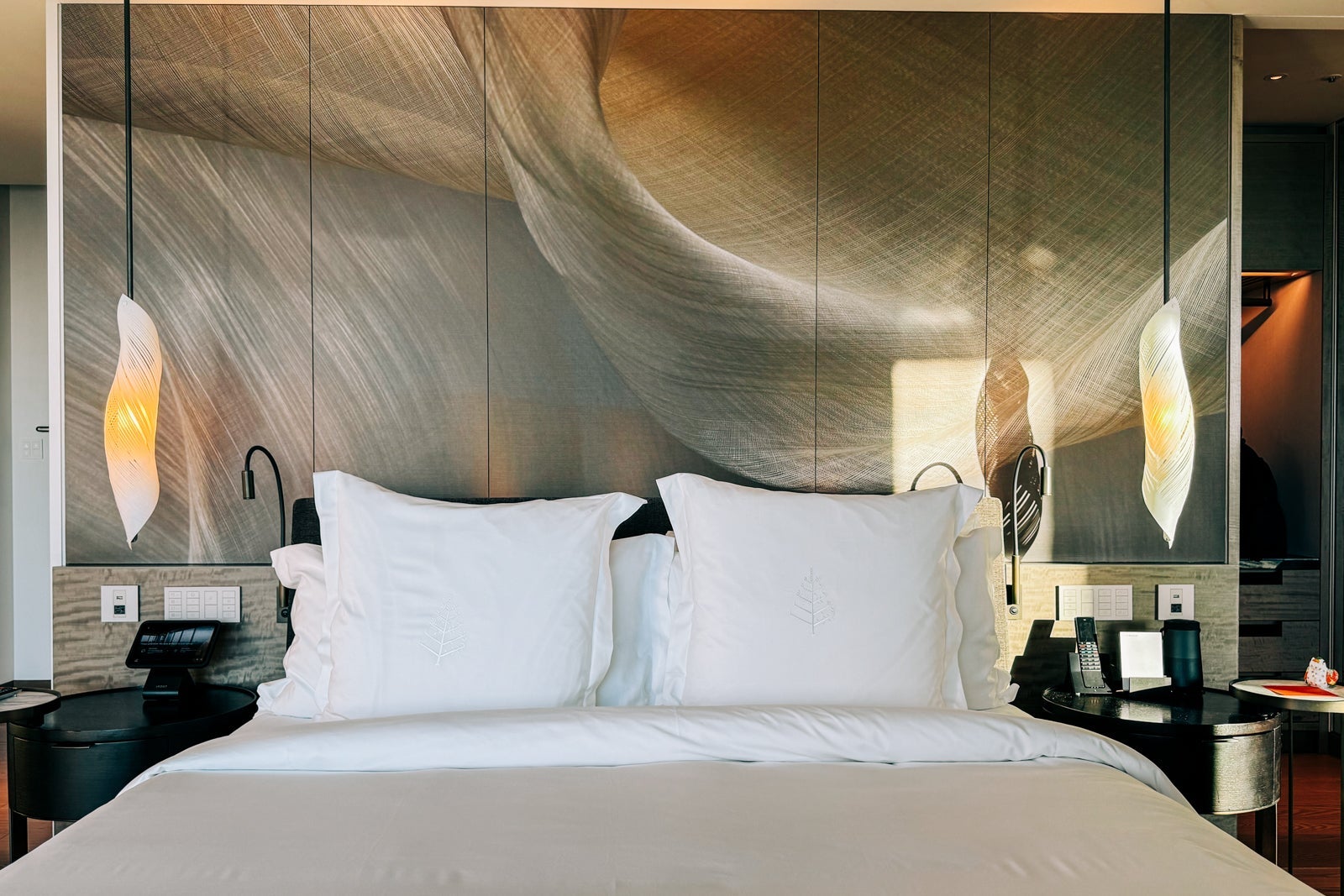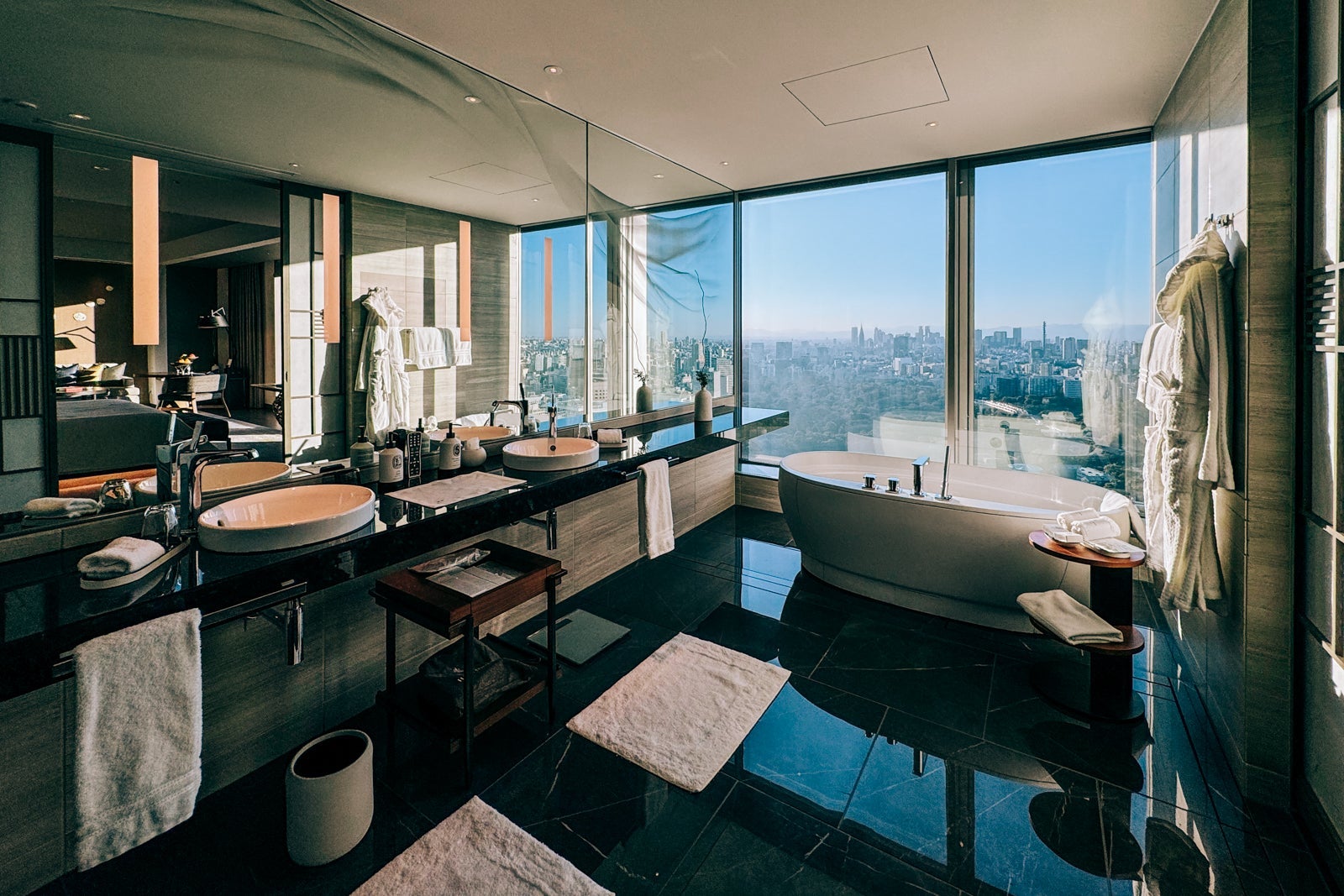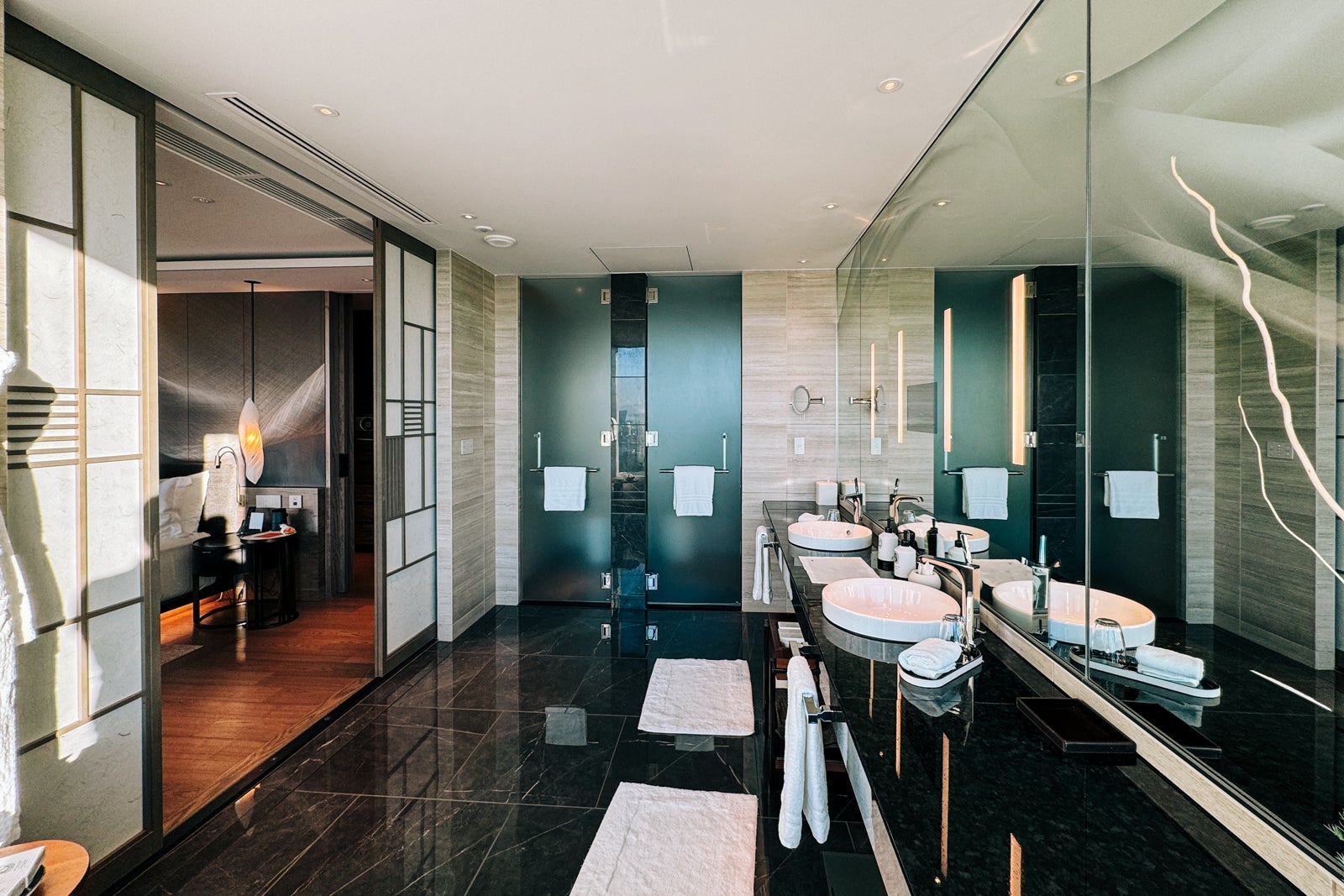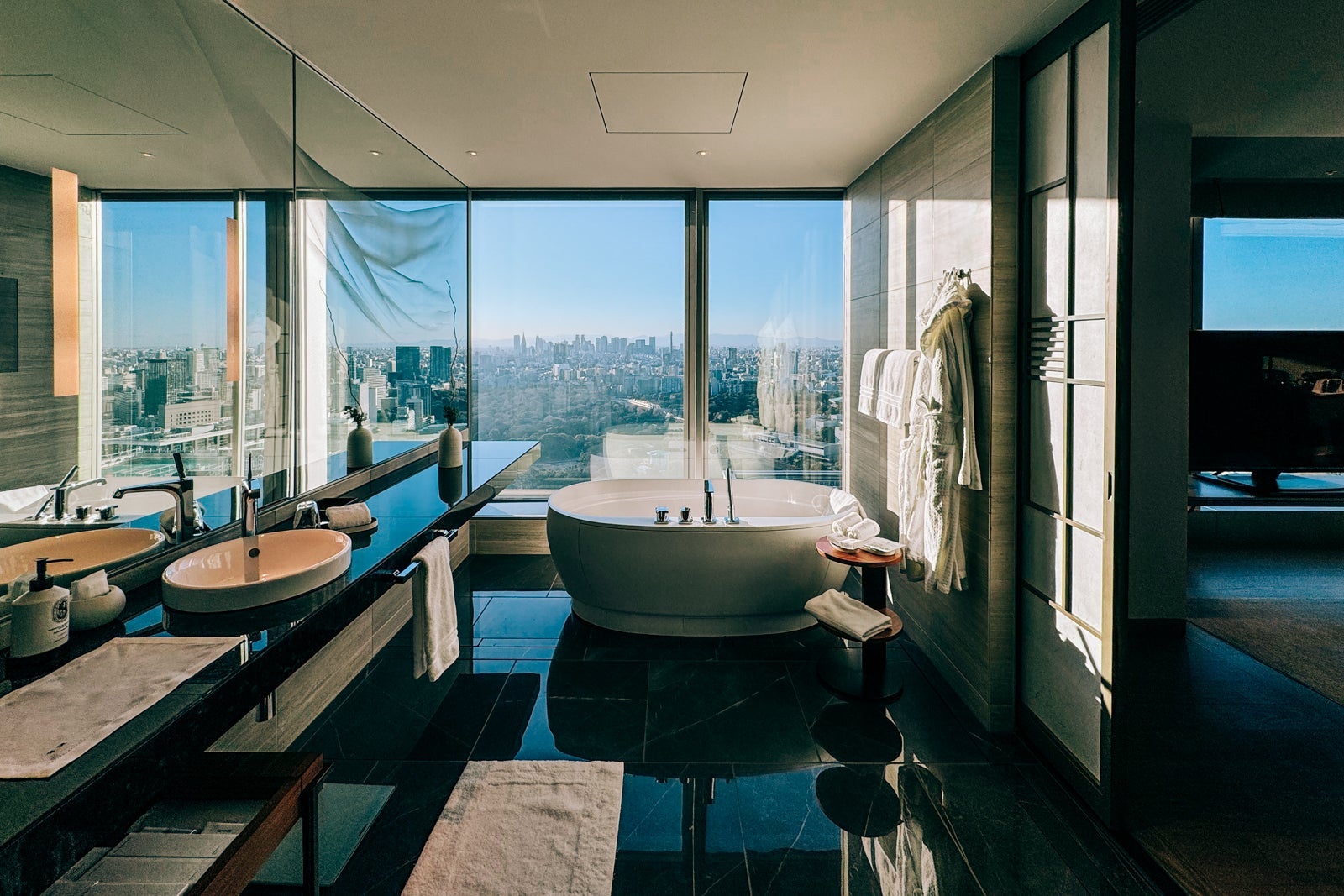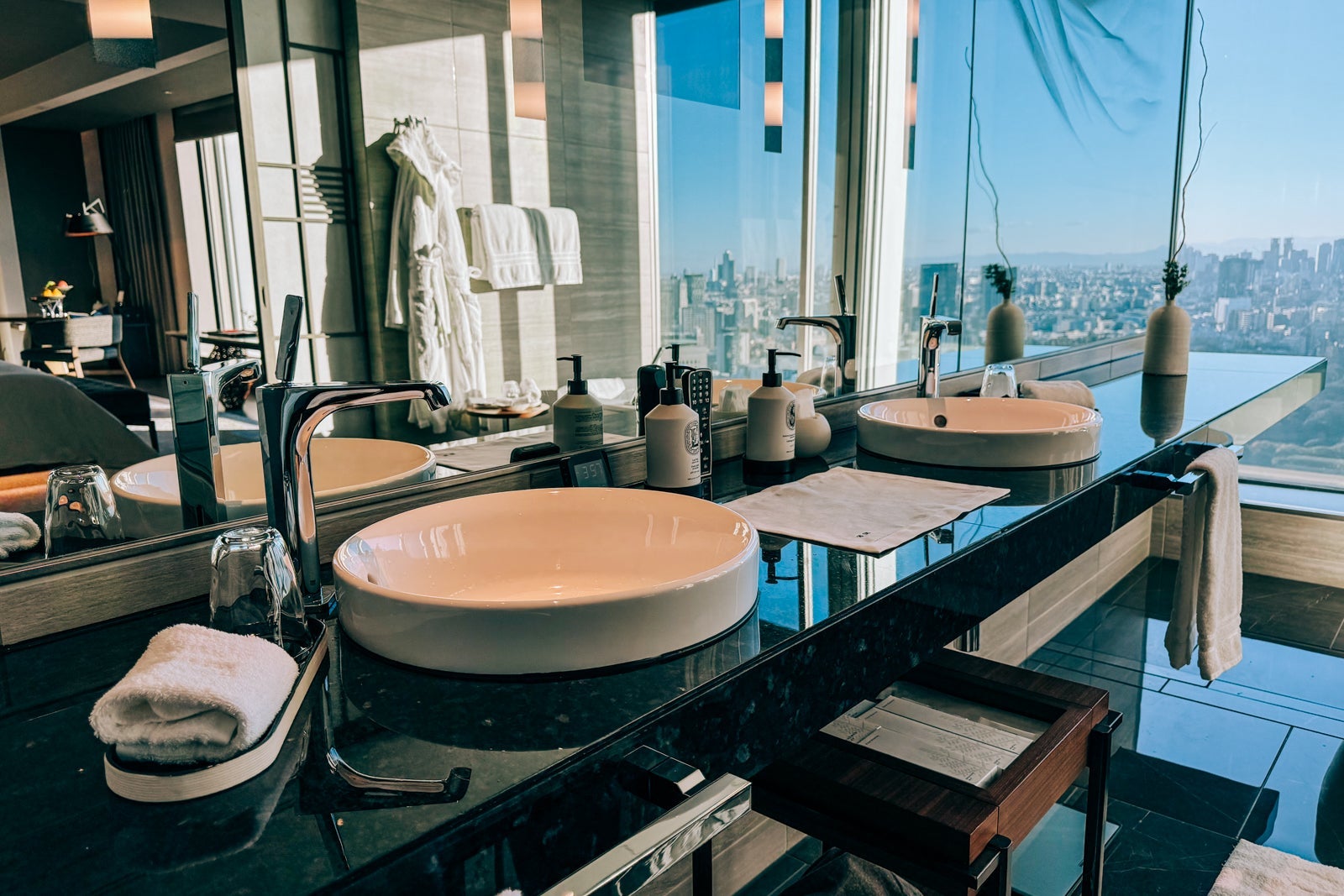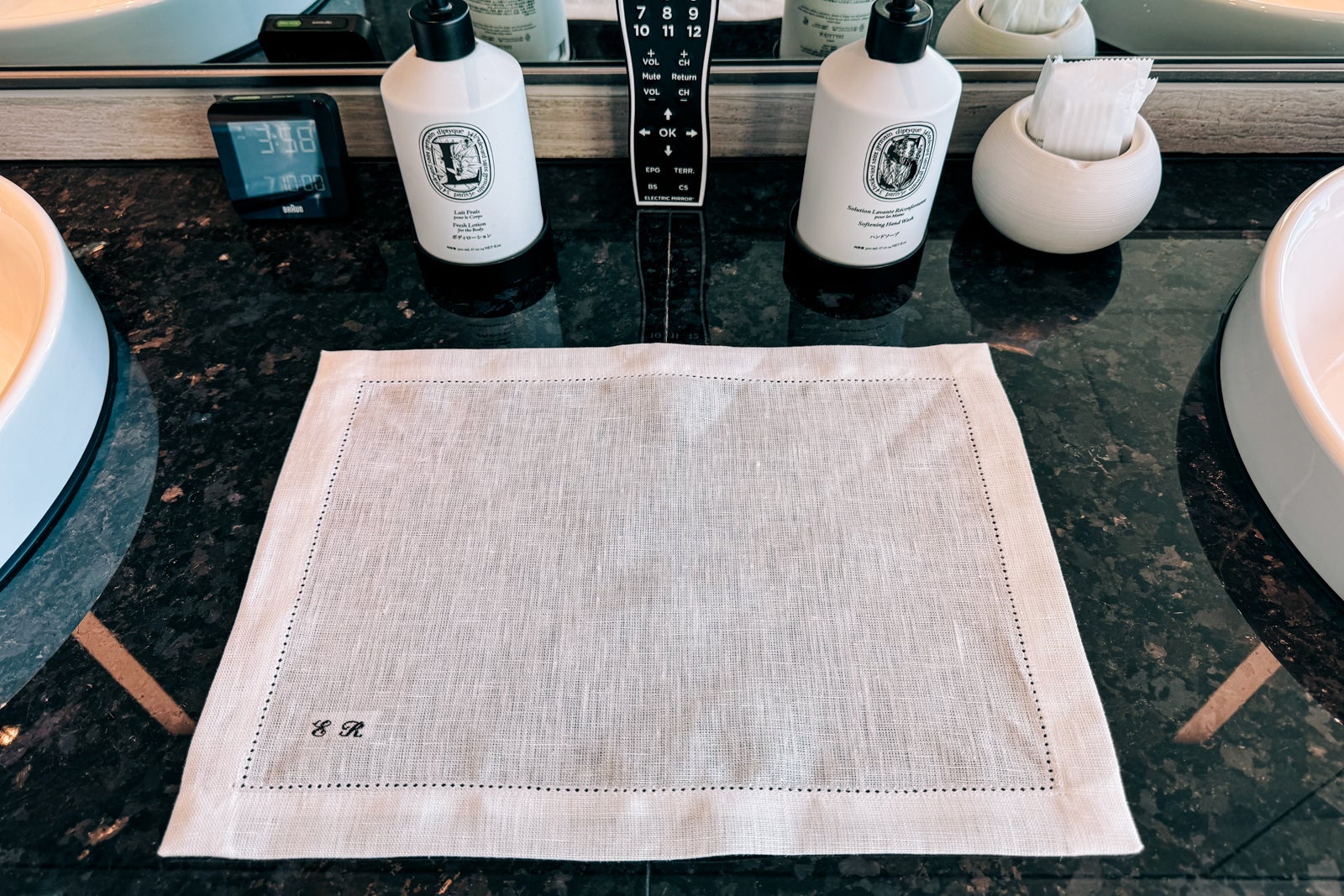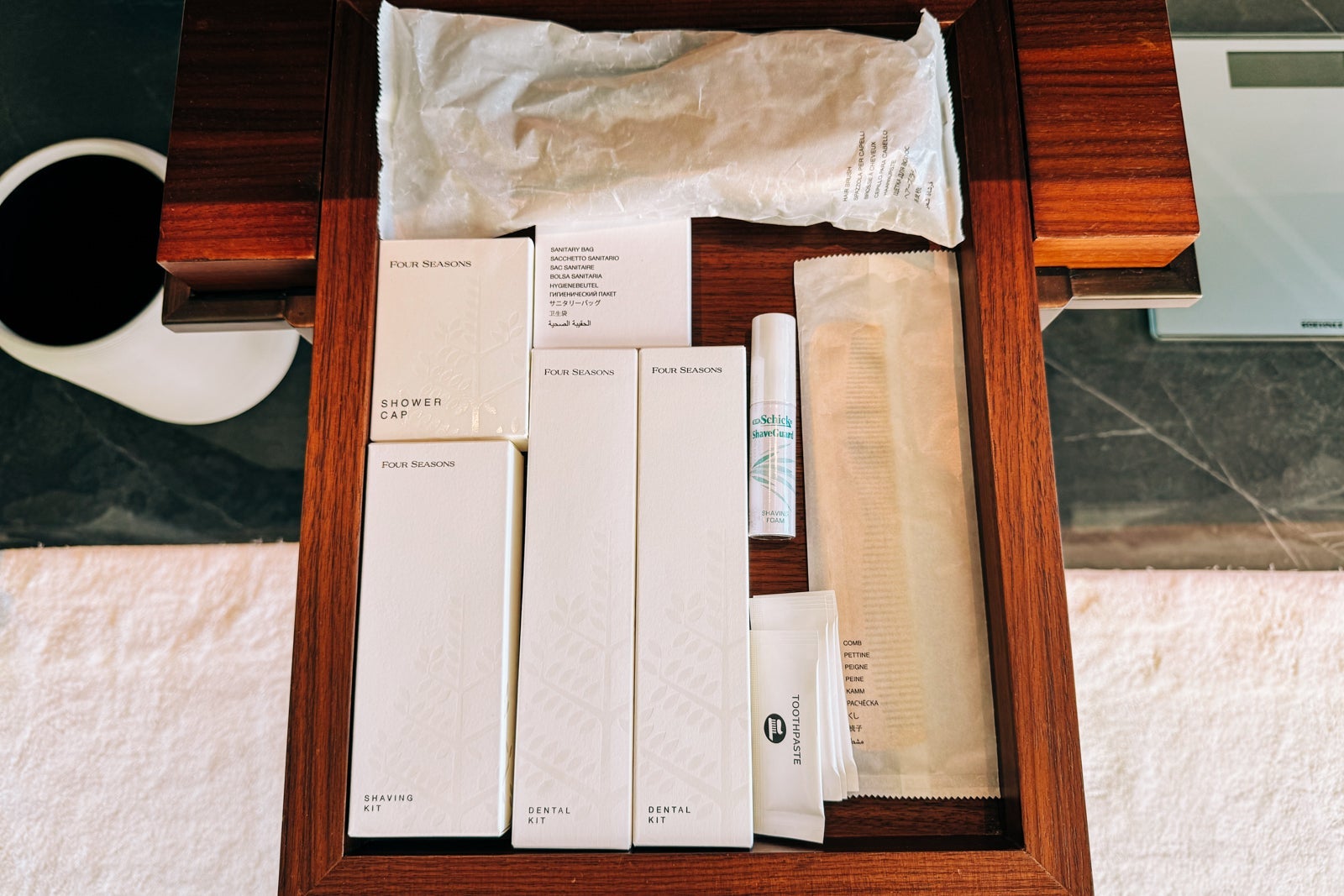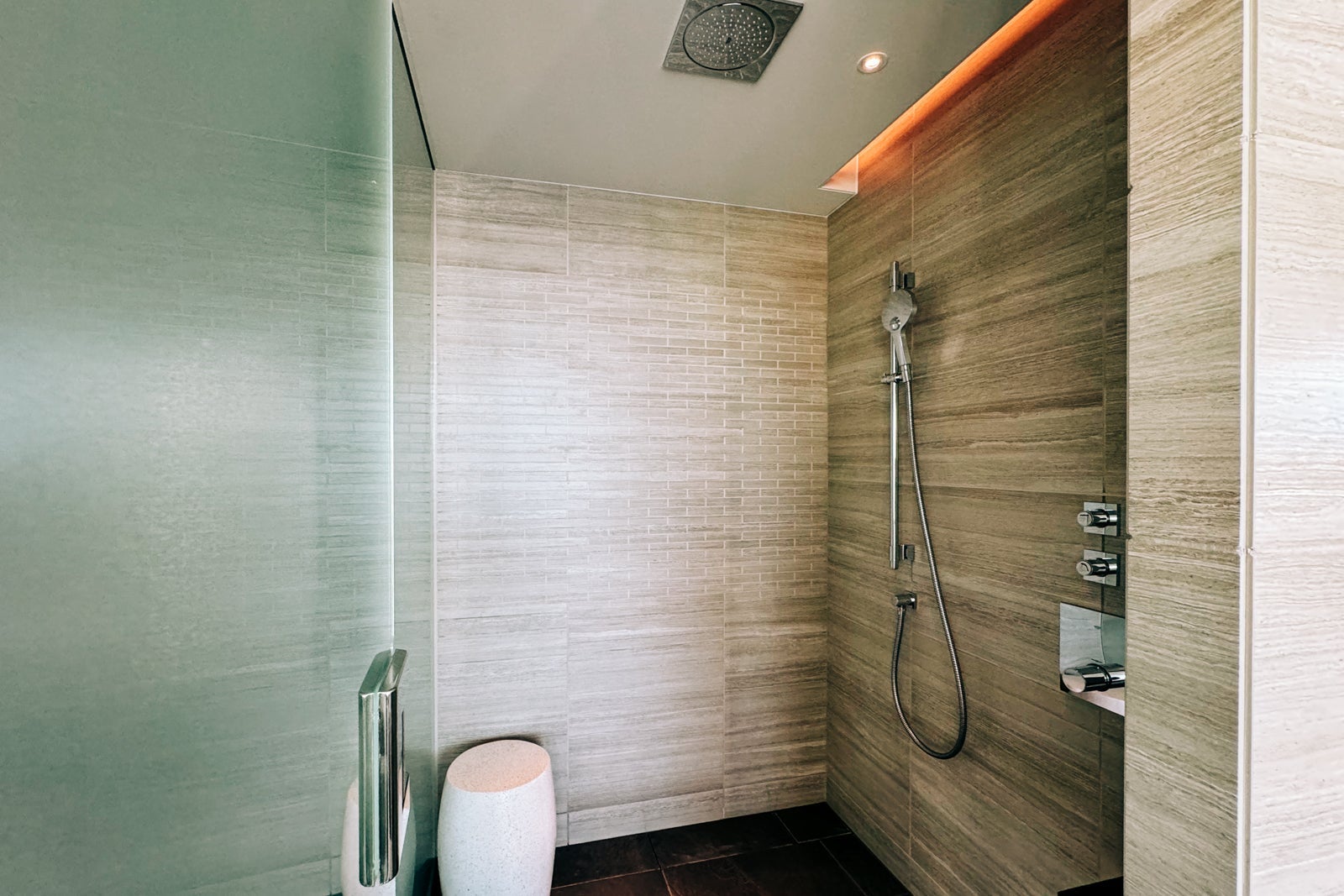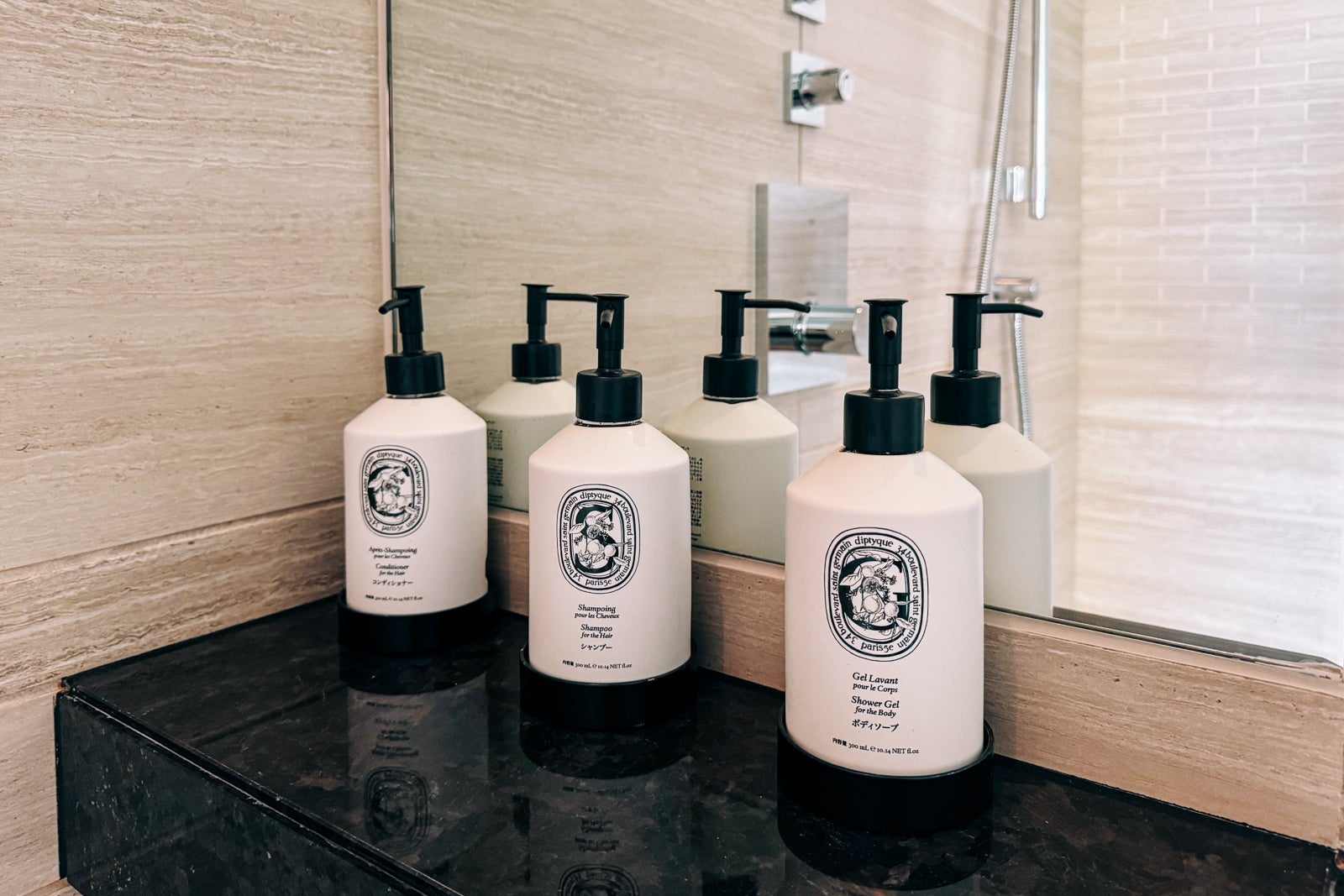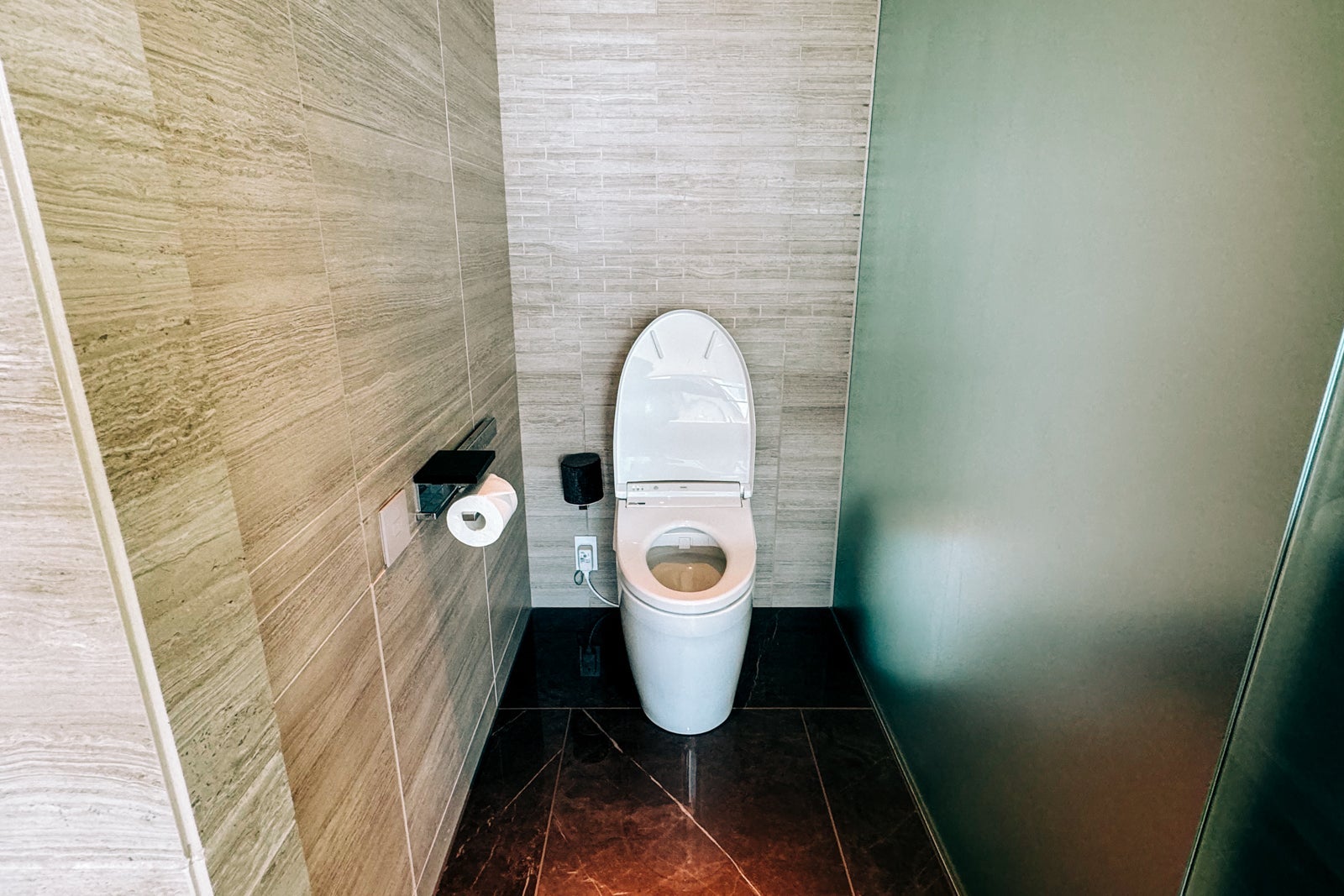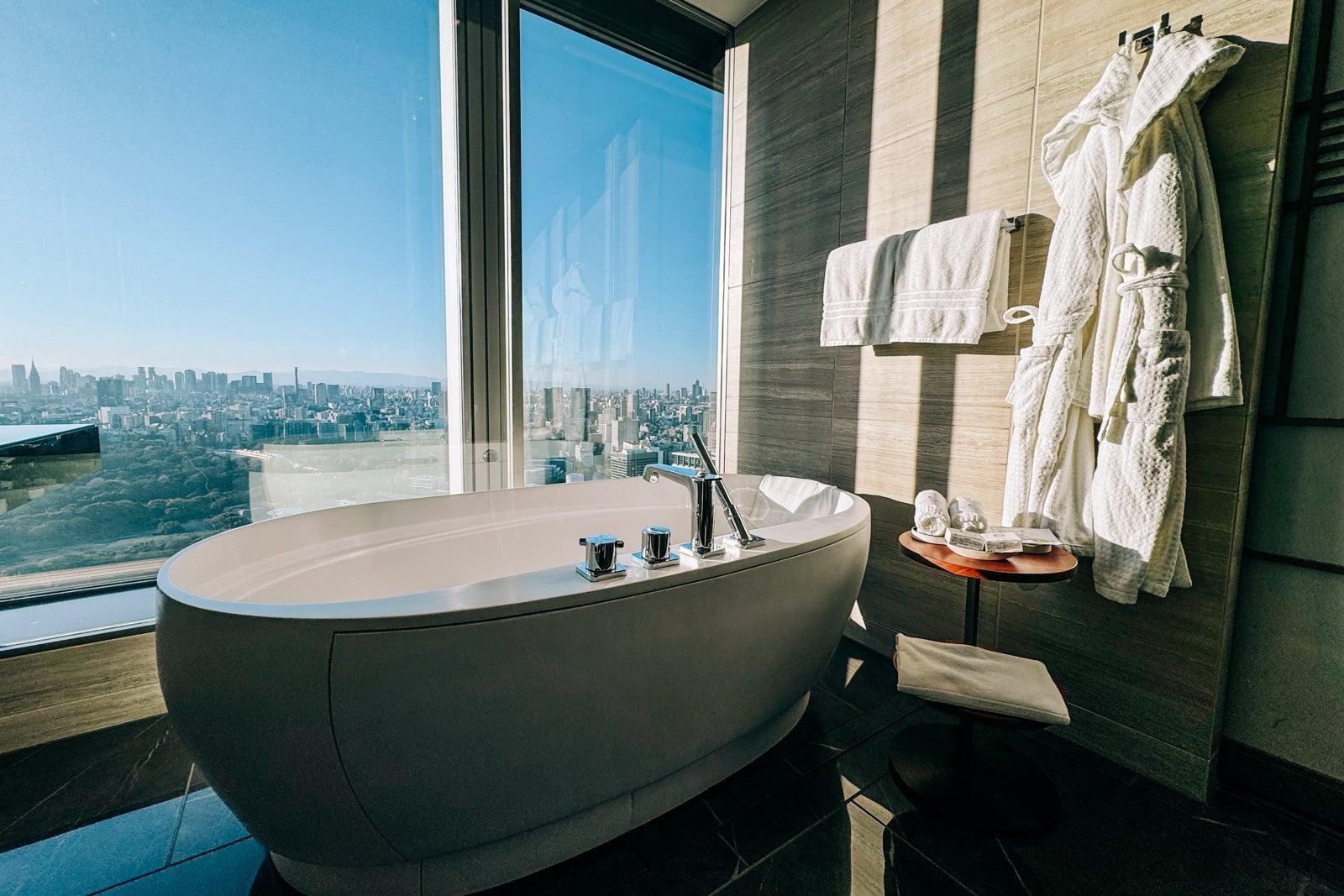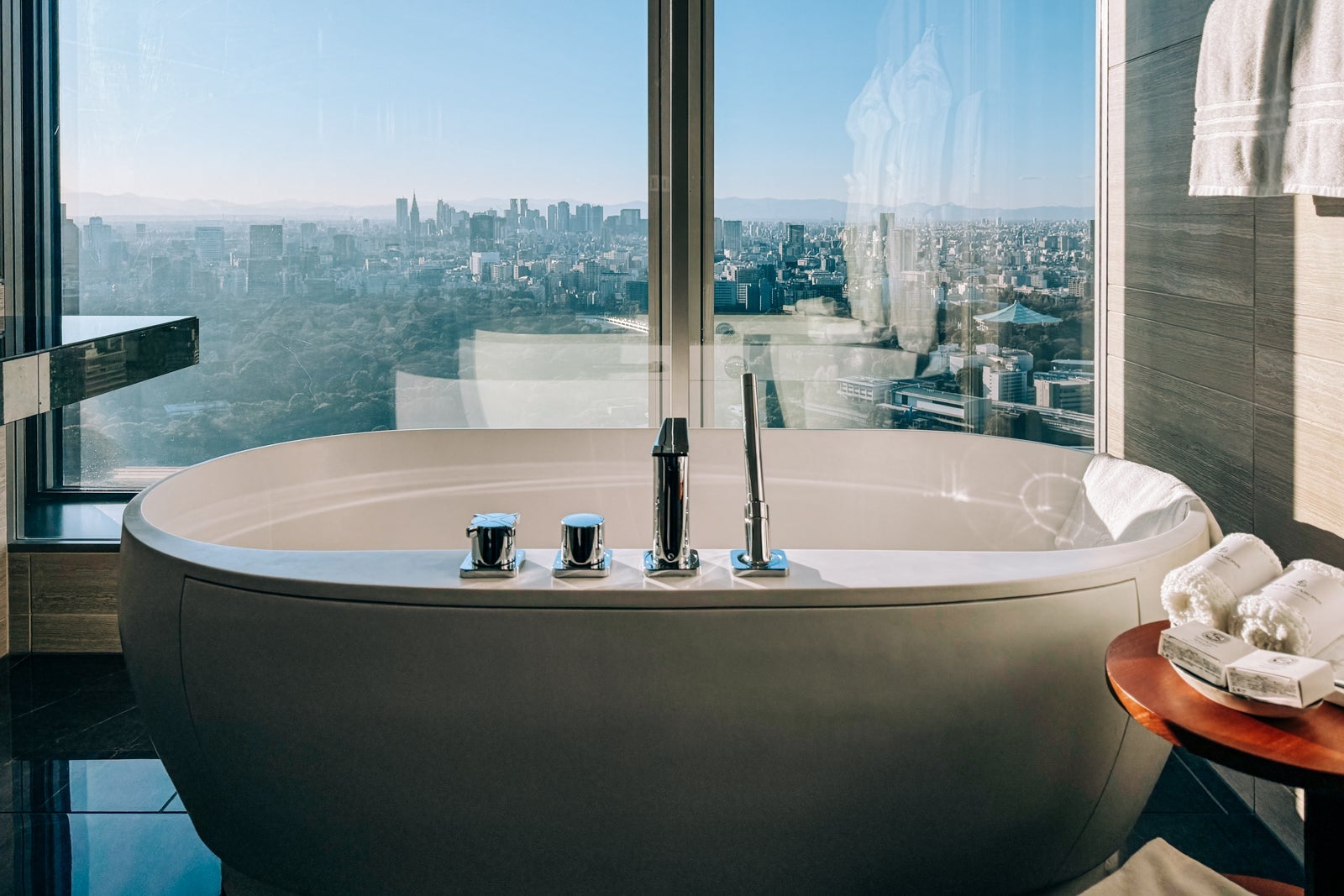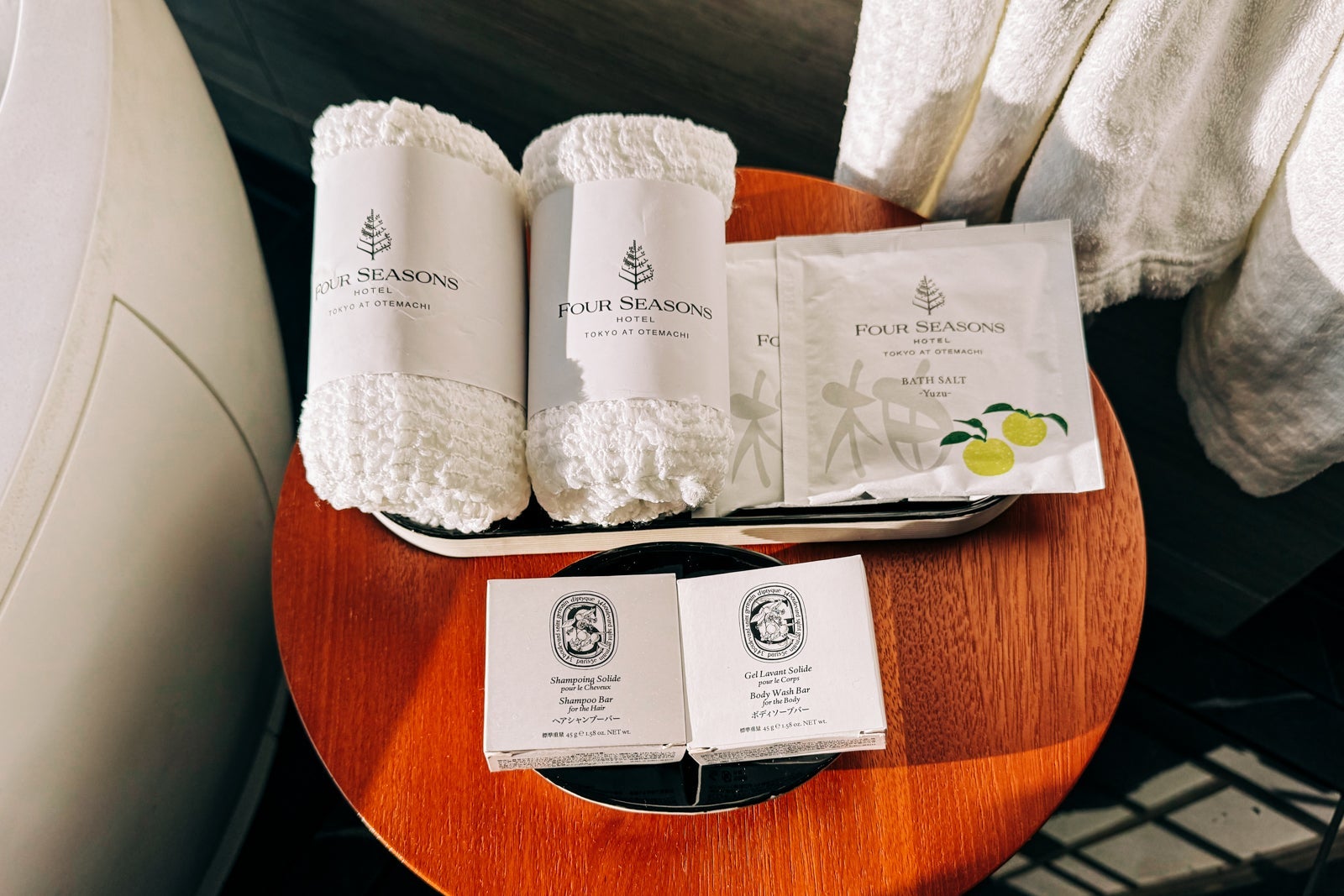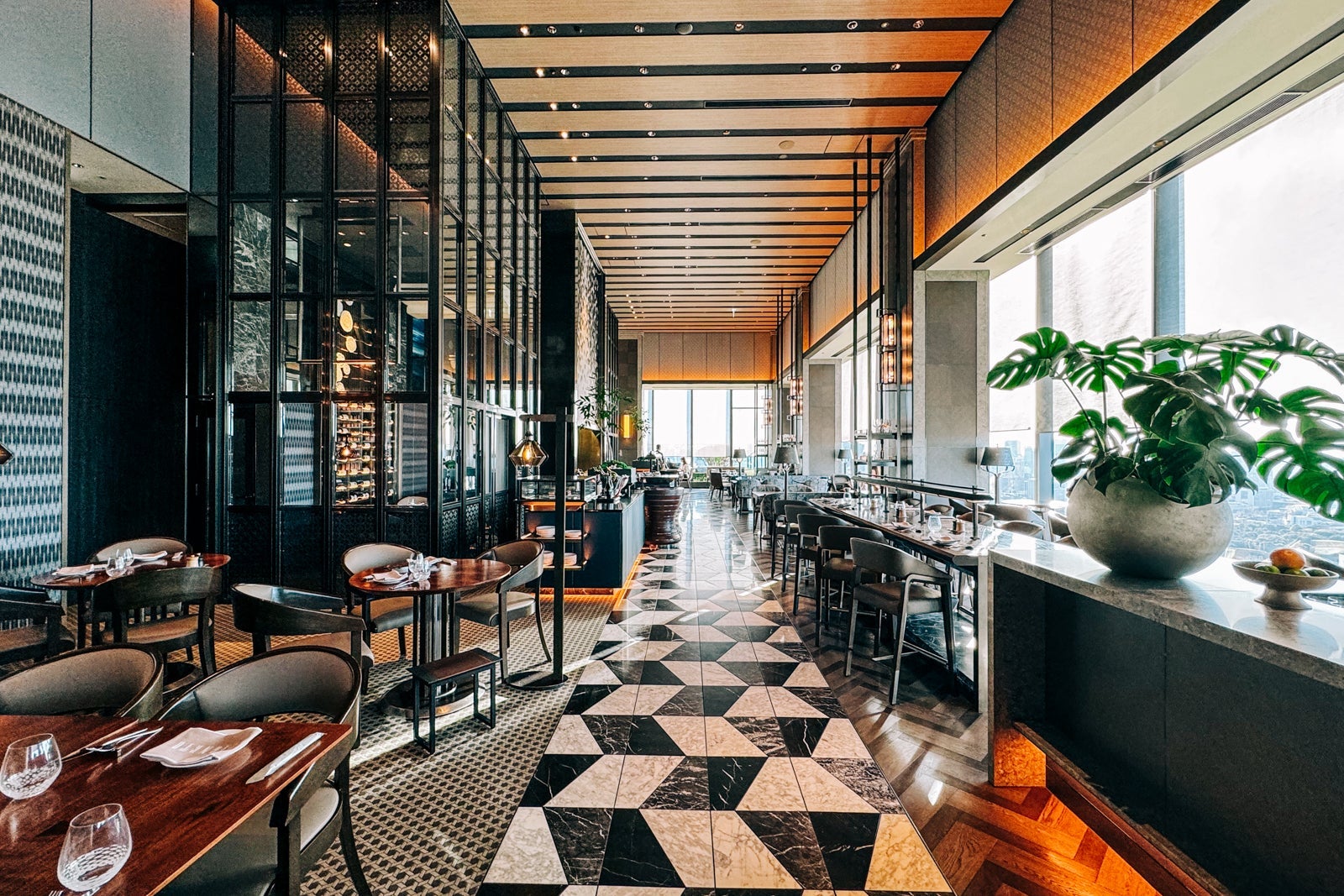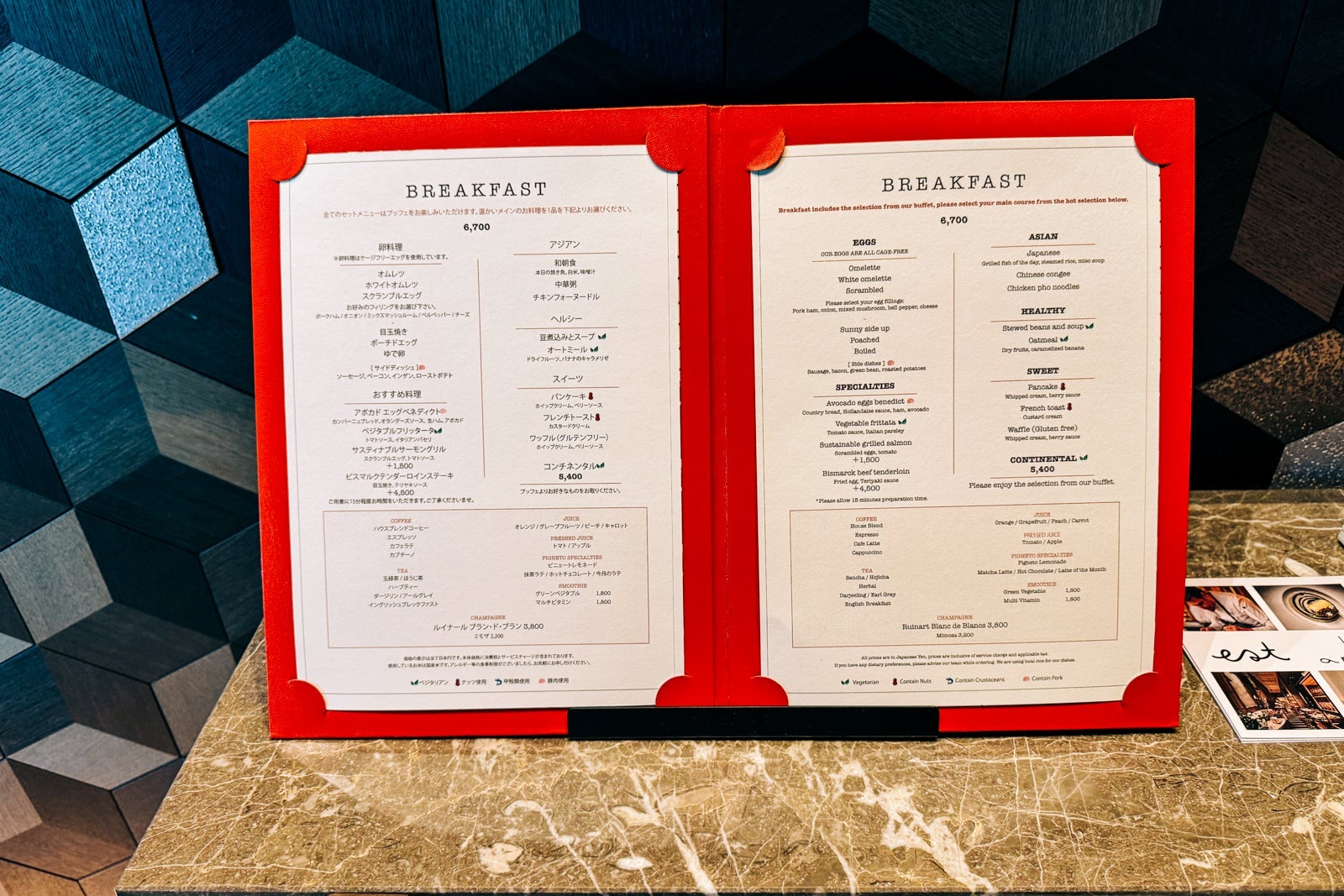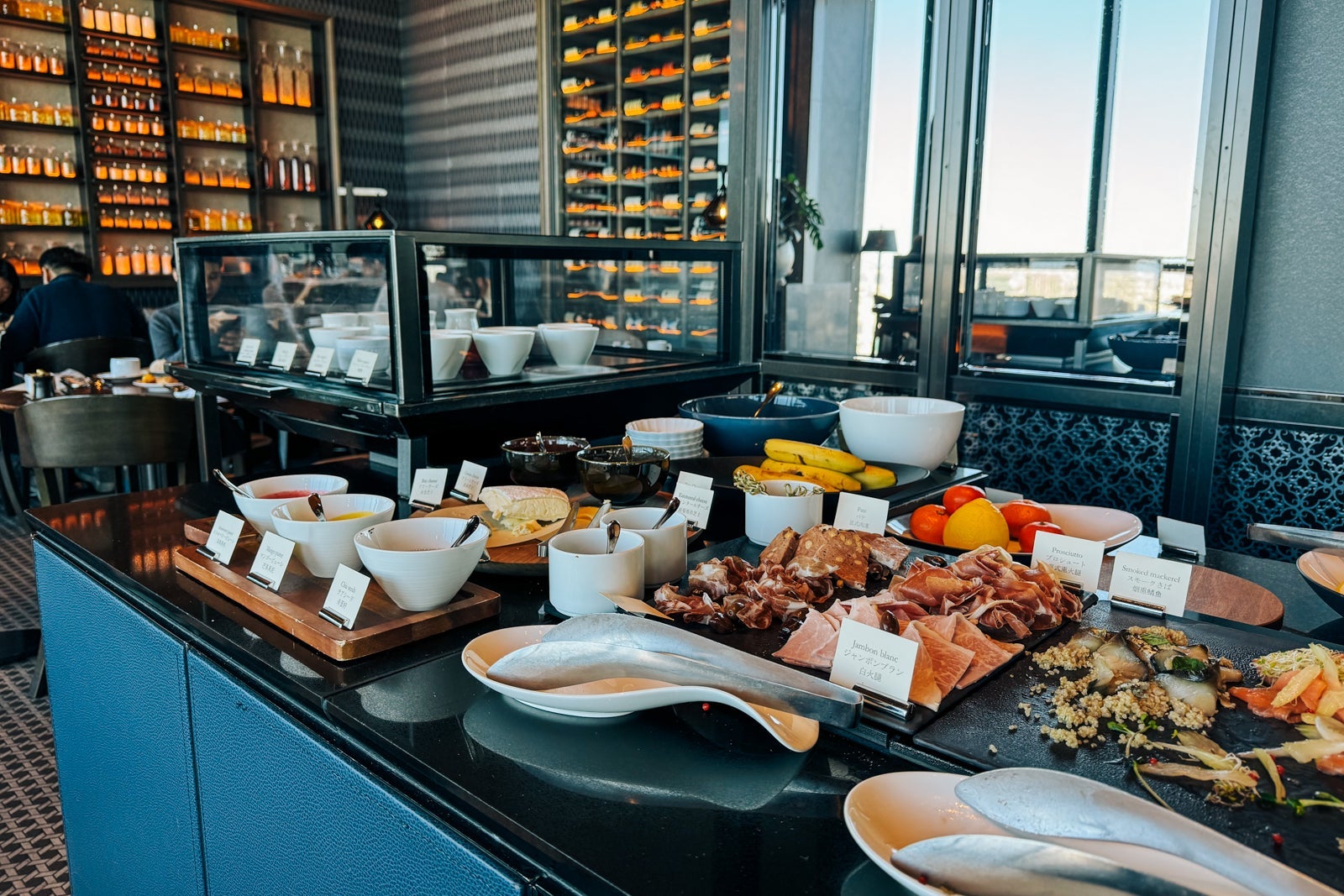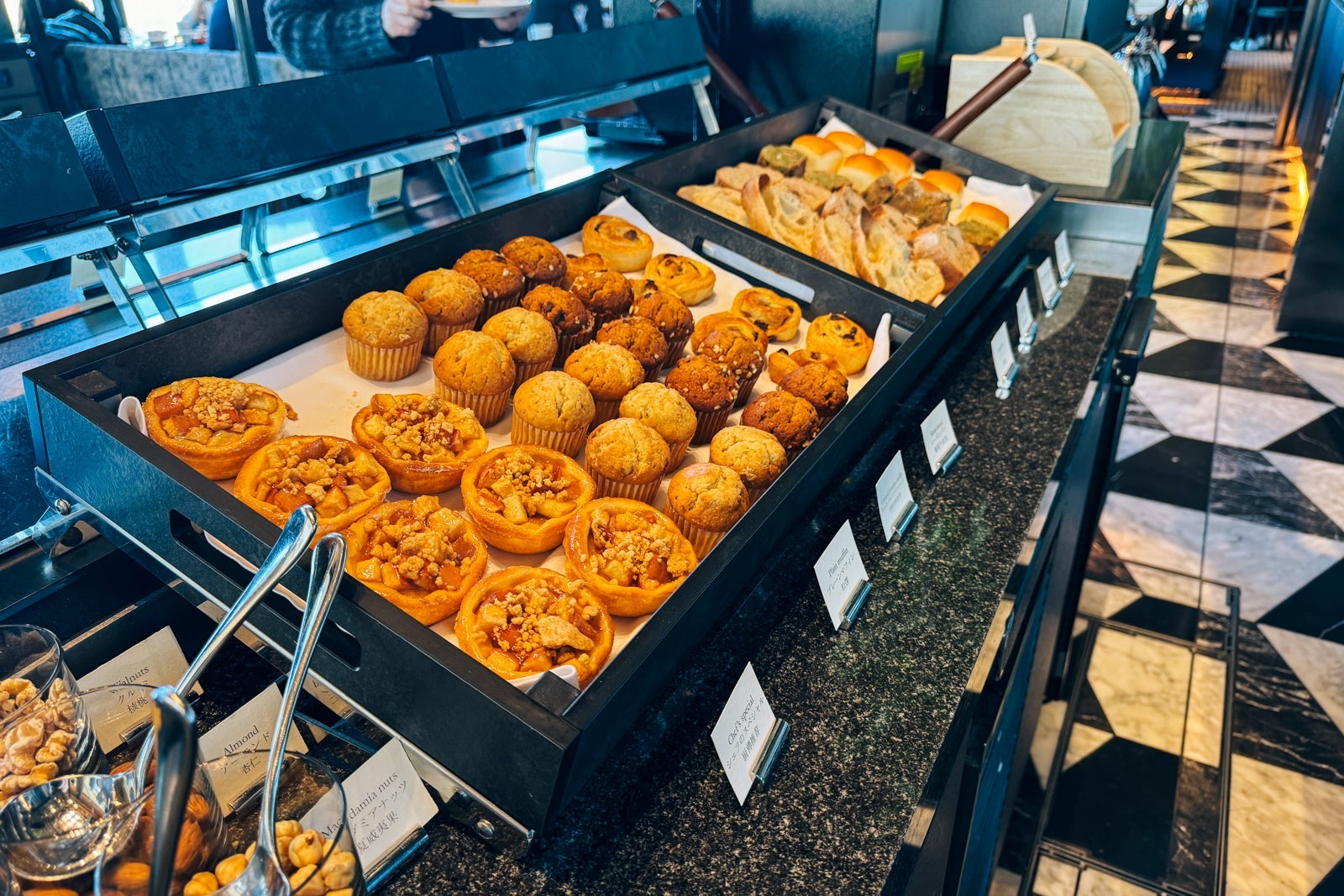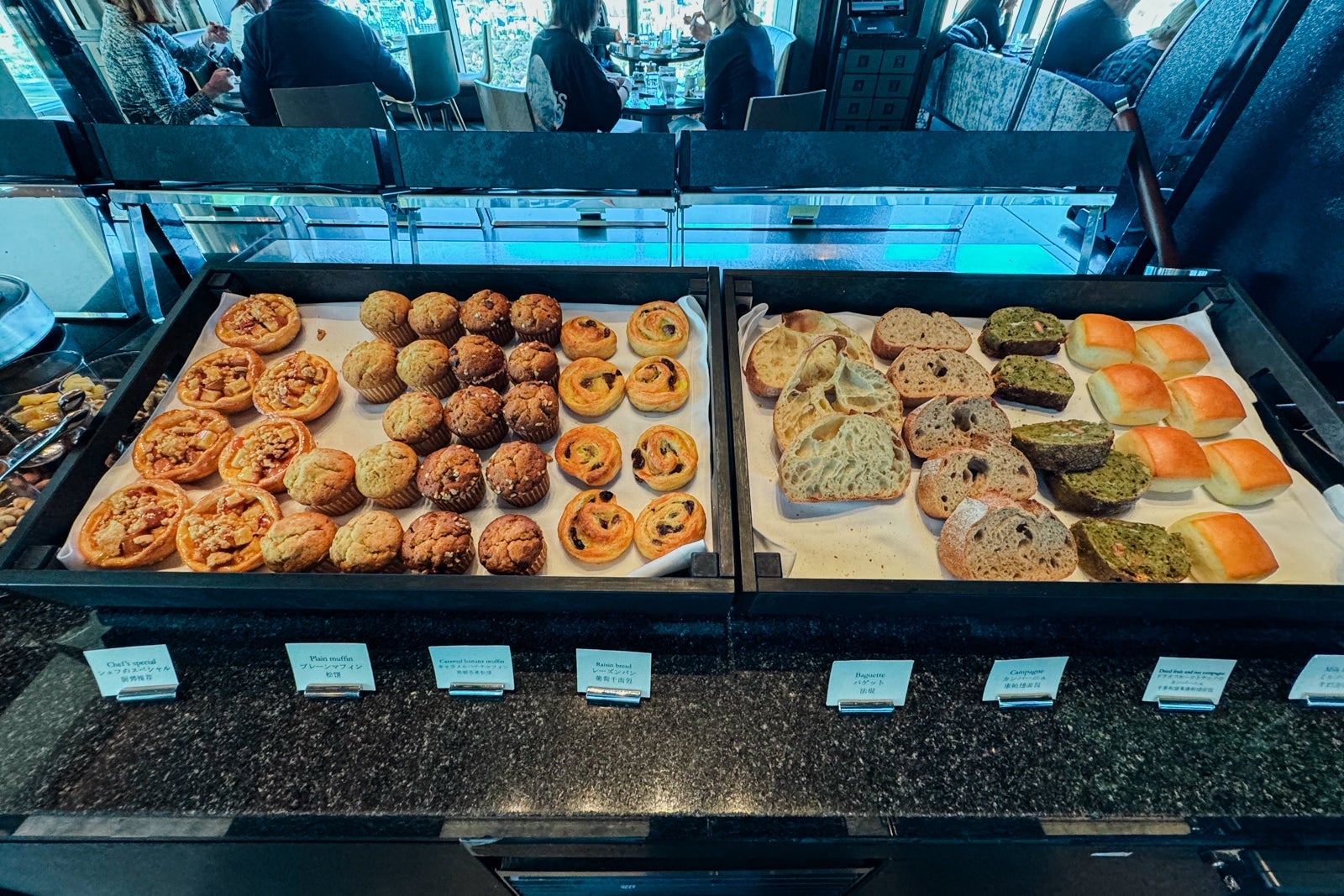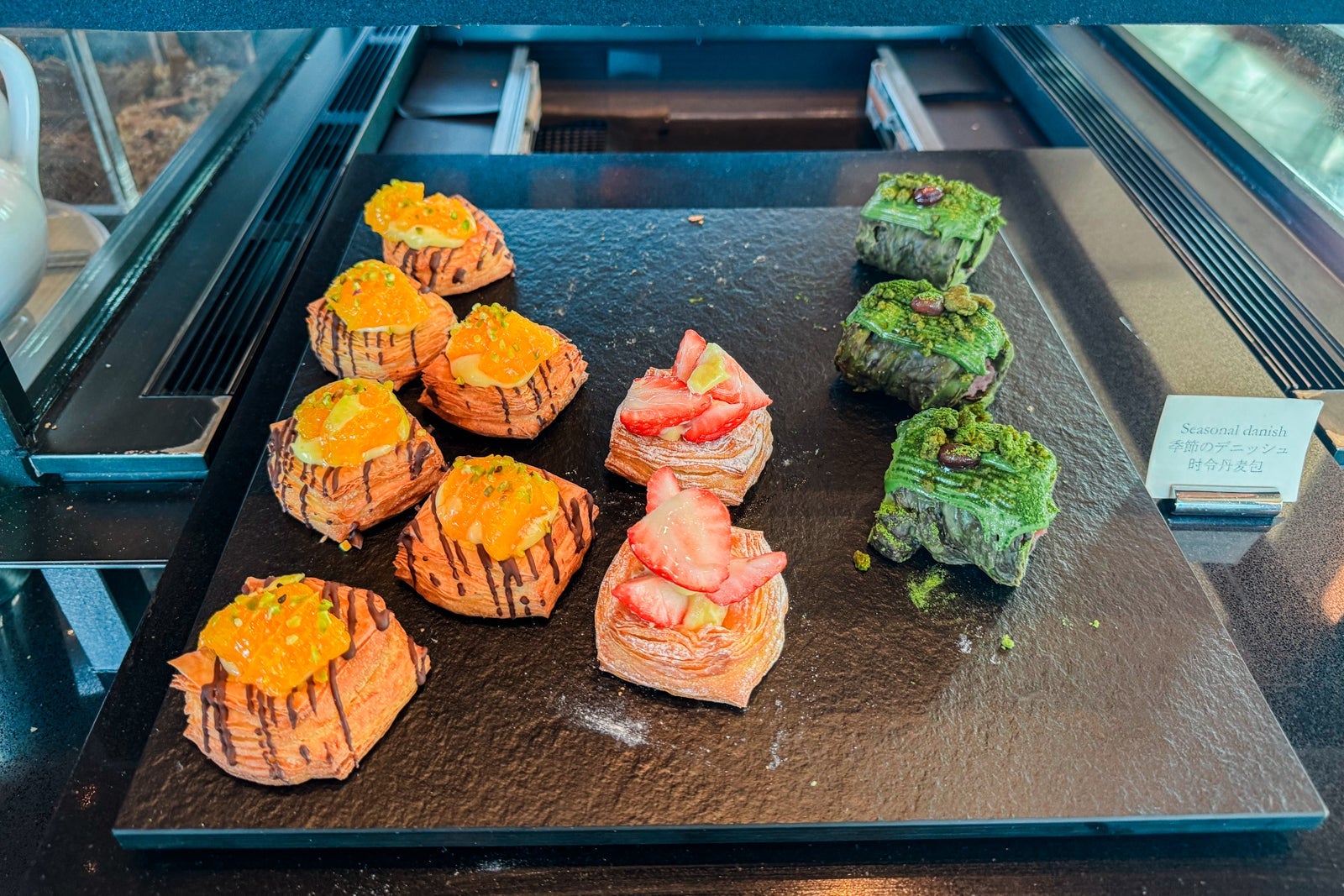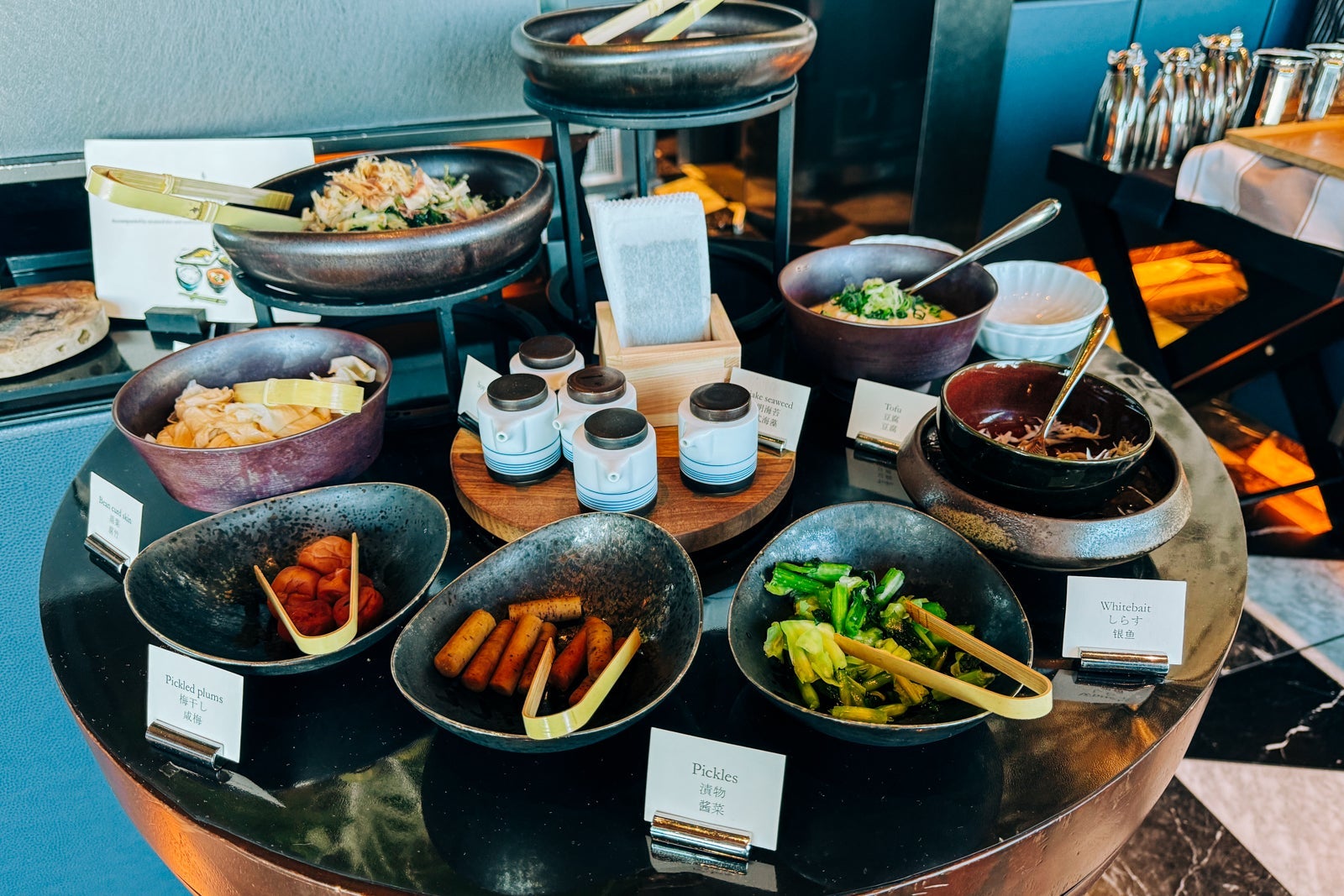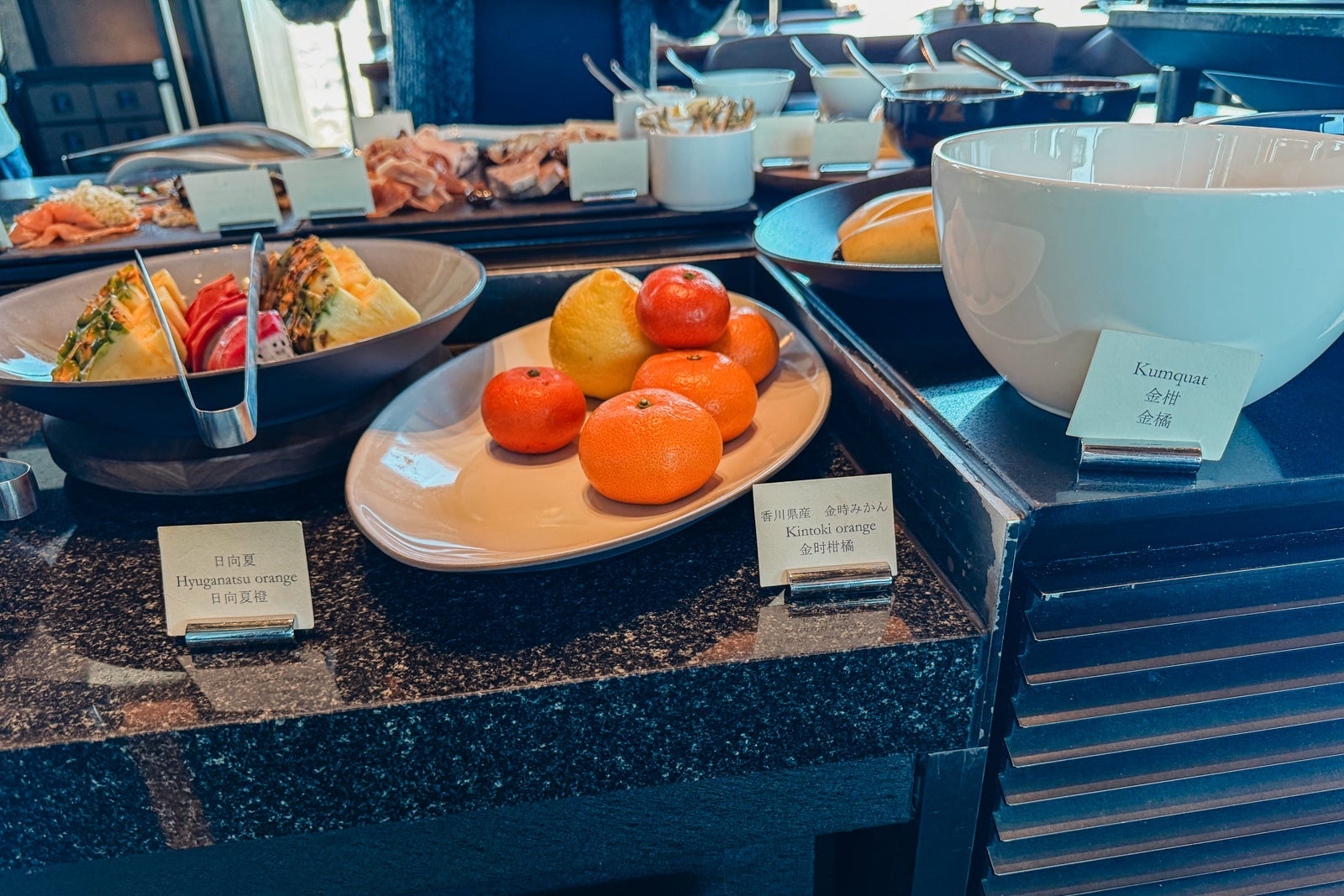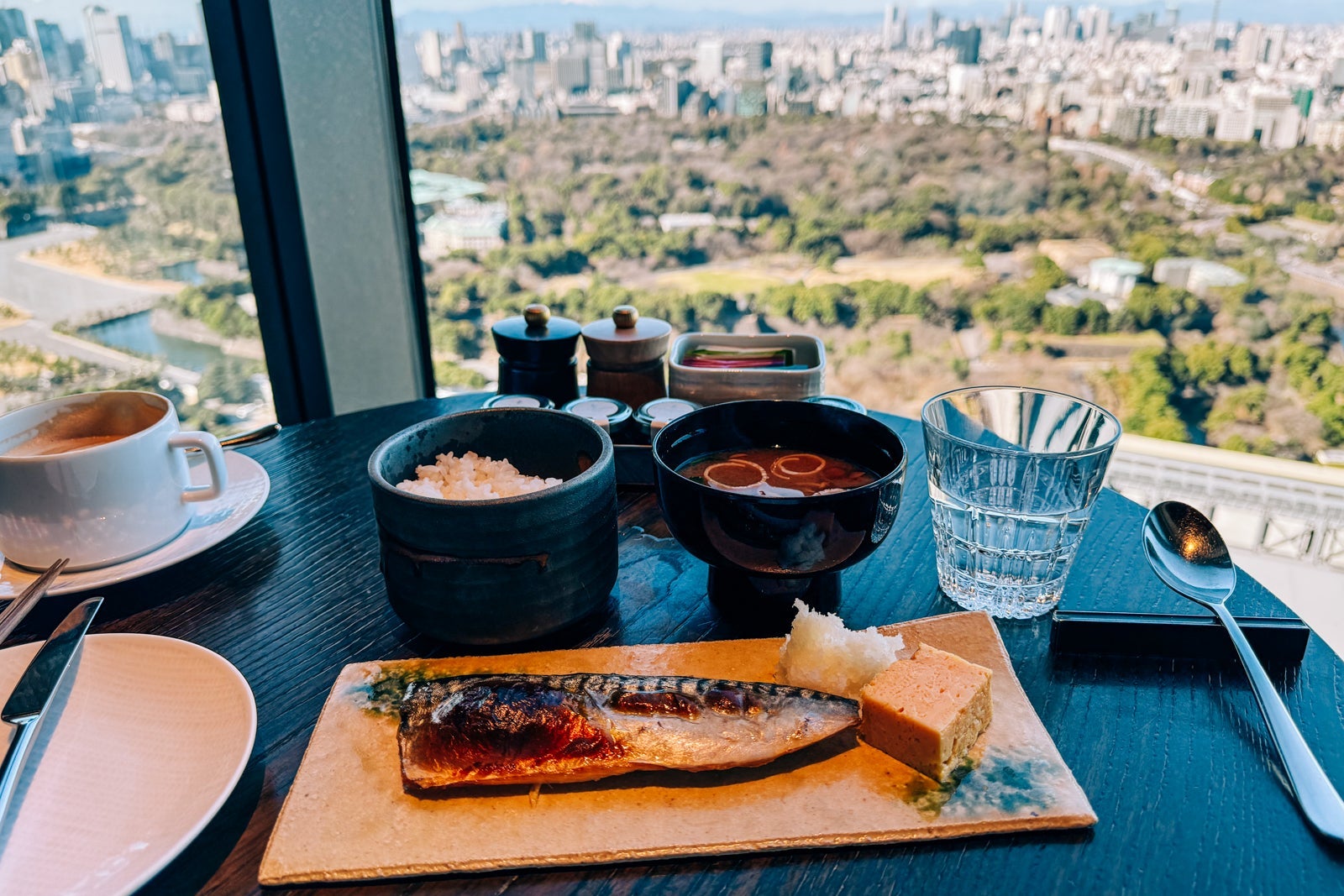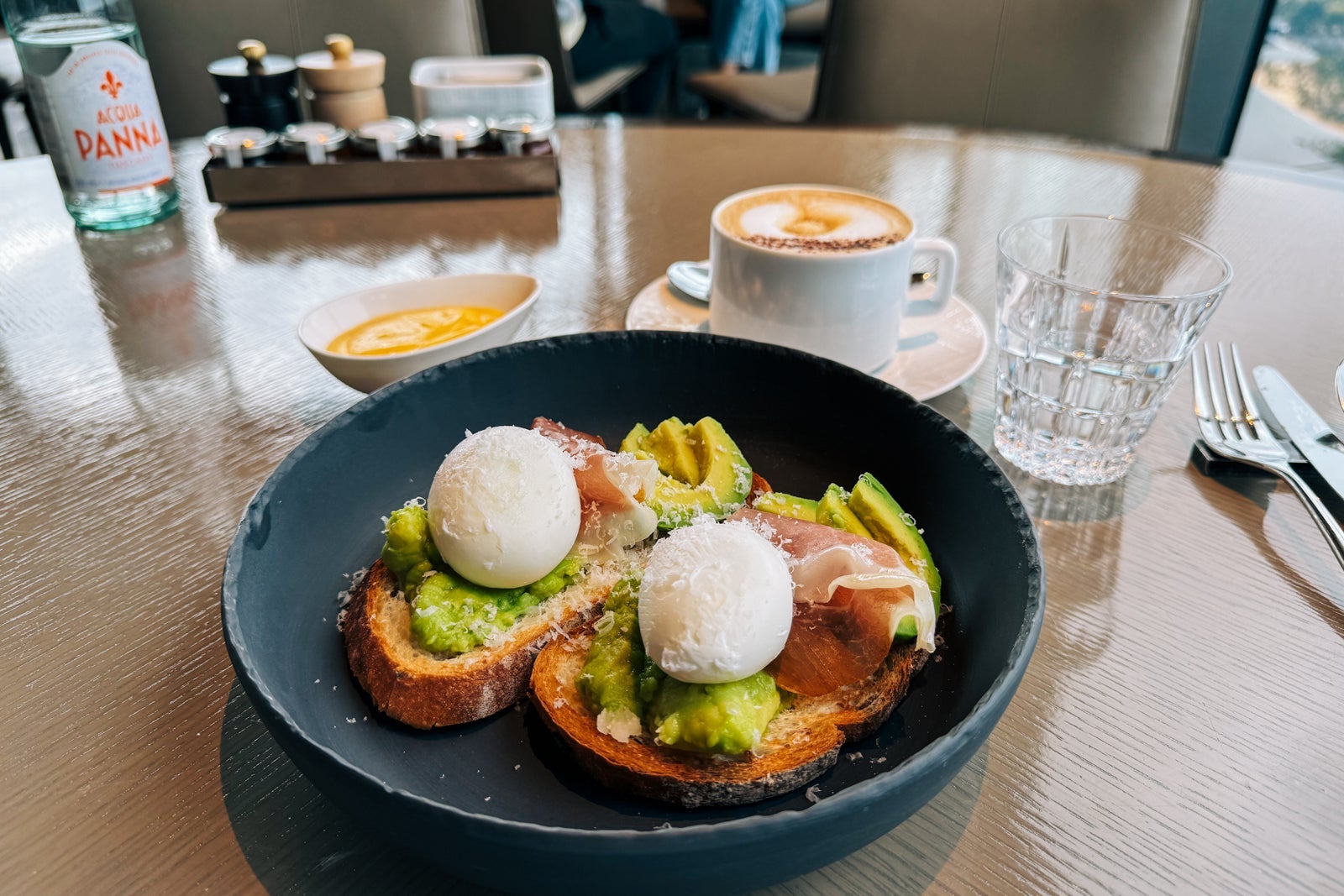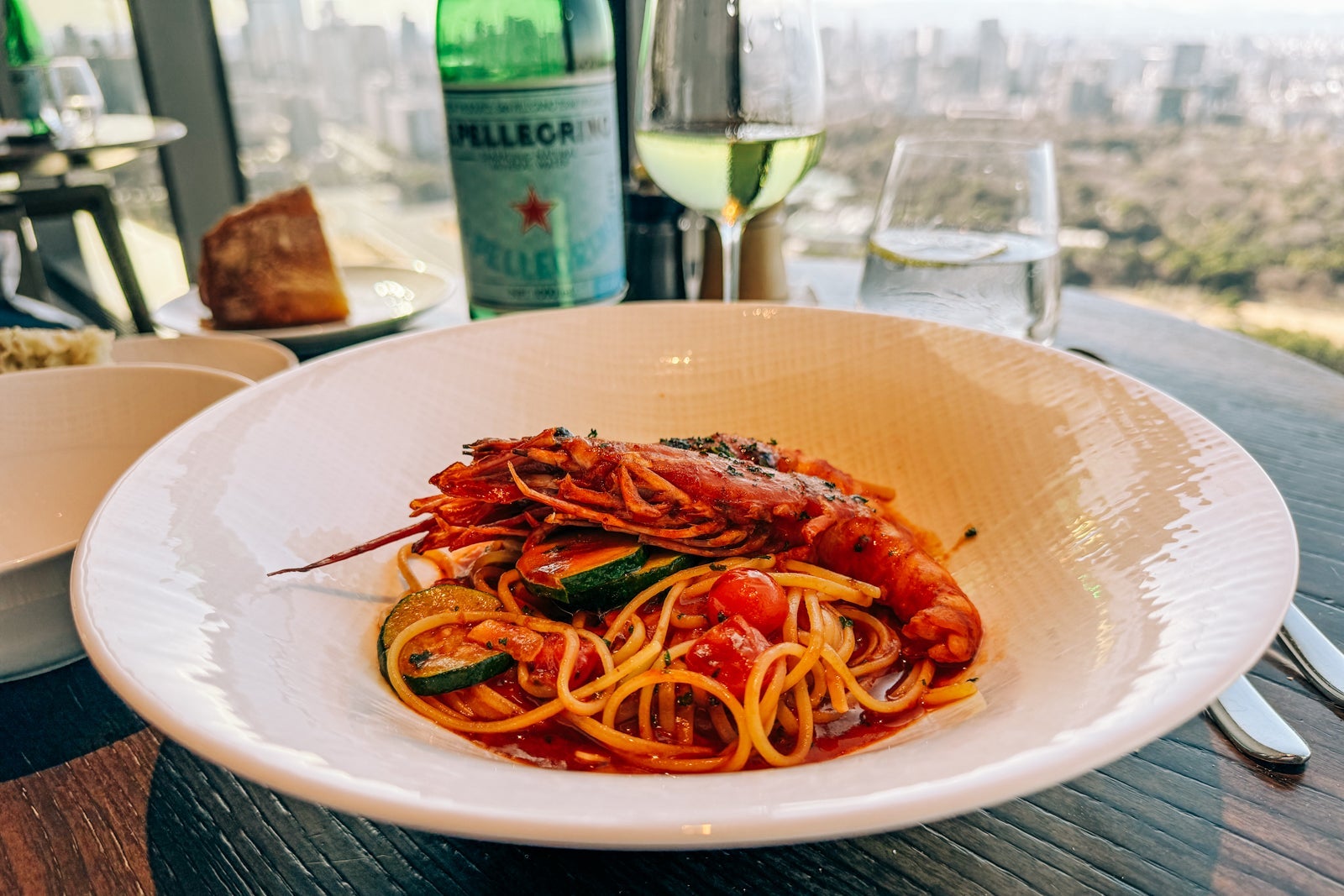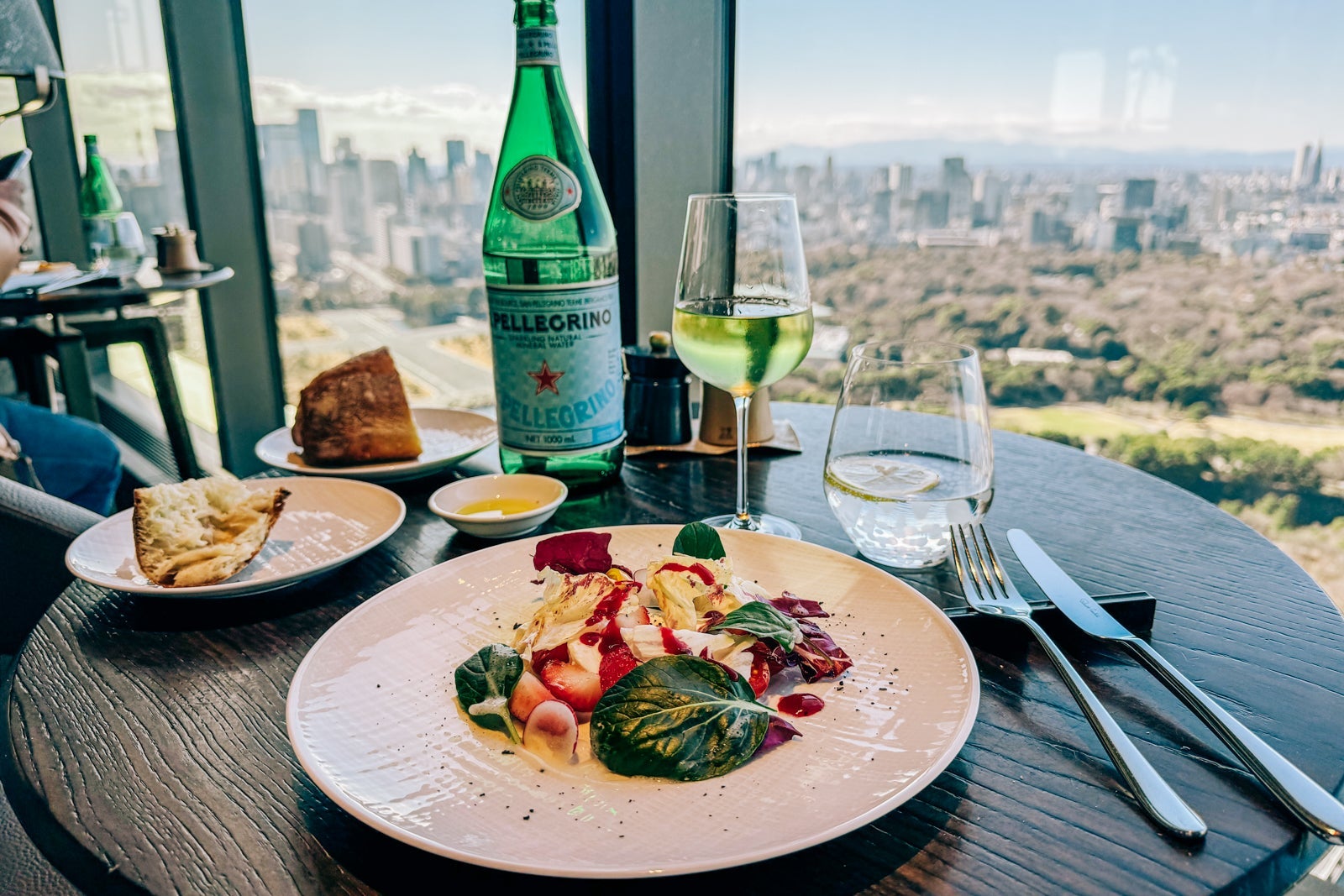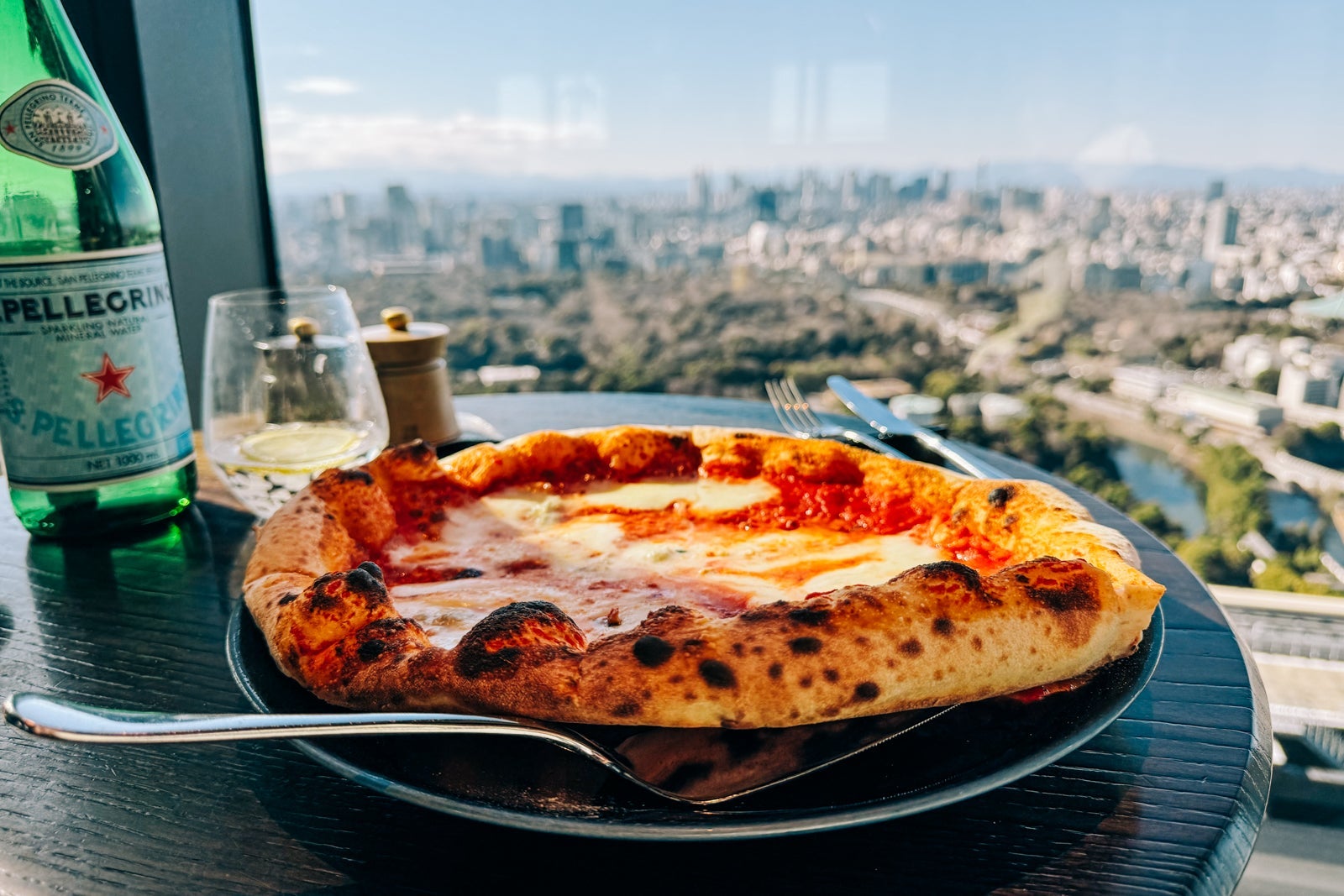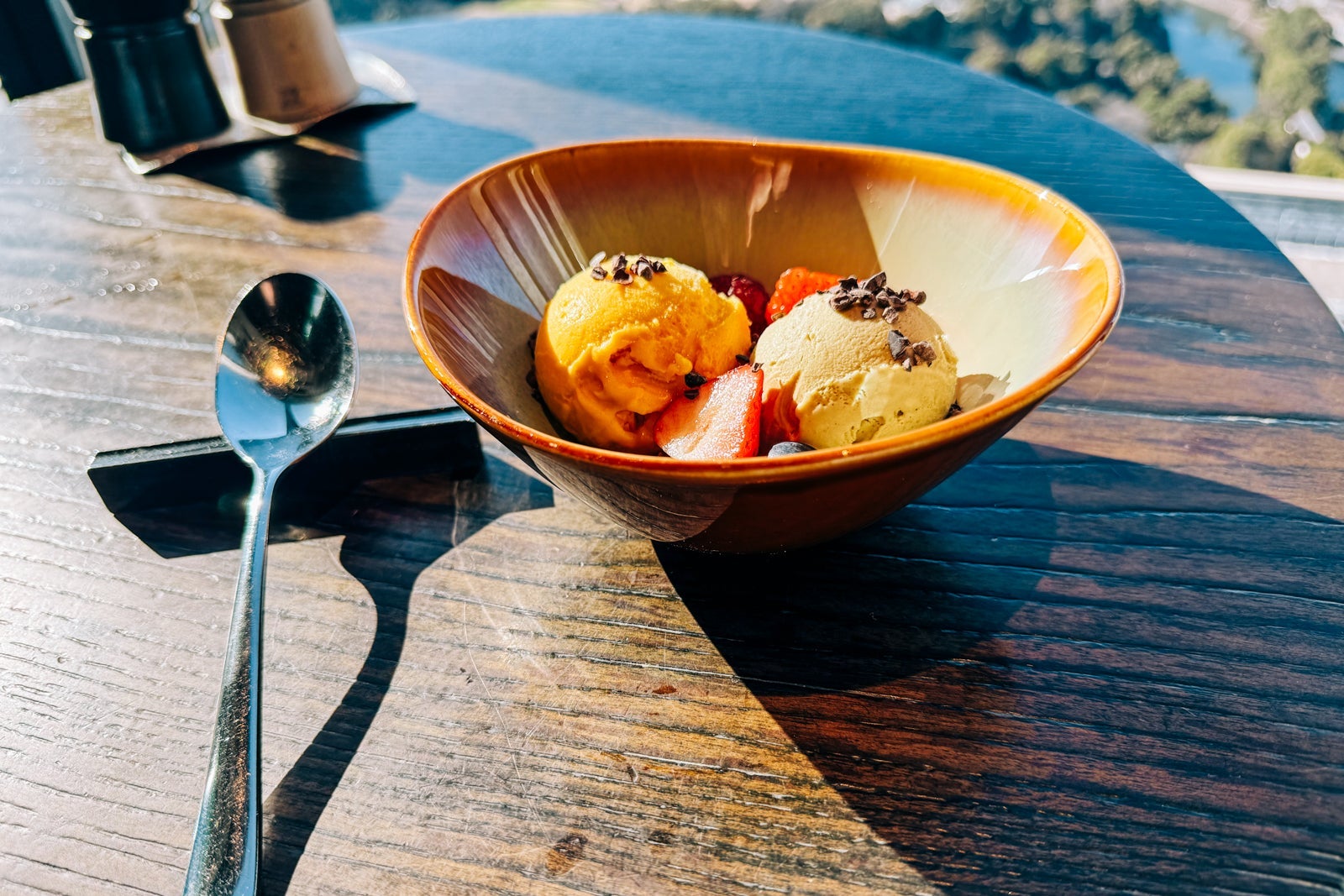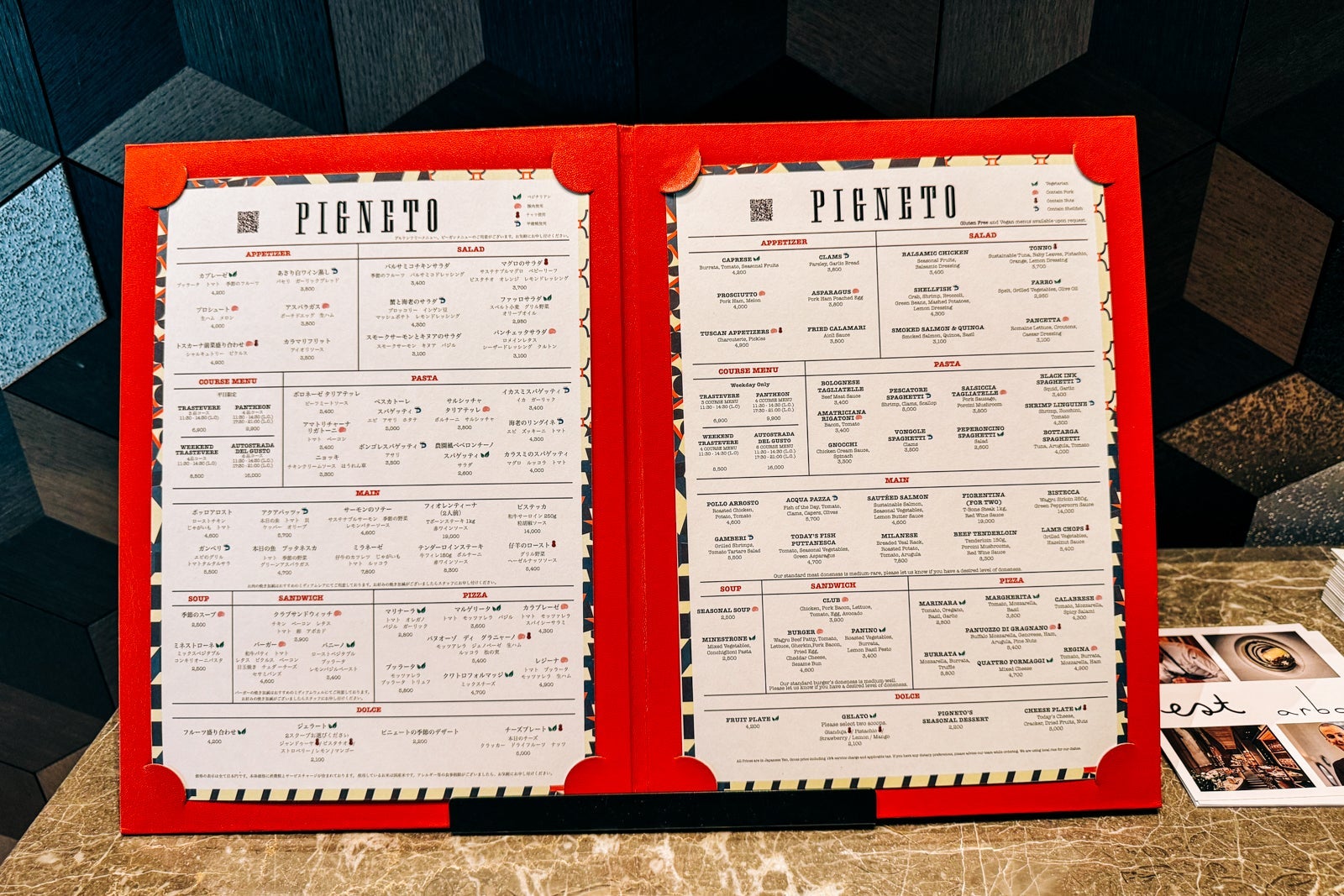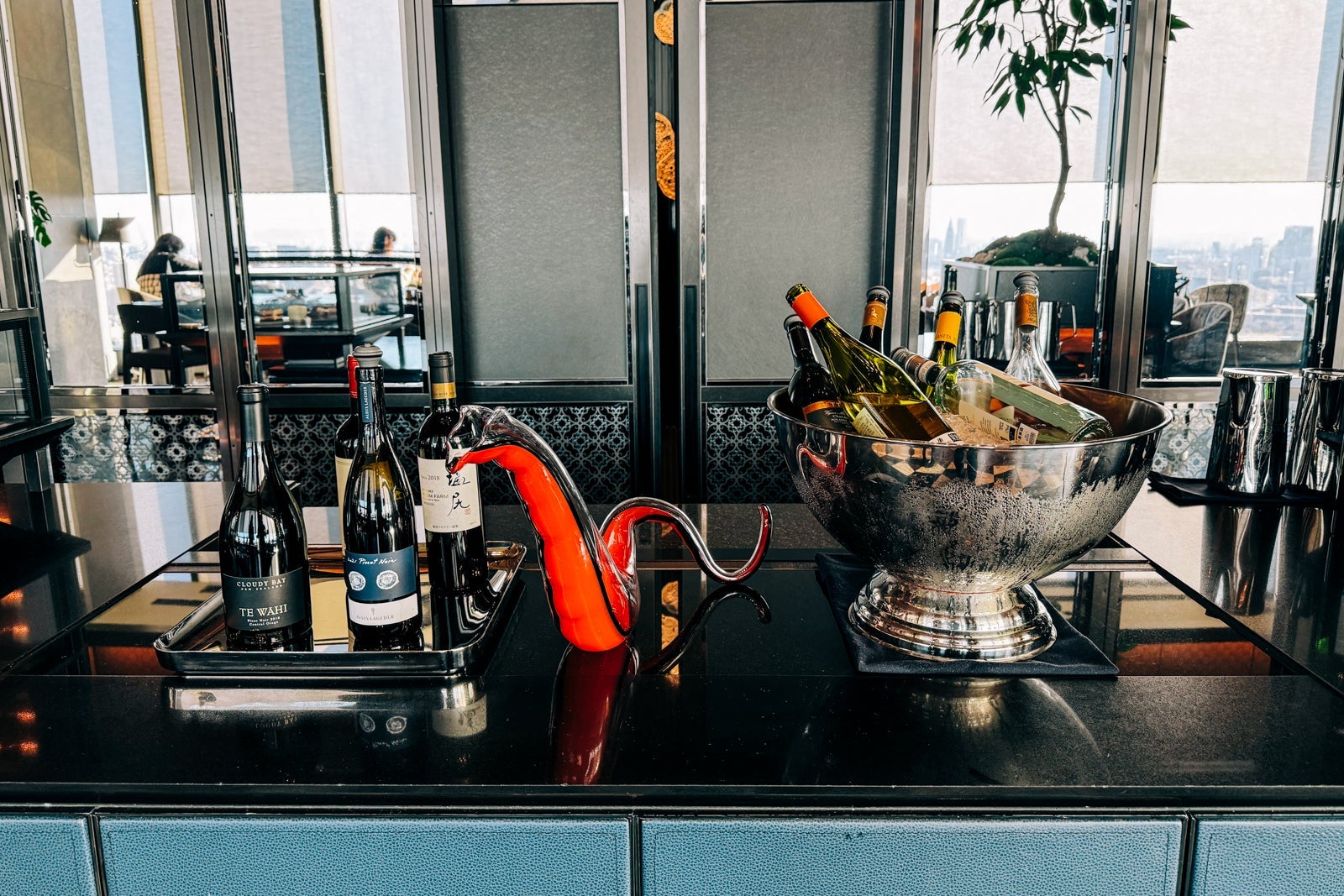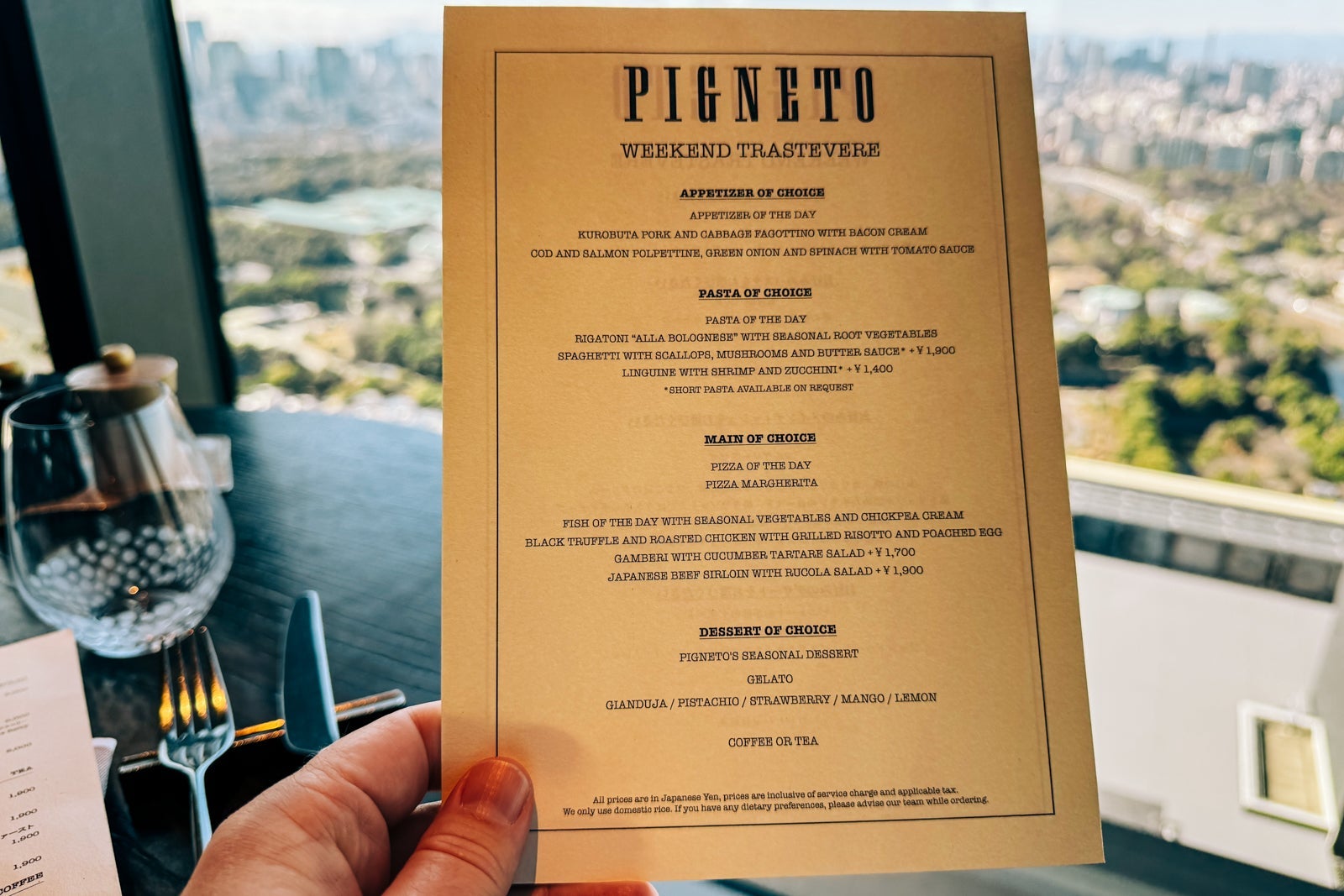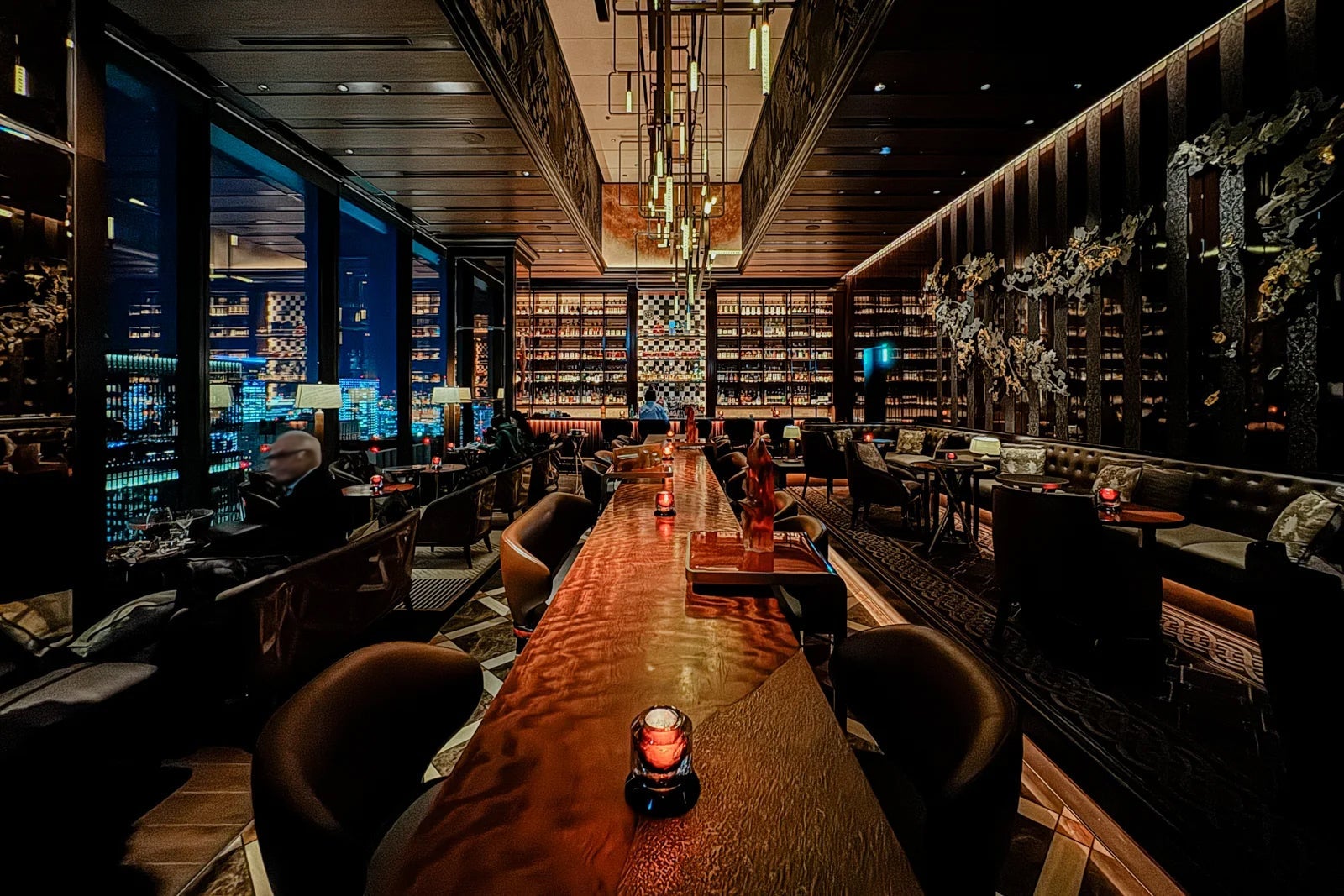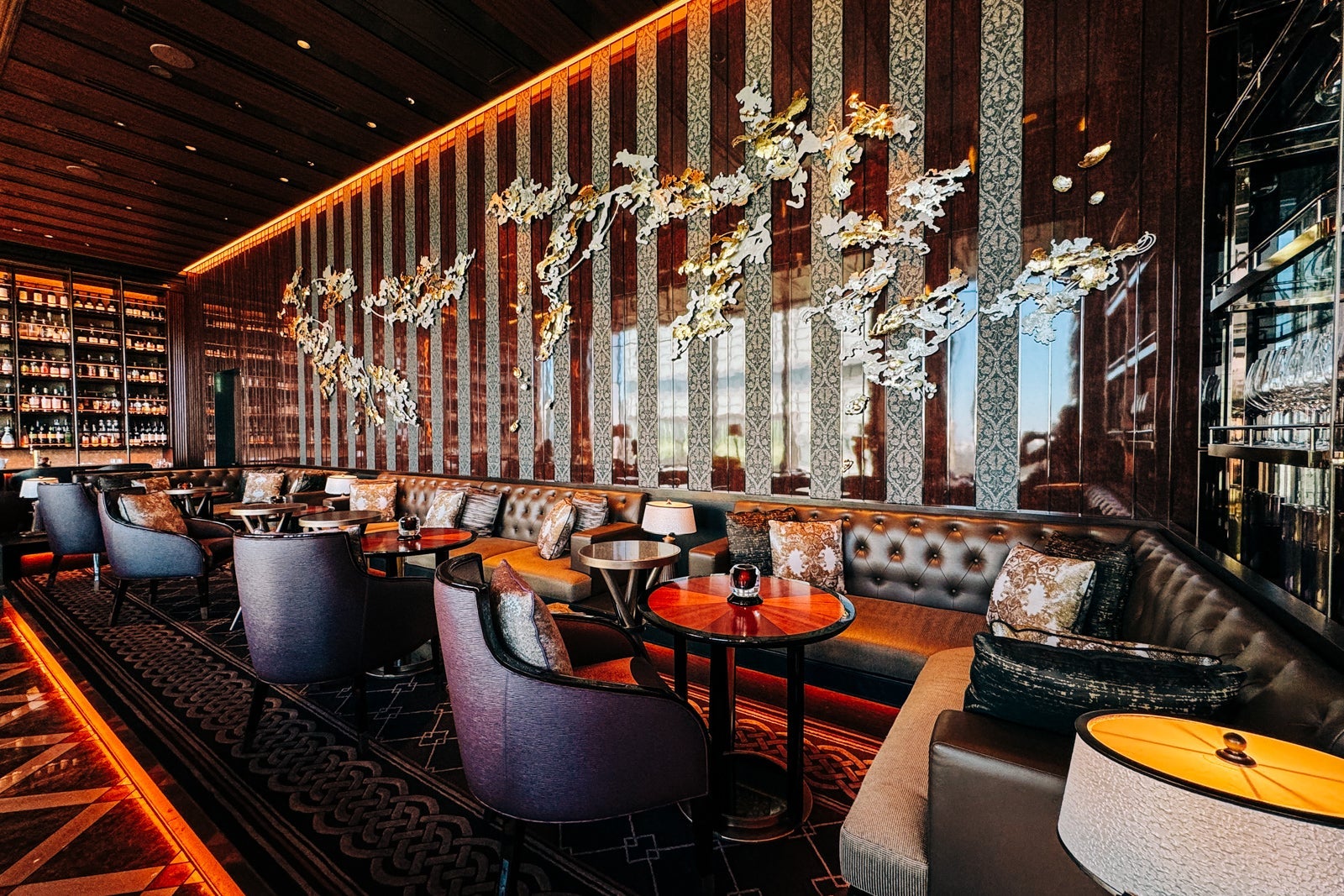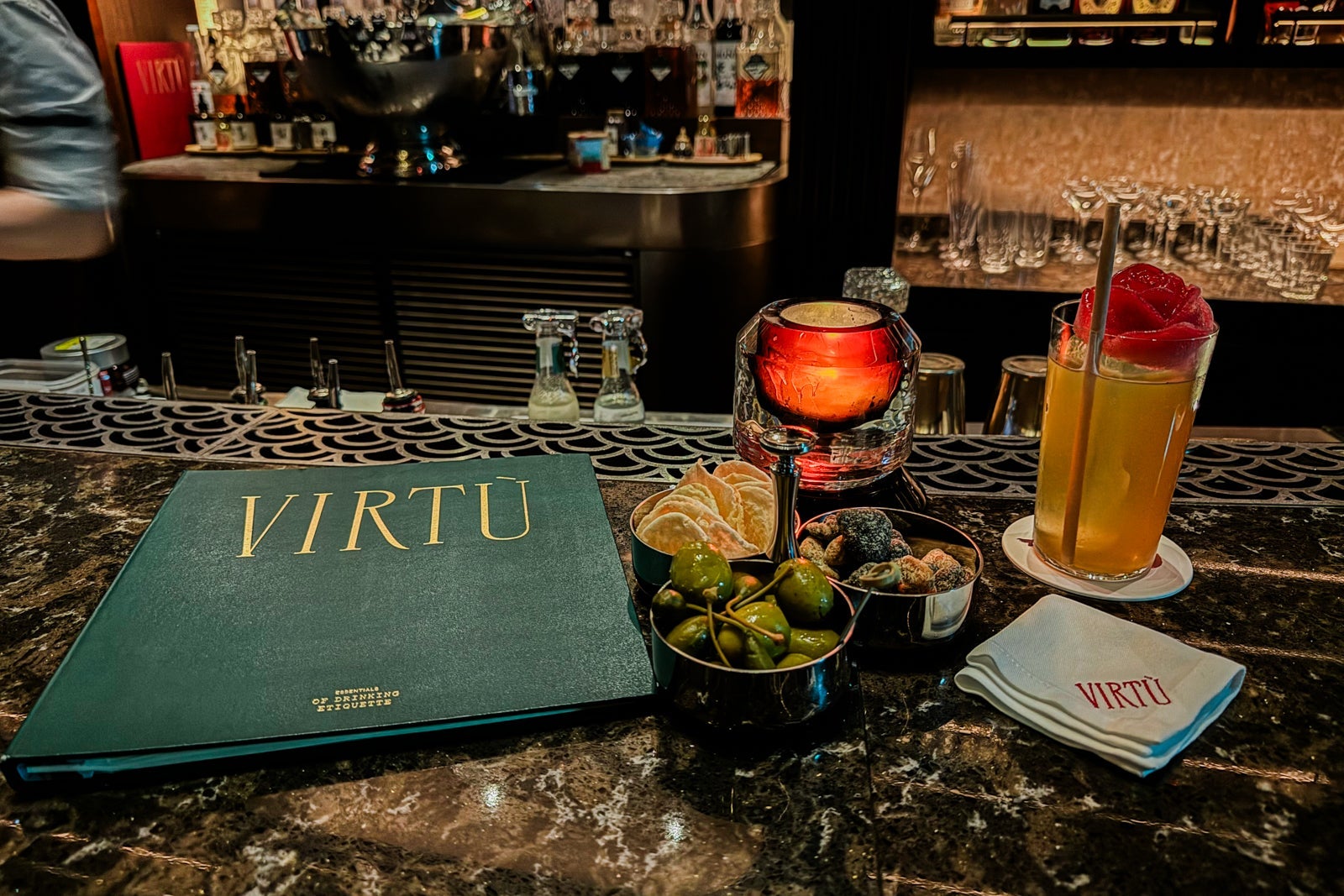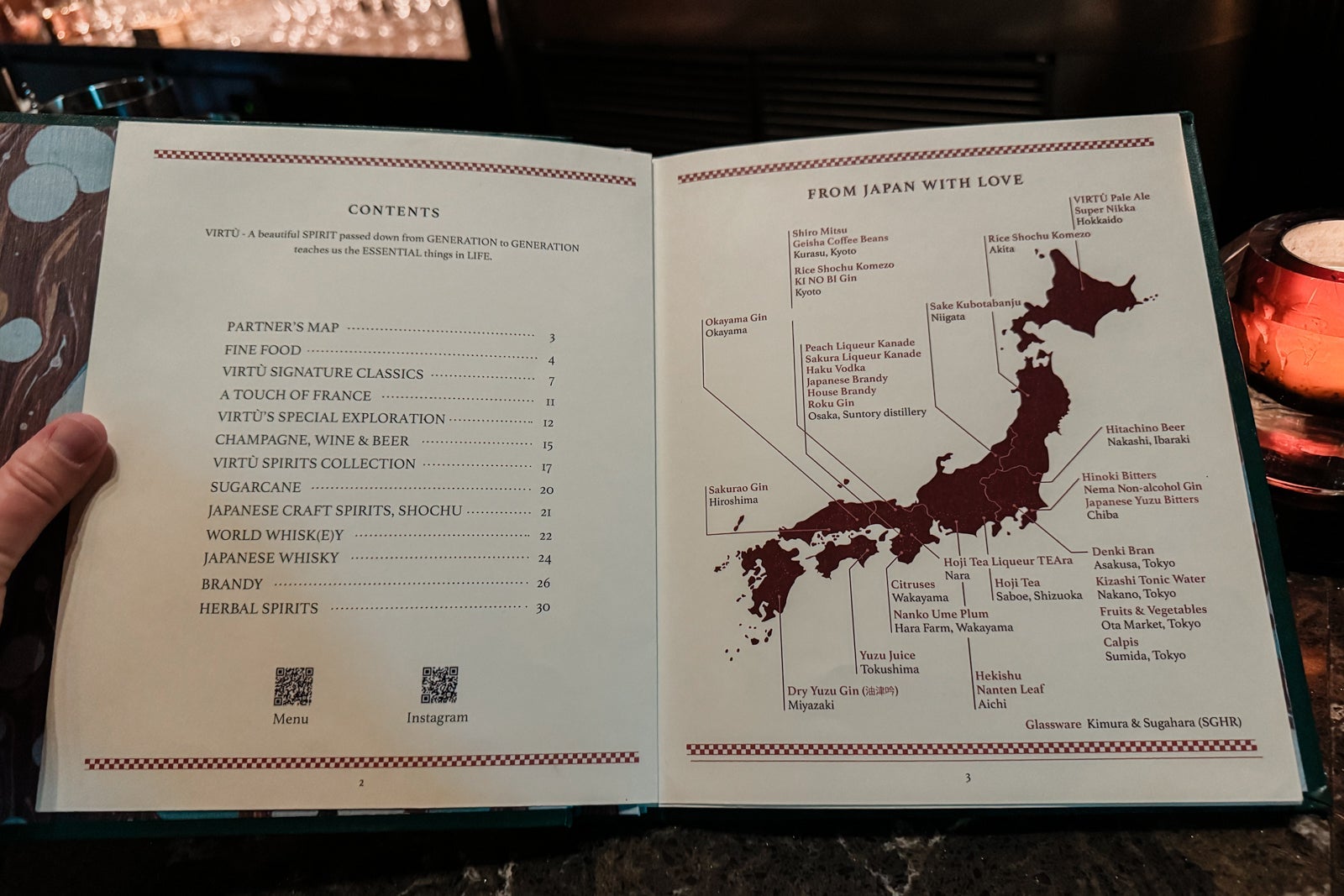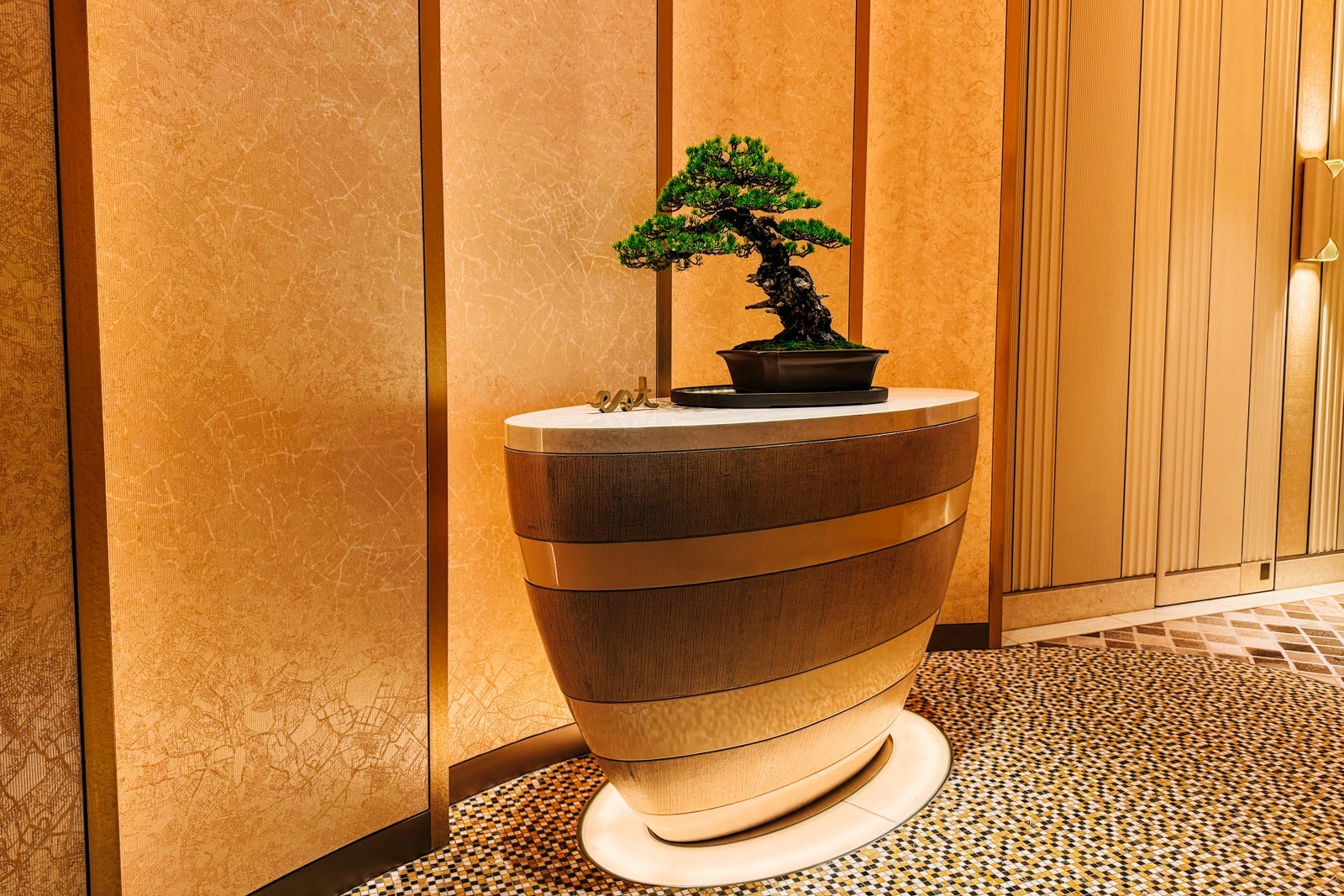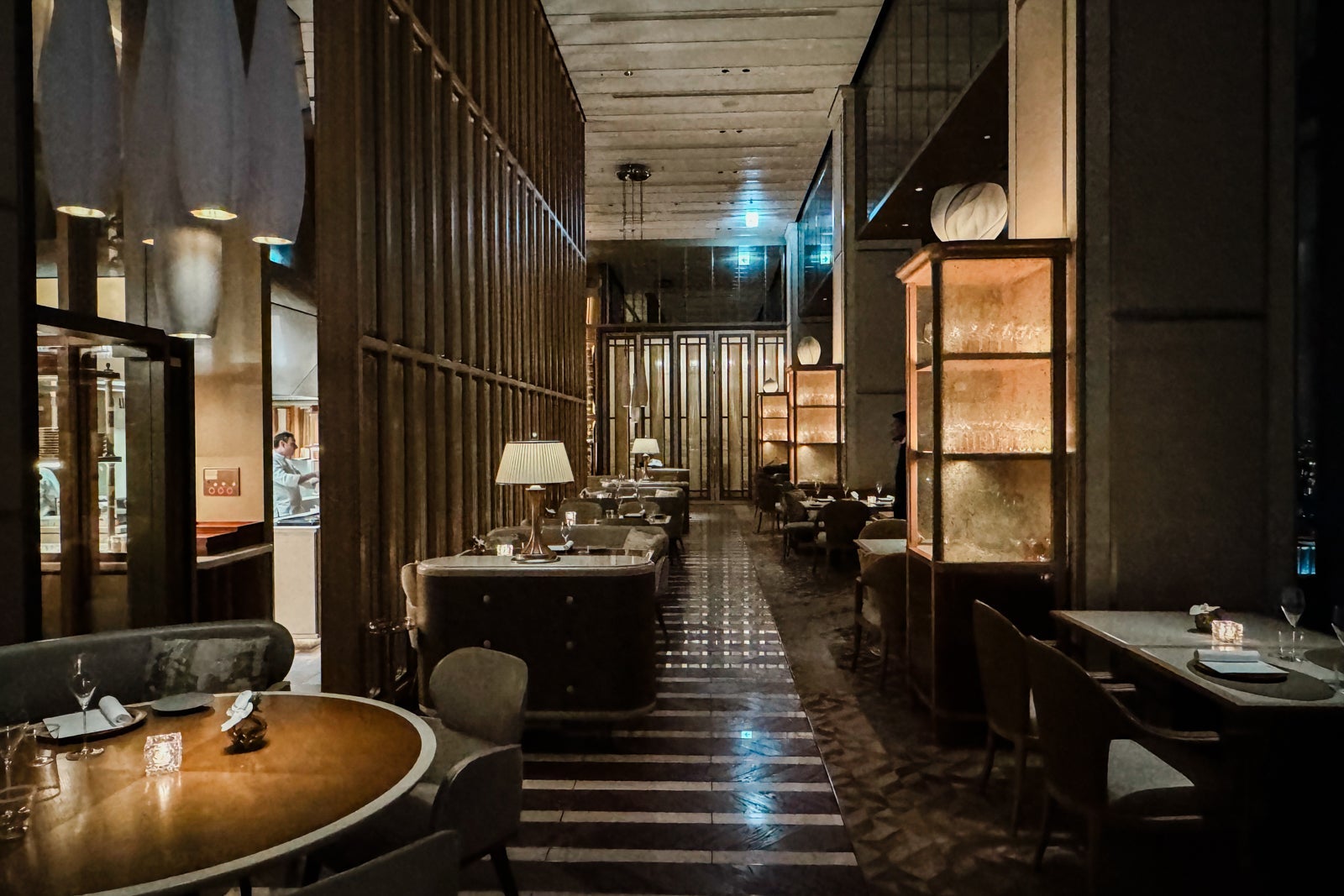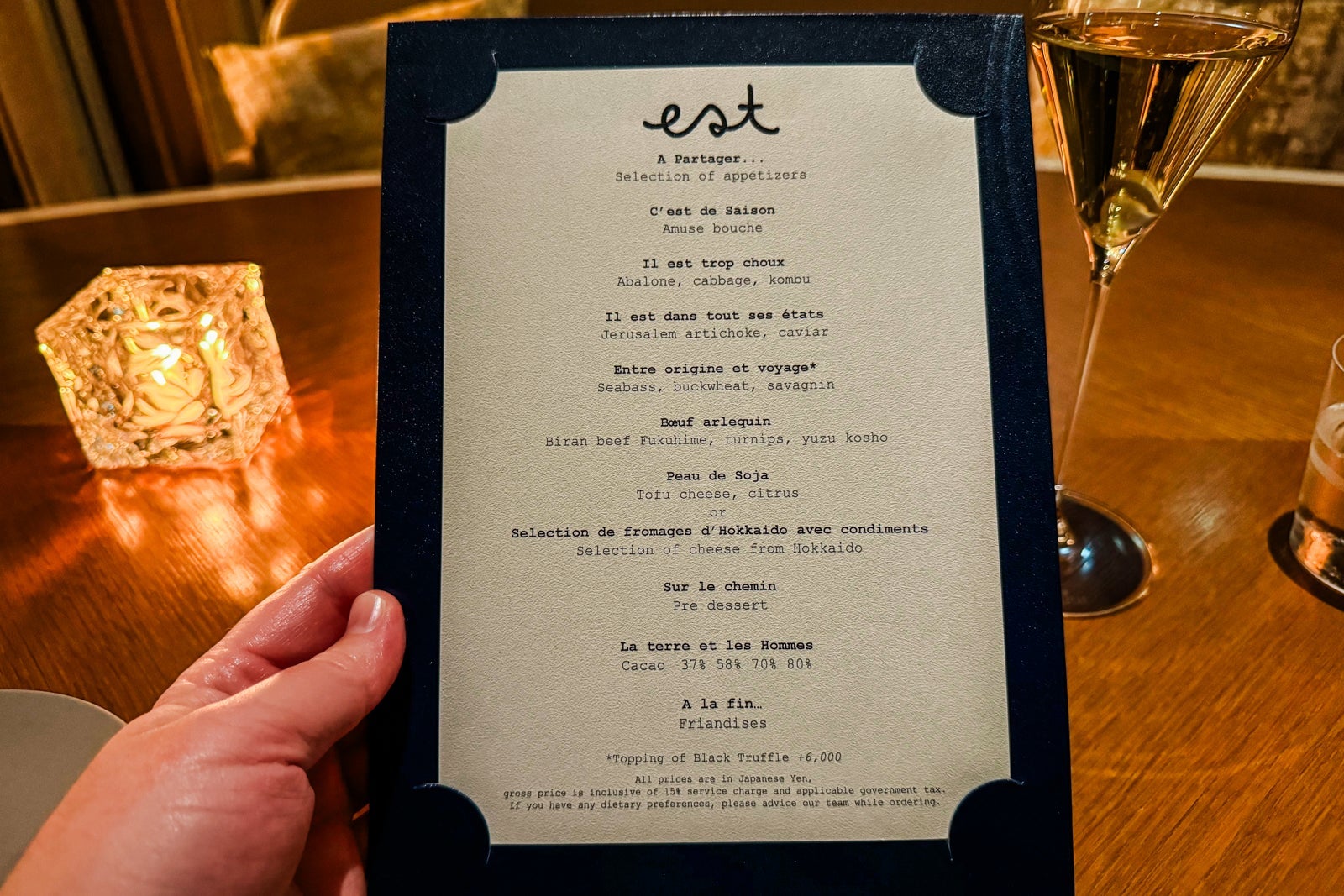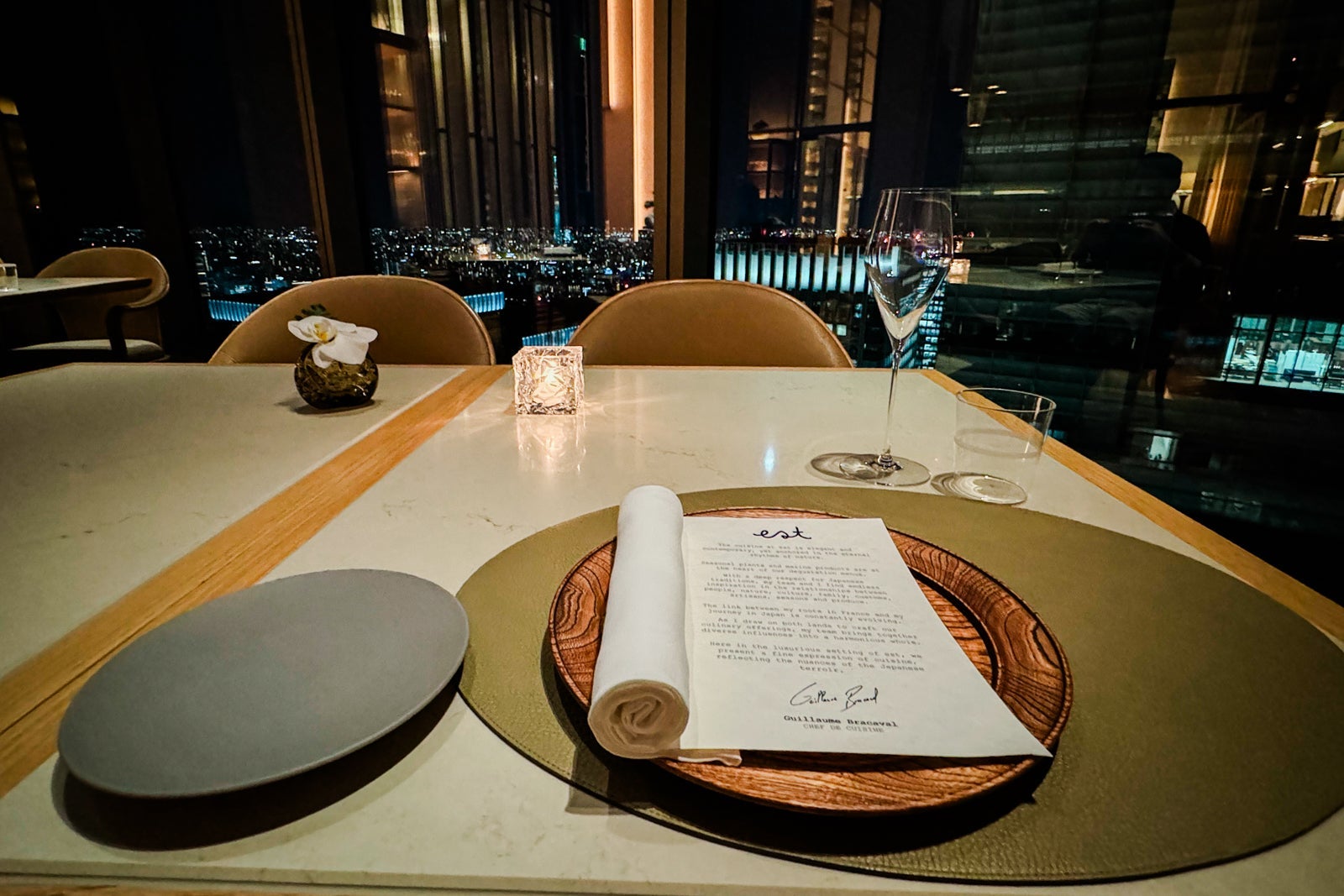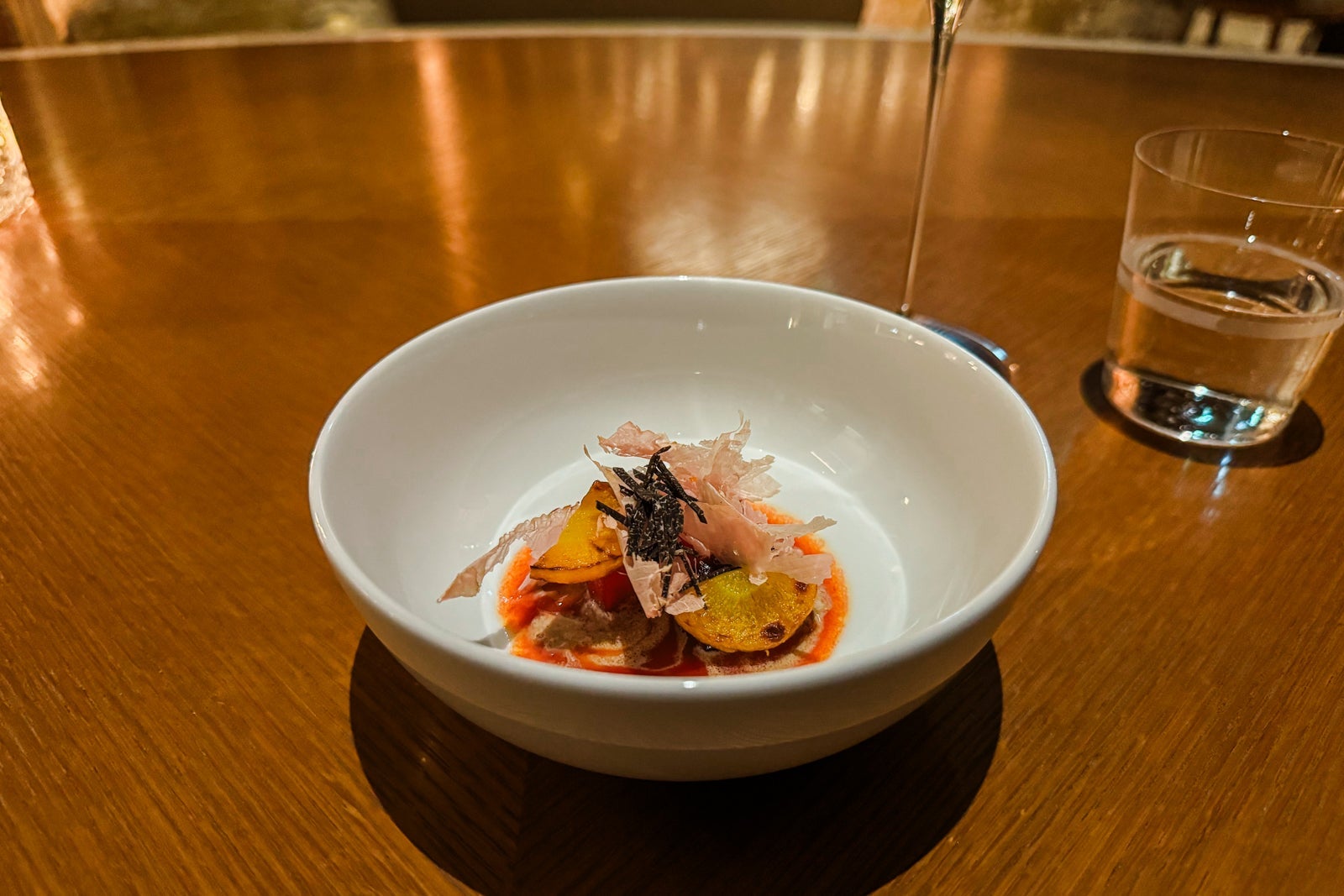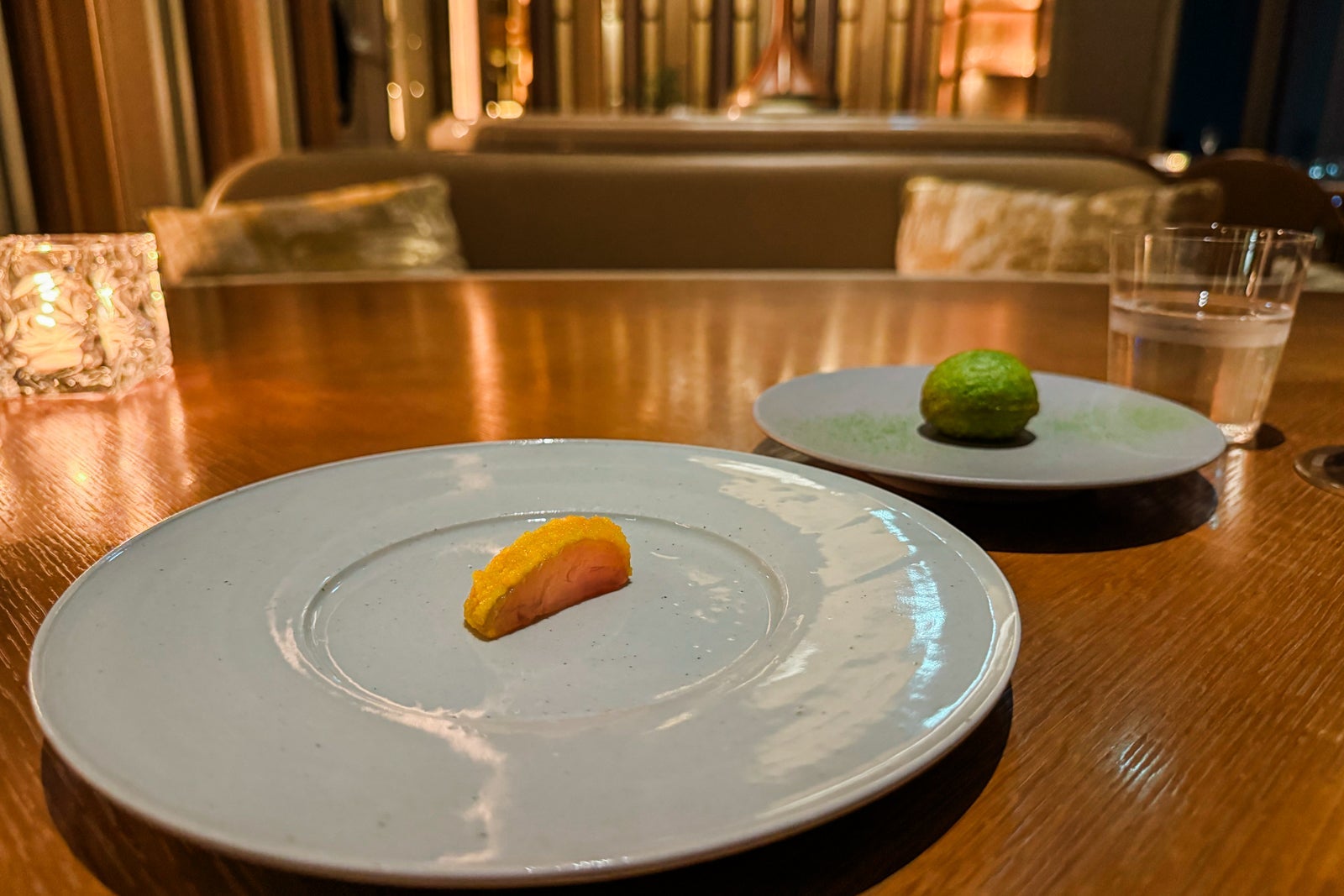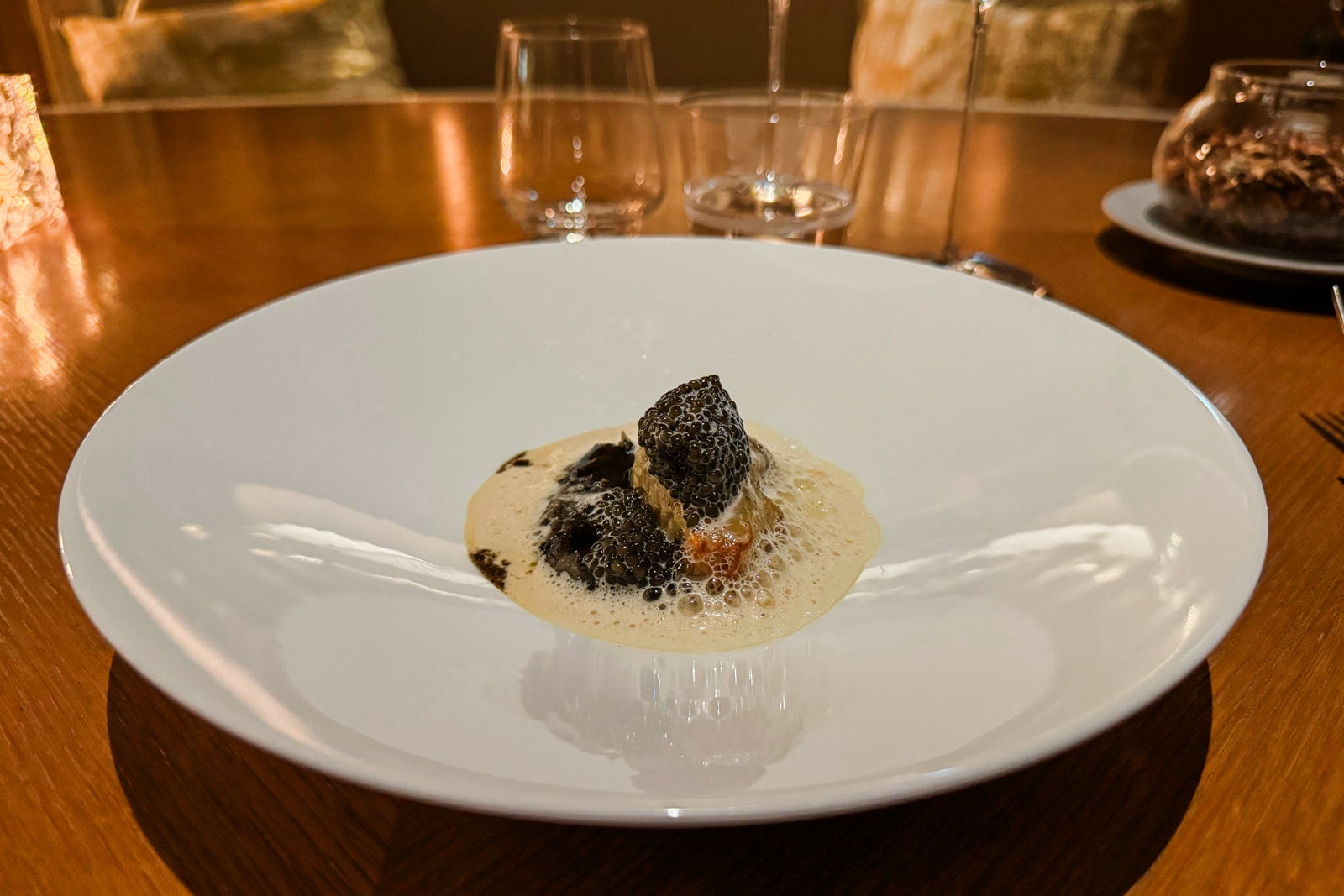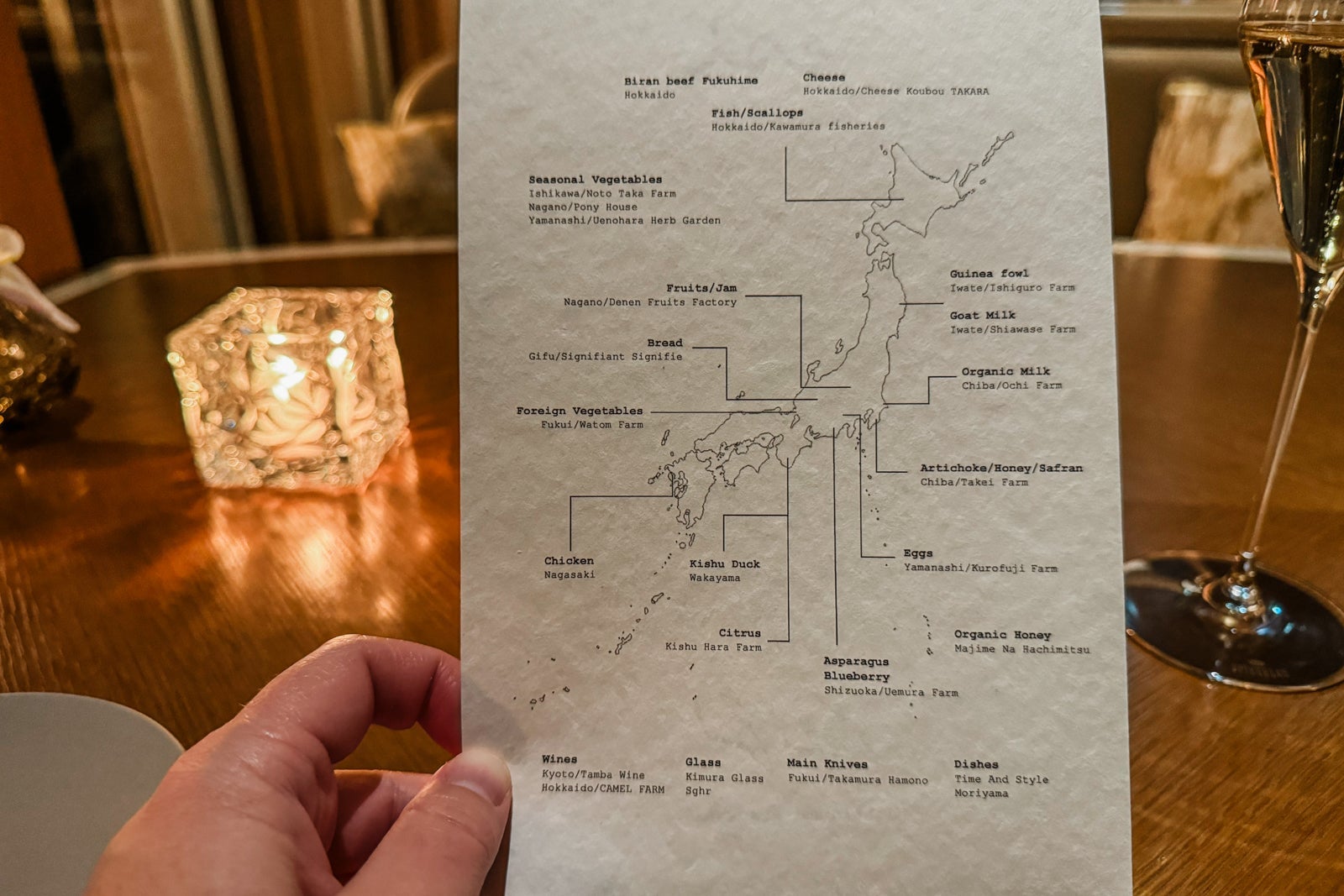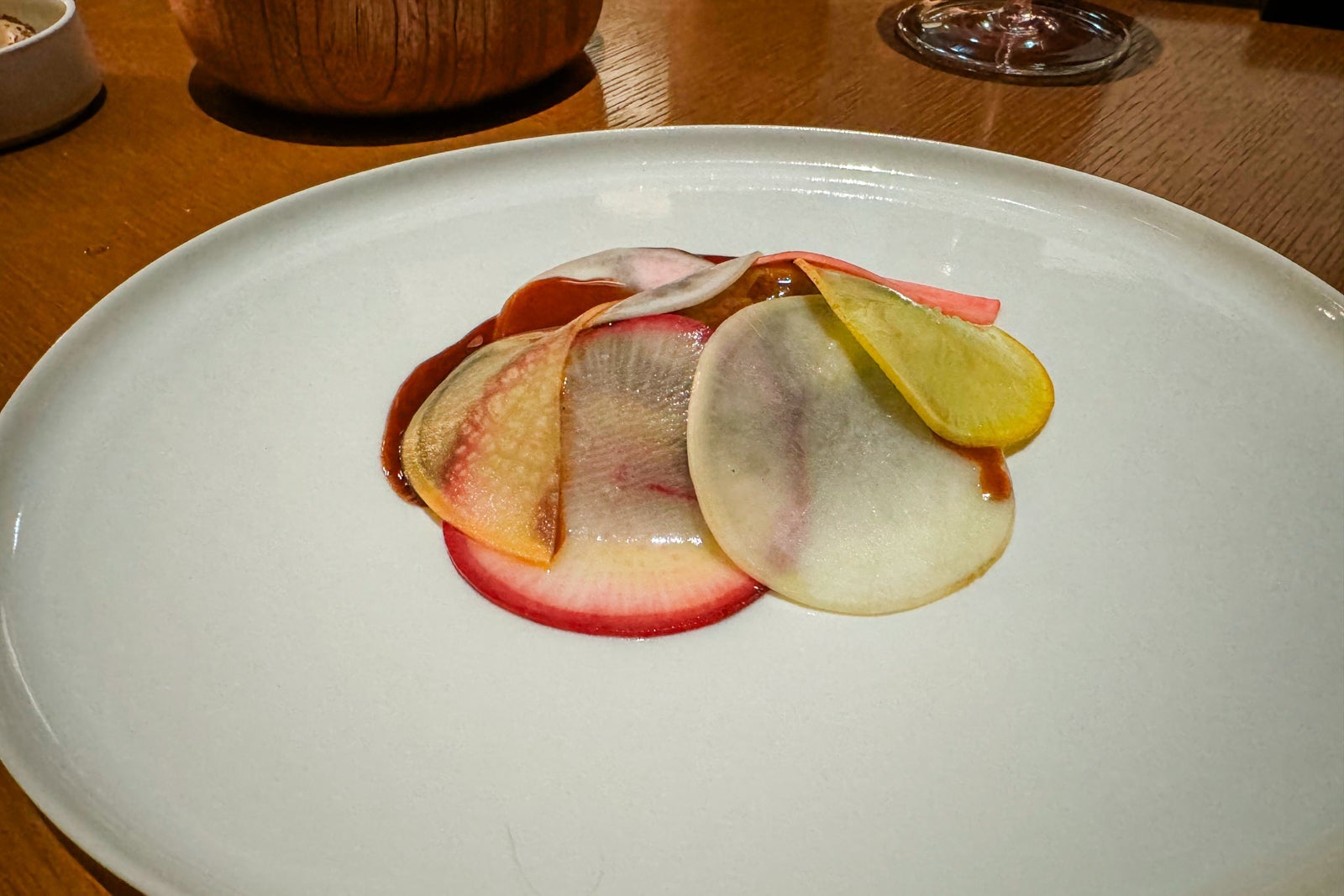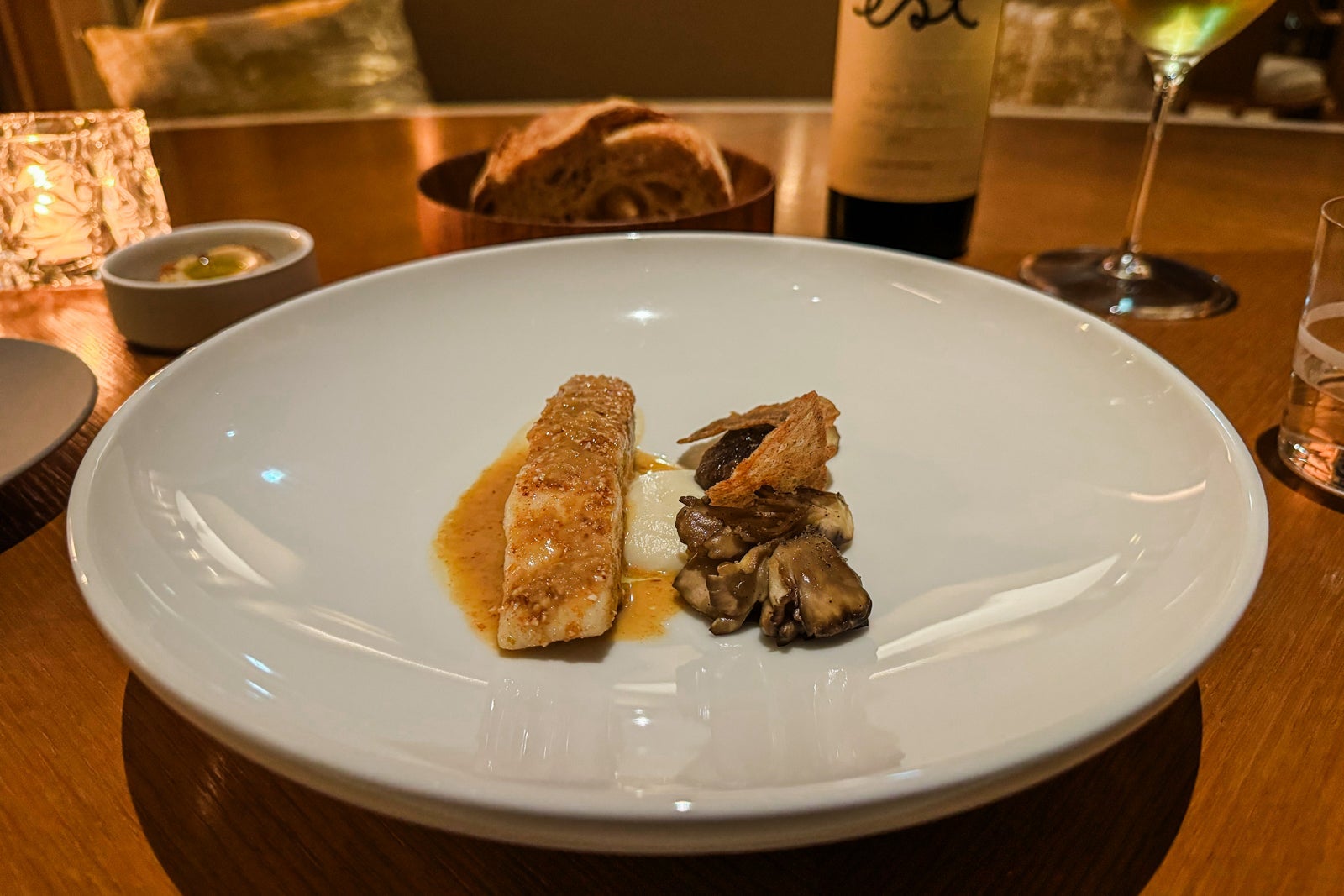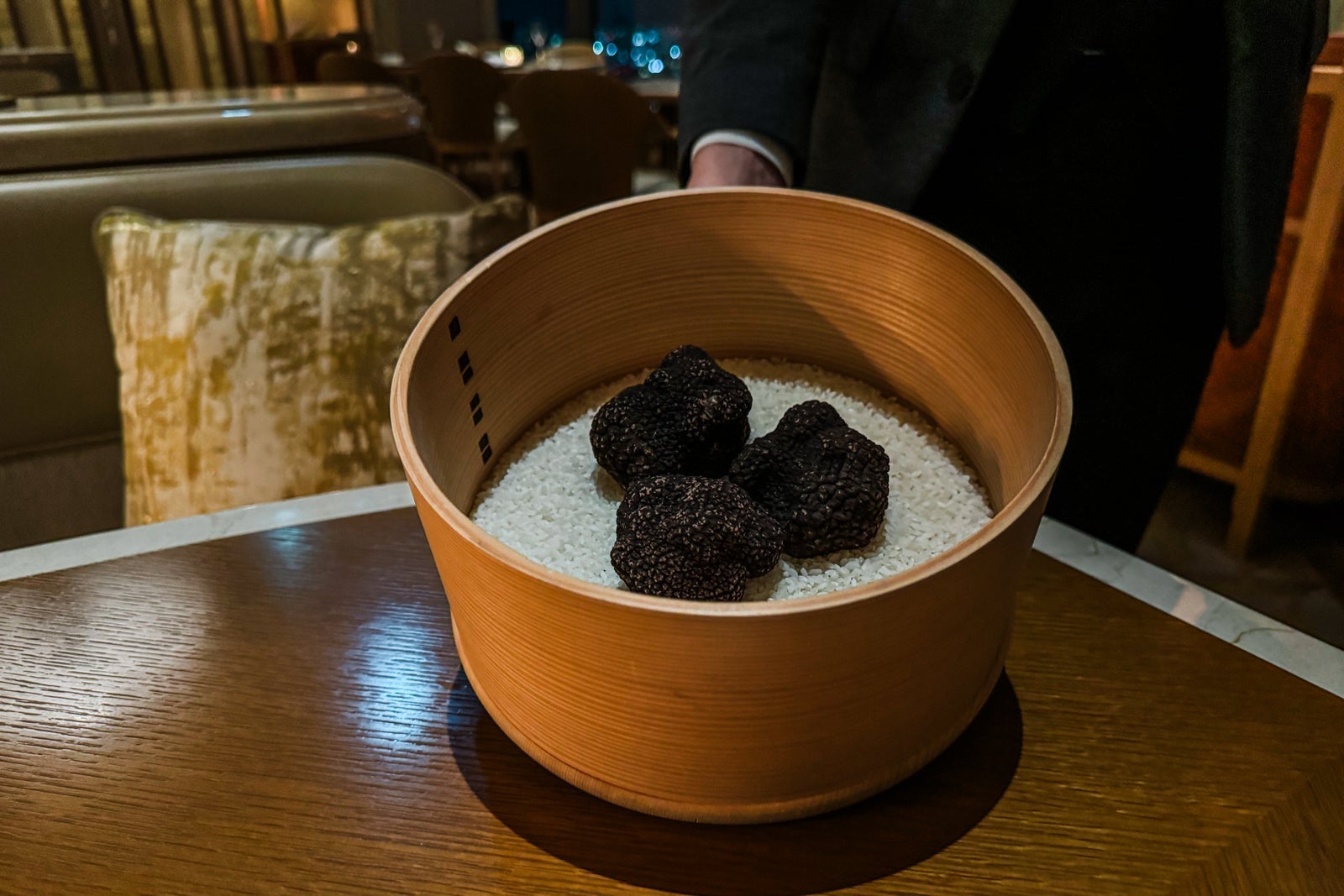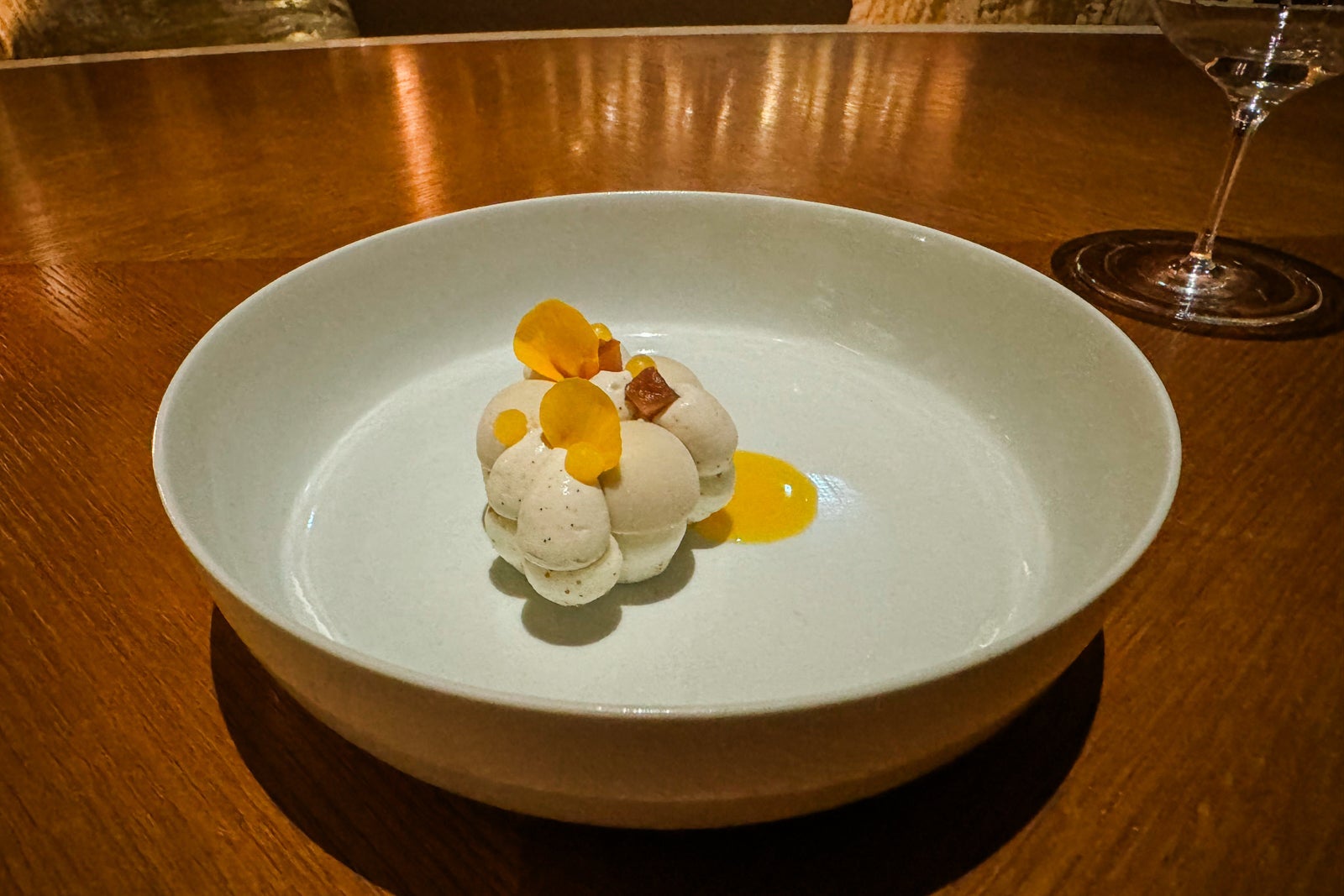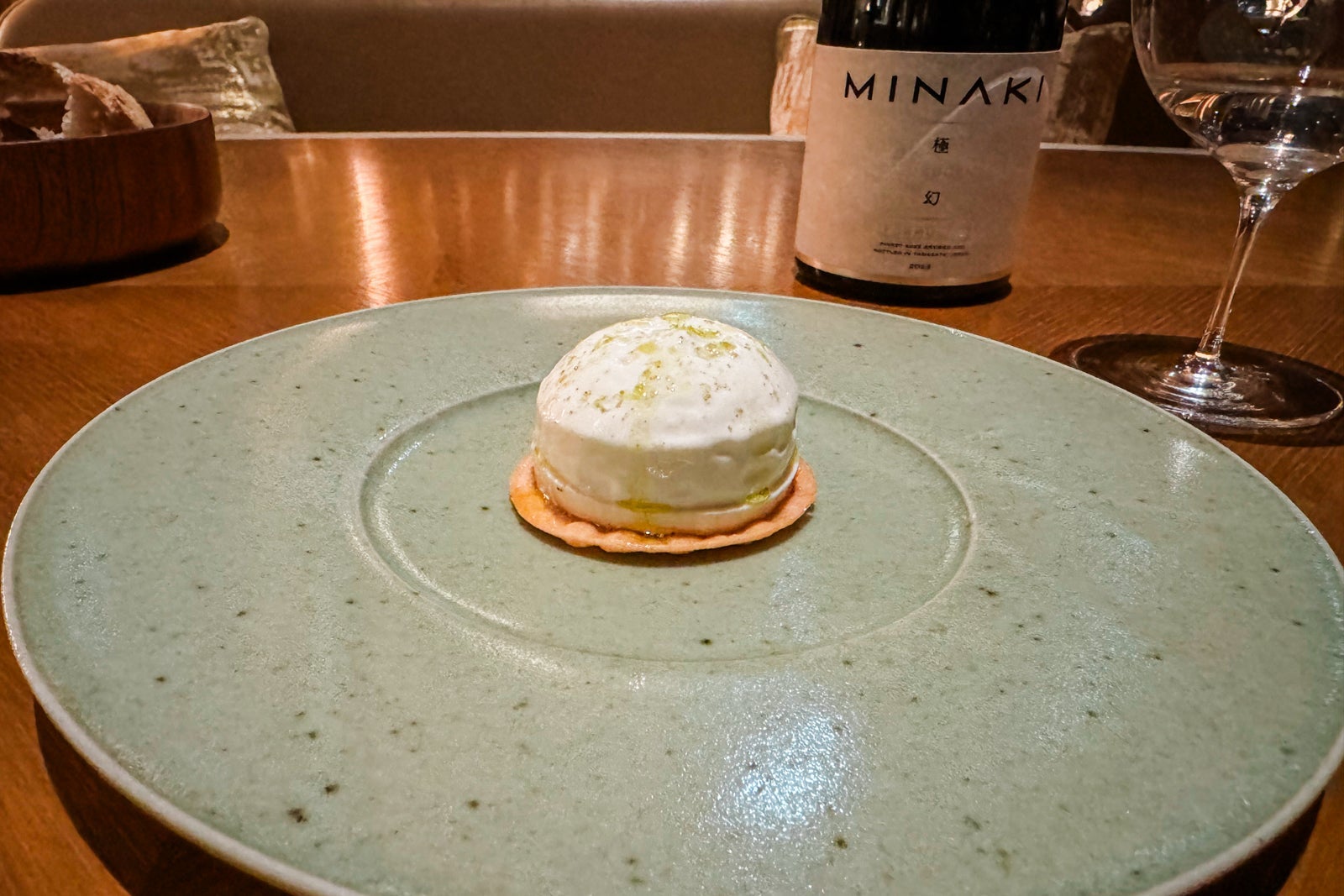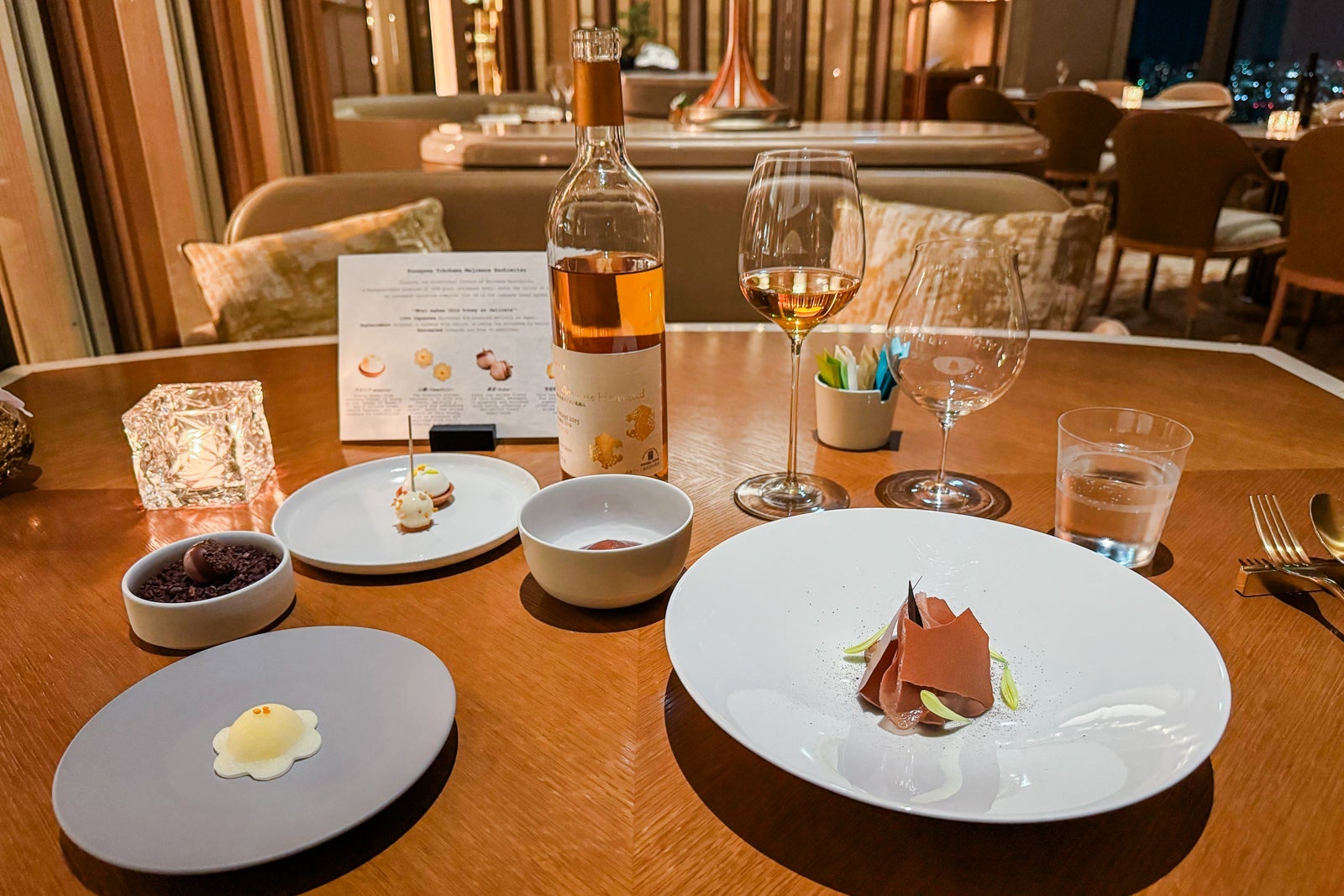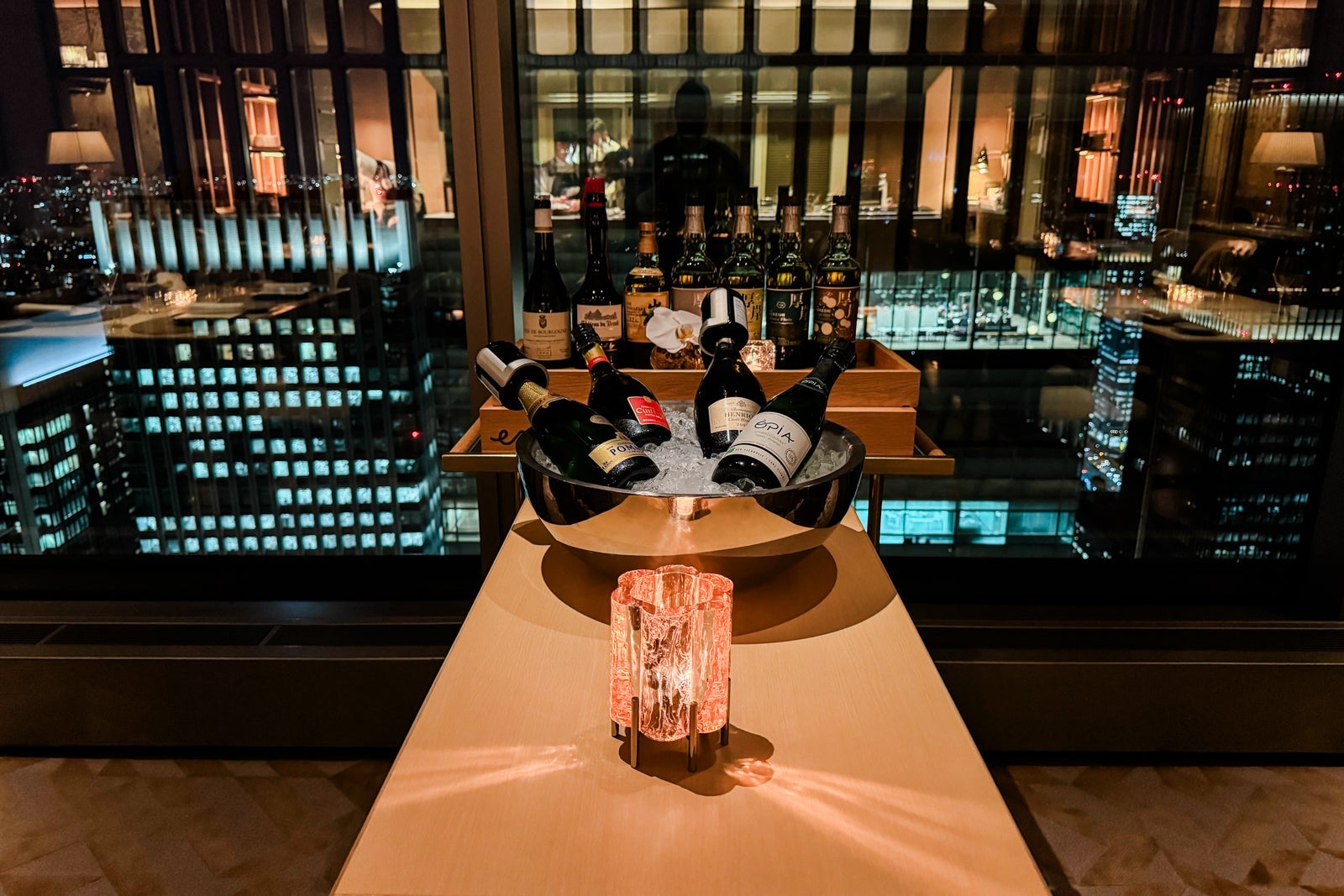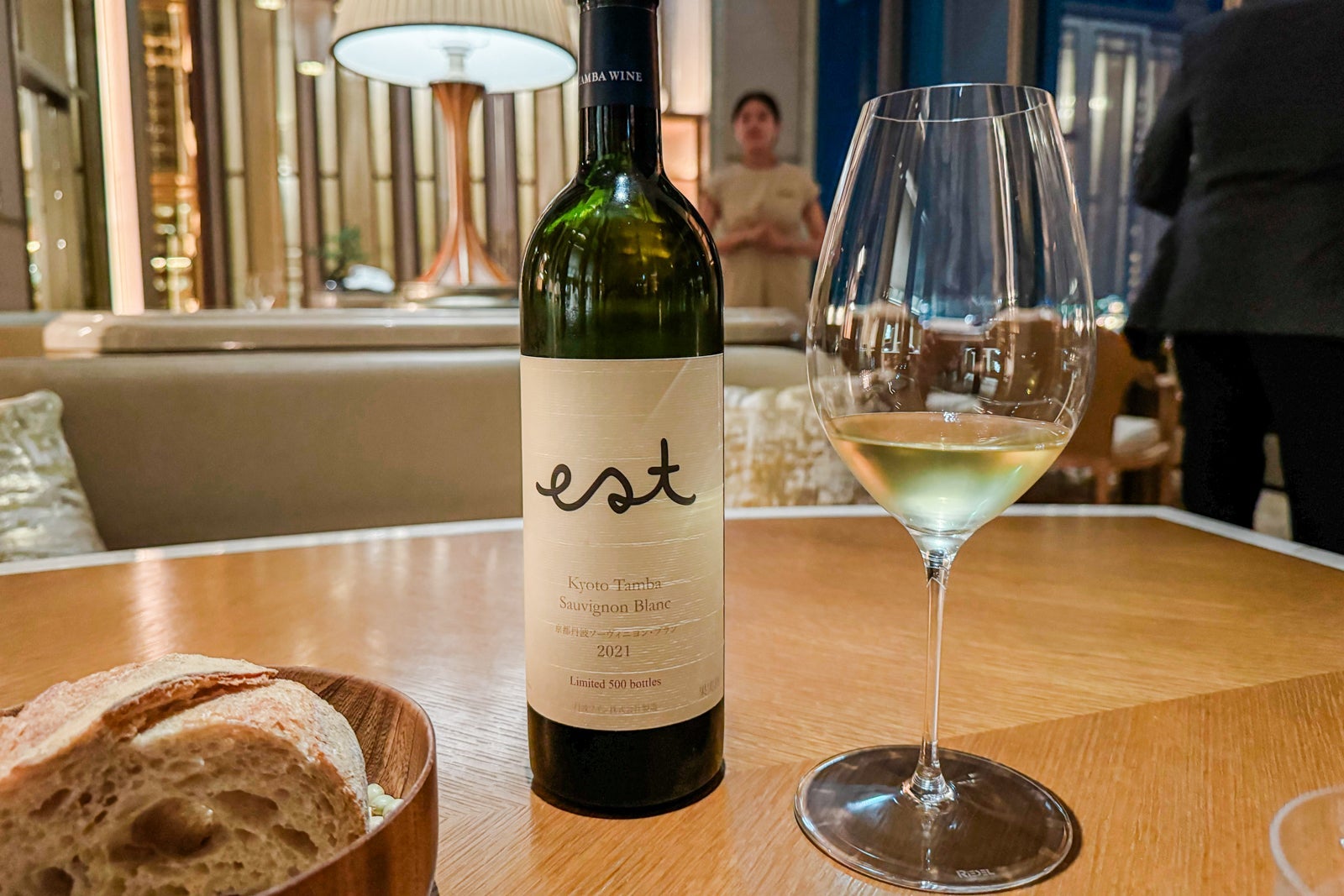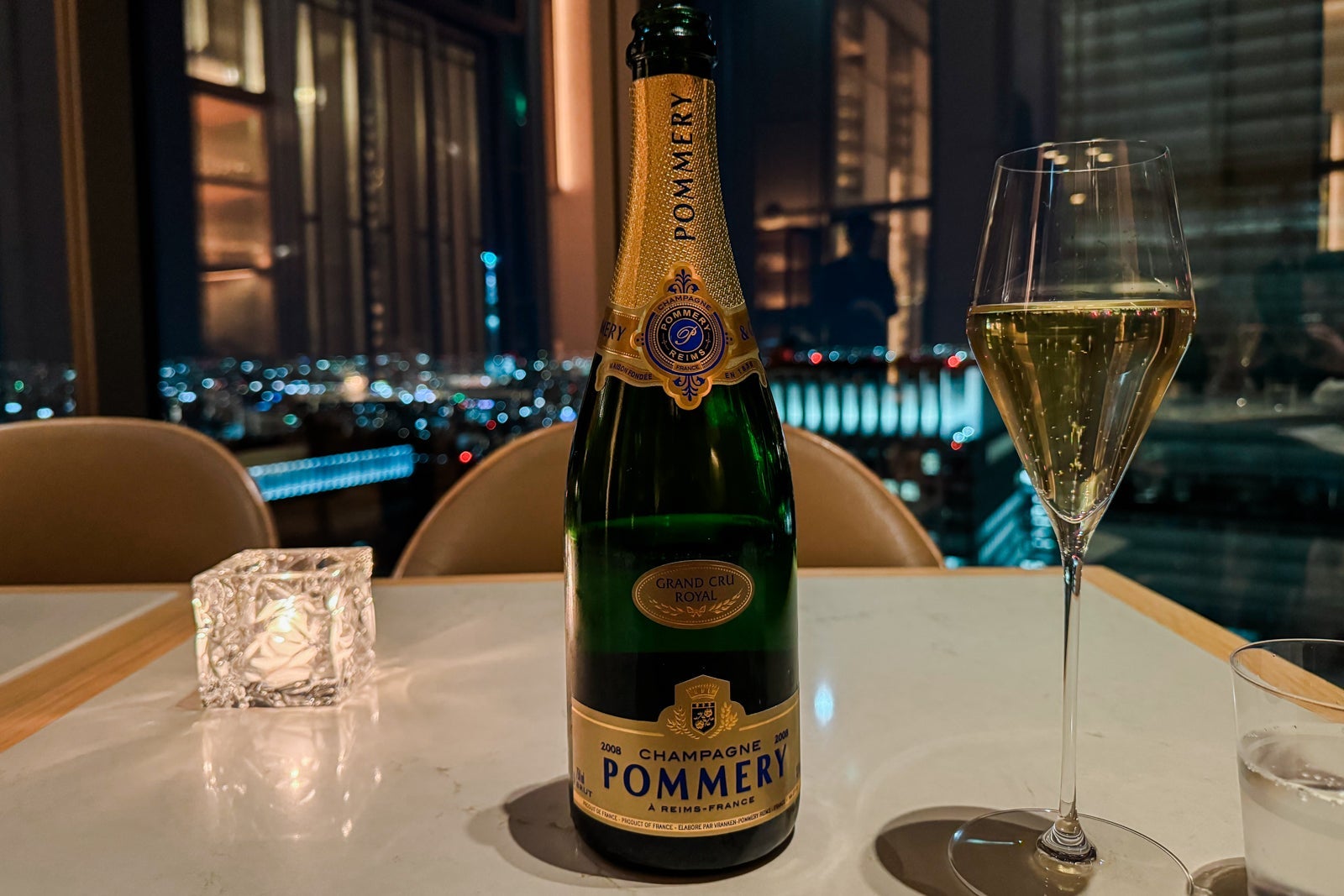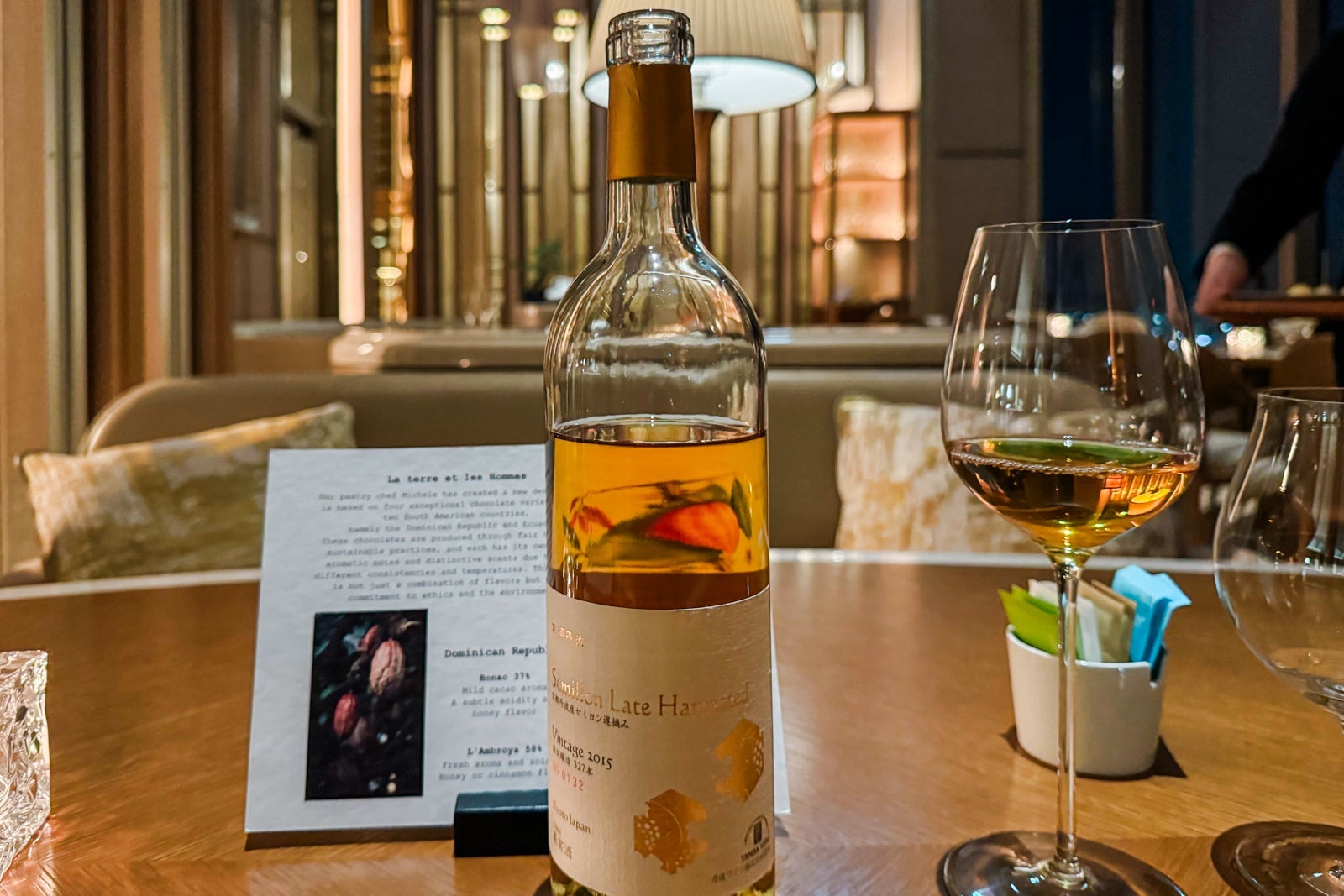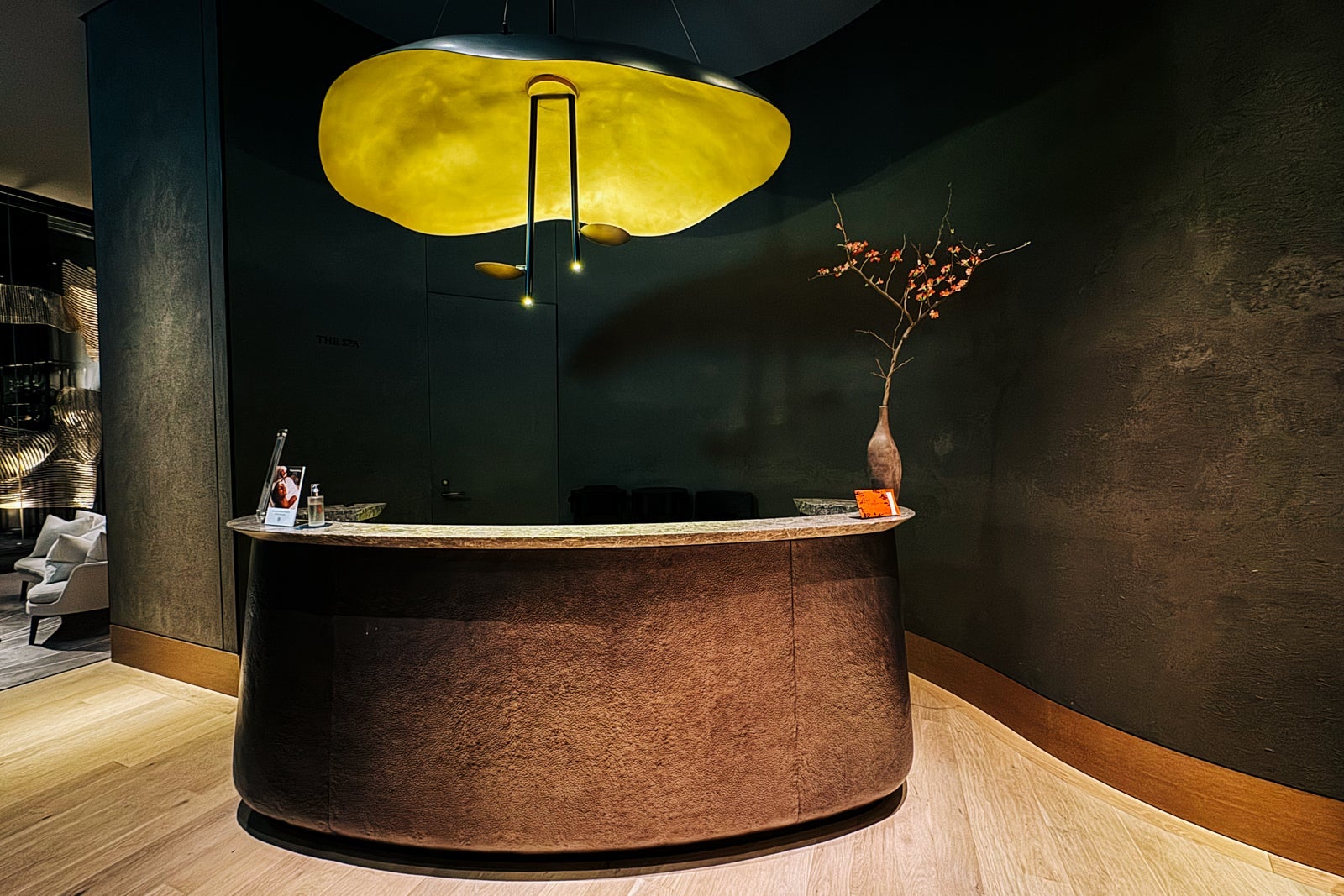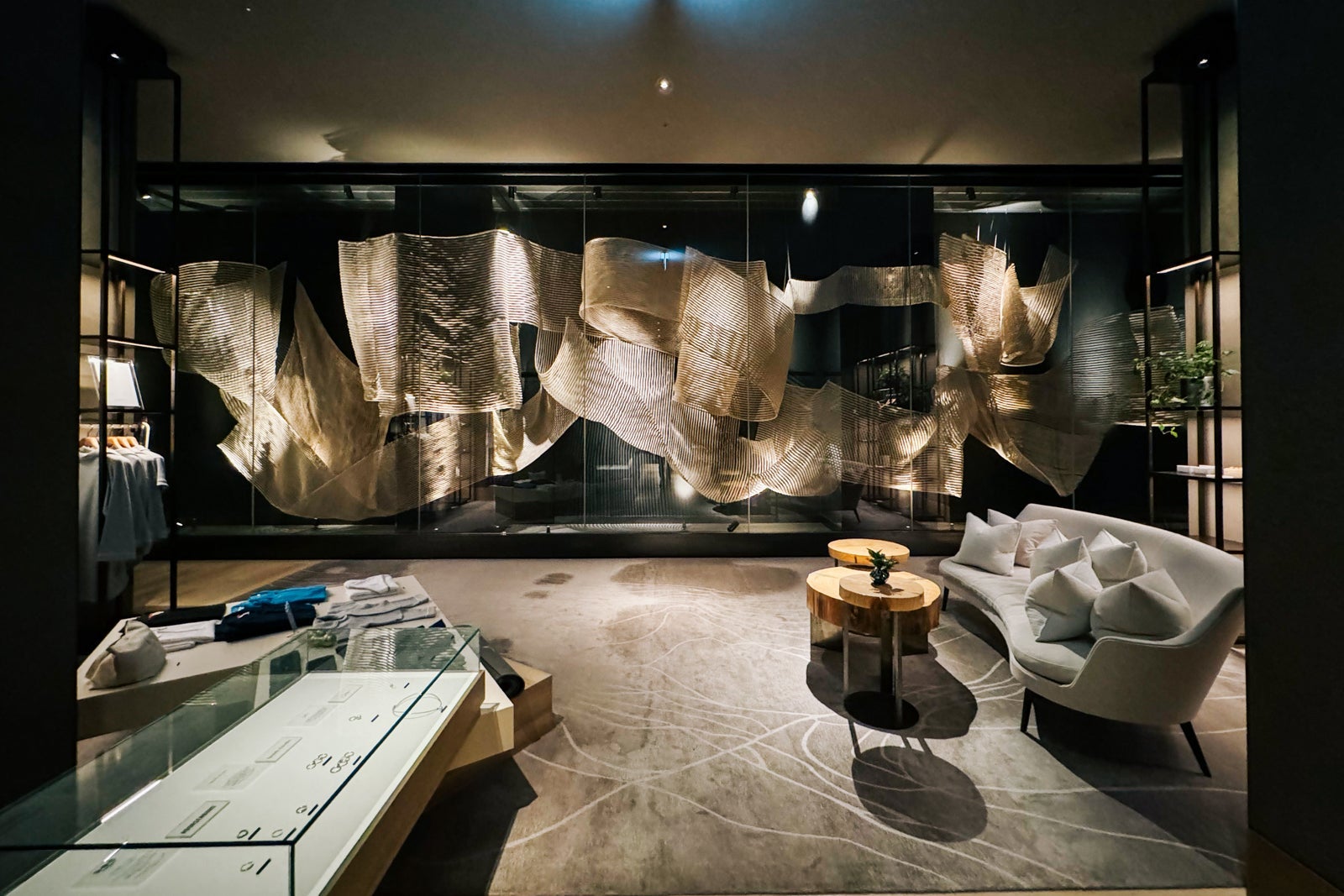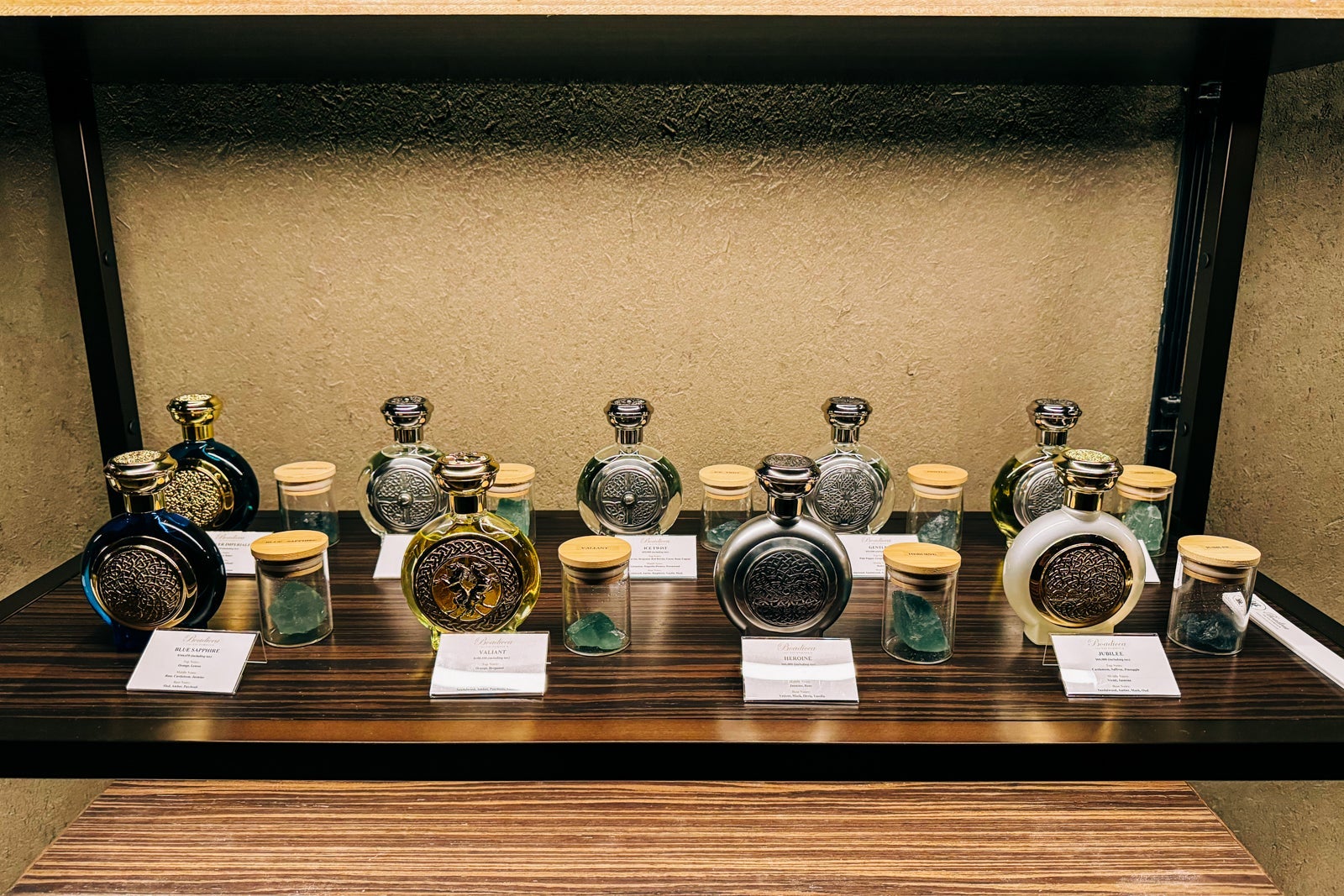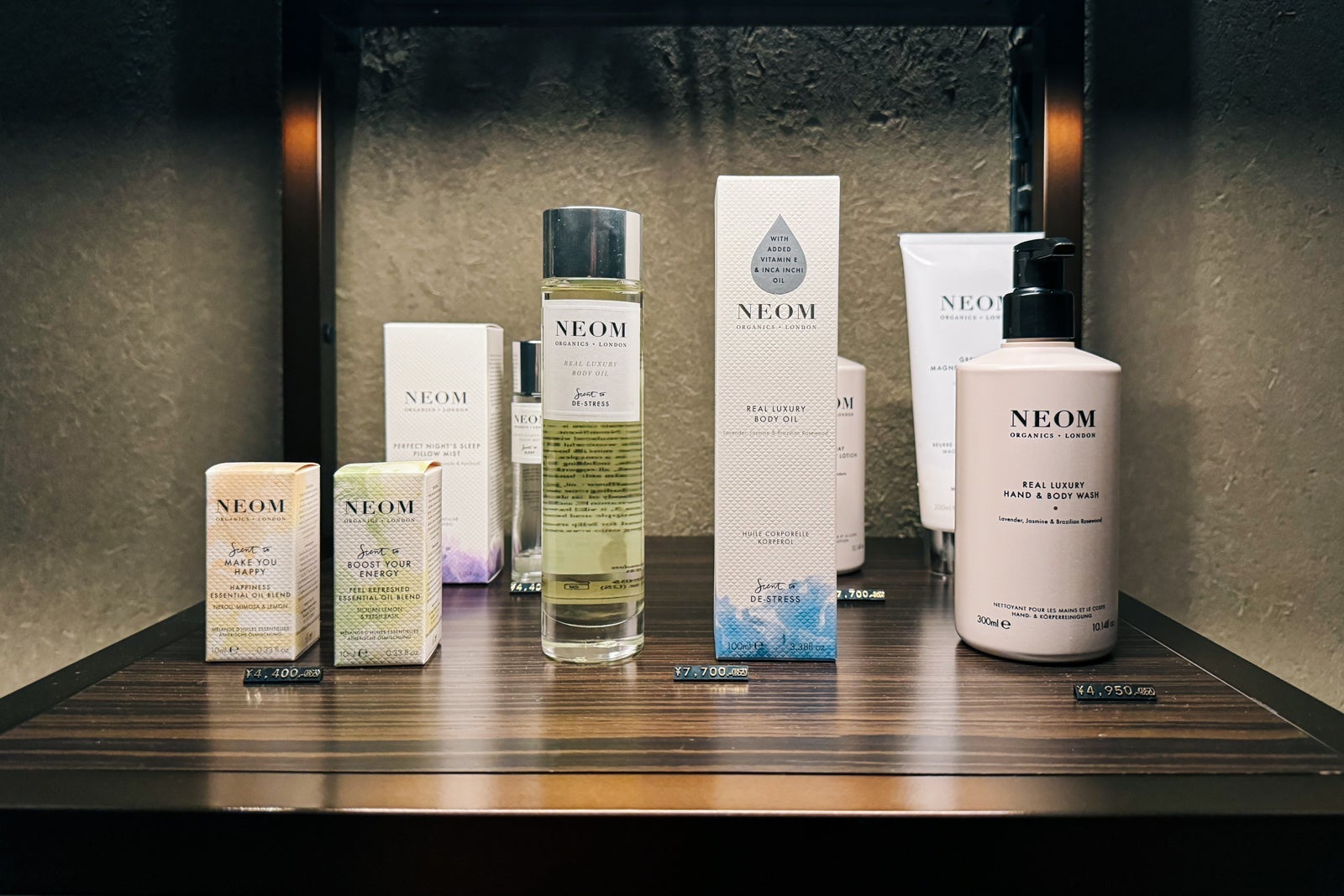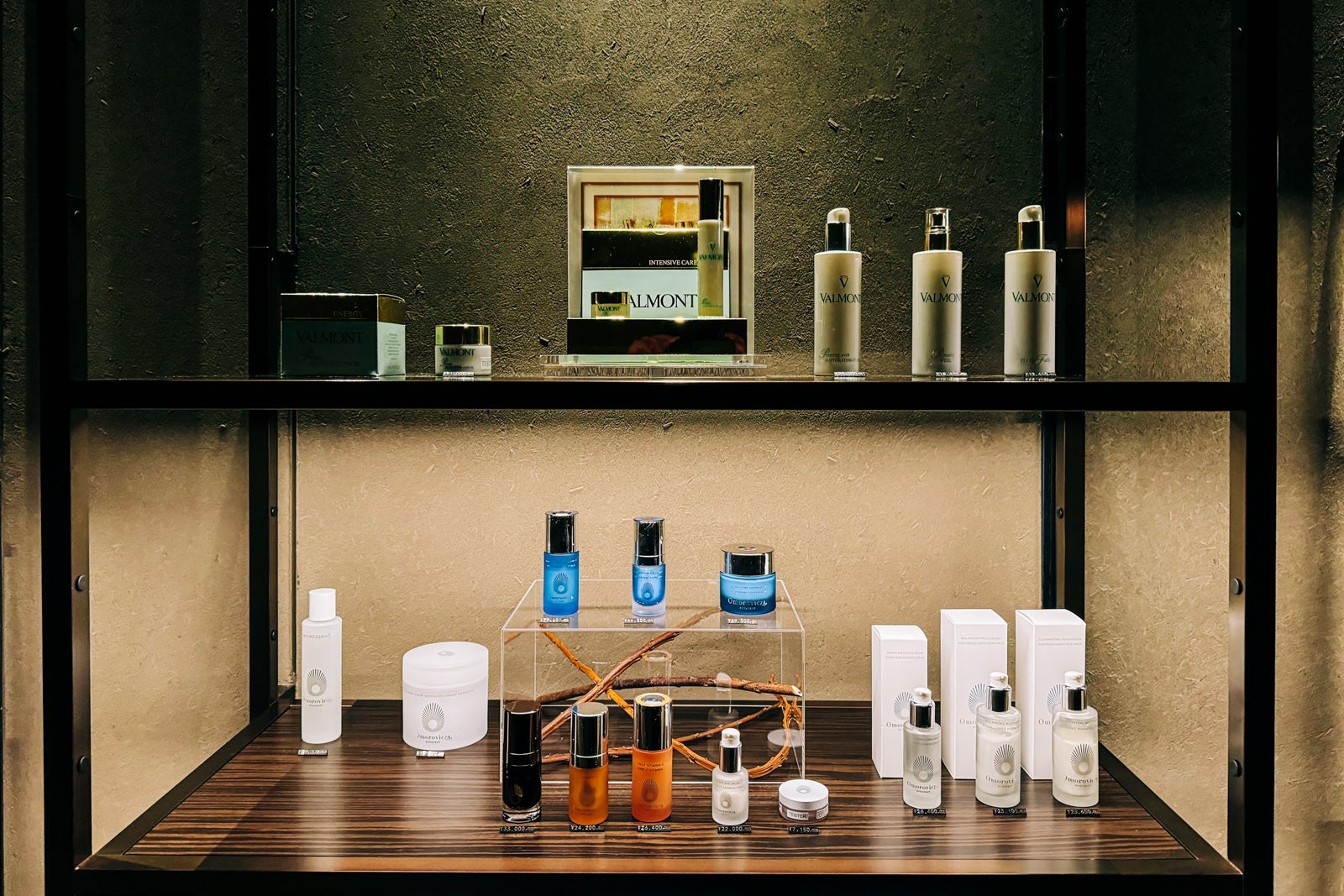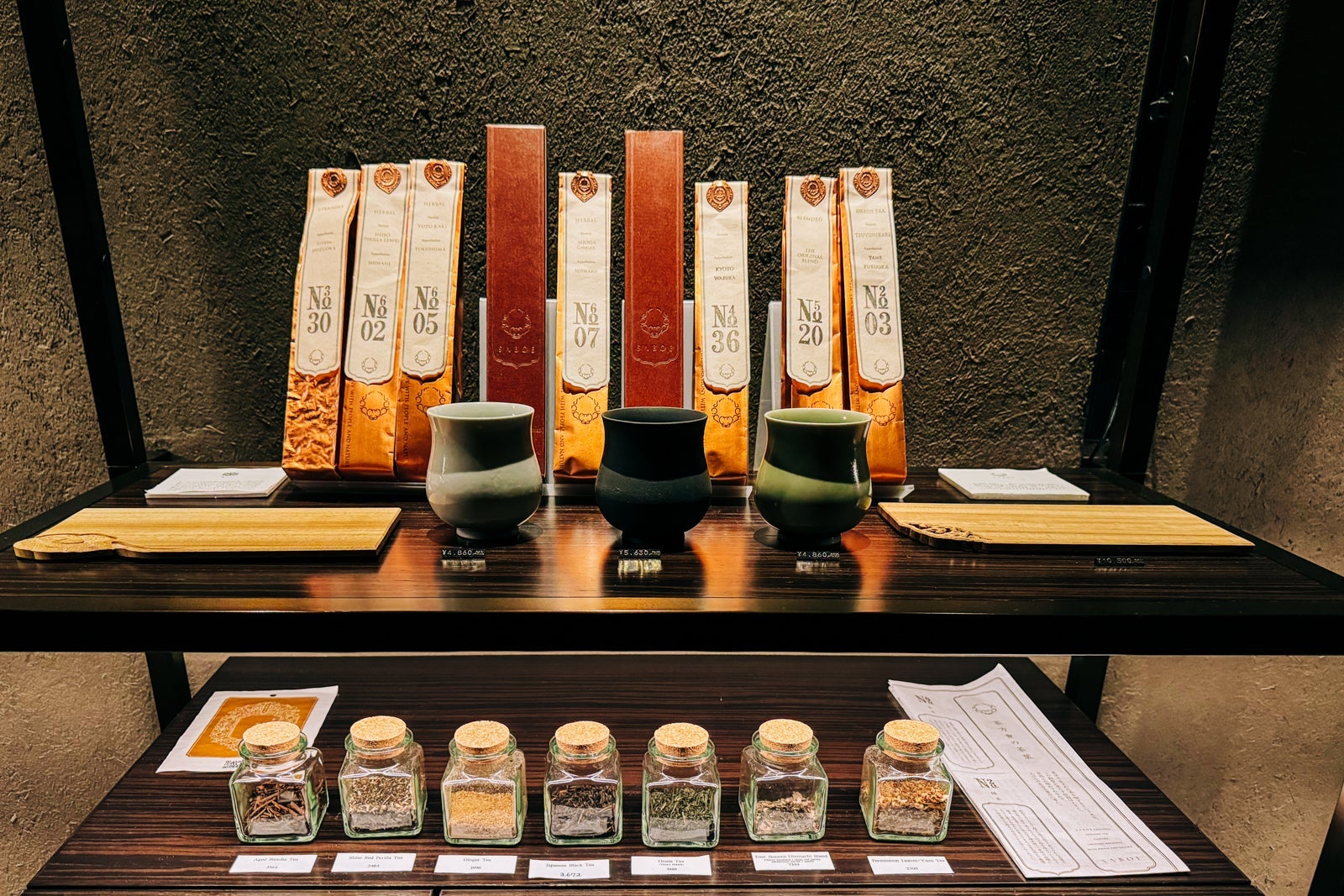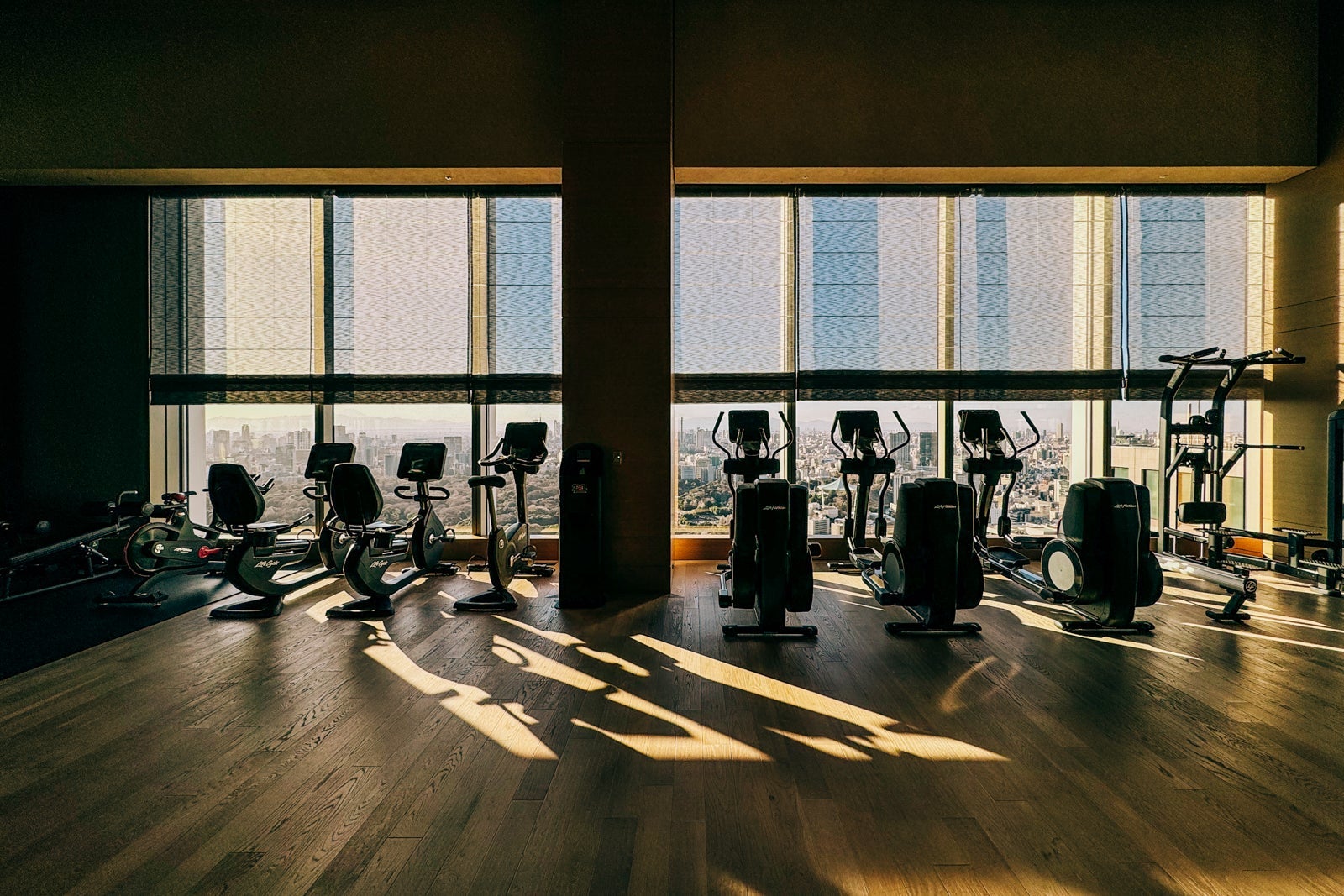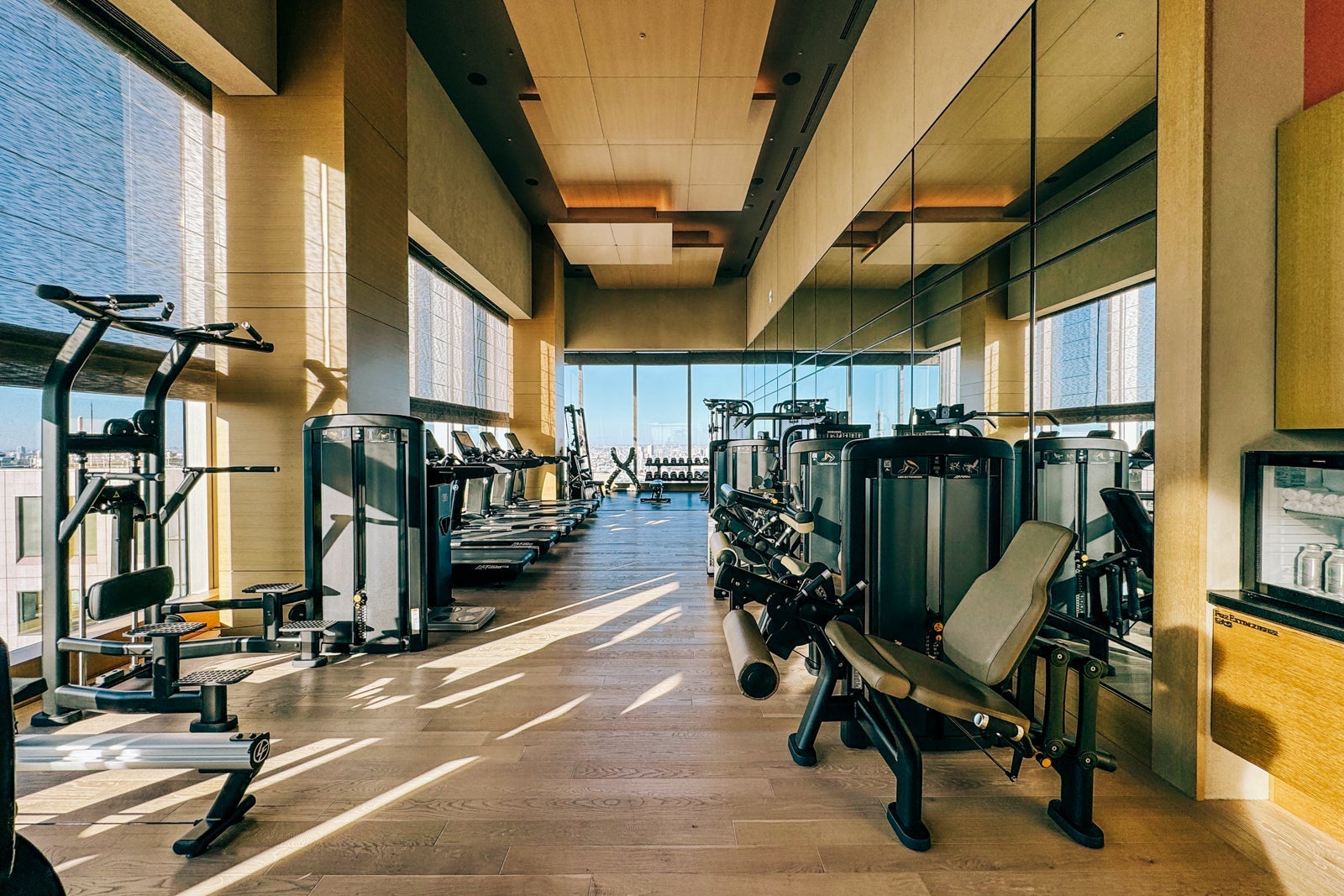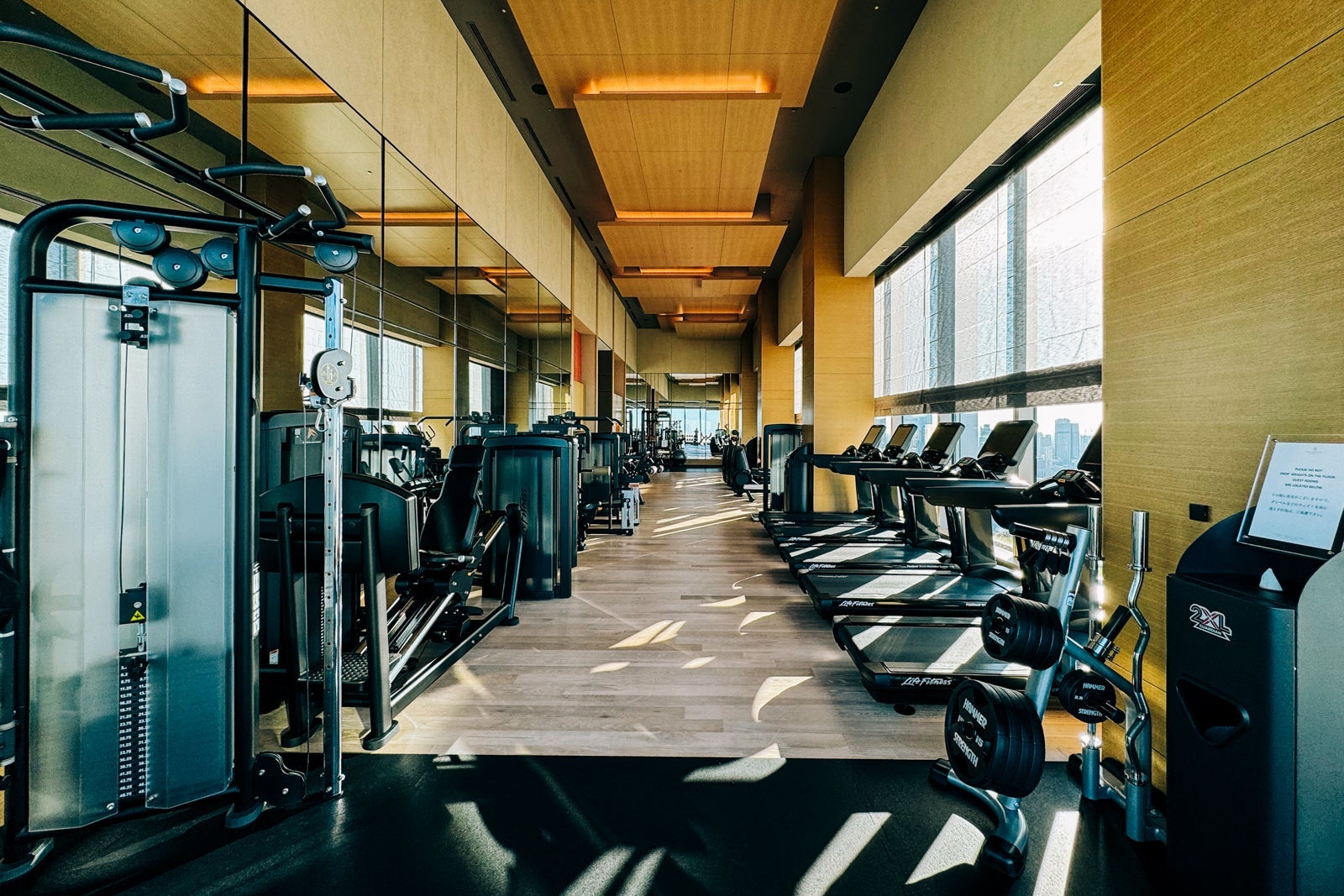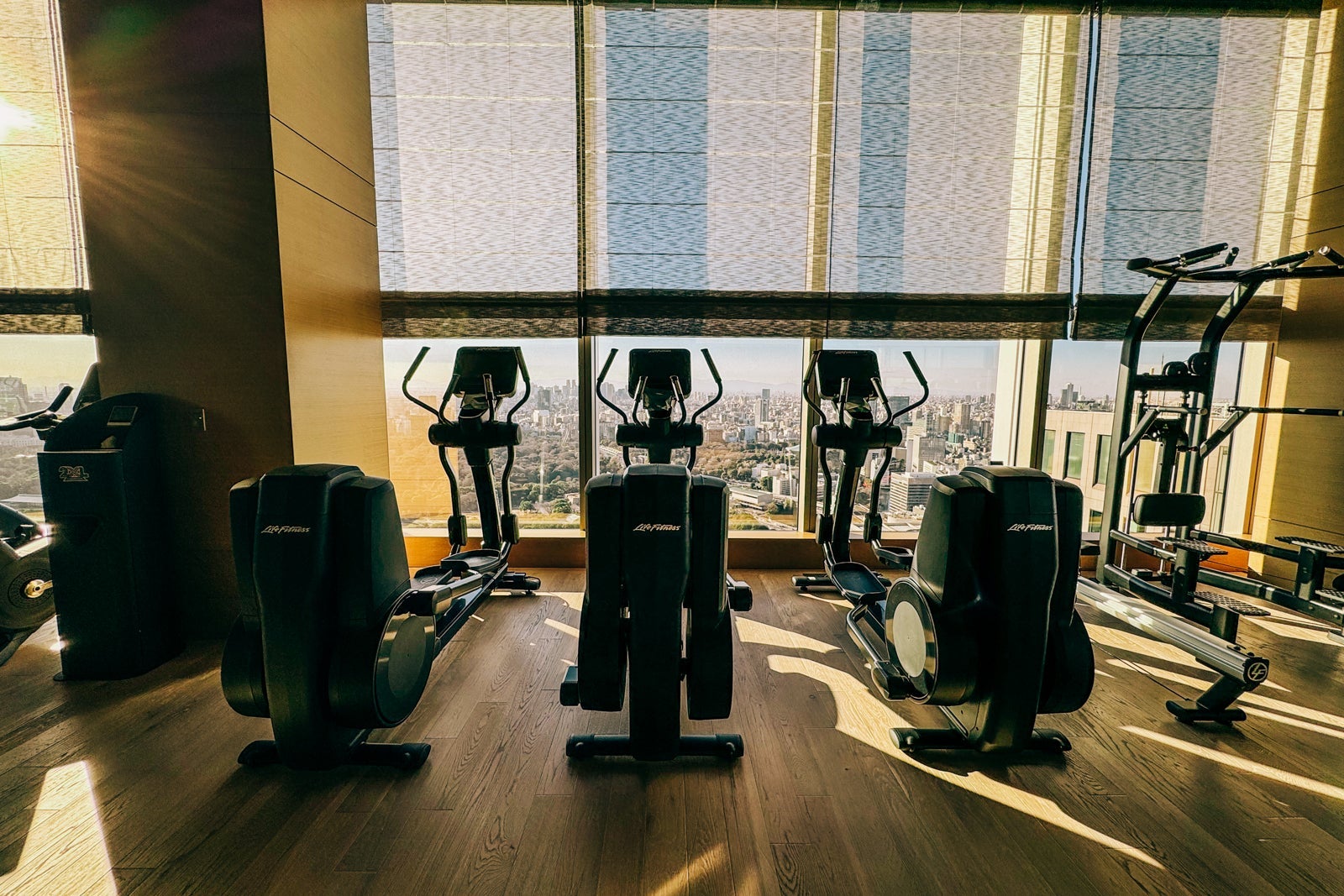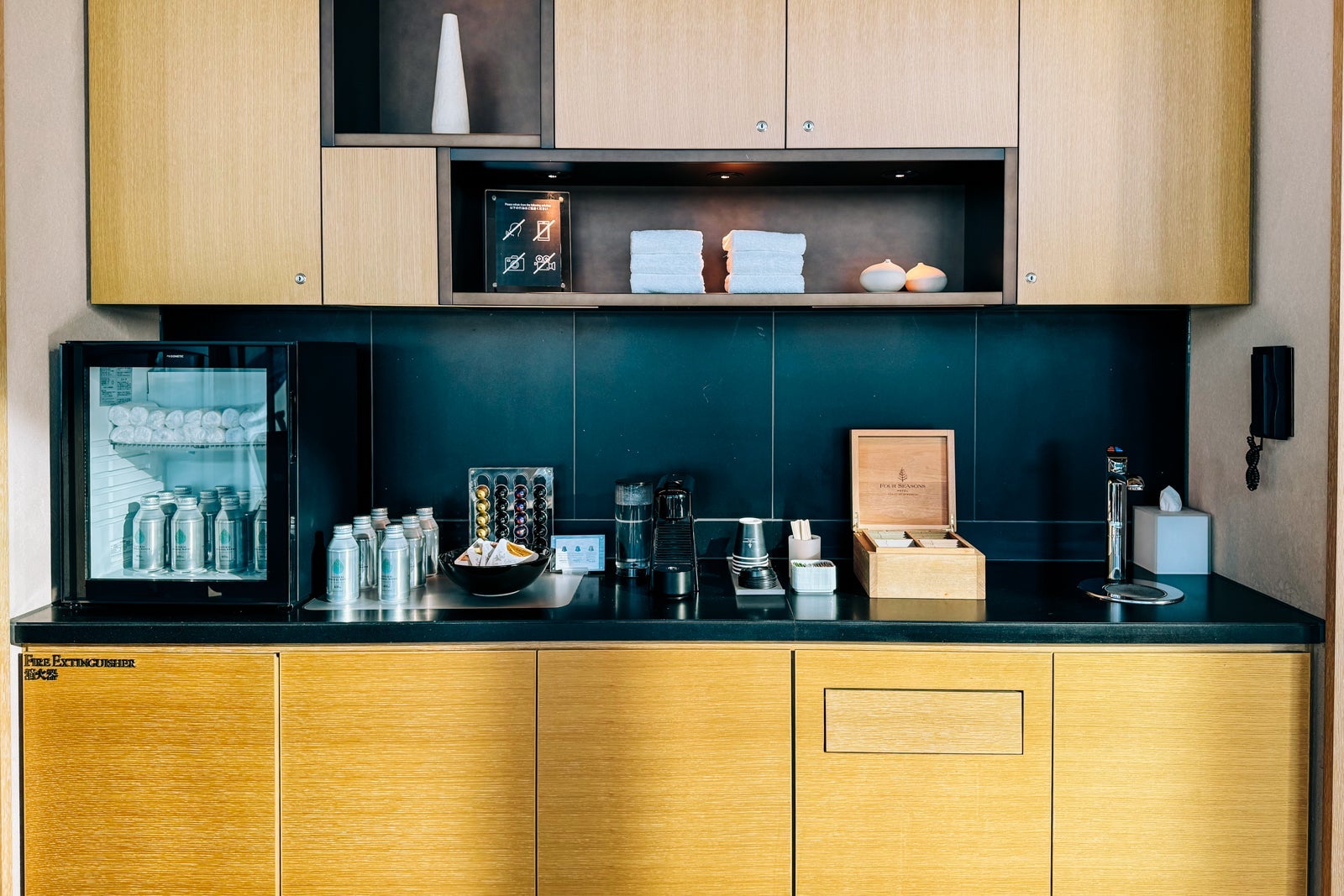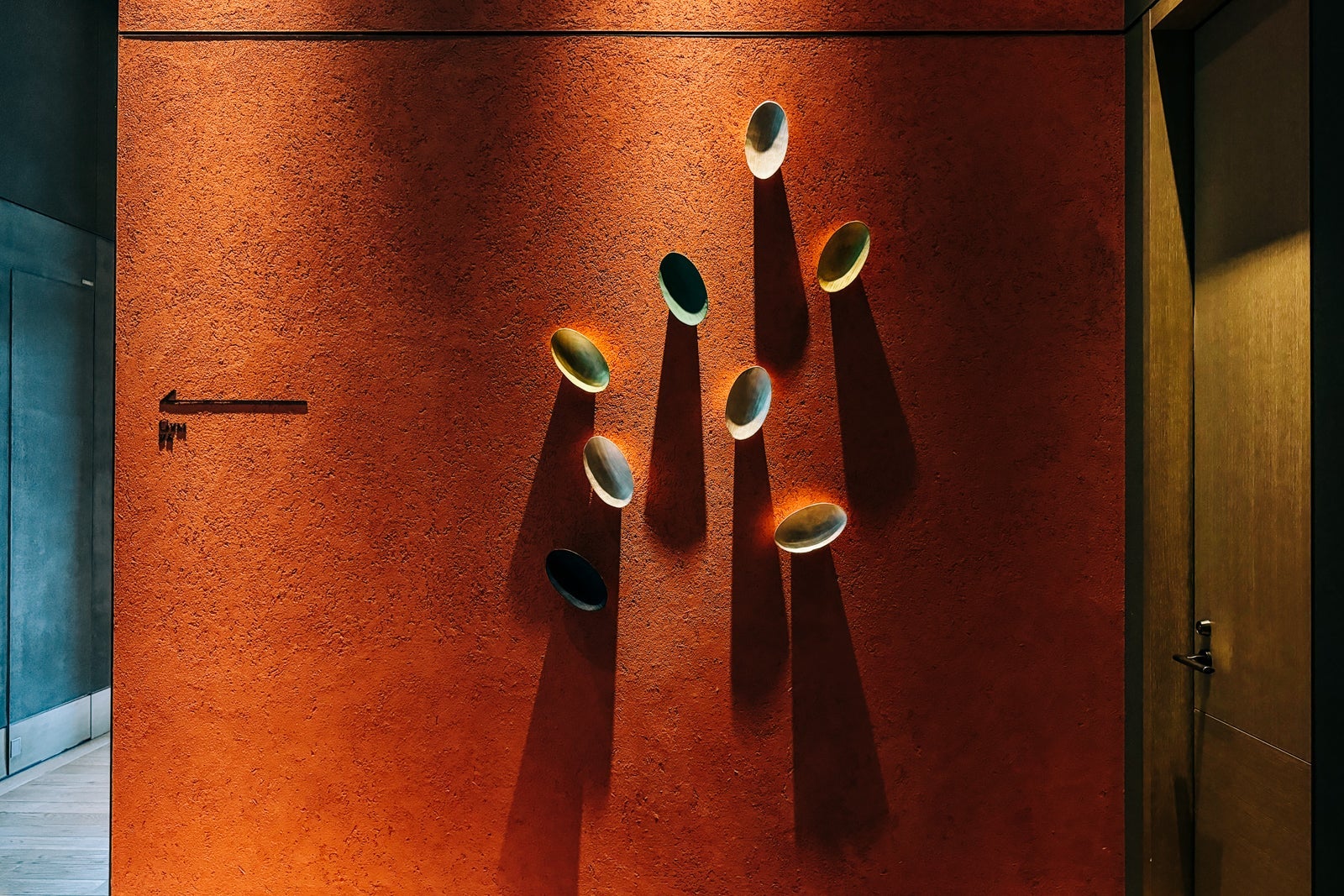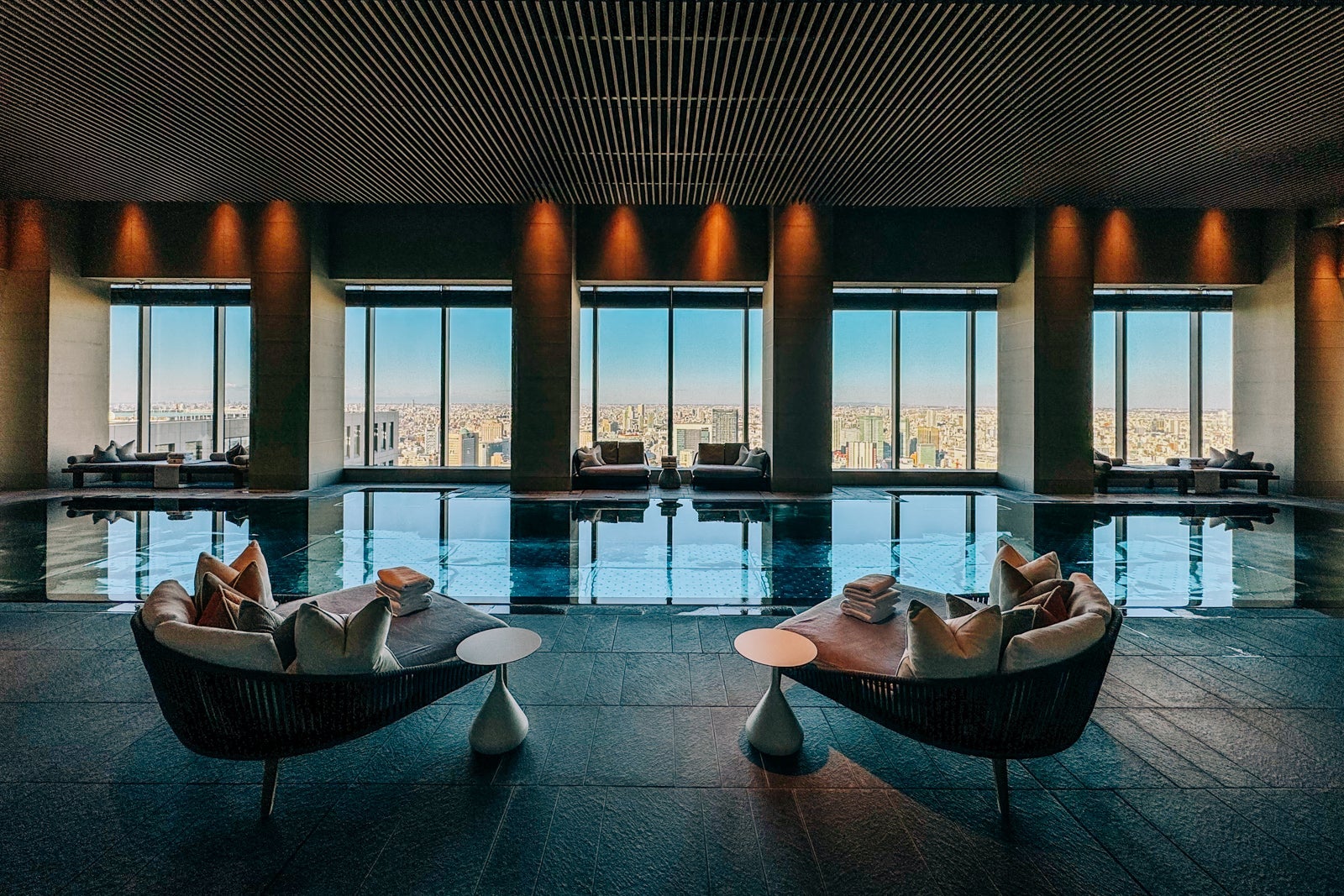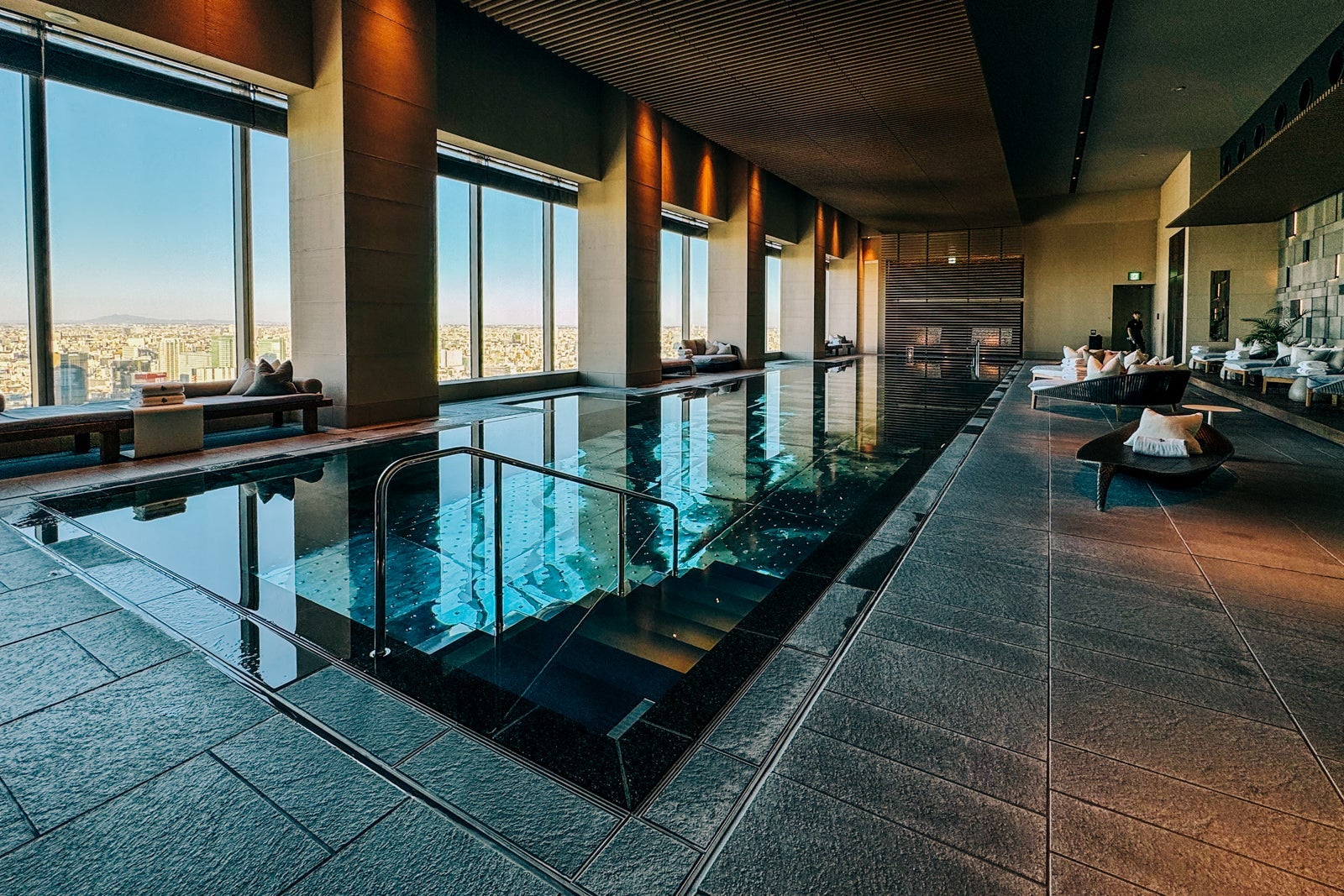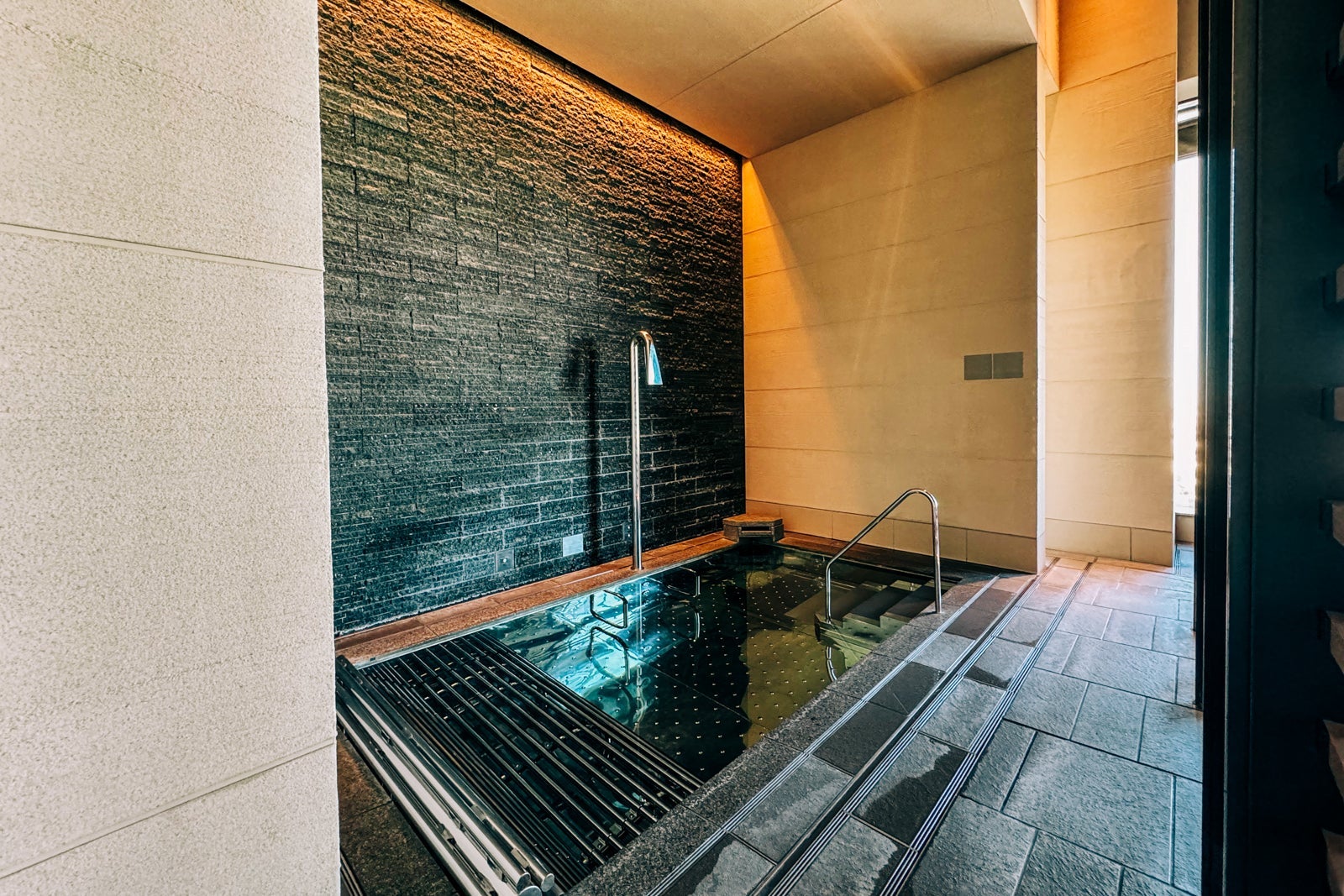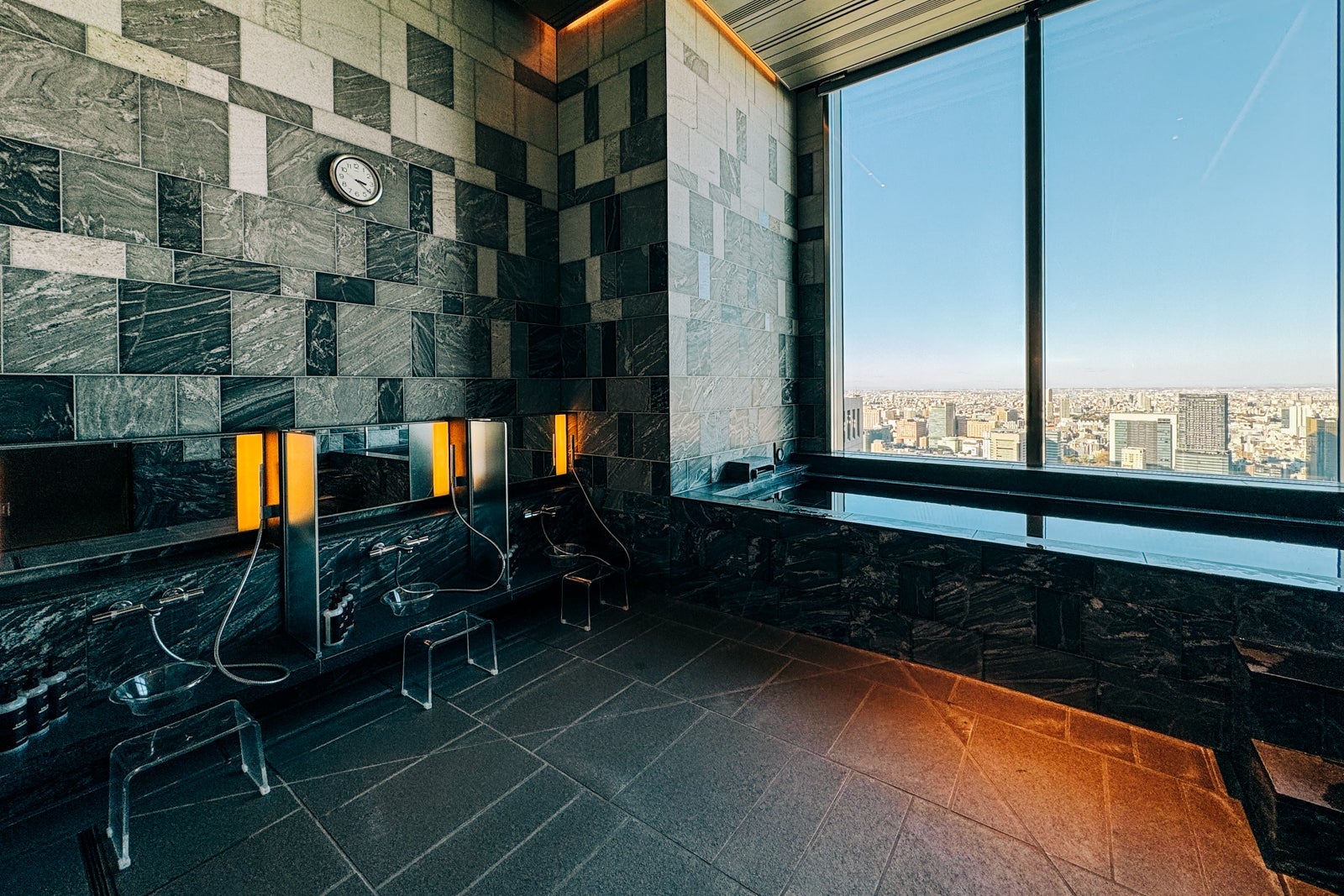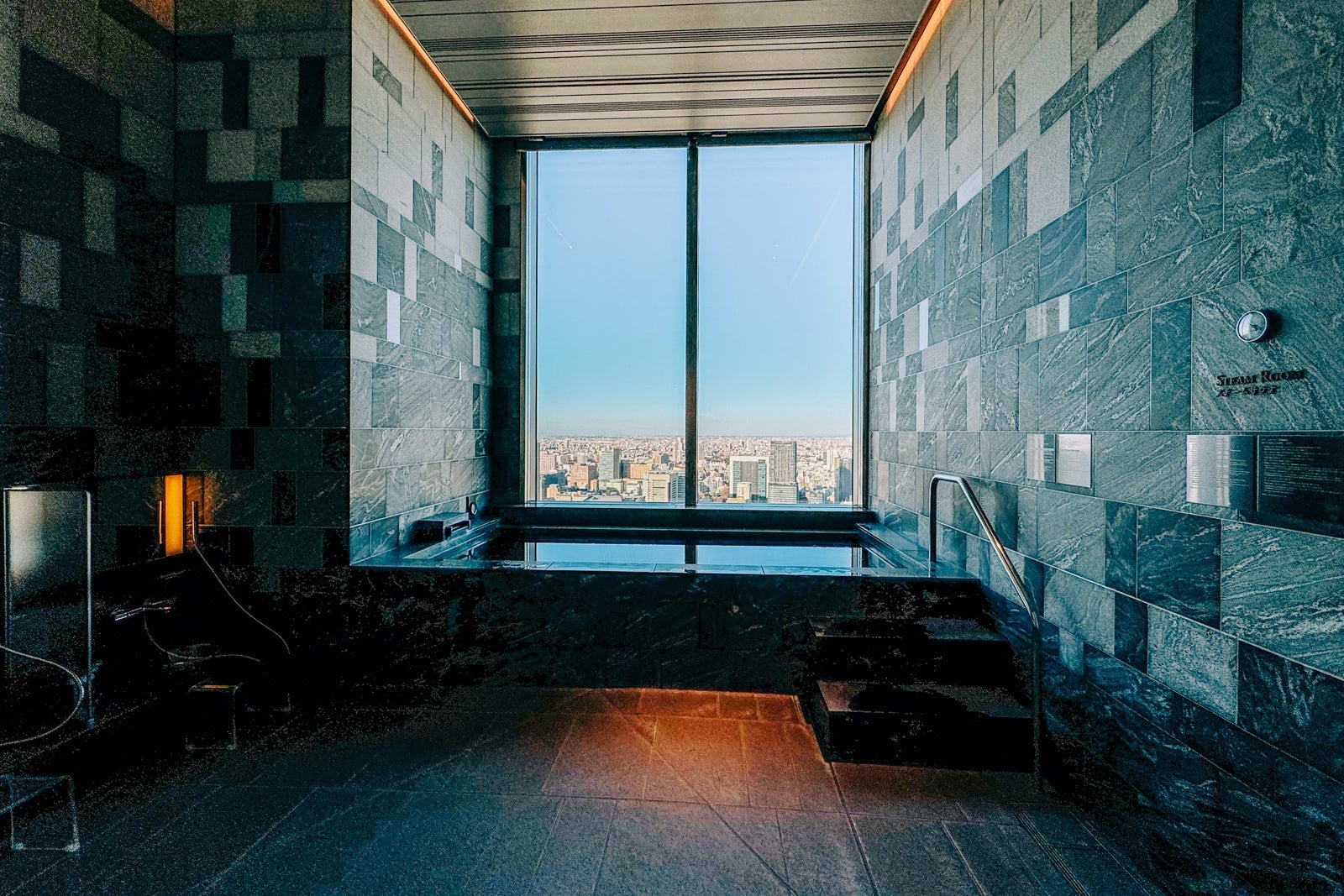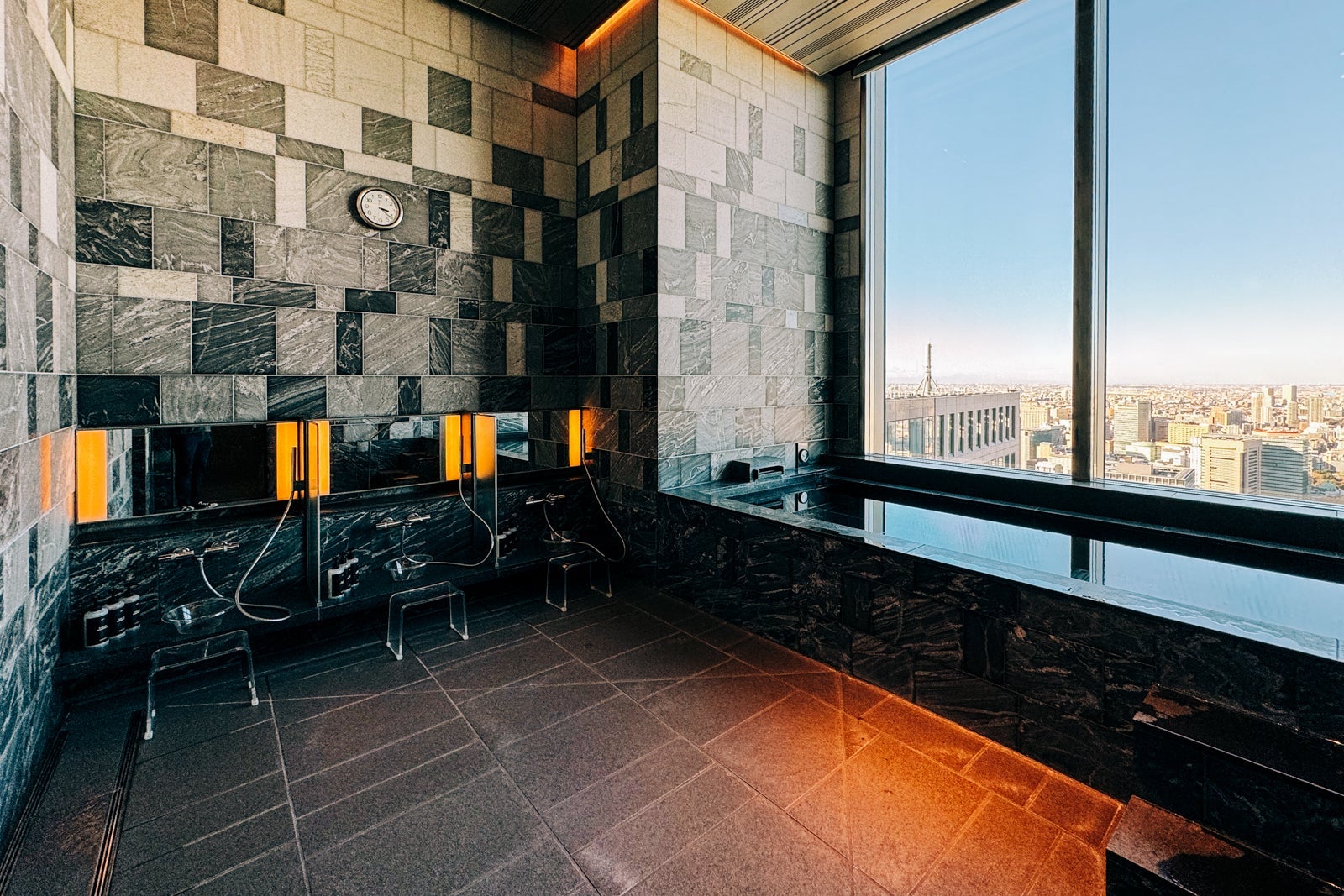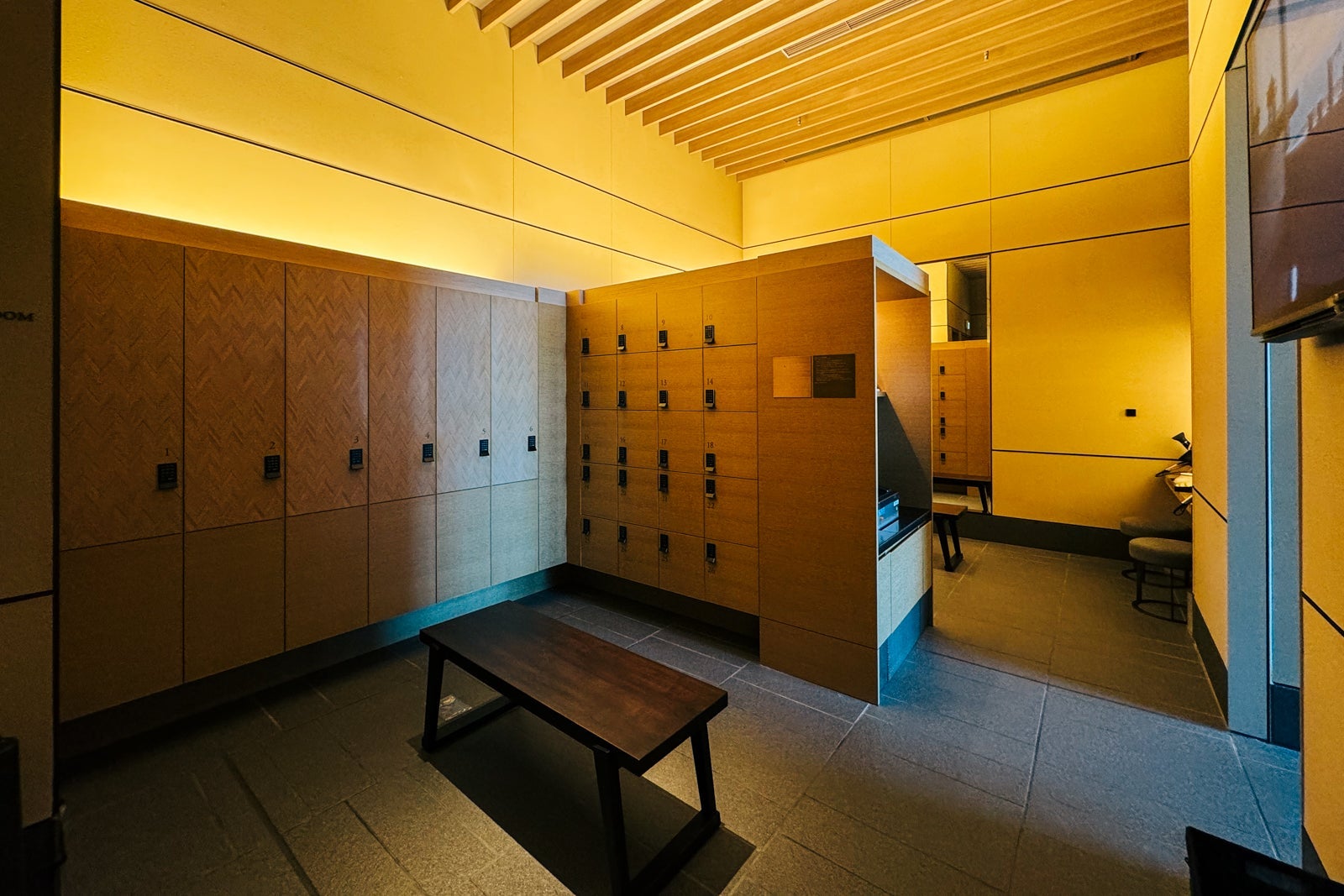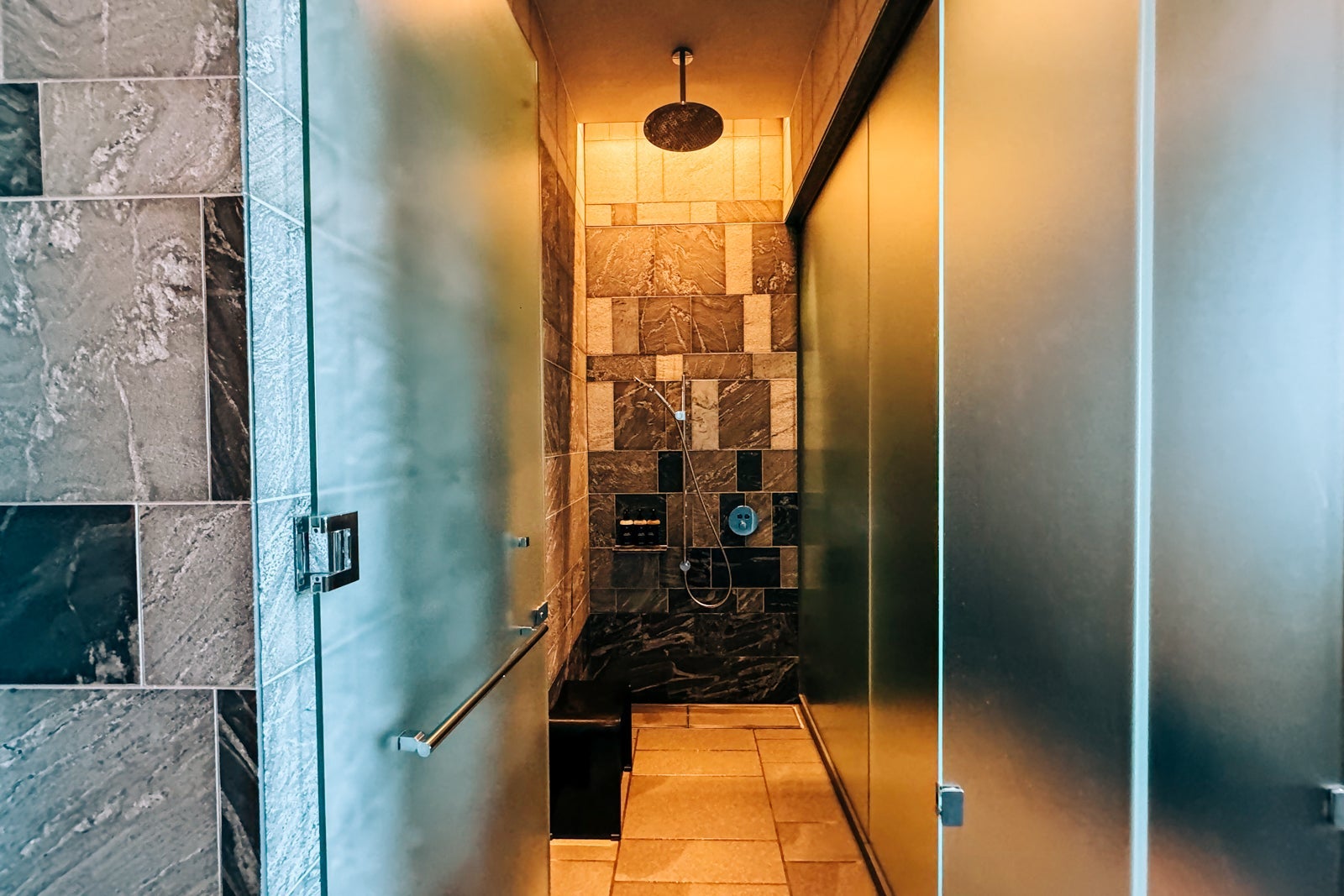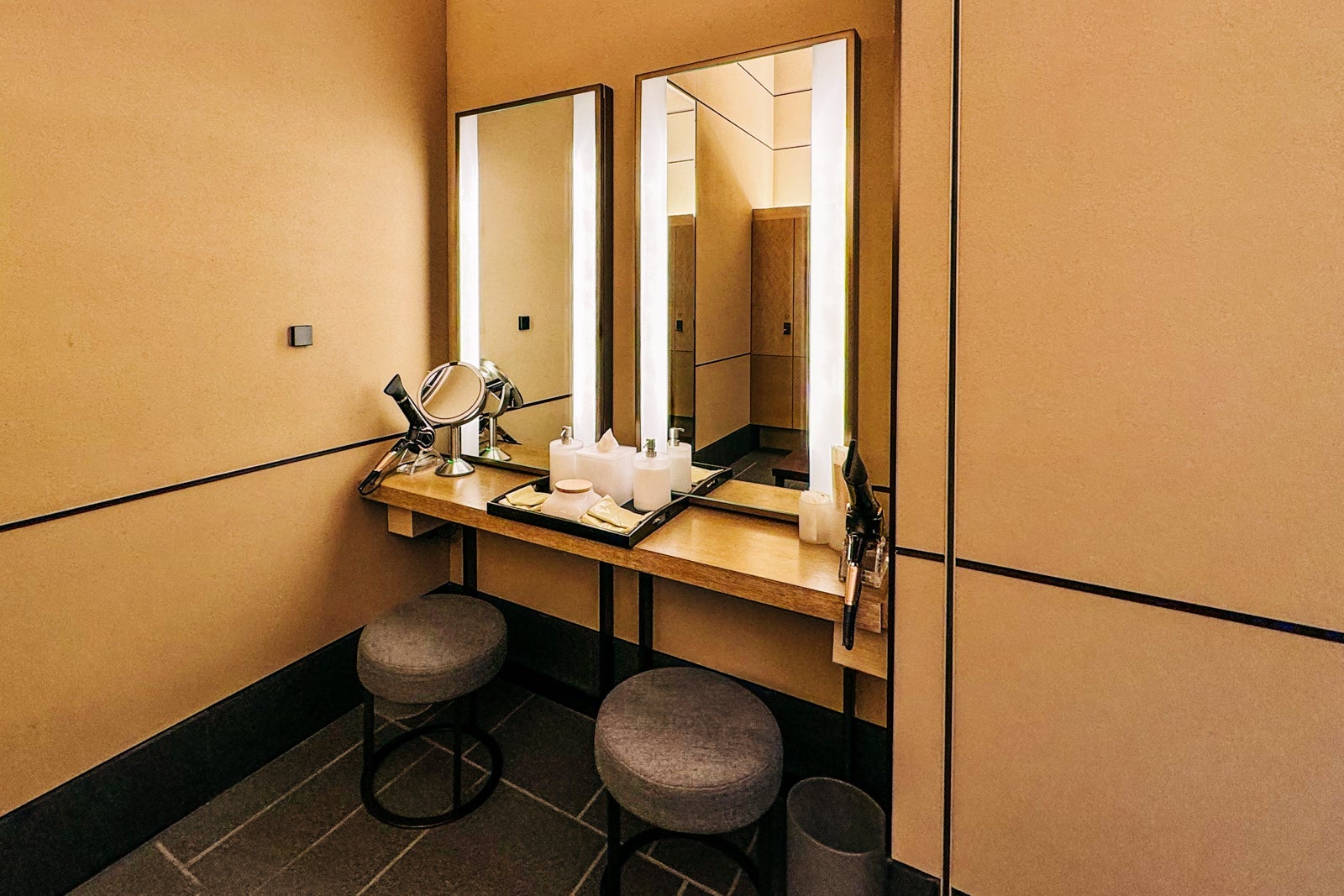Four Seasons Hotel Tokyo at Otemachi: An ultramodern hotel in a historic neighborhood
Editor's Note
Although it's located in one of Tokyo's oldest neighborhoods, the Four Seasons Hotel Tokyo at Otemachi is actually one of the city's newest hotels.
Even Four Seasons fans might not have had the chance to visit since it opened during Japan's pandemic-related border closures in September 2020. That also means the hotel still looks fresh and fabulous, even more than three years after it first welcomed guests.
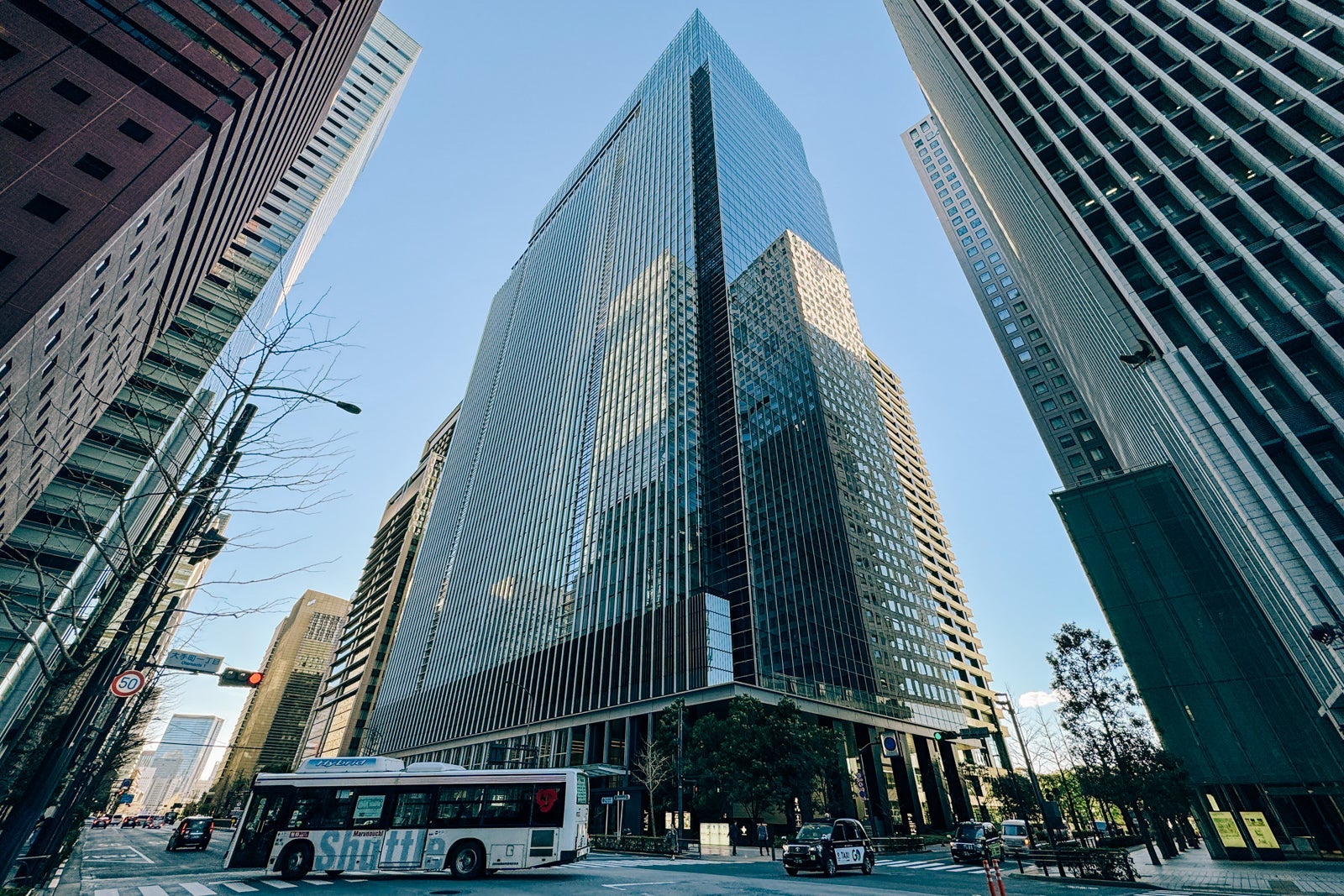
While its location in one of the capital's main financial districts means that the Four Seasons Hotel Tokyo at Otemachi is a great choice for business travelers, it also overlooks the gardens of the Imperial Palace and is a quick subway ride away from glitzy Ginza, historic Asakusa and many of the city's main attractions, so even first-time leisure travelers should find it appealing.
Of course, the panoramic views from its 39th-floor lobby, a swanky craft cocktail bar, a Michelin-starred contemporary Japanese-French restaurant and a serene spa — complete with onsen-style ofuros (soaking baths) — all lend to its allure as well.
Here's everything you need to know about the Four Seasons Hotel Tokyo at Otemachi and why it's one of the Japanese capital's best luxury hotels.
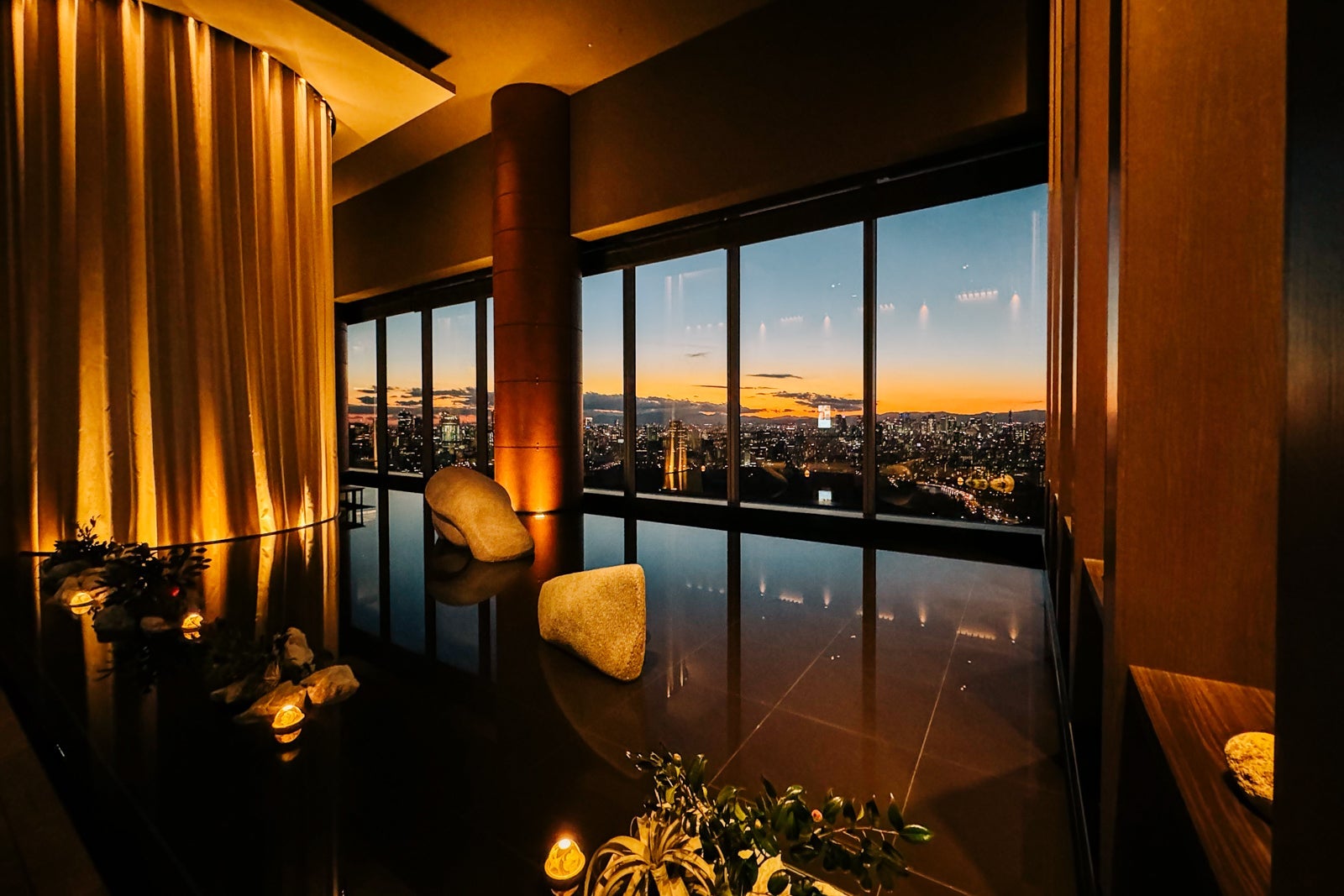
Getting there
The Four Seasons Hotel Tokyo at Otemachi is in one of the city's main financial districts, Chiyoda, and directly across from the Imperial Palace grounds. That's to say, it's quite central.
If you're flying into Tokyo's Haneda International Airport (HND), a taxi or ride-hailing service can cost anywhere from $55-$80 and takes around 30-60 minutes depending on the time of day and traffic. You can also take the subway for about 550 Japanese yen ($3.70), which will take about an hour and require a change of lines.
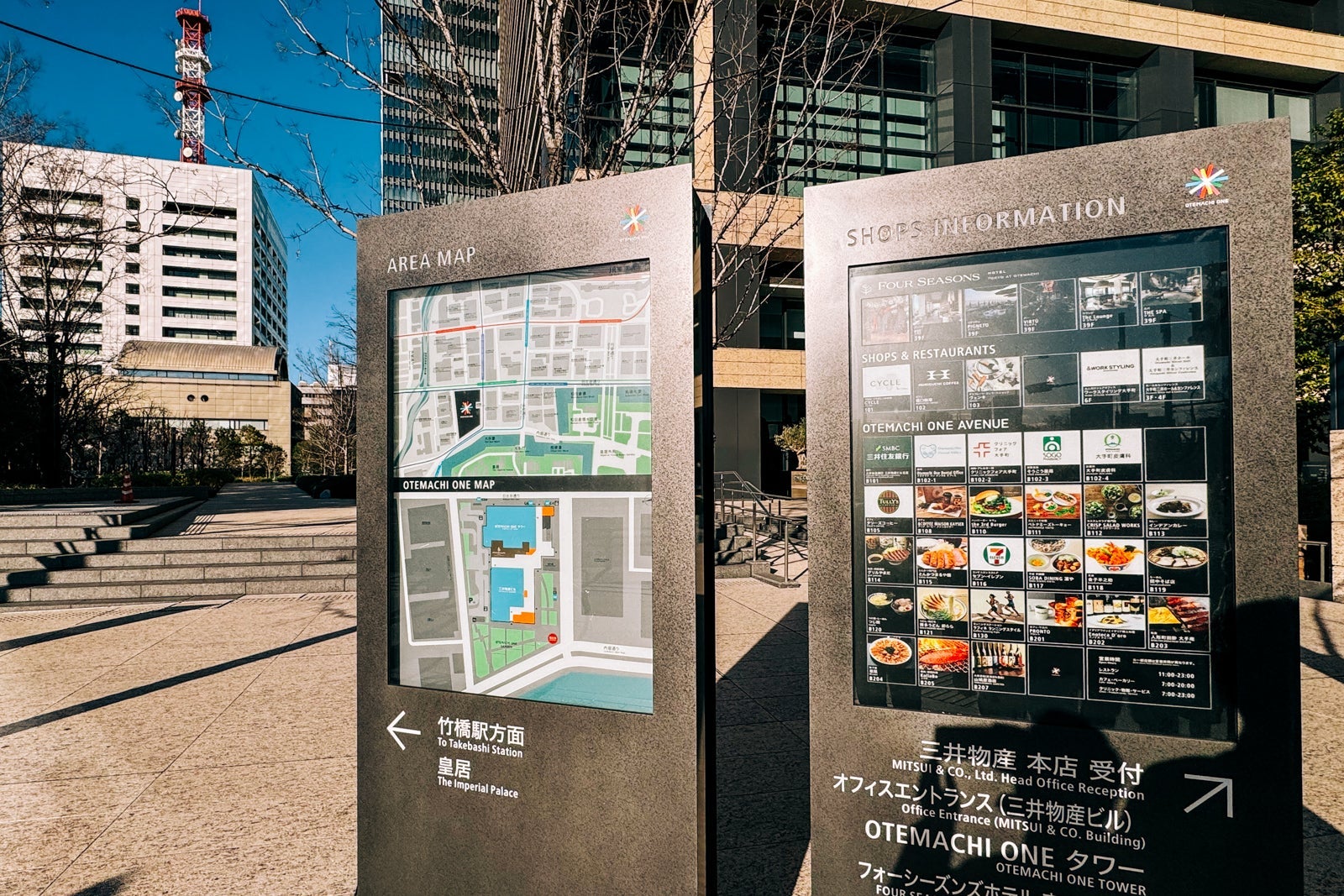
Those flying into Tokyo's Narita International Airport (NRT) can expect a drive of anywhere from about one to two hours at a cost that can range up to $200 if using taxis or ride-hailing services. You can also take the Narita Express train to Tokyo Station for 3,700 yen per person ($24.70) each way — there are also cheaper round-trip passes — and take the subway to Otemachi station from there.
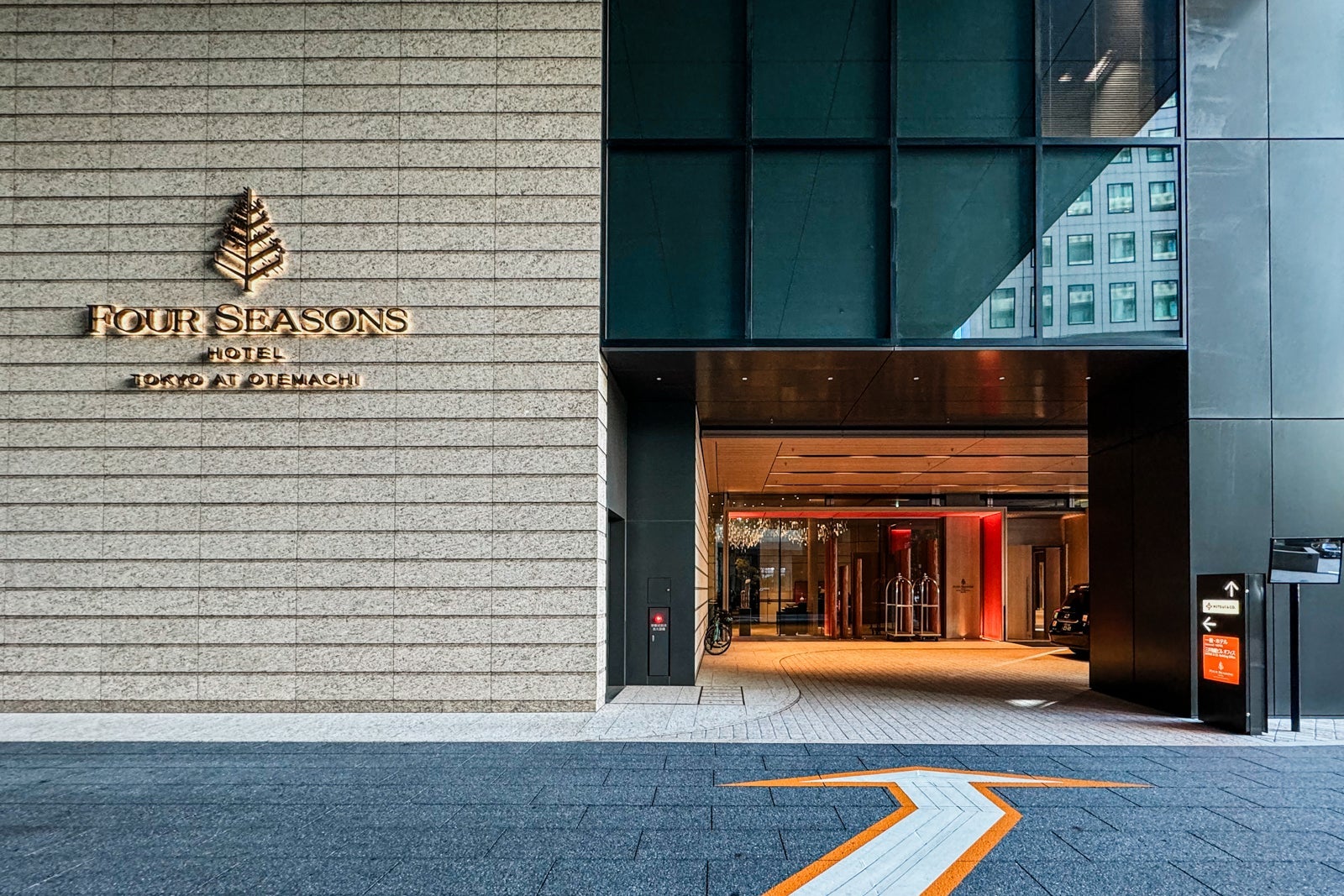
If you plan to catch a train to other destinations in Japan from Tokyo Station, it'll take just 10 minutes (and about $10) via taxi or ride-hailing service. The hotel is one stop (five minutes or so) on the Marunouchi subway line from Tokyo Station, and a ride will cost a mere 180 yen ($1.20).

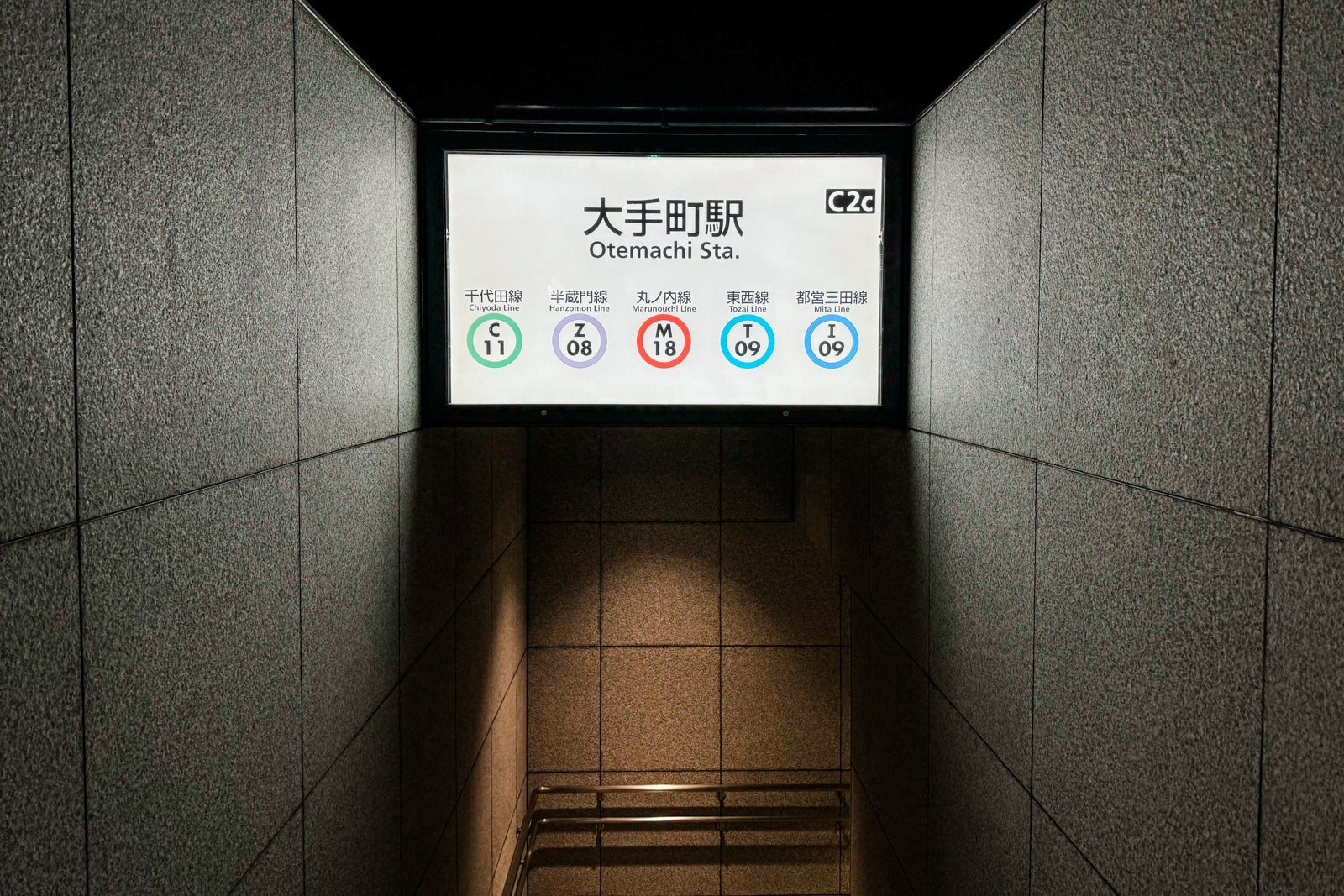
Booking details
The Four Seasons Hotel Tokyo at Otemachi's 162 rooms and 28 suites are located on floors 34-38 of a 39-story tower, while the reception area, restaurants, lounge, spa and gym are located on the top level.
Accommodations range from the Superior Rooms — City View category, which starts at 527 square feet, all the way up to the 3,046-square-foot, two-bedroom Imperial Suite, which also has an expansive living room and a dining room for up to eight guests.
I stayed in a Four Seasons Suite — Imperial Garden View accommodation that was an impressive 818 square feet with a large living room area and bedroom in an open-flow floor plan and a spacious bathroom with sweeping views to the west.
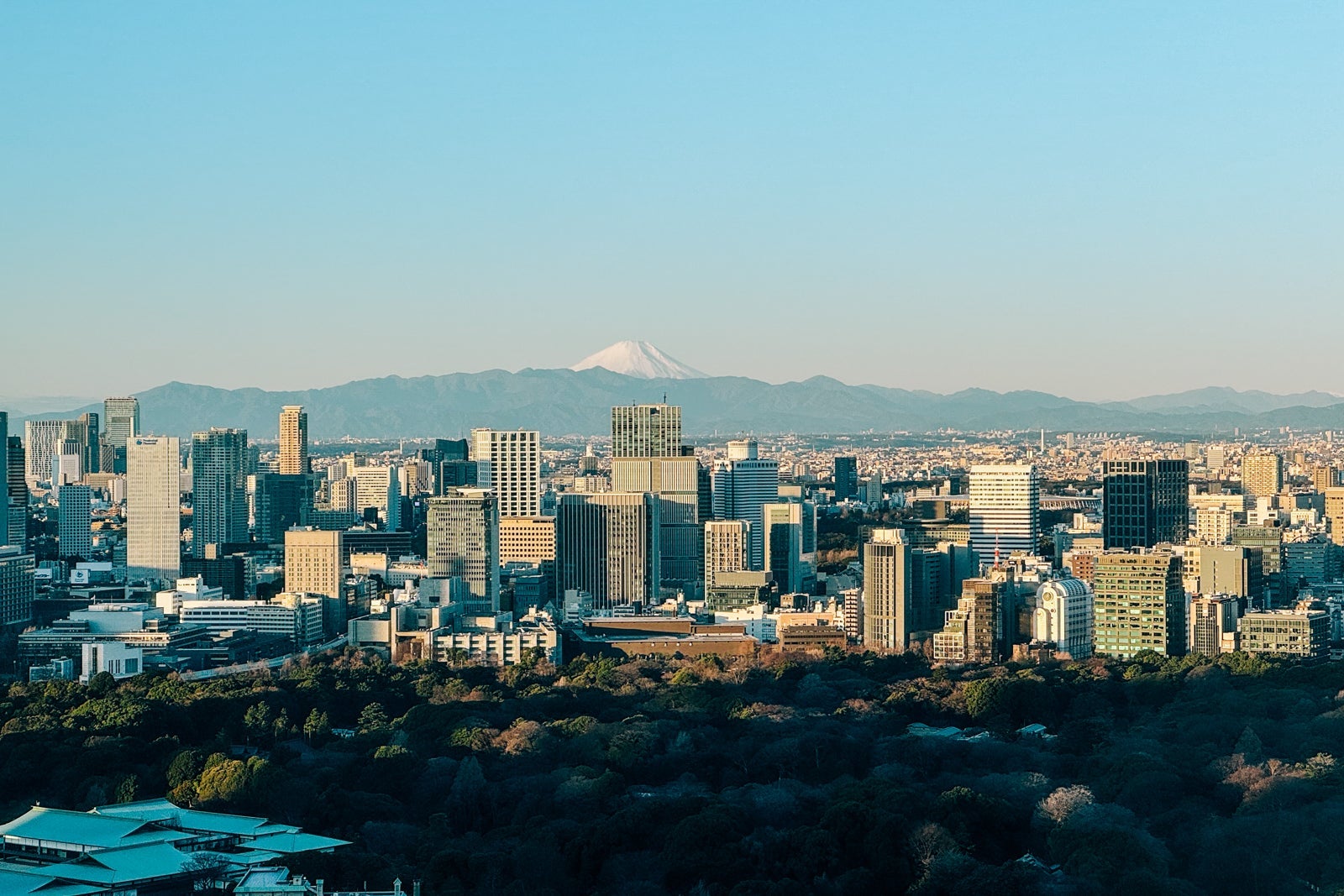
The Four Seasons Hotel Tokyo at Otemachi is part of American Express' Fine Hotels + Resorts, so if you have The Platinum Card® from American Express or The Business Platinum Card® from American Express, you can make a booking through amextravel.com and receive perks like availability-based upgrades, up to a $100 credit to use on-property during your stay for things like drinks or meals, complimentary daily breakfast for two and guaranteed late checkout.
The hotel is also part of Chase's new The Edit, which is a rebranding of its Luxury Hotel and Resort Collection (LHRC), so if you have an eligible card and make your booking through Chase Travel, you can expect perks like daily breakfast for two, availability-based room upgrades, early check-in and late checkout based on availability, a $100 property credit to be used during your stay and a welcome gift. Those with the Chase Sapphire Reserve® (see rates and fees) can even redeem Ultimate Rewards points for stays booked at The Edit properties.
Other eligible cards include:
- United℠ Explorer Card (see rates and fees)
- United Club℠ Card (see rates and fees)
- United Quest℠ Card (see rates and fees)
- United℠ Business Card (see rates and fees)
Be sure to book through a channel that affords you the most benefits possible. If you do not have a card that's eligible to use through one of the above programs, you can consider booking through a travel agent who is a Four Seasons Preferred Partner and can obtain similar perks for clients.
Rates at the Four Seasons Hotel Tokyo at Otemachi over the next several months start at around $800 per night, though they can vary seasonally. Nightly prices for the Imperial Garden View suite I was in start at around $1,700 per night, though this varies based on the time of year.
Standout features
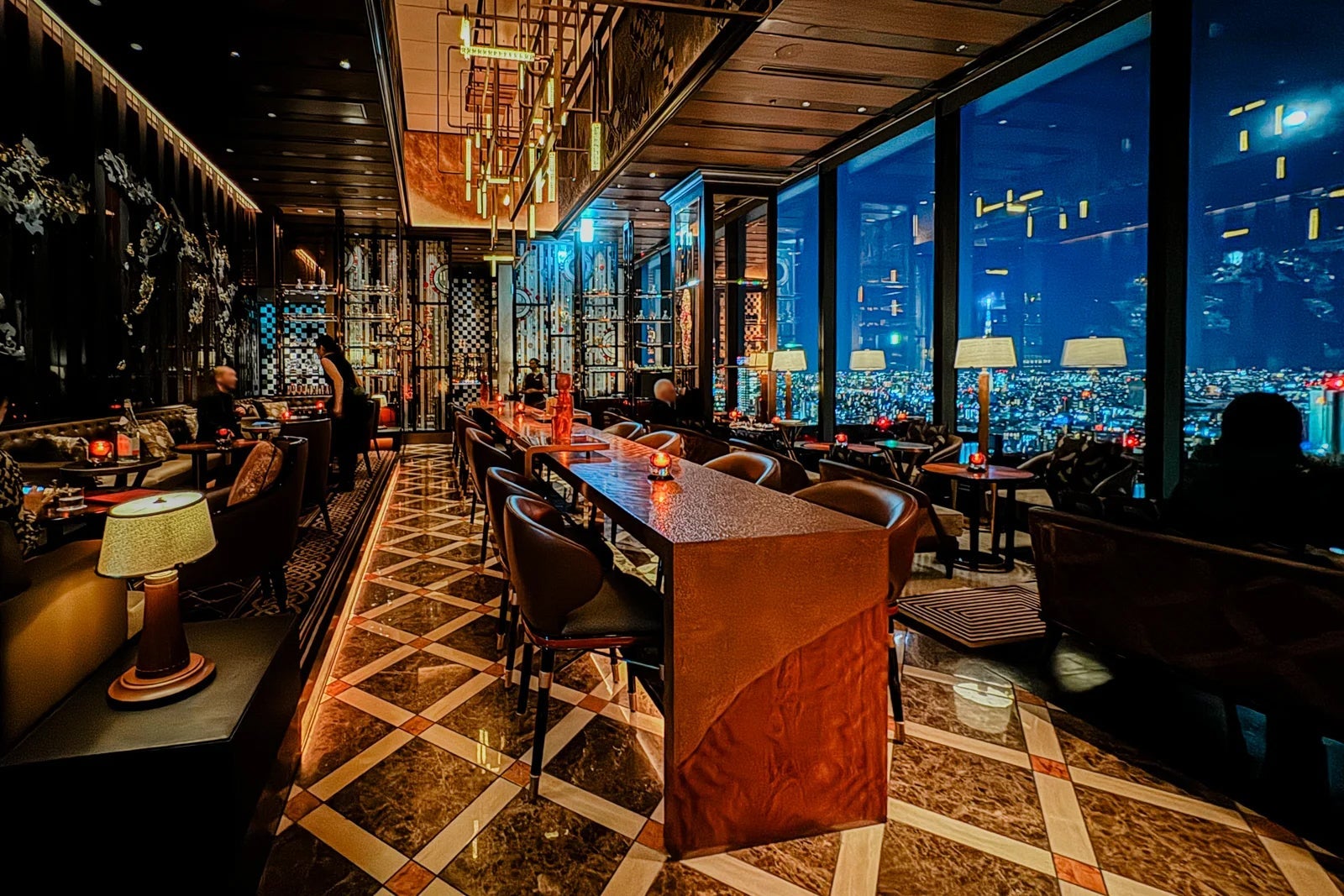
- Spacious and beautifully designed rooms that evoke a sense of place ... but with contemporary sensibilities
- Stunning public spaces that include a lobby with some of the best views in Tokyo and a cocktail lounge that feels both happening and exclusive
- One of the city's best spas, where treatments incorporate high-end Valmont and Omorovicza products
- Staff members who know each guest by name within an hour of check-in and who proffer (excellent) personalized suggestions for things to do (and places to eat) around the city
Drawbacks
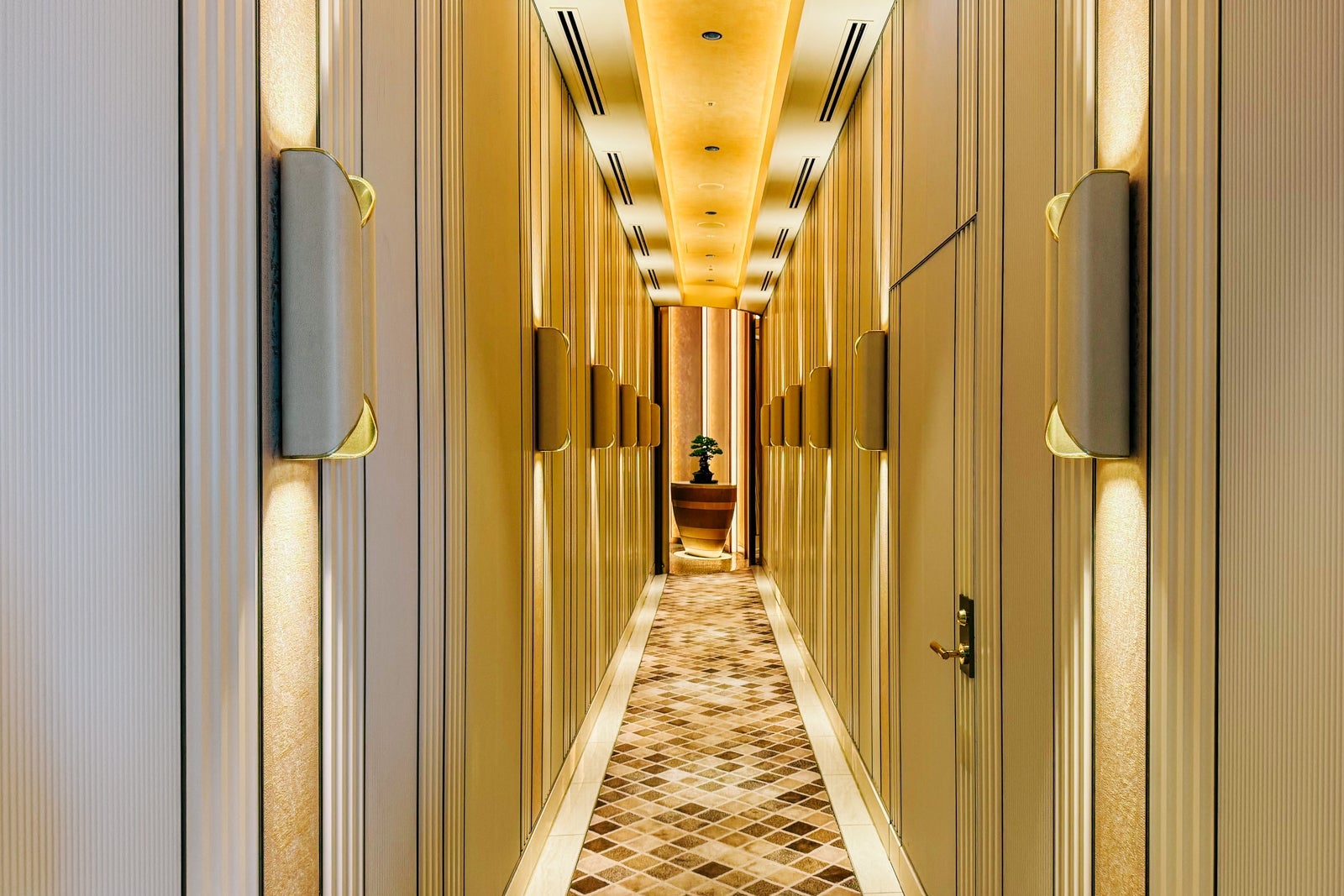
- The location is central and easily accessible, but its setting in the financial district can feel rather quiet in the evening and on weekends.
- Those looking to sample traditional Japanese cuisine will not find it at the hotel's main restaurants, which skew more European.
- The high price point will be beyond many travelers, but those able to splurge should consider a stay.
The vibe
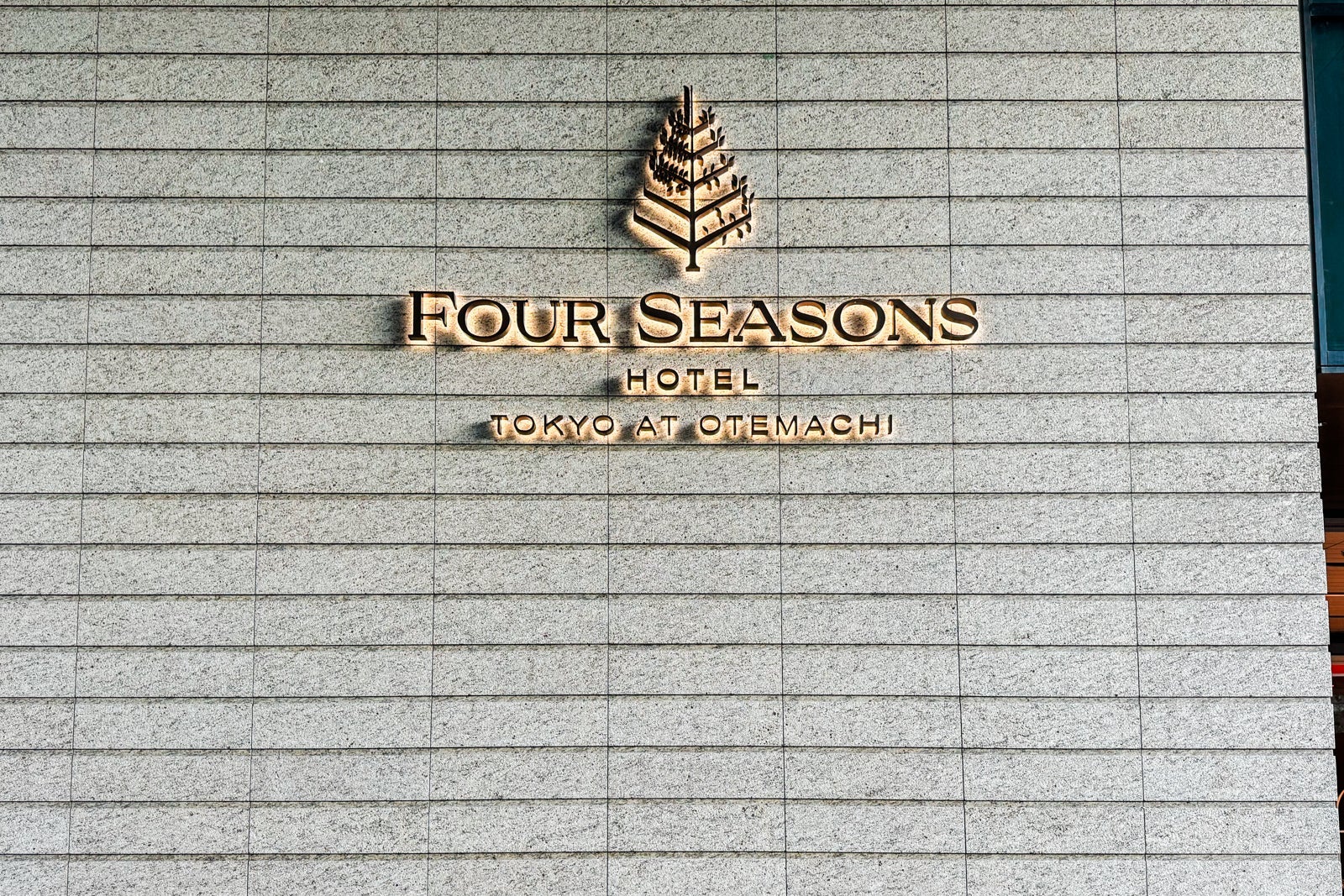
Perched on several top floors of a skyscraper overlooking Tokyo's Imperial Palace grounds, the Four Seasons Hotel Tokyo at Otemachi exudes an aura of rarefication and provides a welcome respite from the busy city streets and subway stations below.
Stepping out of the elevators into the 39th-floor lobby, the first thing that catches the eye is a dramatic water feature that seems to pull the outside environment indoors and reflects the changing light throughout the day.
Just beyond, at the all-day cafe and restaurant called the Lounge, you might spot business travelers talking deals over coffee or cocktails during the week or well-heeled locals stopping in with friends or family on the weekend for special occasions like a winter strawberry afternoon tea.
In the evening, the cocktail bar, Virtu, comes alive with couples perusing the menu of handcrafted cocktails, nearly each inspired by a legend or fairy tale, while Michelin-starred Est is the place to impress either a colleague or a date with a dinner of French-inspired dishes created with carefully selected seasonal Japanese ingredients.
No matter why you're here, count on the friendly staff to provide warm but polished service with the clear intent to make your stay as comfortable and memorable as possible with each interaction.
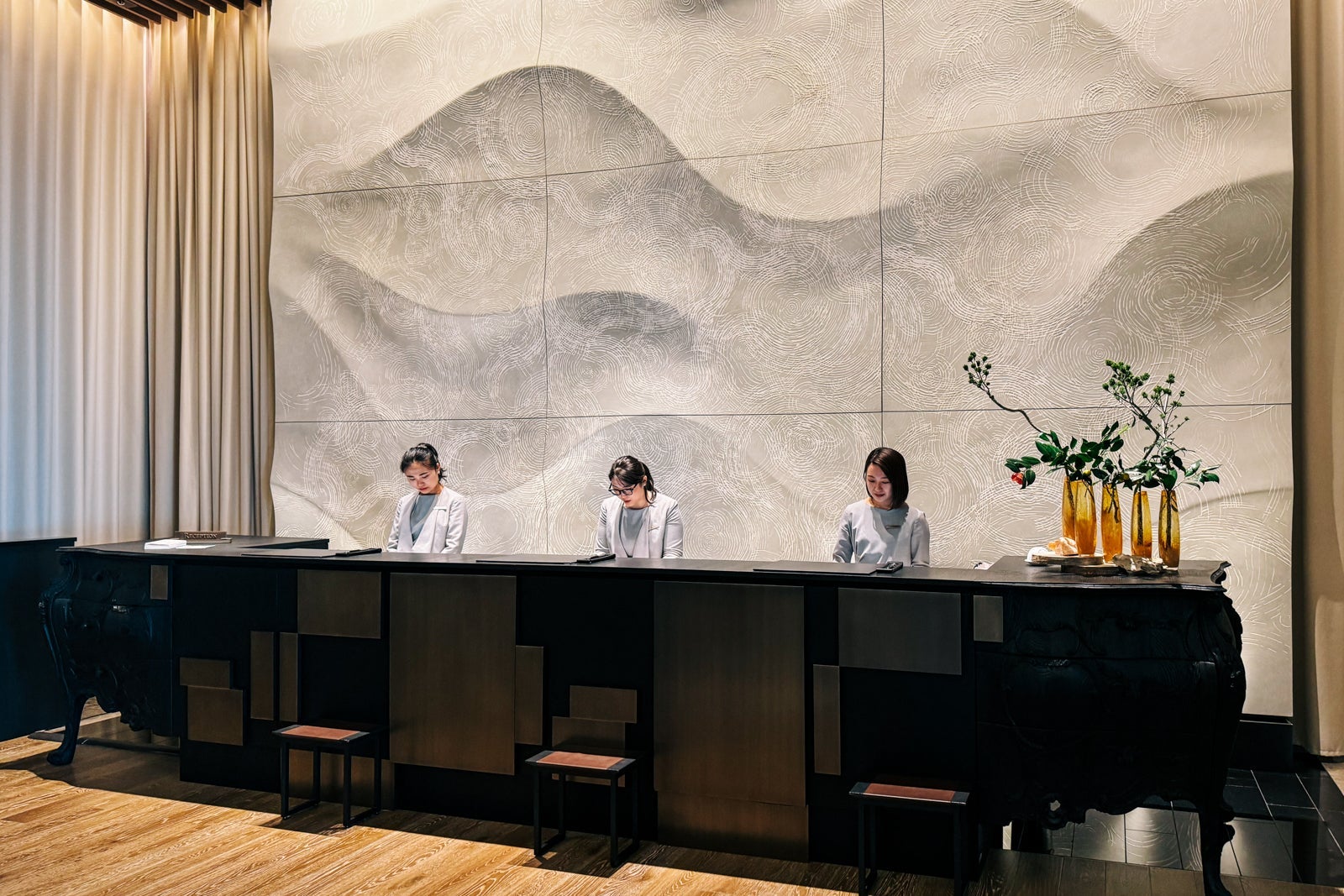
Don't forget to look up from the reception desk to admire the sun-inspired cupola, whose interior is decorated with the Japanese characters for the seasons created in free-form calligraphy by artist Nobuko Kawahara. Just below, an artful floral display based on the traditional Japanese art of flower arrangement creates a natural focal point for the space.
The room
My Four Seasons Suite — Imperial Garden View had, true to its name, an uninterrupted panorama to the west of the Imperial Palace grounds and, on the winter mornings of my stay, a crystal-clear vista all the way to a snow-cowled Mount Fuji.
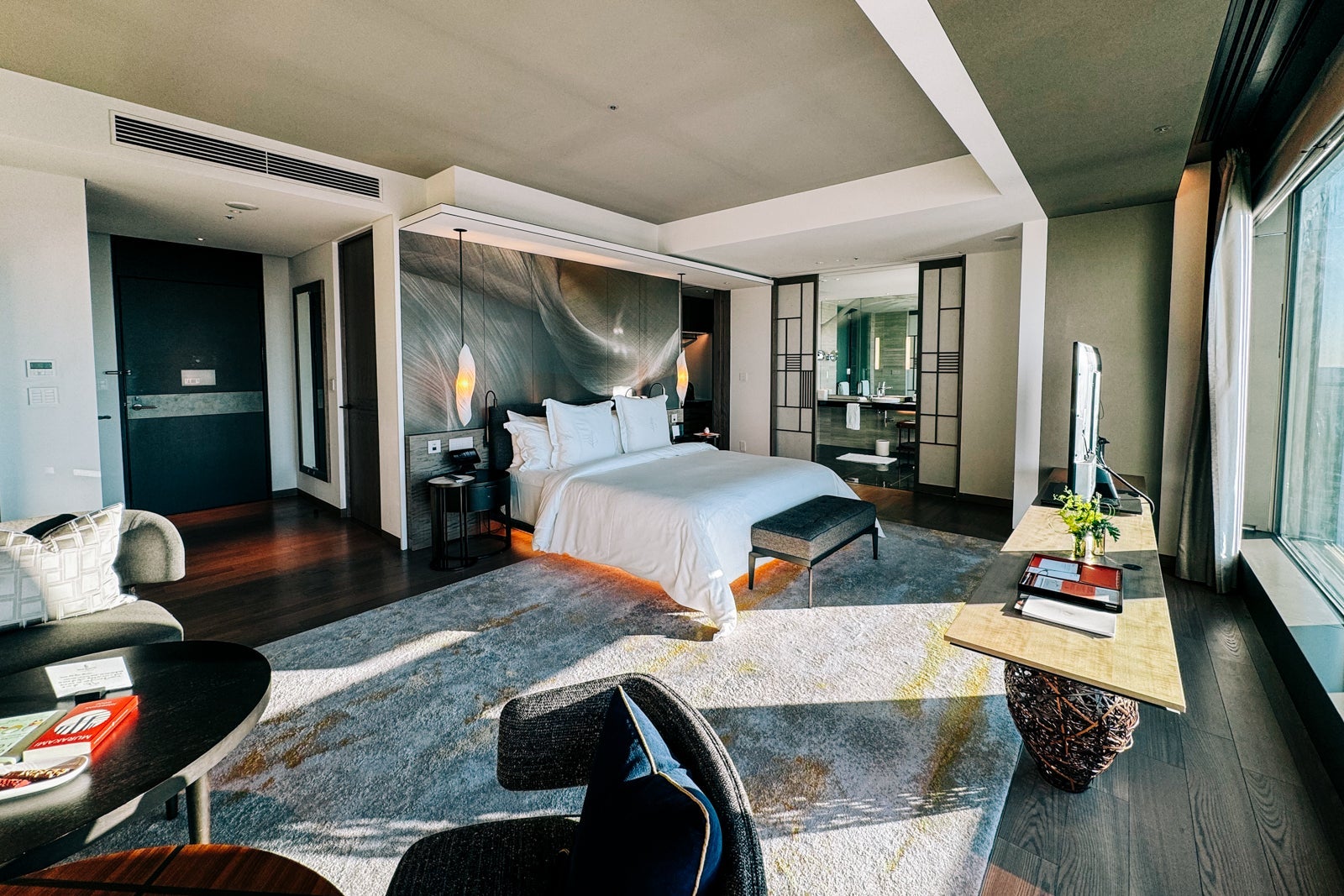
At over 800 square feet, there was a lot of ground to cover. To the right of the entry foyer was a powder room, while to the left was the enormous closet with space for luggage, hanging clothes and plenty of drawers, along with the safe.
The otherwise open floor plan included both a small living room and the bedroom with washi-paper and wooden-latticed sliding doors leading into the bathroom, all envisioned by architectural firm Denniston's lead designer, Jean-Michel Gathy.
The living room comprised a pillow-populated couch and armchair along with a small table and chair that doubled as a workspace thanks to a console with plugs and outlets galore. The palette was mostly metal- and mineral-toned with accents of ochre, gold and lapis lazuli. Above it all, on the wall, fossil-like pieces of art were carefully affixed to evoke a sense of transient beauty.
The minibar, meanwhile, held a selection of snacks like nuts spiced with black pepper and honey along with several Japanese-produced spirits, including Keys & Bricks vodka and Sakurao gin, a Nespresso coffee maker and kettle and Narumi bone china with which to enjoy hot beverages.
Backed by a decorative wall with a print by artist Namiko Kitaura resembling a breeze-blown silk scarf and facing the wall of windows, the king-size bed was dressed in sateen sheets with the brand's logo embroidered into the shams.
To either side was a panel of controls for the lights and curtains along with nightstands — a Bluetooth speaker and the phone on one side, and a tablet for taking advantage of the hotel's amenities on the other. The long, low table set against the windows held vases with flowers and a large flat-screen television.
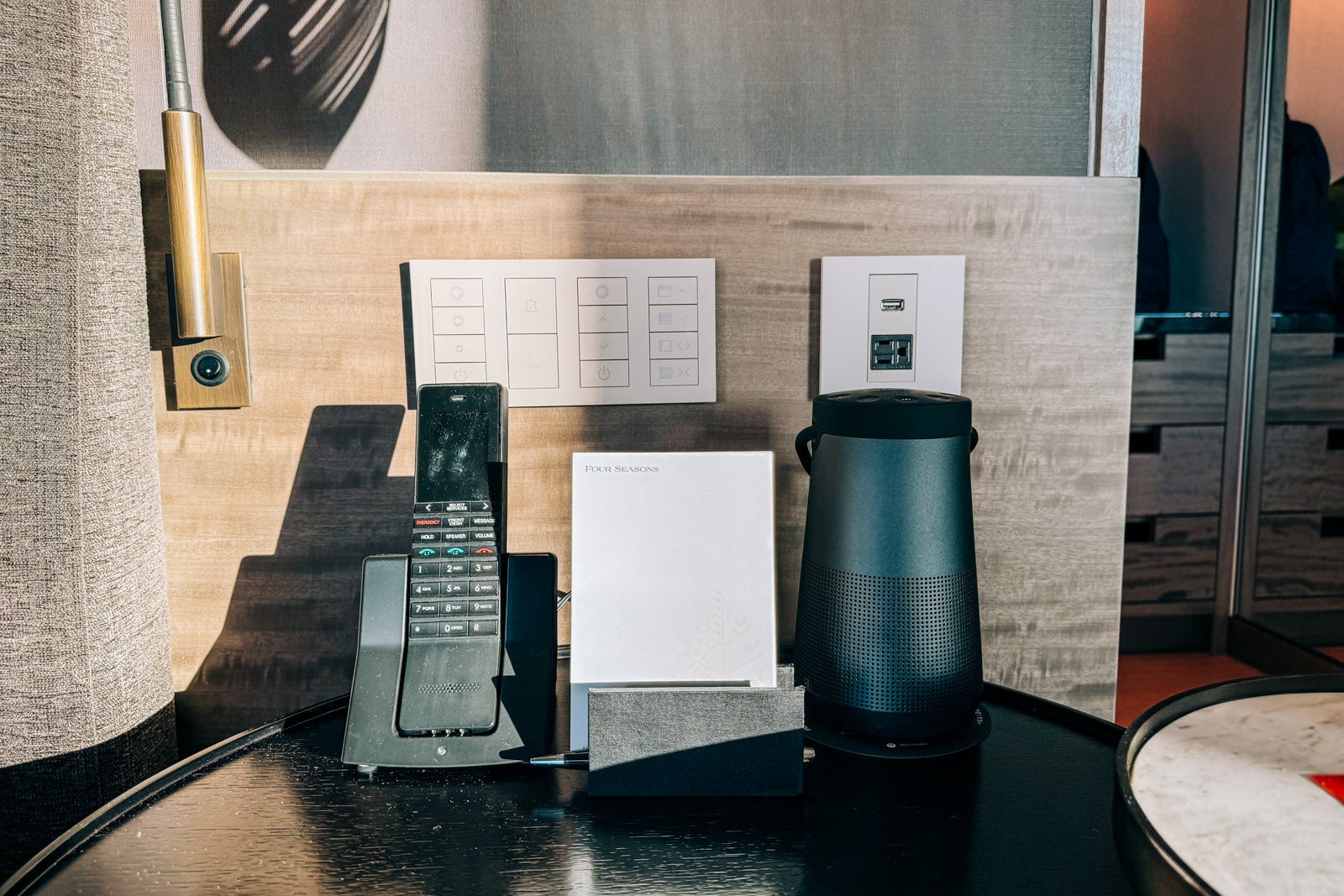
The bathroom had burnished black stone floors and counters, with walls clad in attractively striated gray limestone. Two sinks punctuated the room-length vanity counter, anchored along a mirrored wall, and were provisioned with Diptyque hand soap and lotion.
There were also Diptyque products waiting in the walk-in shower, which had both an overhead and a wall-mounted handheld showerhead. The separate water closet held a Toto toilet with a panel of controls for various functions.
The standout feature, however, had to be the deep soaking tub near the window ... all the better for soaking in the views while you soaked in warm waters with provided yuzu-scented bath salts.
Food and drink
The Four Seasons Hotel Tokyo at Otemachi is home to four restaurants and bars, all with phenomenal views thanks to their location on the 39th floor.
The Lounge is adjacent to the reception area and the elevators and is open from 11 a.m. to 9 p.m. Guests can tuck into a gamut of international fare like a smoked salmon and quinoa salad ($21), a wagyu cheeseburger ($33) and Tokyo shoyu ramen ($26) as well as plentiful petits fours and cookies for takeaway. The Lounge also serves the hotel's signature afternoon tea ($59-$79 per person), which can vary seasonally.
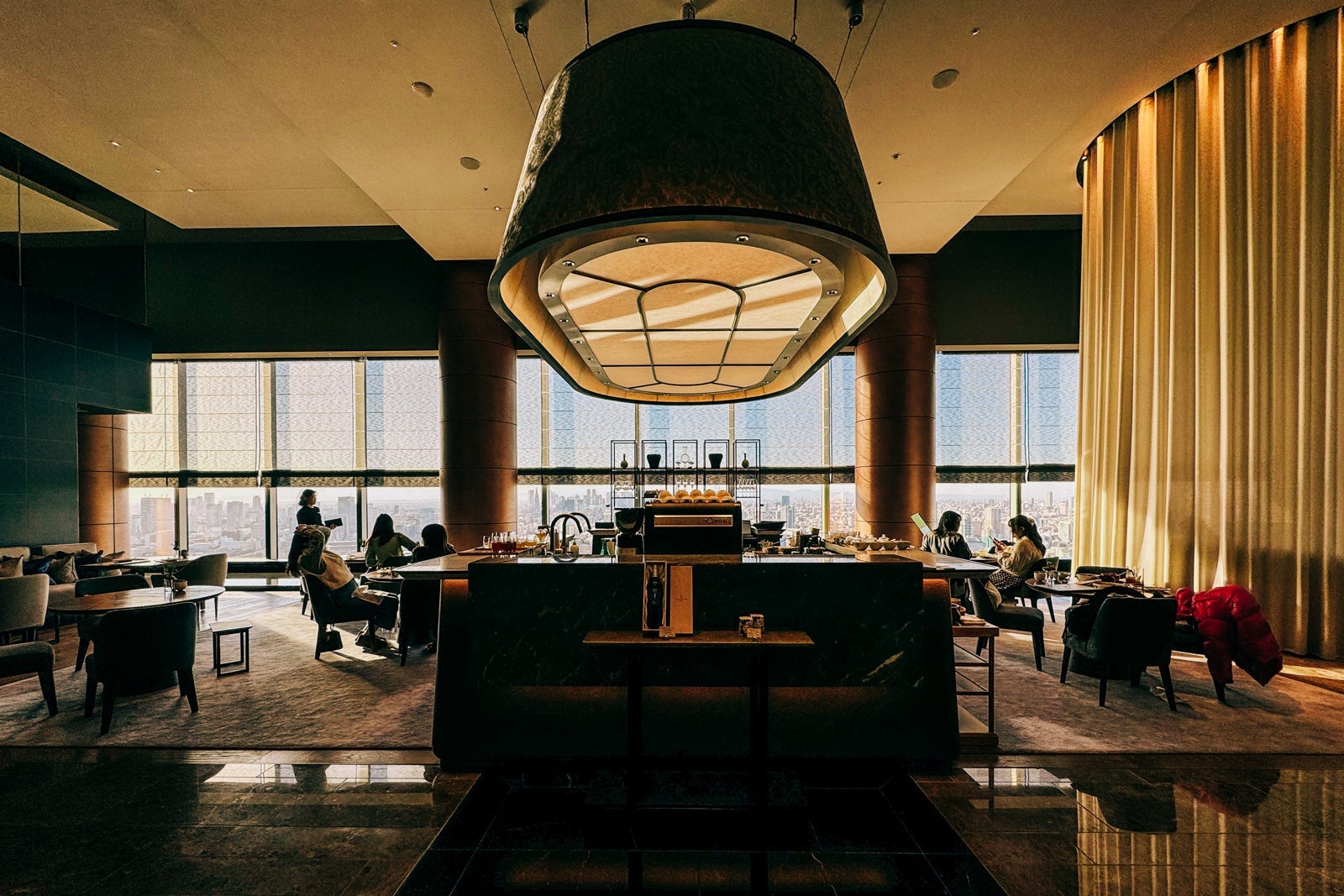
Pigneto, the hotel's all-day restaurant, is located just past the Lounge and serves a lavish breakfast spread before transitioning into an Italian eatery for lunch and dinner. Continental breakfast ($36 per person) includes a selection of cold items from the buffet, including fresh fruit, daily changing pastries like a seeded croissant stuffed with sweet red bean paste and various pickled vegetables over steamed rice.
The full breakfast ($45 per person), meanwhile, includes both cold and hot buffet options as well as some a la carte dishes like avocado eggs Benedict or fresh grilled fish of the day with steamed rice and miso soup.
The Italian lunch and dinner menus provide familiar options like fried calamari with aioli ($25); linguine with prawns, zucchini and tomato ($31); and a variety of handmade pizzas ($19-$41); as well as desserts like homemade tiramisu ($15) and gelato ($14).
Meander across the reception area and through a book- and curio-lined corridor to get to the hotel's main cocktail bar, Virtu, and the Michelin one-starred restaurant, Est.
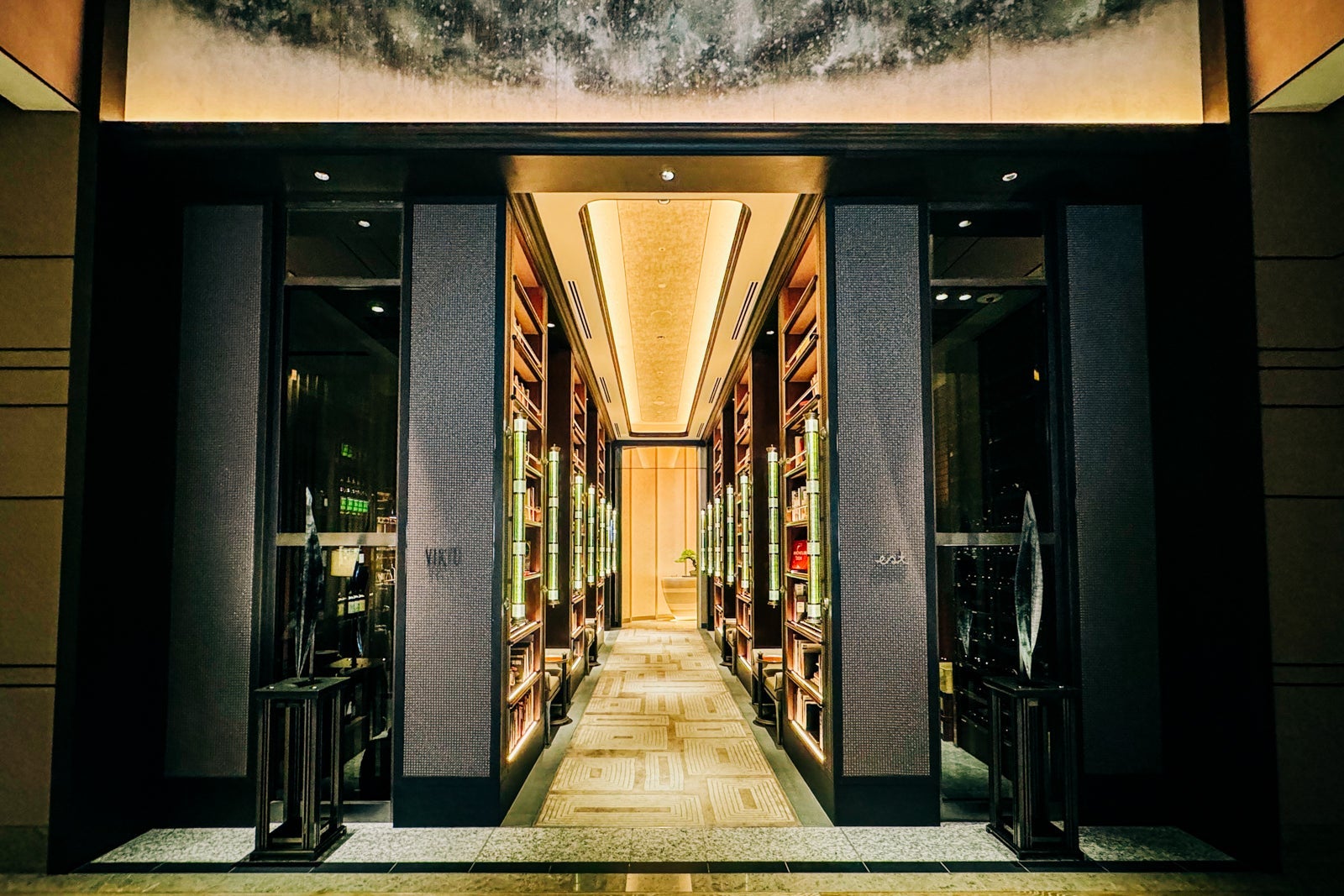
Virtu epitomizes a cosmopolitan hotel watering hole, with moody lighting, plenty of intimate booths and window seats, a lively bar with bottles stretching to the ceiling and a counter where the mixologists theatrically assemble libations inspired by both legends and fairy tales.
Topped by a rose-shaped ice cube fashioned from cranberry and ginger, La Belle et la Bete (Beauty and the Beast) is a heady concoction of Hoji tea-infused vodka and liqueur with aromatic bitters and ginger beer ($22). The Smoked Ume Fashioned mixes Michter's bourbon, Japanese whiskey and sour plum-infused brandy to provide some bite, finished with mellow smoked hinoki bitters and then smoked with cherry wood before a garnish of sour plum, cherry and orange peel ($23).
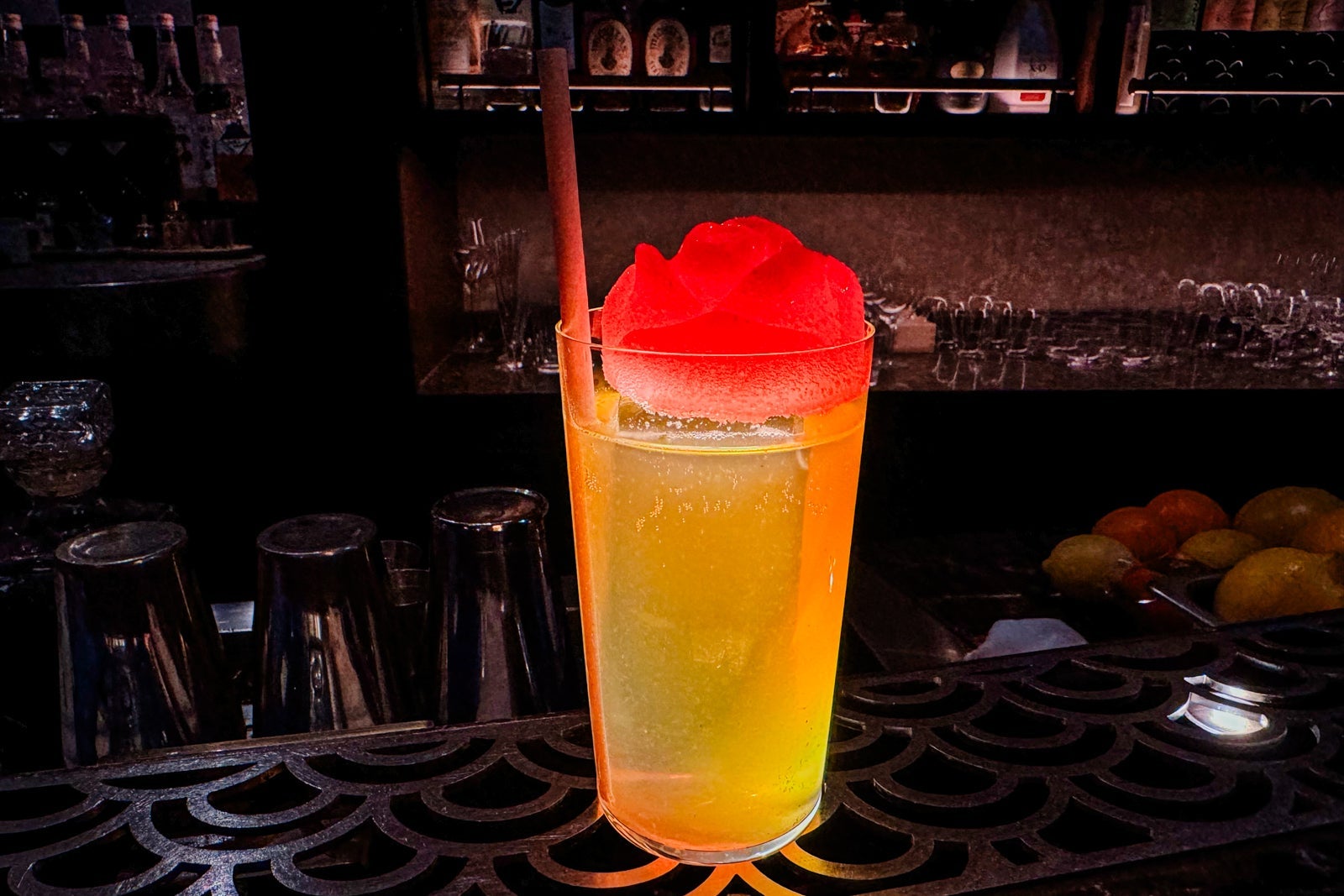
Drink up, then head next door to elegant Est, where the dining room is hushed but lively, creating an ambience at once intimate yet energetic in which guests can savor chef Guillaume Bracaval's 10-course contemporary Japanese-French tasting menus composed of hyper-seasonal (there are apparently 72 seasons!) ingredients, 95% of which come from within Japan ($200 per person).
Your meal might start with a fluffy beignet stuffed with Swiss chard and white cheese and a bite of Spanish mackerel cured with salt and sugar, then garnished with a kumquat and green pepper crust.
The array of tastes to come includes delicacies like succulent Hokkaido abalone in beurre blanc and Jerusalem artichoke puree with tarragon and butter finished with a quenelle of briny French caviar. Expect a dish focused around a juicy filet of fish, such as seabass from the coast of Kyushu, over cauliflower puree with shiitake and maitake mushrooms, but leave room for the unctuous filet of Hokkaido beef with a tangy yuzu-kosho crust.
You're almost to the finish line, but not before sweet bites by pastry chef Michele Abbatemarco, like chestnut mousse and vanilla-bean ice cream with mizkan citrus gelee and a smattering of mignardises made with chocolates of varying provenance and cacao concentration.
Before you balk, commit to the wine pairing, if only to sample hard-to-find bottles, including a bespoke sauvignon blanc from the Kyoto prefecture made just for the restaurant and an earthy Kusonoki pinot noir from Nagano.
Amenities and service
Across from reception on the 39th floor, the Four Seasons Hotel Tokyo at Otemachi has a wellness center with a spa, gym and kitted-out locker rooms.
Guests enter through a hushed, dim corridor where various products ranging from teas and skincare products to jewelry, workout clothes and pajamas are on display.
If you're coming for a treatment, you'll be asked to fill out an information sheet while enjoying a cup of hot or cold tea (your choice).
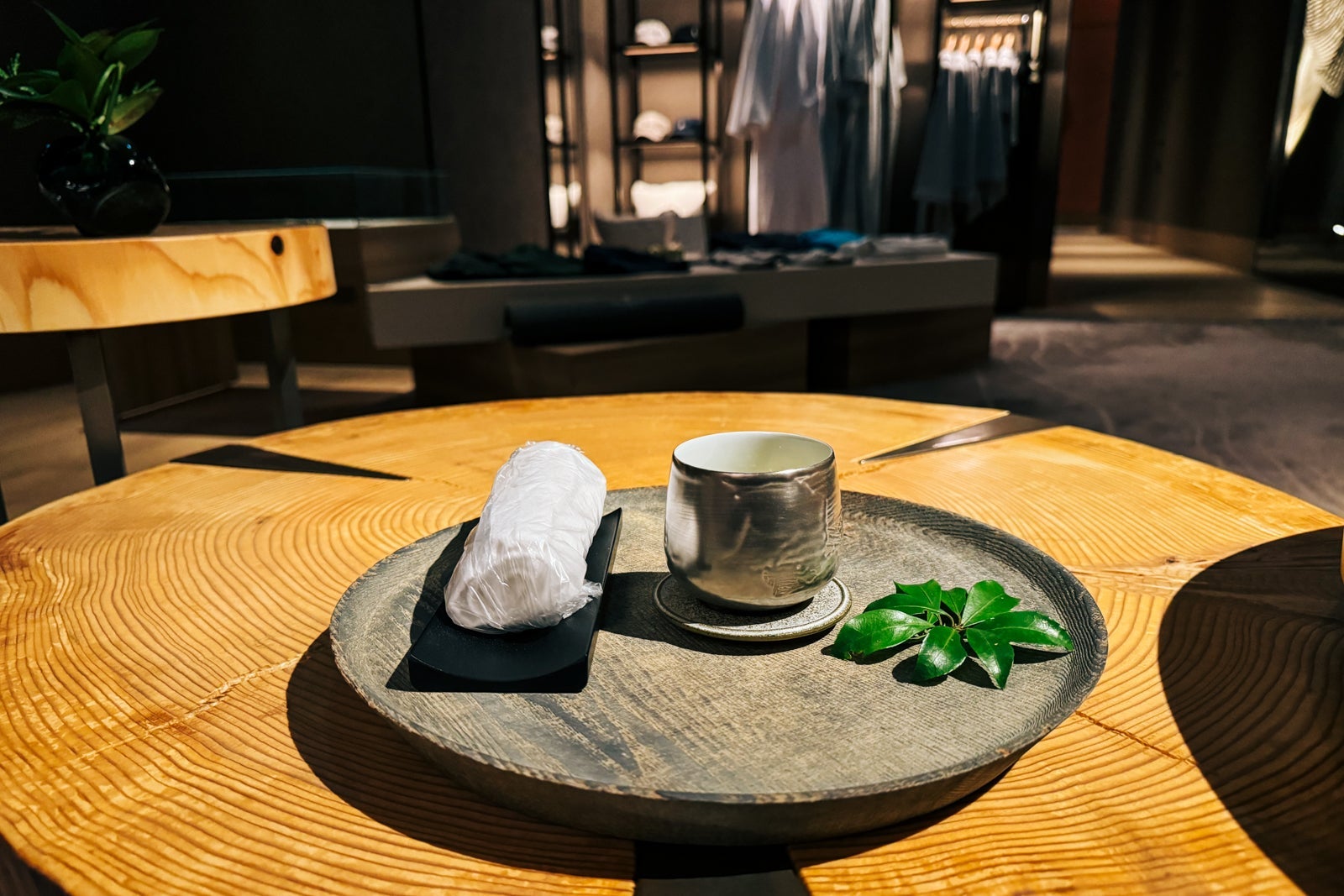
Get ready for the spa with a workout in the light-filled gym, taking in the surrounding skyscrapers as you pump iron on the LifeFitness weight machines or get some cardio in on the ellipticals or treadmills. Perk up with an espresso or cup of tea, or simply grab a towel and bottle of water from the provided amenities.
After, head to the locker room for a rinse in one of the shower suites, then don your bathing suit and grab one of the cushioned daybeds that surround the black-tiled pool with its reflective metal bottom as you contemplate the Tokyo skyline some more.
Back in the locker room, use one of the traditional open seated showers to scrub yourself as clean as possible before wallowing in the hot waters of the window-side ofuro, or traditional soaking bath.
After you change into a robe and slippers in the locker room, your therapist will escort you to one of the five treatment rooms, which have blond wood flooring and paneling plus enormous windows so you can either have light streaming in or ask for the shades to be lowered for a more soporific setting. With the clang of a traditional round orin bell, your experience will commence.
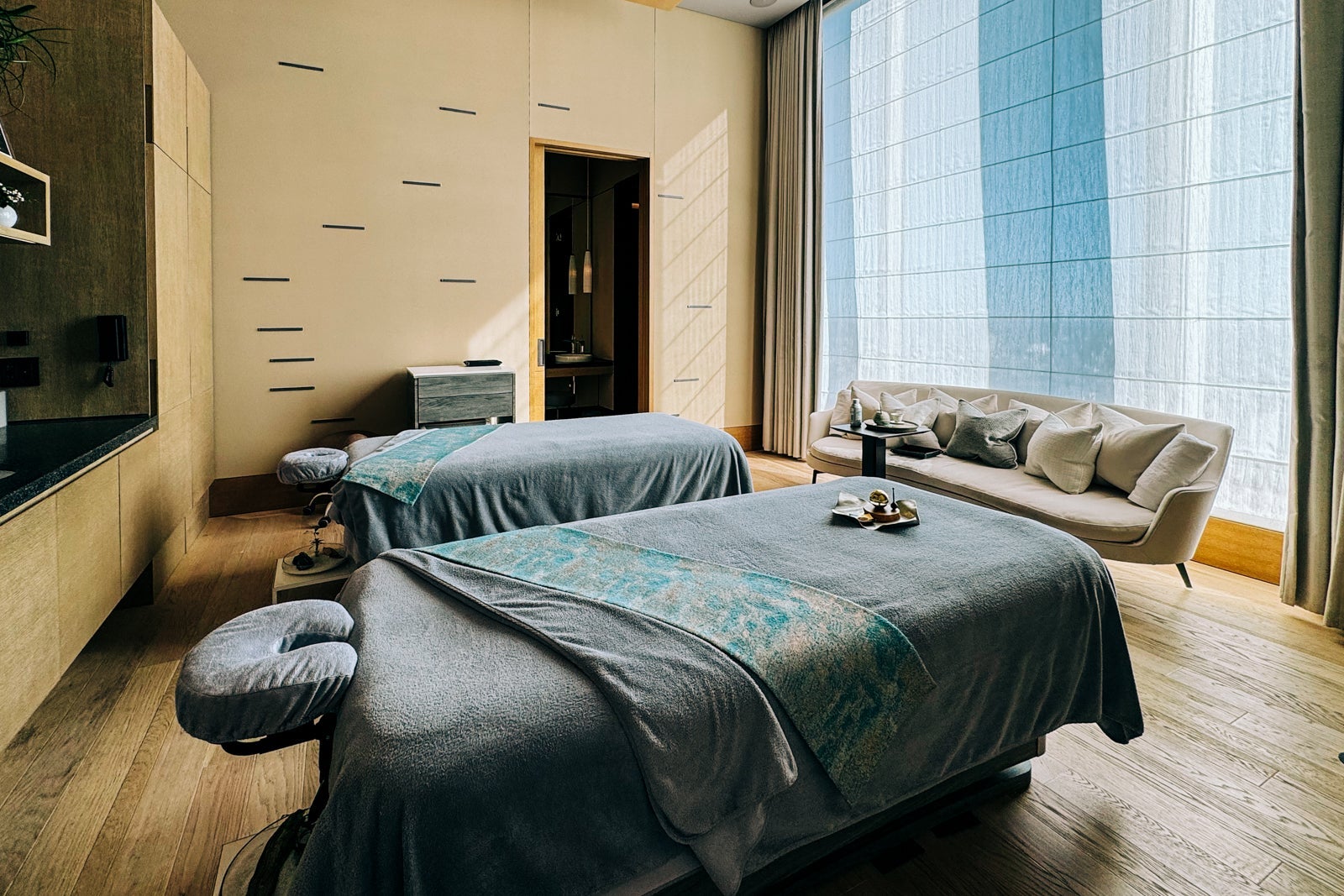
Various skincare treatments incorporate well-known international brands, such as a Valmont "Redefinition Facial" to erase those fine lines brought on by jet lag and travel (75 minutes, $246); and an "Omorovicza Blue Diamond Facial" that energizes the skin with peptides before a copper and lactic acid peel finished with a soothing rose-scented mask (90 minutes, $353). The signature "Yakusugi Forest Renewal" body treatment incorporates an exfoliating scrub and moisturizing body oil made from ancient cypresses from the island of Yakushima that will slough away impurities and then evoke a meditative state of mind (120 minutes, $389).
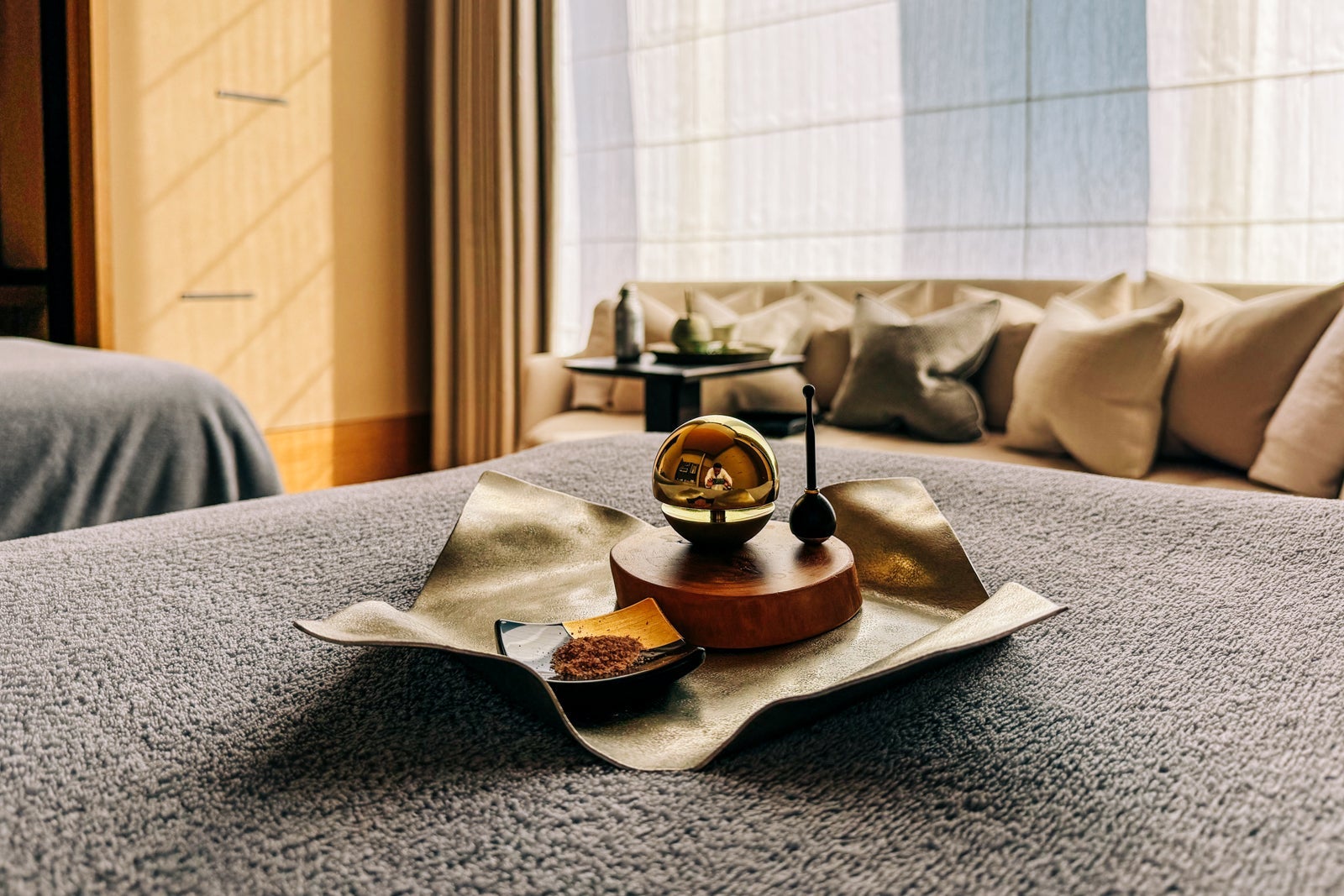
As you might expect at such a high-end hotel, the staff's attention to detail at the Four Seasons Hotel Tokyo at Otemachi is practically flawless, blending Four Seasons' well-known international service standards with traditional Japanese hospitality.
The concierges will be happy to do everything from securing you tickets to a sold-out art exhibition to recommending the fanciest sushi restaurant in Ginza (or a place for cheap and tasty gyoza in Shinjuku). Hearing you need to head to Tokyo station, the bell desk might just offer you the hotel car for the quick trip, complimentary.
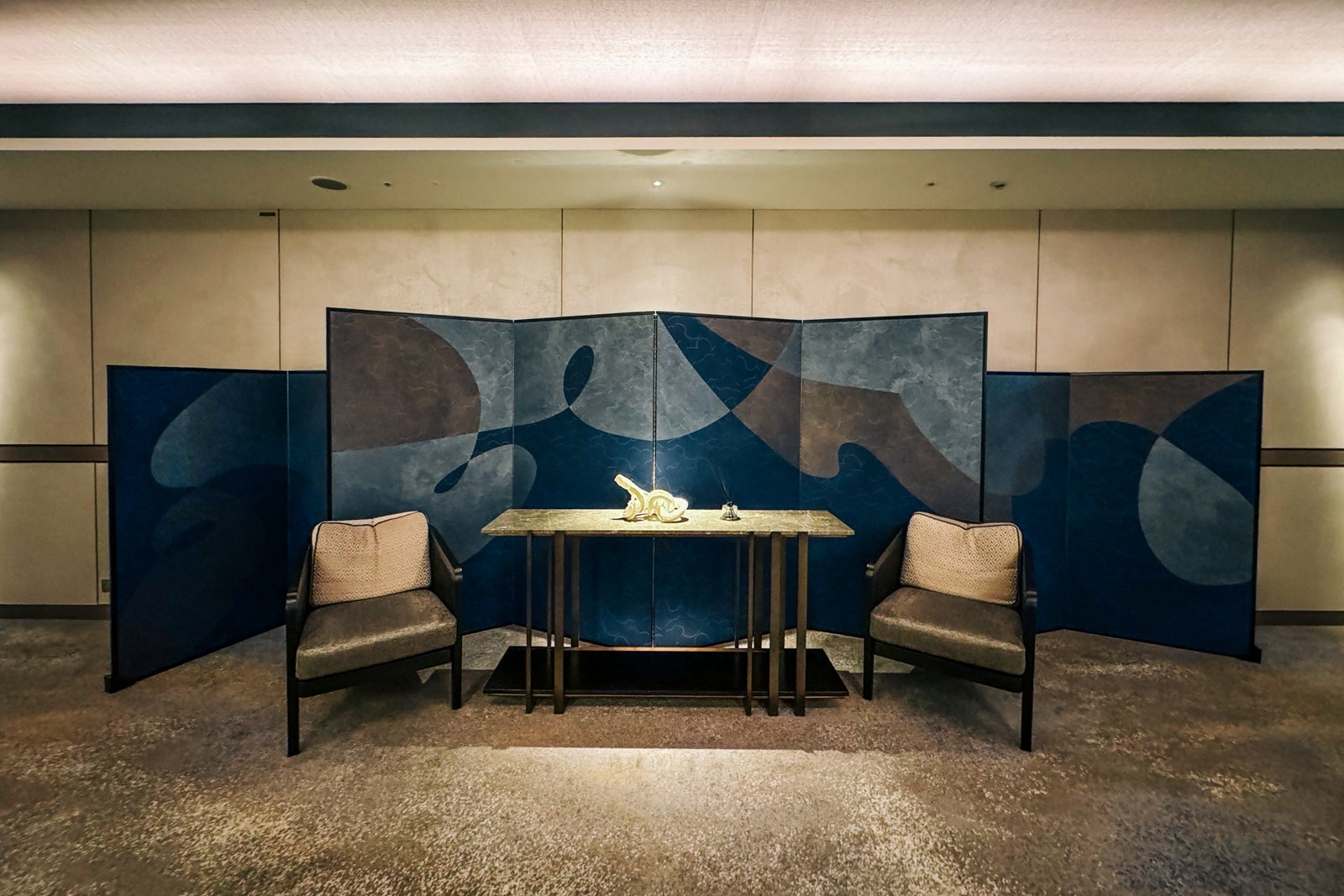
Wait staff at the various bars and restaurants will know you by name as soon as you have checked in for a reservation (or just dropped by for breakfast) and will have your favorite coffee or cocktail order ready for you on your second visit. They will also patiently walk you through any special dishes or flavors on the menu or simply stop by to ask about your day as you admire the view of Mount Fuji in the distance. It's like having your very own polished but genial hometown squad at your beck and call for anything you might require.
Out and about
Although the surrounding neighborhood is a financial district that gets busy by day but tends to empty out by night, the Four Seasons Hotel Tokyo at Otemachi sits atop the sprawling Otemachi subway station, where you can find everything from convenience stores and casual izakayas to upscale sushi counters and bustling cafes.
You can simply walk across the street to explore the Imperial Gardens if the weather is nice or hop on the metro to reach other neighborhoods, including Asakusa, Shinjuku or Shibuya, in 20-30 minutes. Ginza, with its fancy fashion boutiques, is just a 10-minute drive away.
Accessibility
The Four Seasons Hotel Tokyo at Otemachi has wheelchair-accessible parking and an accessible entrance via its street-level driveway, as well as a ground-floor entrance that is accessible to wheelchairs with no steps (and take a look at the lacquer box-inspired lighting scheme and decor while you're down there).
There are also lower-height buttons in the elevators, which are wide enough to accommodate wheelchairs, as are the guest room floors' hallways.
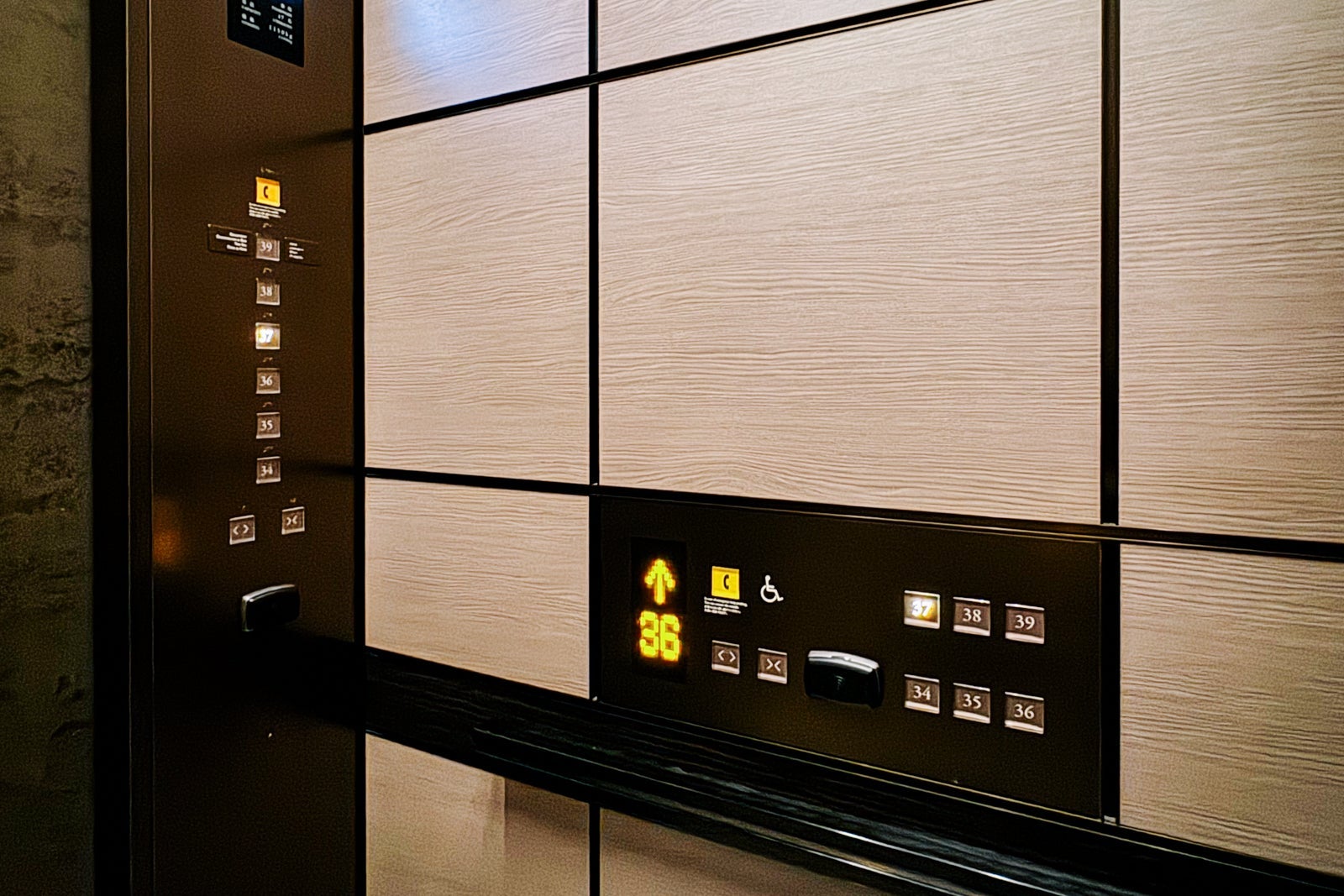
The public spaces, restaurants and bars on the 39th floor are all accessible for wheelchair users, with no stairs involved. However, getting into the pool or hot tub requires the use of stairs, and there is no chairlift. The same is true of the ofuros in the locker rooms.
The hotel has a single wheelchair-accessible Superior City View room with wider spaces to accommodate a chair, a lowered bathroom counter, a roll-in shower and toilet grab bars. Hearing-impaired guests can also request visual notifications for the door and alarm clock.
Checking out
The Four Seasons Hotel Tokyo at Otemachi seamlessly melds traditional Japanese elements, including ikebana floral displays and calligraphy-inspired designs, with a contemporary sense of hospitality. It basically feels like Tokyo writ small into a hotel experience that will leave you feeling both cosseted in comfort and yet exposed to the enjoyment of the Japanese capital.
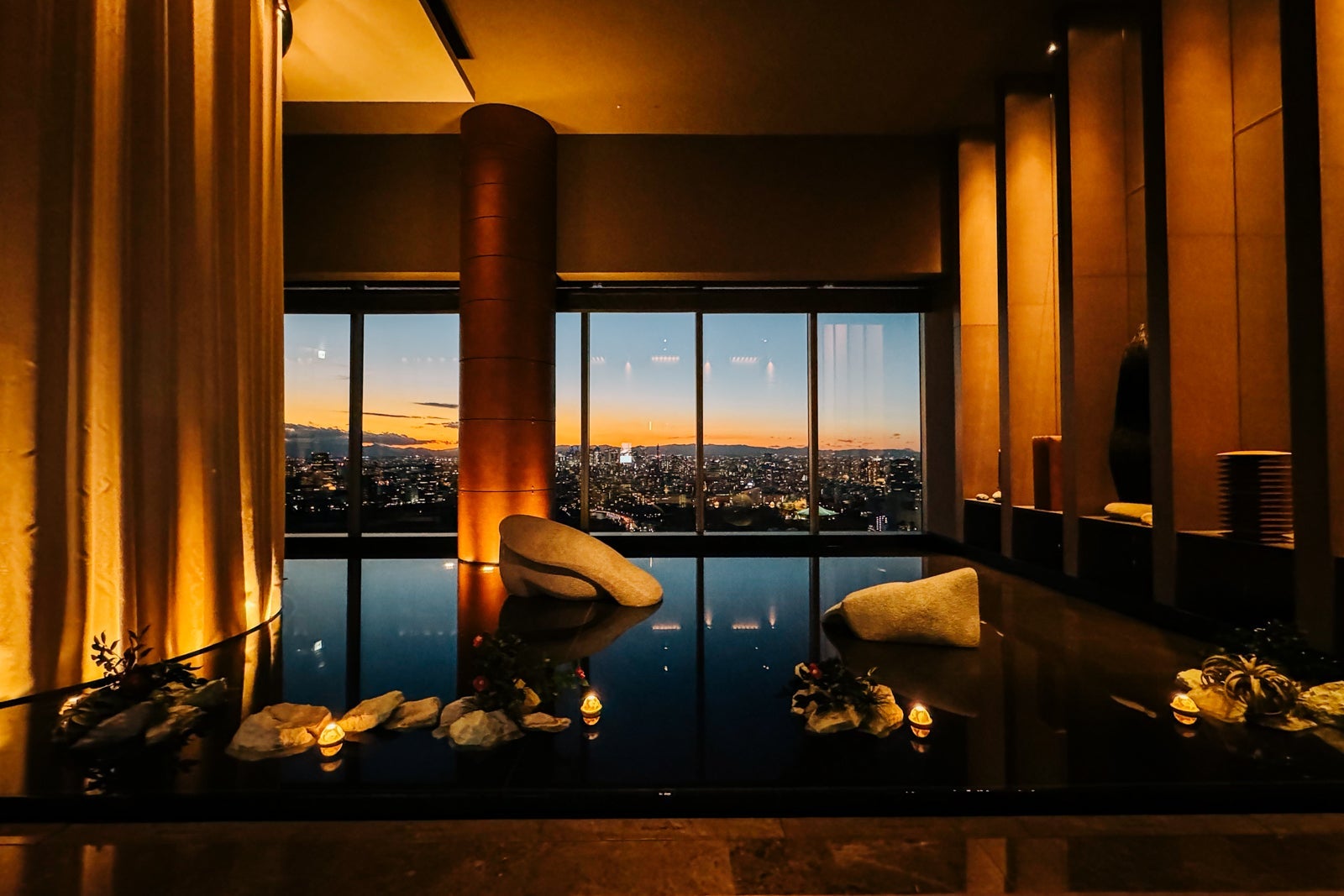
Its central location, which is easily accessible by public transportation, makes it an excellent choice for both leisure and business travelers. And while its phenomenal wellness facilities, including a class-act gym, a relaxing pool and a halcyon spa, will help travelers beat any lingering jet lag, the fanciful cocktails at Virtu and memorable dishes at Est (along with the banter of the bartenders and servers) will make you feel right at home, no matter how far from home you actually are.
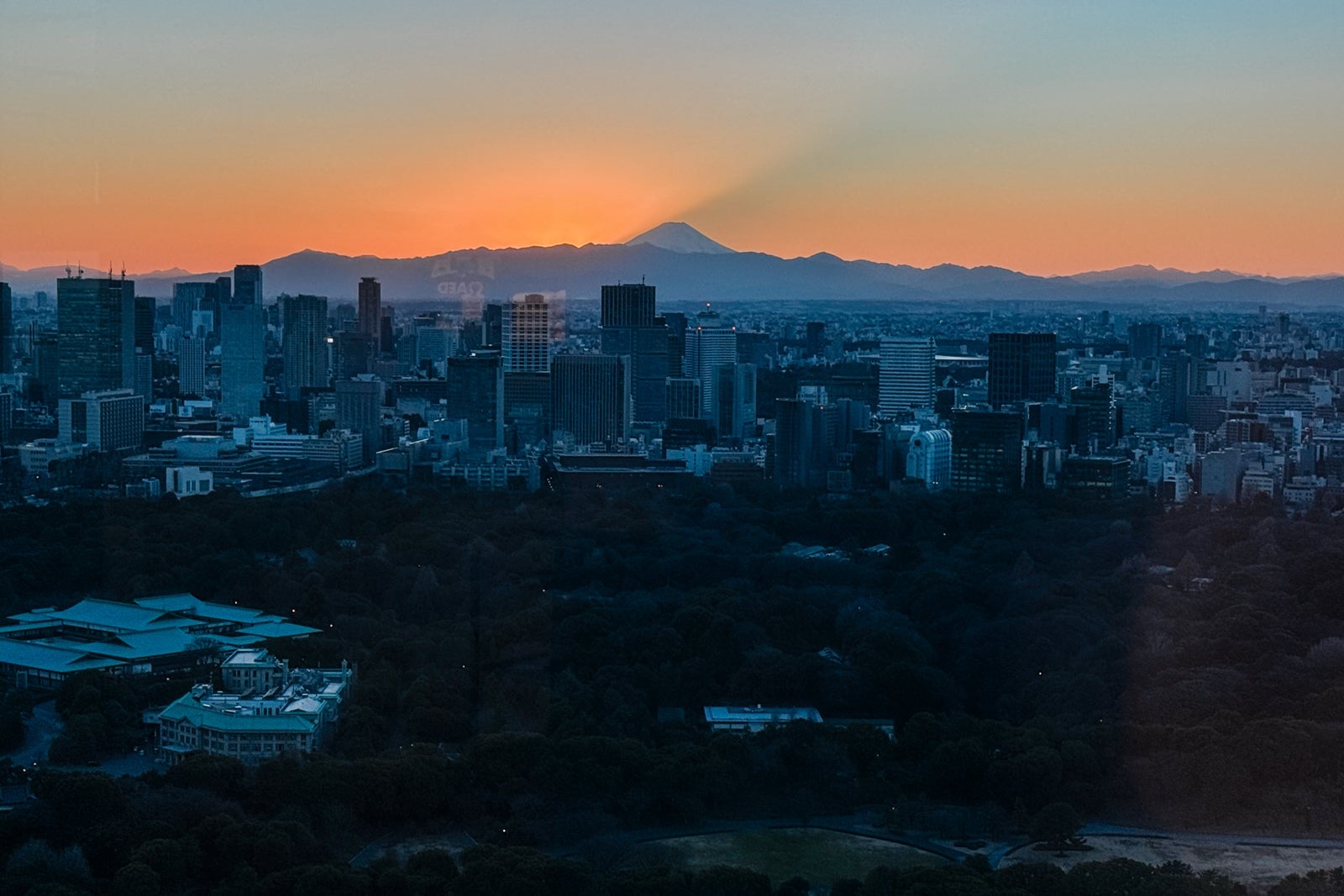
Related reading:
TPG featured card
at Capital One's secure site
Terms & restrictions apply. See rates & fees.
| 5X miles | Earn 5X miles on hotels, vacation rentals and rental cars booked through Capital One Travel |
| 2X miles | Earn unlimited 2X miles on every purchase, every day |
Pros
- Stellar welcome offer of 75,000 miles after spending $4,000 on purchases in the first three months from account opening. Plus, a $250 Capital One Travel credit to use in your first cardholder year upon account opening.
- You'll earn 2 miles per dollar on every purchase, which means you won't have to worry about memorizing bonus categories
- Rewards are versatile and can be redeemed for a statement credit or transferred to Capital One’s transfer partners
Cons
- Highest bonus-earning categories only on travel booked via Capital One Travel
- LIMITED-TIME OFFER: Enjoy $250 to use on Capital One Travel in your first cardholder year, plus earn 75,000 bonus miles once you spend $4,000 on purchases within the first 3 months from account opening - that’s equal to $1,000 in travel
- Earn unlimited 2X miles on every purchase, every day
- Earn 5X miles on hotels, vacation rentals and rental cars booked through Capital One Travel
- Miles won't expire for the life of the account and there's no limit to how many you can earn
- Receive up to a $120 credit for Global Entry or TSA PreCheck®
- Use your miles to get reimbursed for any travel purchase—or redeem by booking a trip through Capital One Travel
- Enjoy a $50 experience credit and other premium benefits with every hotel and vacation rental booked from the Lifestyle Collection
- Transfer your miles to your choice of 15+ travel loyalty programs
- Top rated mobile app

